Tragedy of the Commons
description: self-interests causing depletion of a shared resource
242 results

Life on the Rocks: Building a Future for Coral Reefs
by
Juli Berwald
Published 4 Apr 2022
Not missing a beat, Lizzie hit the stop button, pulled out the smoking taco, plopped it in the sink, and said, “Also, there’s no protecting any region on a map from the accumulation of carbon dioxide in the atmosphere and the warming of the seas from climate change.” * * * — After my conversation with Lizzie, I thought a lot about the implications of traditional marine tenure. If there were places that managed to skirt the Tragedy of the Commons through systems like sasi in Indonesia and no-take MPAs, what does that mean for the validity of Garrett Hardin’s idea? Is the Tragedy of the Commons a fundamental truth of humankind, or is it flawed? Flawed, was the answer articulated in the 1980s by Elinor Ostrom, the first—and until 2019 only—woman to have won the Nobel Prize in Economic Sciences. Known as Lin, Ostrom was rejected from the PhD program in economics at UCLA because she’d never taken trigonometry.
…
GO TO NOTE REFERENCE IN TEXT National Football League: “100 Yards of Hope Team Outplants 1100 Corals,” Force Blue, November 9, 2020, https://forceblueteam.org/news/100-yards-of-hope-team-outplants-1100-corals/. GO TO NOTE REFERENCE IN TEXT Chapter 16. The Tragedy of Scale “The Tragedy of the Commons”: Originally given as an address to the Pacific Division of the American Association for the Advancement of Science, then republished as Garrett Hardin, “The Tragedy of the Commons,” Science 162, no. 3859 (1968): 1243–48, https://science.sciencemag.org/content/162/3859/1243.full. GO TO NOTE REFERENCE IN TEXT California’s sardines: Patricia Wolf, “Recovery of the Pacific Sardine and the California Sardine Fishery,” CalCOFI Report 33 (1992): 76–86, http://www.calcofi.org/publications/calcofireports/v33/Vol_33_Wolf.pdf.
…
Part IV Sulawesi 16 The Tragedy of Scale According to one economic theory, today’s problems with our seas reach back beyond politics and policy to our very human nature. In 1968, an economist at the University of California at Berkeley named Garrett Hardin gave a talk to the American Association for the Advancement of Science with the catchy title “The Tragedy of the Commons.” Drawing from an essay published a century earlier, in 1866, Hardin described a grassy pasture on which herders could happily graze their cows. This mind experiment occurred before what we think of as modern times, so tribal wars and poaching, along with disease, kept the number of cattle in check.
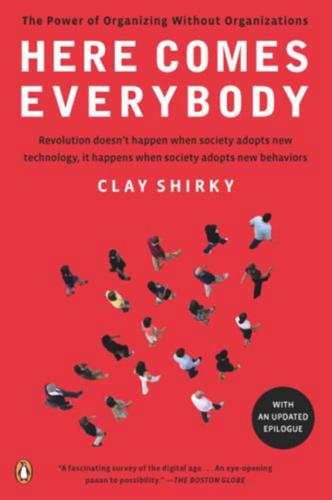
Here Comes Everybody: The Power of Organizing Without Organizations
by
Clay Shirky
Published 28 Feb 2008
Howard Rheingold, whose The Virtual Community: Homesteading on the Electronic Frontier, Basic Books (1993) was a critical early work on online community, is working on a multiyear study of cooperation in collaboration (www.cooperationcommons.com) with the Institute for the Future. Page 51: “The Tragedy of the Commons,” Science 162 (3859), December 13, 1968, pp. 682-83. Garrett Hardin was a biologist, and the tragedy of the commons formulation often appears in discussions about natural resources. (There’s an online version at www.garretthardinsociety.org/articles/art_tragedy_of_the_commons.html ). A more mathematically rigorous view of the same problem appears in Mancur Olson’s The Logic of Collective Action: Public Goods and the Theory of Groups, Harvard University Press (1965).
…
In historical terms, a potluck dinner or a barn raising is collaborative production (the members work together to create something), while a union or a government engages in collective action, action that is undertaken in the name of the members meant to change something out in the world, often in opposition to other groups committed to different outcomes. The commonest collective action problem is described as the “Tragedy of the Commons,” biologist Garrett Hardin’s phrase for situations wherein individuals have an incentive to damage the collective good. The Tragedy of the Commons is a simple pattern to explain, and once you understand it, you come to see it everywhere. The standard illustration of the problem uses sheep. Imagine you are one of a group of shepherds who graze their sheep on a commonly owned pasture.
…
Many of its users are members of groups organized around specific themes (“Telling a Story in 5 Frames,” “Street Photography”), and these groups have their own internal expectations: the street photographers don’t like staged pictures, while the storytellers don’t want single photos. These bargains also involve ongoing negotiation—the basic tension in Flickr groups is a Tragedy of the Commons, where the presence of a potential audience tempts photographers to leave their photos for others to see while not looking at anyone else’s. Many of the rules in Flickr groups try to create the kind of mutual coercion that can solve a Tragedy of the Commons, as with this rule for Black and White Maniacs, for takers of black and white photos:Post ONE photo, then immediately comment on the PREVIOUS TWO photos . . . Wait until two more photos have been posted before posting again.
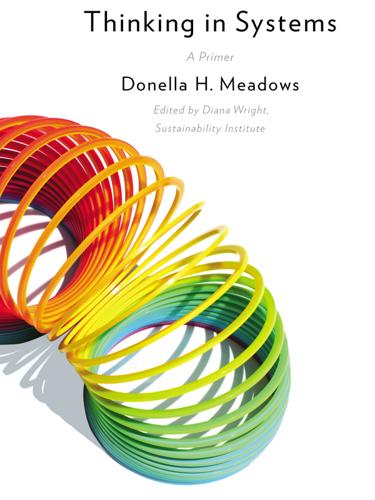
Thinking in Systems: A Primer
by
Meadows. Donella
and
Diana Wright
Published 3 Dec 2008
Bring in all the actors and use the energy formerly expended on resistance to seek out mutually satisfactory ways for all goals to be realized—or redefinitions of larger and more important goals that everyone can pull toward together. The Tragedy of the Commons Leaders of Chancellor Helmut Kohl’s coalition, led by the Christian Democratic Union, agreed last week with the opposition Social Democrats, after months of bickering, to turn back a flood of economic migrants by tightening conditions for claiming asylum. —International Herald Tribune, 19925 The trap called the tragedy of the commons comes about when there is escalation, or just simple growth, in a commonly shared, erodable environment. Ecologist Garrett Hardin described the commons system in a classic article in 1968.
…
And why a system might suddenly, and without warning, jump into a kind of behavior you’ve never seen before. That discussion will lead to us to look at the common problems that the systems-thinking community has stumbled upon over and over again through working in corporations and governments, economies and ecosystems, physiology and psychology. “There’s another case of the tragedy of the commons,” we find ourselves saying as we look at an allocation system for sharing water resource among communities or financial resources among schools. Or we identify “eroding goals” as we study the business rules and incentives that help or hinder the development of new technologies. Or we see “policy resistance” as we examine decision-making power and the nature of relationships in a family, a community, or a nation.
…
In the next chapter on system traps and opportunities, I will describe some of the most commonly encountered structures that can cause bounded rationality to lead to disaster. They include such familiar phenomena as addiction, policy resistance, arms races, drift to low performance, and the tragedy of the commons. For now, I want to make just one point about the biggest surprise that comes from not understanding bounded rationality. Suppose you are for some reason lifted out of your accustomed place in society and put in the place of someone whose behavior you have never understood. Having been a staunch critic of government, you suddenly become part of government.
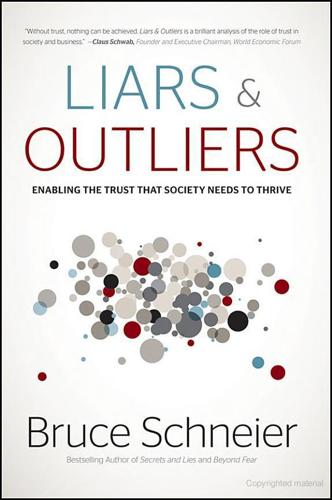
Liars and Outliers: How Security Holds Society Together
by
Bruce Schneier
Published 14 Feb 2012
But if Alice acts in the group interest while others act in their self-interest, she'll have sacrificed her own short-term gain for nothing: she'll catch fewer fish, and the fishing stocks will still collapse due to everyone else's overfishing. Her analysis leads to the decision to overfish. That makes sense, but—of course—if everyone acts according to the same analysis, they'll end up collapsing the fishing stocks and ruining the industry for everyone. This is called a Tragedy of the Commons, and was first described by the ecologist Garrett Hardin in 1968.6 A Tragedy of the Commons occurs whenever a group shares a limited resource: not just fisheries, but grazing lands, water rights, time on a piece of shared exercise equipment at a gym, an unguarded plate of cookies in the kitchen. In a forest, you can cut everything down for maximum short-term profit, or selectively harvest for sustainability.
…
In a forest, you can cut everything down for maximum short-term profit, or selectively harvest for sustainability. Someone who owns the forest can make the trade-off for himself, but when an unorganized group together owns the forest there's no one to limit the harvest, and a Tragedy of the Commons can result. A Tragedy of the Commons is more complicated than a two-person Prisoner's Dilemma, because the other fishers aren't making this decision collectively. Instead, each individual fisher decides for himself what to do. In the two-person dilemma, Alice had to try to predict what Bob would do. In this larger dilemma, many more outcomes are possible.
…
But at some point, either the waters will get crowded enough or the fishers will get technologically advanced enough that the Tragedy of the Commons dilemma will occur. The disconnect between Alice's individual actions and the effect of the group's actions as a whole makes societal dilemmas even harder to solve in larger groups. Under a rational economic analysis, it makes no sense for Alice to cooperate. The group will do whatever it does, regardless of her actions, and her individual cooperation or defection won't change that. All she's really deciding is whether to seize or forgo the short-term benefits of defecting. Societal Dilemma: Tragedy of the Commons. Society: Some group of people, either a society of interest or a society of circumstance.
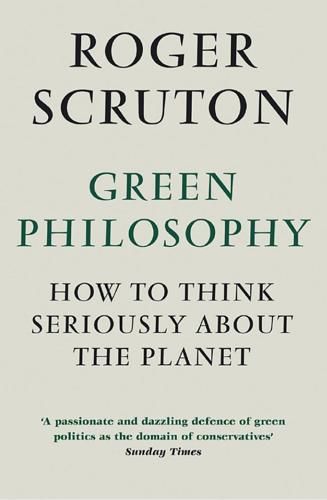
Green Philosophy: How to Think Seriously About the Planet
by
Roger Scruton
Published 30 Apr 2014
The greatest defence that human beings have devised against the greedy person is the right of the others to resist him. This is the reason for thinking that it is not state control, but property rights, that are the real solution to the tragedy of the commons. And once property rights are in place they lead of their own accord to a market, as people transfer their rights to those most eager to acquire them and in return receive something preferable in exchange. The tragedy of the commons is not due to market failure, but to market absence. Hence there have been very few vulnerable resources that have not been managed, by those who depended upon them, through a system of property rights, so giving each person an interest in maintaining his guaranteed share.
…
Environmentalists and conservatives are both in search of the motives that will defend a shared but threatened legacy from predation by its current trustees. Rational self-interest is not, I think, the motive that we are seeking, although, as I will argue, it has an important part to play. Rational self-interest is subject to the well-known free rider and prisoner’s dilemma syndromes, and can avert ‘the tragedy of the commons’17 only in special circumstances. Social contract theorists, from Hobbes to Rawls, have attempted to overcome the problems of social choice, but always they come up against some version of the original difficulty: why is it more reasonable to bide by the contract than to pretend to bide by it?
…
Such problems are not specific to environmental issues, and arise in connection with both radical and conservative policies. When considering the environment, however, one such problem is of particular importance, and that is the failure of collective rationality commented upon by Aristotle in the Politics and known, following an acclaimed article by Garrett Hardin, as ‘the tragedy of the commons’.151 Many of the earth’s resources are either unowned or owned in common by some particular community – the fish in a lake, the grazing on common land, the air that we breathe, and so on. If we all have access to such commons, and if they are easily depleted by our use of them, then the situation can easily arise in which it is in the interest of each person to take as much as he can before others deprive him of the chance.

Markets, State, and People: Economics for Public Policy
by
Diane Coyle
Published 14 Jan 2020
The chapter looks at social capital as well as other social influences on preferences, such as Albert Hirschman’s “exit, voice, and loyalty,” and positional goods. The moral of the chapter is that getting past the false dichotomy of market versus state opens the way to a far richer range of policy options for improving social welfare. The Tragedy of the Commons Garrett Hardin’s 1968 Science article on the tragedy of the commons was profoundly influential. Where Adam Smith had painted a picture of isolated, self-interested individual choices combining to give desirable social outcomes, Hardin argued the opposite: that individually rational choices involved a large social cost. The problem he diagnosed is that resources held in common will be overused because rational individual decisions impose an external cost.
…
When income and consumption matter for positional reasons, and consumption arms races occur, people work and consume more than is socially optimal because of the negative consumption externality. This is reminiscent of the tragedy of the commons: rational individual choices have adverse social outcomes. Garrett Hardin suggested private ownership rights as a solution to the tragedy of the commons. If people have property rights over sections of the river, they internalize the externality and consume only as many fish as will sustain the stock. Elinor Ostrom’s examples of successfully managed commons also involve rules to allocate access to scarce resources, albeit not in the form of private ownership rights but agreed access rights instead.
…
Market failures Assumption “Market failure” when it does not hold A1 Consumers and producers are rational and self-interested A2 They have fixed preferences “Non-rational” choice, social influence A3 There is perfect competition with no economies of scale and no barriers to entry (or exit) Natural monopoly A4 Individuals have full information, and it is symmetric (the same) for all Information asymmetries A5 Private and social benefits are equal; private and social costs are equal Externalities A6 There are complete markets (including for all future goods) Adverse selection; tragedy of the commons A7 Goods are owned and able to be exchanged—there are property rights, and people obey the law Transaction costs A8 Goods are rival—if I use it, you can’t Public goods/free riding In fact, markets and governments often fail in the same contexts and for the same reasons. This is why the structures of economic organization have varied so much over time and between countries.

Governing the Commons: The Evolution of Institutions for Collective Action
by
Elinor Ostrom
Published 29 Nov 1990
<U '0' :2~~::E I:: ~ ~ ~ 13 .~ .- ::g ~.r" 181 A framework for analysis of CPRs In Chapter 1, I discussed three models that are used to justify the policy recommendation that external governmental authorities should impose solutions on individuals who jointly use CPRs: Hardin's tragedy of the commons, the prisoner's dilemma game, and Mancur Olson's logic of collective action. All three models lead to the prediction that those using such resources will not cooperate so as to achieve collective benefits. Further, individuals are perceived as being trapped in a static situation, unable to change the rules affecting their incentives.
…
New York: Wiley. tional Academy of Sciences, Washington, D.C. Berkes, F. 1985a. The Common Property Resource Problem and the Creation of Ashby, W. R. 1960. Design for a Brain. The Origin ofAdaptive Behavior, 2nd ed. New York: Wiley. Limited Property Rights. Human Ecology 13:187-208. Berkes, F. 1985b. Fishermen and "The Tragedy of the Commons." Environmental Ascher, W., and R. Healy. 1990. Natural Resource Policymaking: A Framework for Developing Countries. Durham, N.C.: Duke University Press. Conservation 12: 199-206. Berkes, F. 1986a. Local-Level Management and the Commons Problem: A Com Attwood, D. M., and B. S. Baviskar. 1987.
…
Balti more: Johns Hopkins University Press. Hamilton, A. 1981. The Unity of Hunting-Gathering Societies: Reflections on Economic Forms and Resource Management. In Resource Managers: North American and Australian Hunter-Gatherers. eds. N.M. Williams and E.S. Hunn, pp. 229-48. Boulder, Colo.: Westview Press. Hardin, G. 1968. The Tragedy of the Commons. Science 162:1243-8. Hardin, G. 1978. Political Requirements for Preserving our Common Heritage. In Wildlife and America, ed. H. P. Bokaw, pp. 310-17. Washington, D.C.: Council on Environmental Quality. Hardin, R. 1971. Collective Action as an Agreeable N-Prisoner's Dilemma. Beha vioral Science 16:472-81.
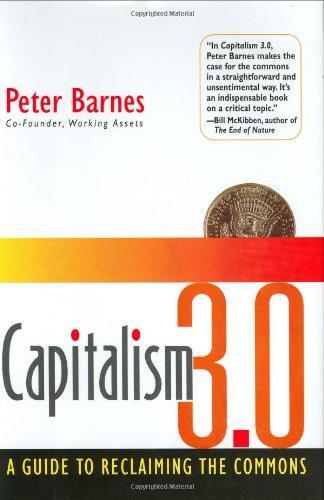
Capitalism 3.0: A Guide to Reclaiming the Commons
by
Peter Barnes
Published 29 Sep 2006
In effect, it’s a subset of the given commons that we consciously organize according to commons principles. It’s small at the moment, but the point of this book is that we should enlarge it. Time to Upgrade | 7 The Tragedy of the Commons Isn’t What You Think If you heard about the commons before you picked up this book, your impressions were probably shaped by a 1968 article called “The Tragedy of the Commons.” In that article, biologist Garrett Hardin used the metaphor of an unmanaged pasture to suggest a root cause of many planetary problems. The rational herdsman concludes that the only sensible course for him to pursue is to add another animal to his herd.
…
Notes Notes to Pages x–17 Preface 1x Biologist Garrett Hardin: Garrett Hardin, “The Tragedy of the Commons,” Science, 1968, 162, 1243–1248. See www.sciencemag.org/sciext/sotp/commons.dtl. xii envisioned an economy: E. F. Schumacher, Small Is Beautiful (New York: HarperCollins, 1973). Chapter 1: Time to Upgrade 14 endangering human civilizations: Jared Diamond, Collapse: How Societies Choose to Fail or Succeed (New York: Penguin Books, 2005); Ronald Wright, A Short History of Progress (New York: Carroll & Graf, 2004). 17 “The relational herdsman . . .”: Hardin, “Tragedy of the Commons,” p. 1244. Twenty-five years after this article was published, Hardin explained that what he should have said in 1968 was: “A ‘managed commons’ describes either socialism or the privatism of free enterprise.
…
(Working Assets offers telephone and credit card services which automatically I | ix | x | C A P I TA L I S M 3.0 donate to nonprofit groups working for a better world.) My initial ruminations focused on climate change caused by human emissions of heat-trapping gases. Some analysts saw this as a “tragedy of the commons,” a concept popularized forty years ago by biologist Garrett Hardin. According to Hardin, people will always overuse a commons because it’s in their self-interest to do so. I saw the problem instead as a pair of tragedies: first a tragedy of the market, which has no way of curbing its own excesses, and second a tragedy of government, which fails to protect the atmosphere because polluting corporations are powerful and future generations don’t vote.
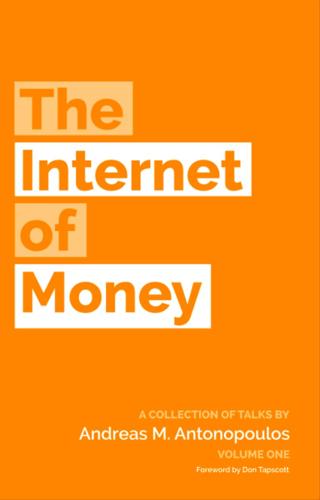
The Internet of Money
by
Andreas M. Antonopoulos
Published 28 Aug 2016
The power of pushing intelligence to the edge, of not making decisions in the center, moves the innovation into the hands of its end users and gives those end users the ability to build applications that are so niche that only a handful of people around the world need them. And they can build those applications without asking for anyone’s permission. 5.2. Tragedy of the Commons But there’s one more thing that’s really unique about bitcoin, and it’s one of the reasons that it continues to survive and continues to win over the centralized, closed networks of the past, and that is that bitcoin is open source, open standard, and open network. One of the key concepts in economics is the idea of a tragedy of the commons. This is when you have a common resource that can be consumed, without limits, by all those who participate until the resource is depleted and the entire system collapses.
…
This is when you have a common resource that can be consumed, without limits, by all those who participate until the resource is depleted and the entire system collapses. It’s a form of market failure called “the tragedy of the commons.” The most common example of it is the commons, in the old British sense, of a large grassy area. Here you have a field that everyone can graze their cattle on, and if everybody goes and grazes their cattle with reckless abandon, before long, you have a big muddy pit and no cattle. Because everybody overgrazes it, the resource is depleted. 5.3. Festival of the Commons Bitcoin doesn’t suffer from a tragedy of the commons like most financial networks do. I can’t innovate on somebody else’s network.
…
When they play in the bitcoin sphere, they get to benefit from everybody else’s investment in that space. So, it returns multiple times. You get this wonderful synergy where each company that invests in this amazing technology makes it better for everybody else. It’s not an exclusionary principle; instead of a tragedy of the commons, you have a festival of the commons. A commons that gets better when more companies use it. "It’s not an exclusionary principle; instead of a tragedy of the commons, in bitcoin you have a festival of the commons. A commons that gets better when more companies use it." 5.3.1. Festival of the Commons 2012-2014 Just look at some of the examples. 2014 was supposed to be the worst year in bitcoin.
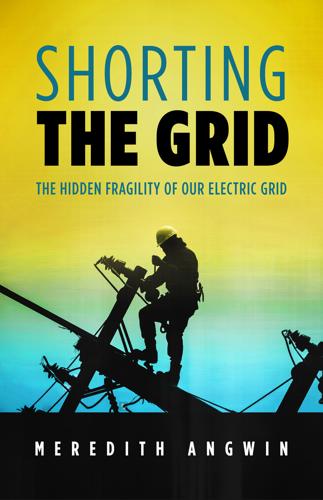
Shorting the Grid: The Hidden Fragility of Our Electric Grid
by
Meredith. Angwin
Published 18 Oct 2020
VELCO is Vermont’s electric transmission agency.97 In a 2013 VELCO meeting, Tom Dunn noted that FERC 1000 will have a negative effect on controlling transmission costs, if the costs due to one state’s policies are spread to other states without recourse.98 When all states have to pay transmission costs for one state’s policies, FERC 1000 will set up a “tragedy of the commons” for transmission. The classic “tragedy of the commons” is when a shared resource is overused and therefore depleted, because each individual user does not have to pay for the effects of his own overuse of the system.99 The classic example is the use of common grazing land. Unless there is regulation to limit grazing rights, everyone has an incentive to graze many cattle on the common ground, causing the commons to be overgrazed.
…
If fees are applied across the board, the neighbor, who never had to pay such a fee in the past, can well say, “Boy, bait and switch! There ought to be a law against this sort of thing. This is not what I signed up for.” And yet, if net metering were allowed for everyone, without a cap, we would have a “tragedy of the commons.” Prices would rise for everyone. The “tragedy of the commons” is an expression for the consequences of overusing a resource. An area set aside for many people to graze their sheep is often called “a commons.” It is an observed fact the number of animals on the land should be limited, to prevent the land from being overgrazed.
…
Hines, “A ‘Random Chemistry’ Algorithm for Identifying Collections of Multiple Contingencies That Initiate Cascading Failure,” IEEE Transactions on Power Systems, Vol. 27, No. 3, August 2012, http://www.cs.uvm.edu/~meppstei/personal/IEEEPES2012.pdf. 90 Scott DiSavino, “New England grid can function without Vermont Yankee reactor,” Reuters News Agency, December 10, 2012, https://www.reuters.com/article/utilities-entergy-vermontyankee/new-england-grid-can-function-without-vermont-yankee-reactor-idUSL1E8NA50O20121210. 91 David Brooks, “Northern Pass died — but the debate didn’t,” Concord Monitor, December 28, 2018, https://www.concordmonitor.com/story-of-year-energy-northern-pass-22403247. 92 Mike Polhamus, “TDI New England approved for $1.2 billion transmission project,” VTDigger, January 6, 2016, https://vtdigger.org/2016/01/06/tdi-new-england-approved-for-1-2-billion-transmission-project/. 93 “Order No. 1000 — Transmission Planning and Cost Allocation,” Federal Energy Regulatory Commission, updated August 22, 2019, https://www.ferc.gov/industries/electric/indus-act/trans-plan.asp. 94 “Electricity Transmission Cost Allocation,” EveryCRSReport.com (website), December 18, 2012, https://www.everycrsreport.com/reports/R41193.html. 95 “Order No. 1000 …” Federal Energy Regulatory Commission. 96 Federal Register, Volume 76, Number 155, August 11, 2011, https://www.ferc.gov/industries/electric/indus-act/trans-plan/fr-notice.pdf. 97 “Our Work,” VELCO (website of Vermont Electric Power Company), undated, https://www.velco.com/our-work. 98 “Final Minutes,” VELCO Operating Committee, October 17, 2013, https://opcom.velco.com/library/document/download/1335/Final%252520Minutes%25252010-17-13.pdf. 99 “Tragedy of the commons,” Wikipedia, last update November 10, 2019, https://en.wikipedia.org/wiki/Tragedy_of_the_commons. 100 Jason Marshall, “Order 1000 in New England,” New England States Committee on Electricity, September 7, 2017, https://www.iso-ne.com/static-assets/documents/2017/09/clg_meeting_marshall_panelist_presentation_september_7_2017_final.pdf. 101 “About NESCOE (web page),” NESCOE: New England States Committee on Electricity, undated, http://nescoe.com/about-nescoe/. 102 Herman K.
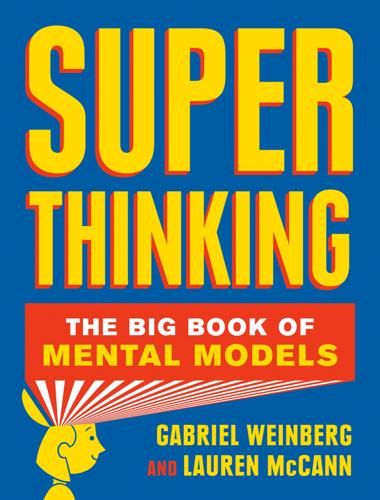
Super Thinking: The Big Book of Mental Models
by
Gabriel Weinberg
and
Lauren McCann
Published 17 Jun 2019
Since one person’s use does not significantly reduce a public good’s availability to others, it might seem as though there is no harm in free-riding. However, if enough people free-ride on a public good, then it can degrade to the point of creating a tragedy of the commons. Vaccinations provide an illustrative example that combines all these models (tragedy of the commons, free rider problem, tyranny of small decisions, public goods), plus one more: herd immunity. Diseases can spread only when they have an eligible host to infect. However, when the vast majority of people are vaccinated against a disease, there are very few eligible new hosts, since most people (in the herd) are immune from infection due to getting vaccinated.
…
Pasture commons present a problem, though: Each additional cow that a farmer gets benefits their family, but if all the farmers keep getting new cows, then the commons can be depleted. All farmers would experience the negative effects of overgrazing on the health of their herds and land. In an 1833 essay, “Two Lectures on the Checks to Population,” economist William Lloyd described a similar, but hypothetical, overgrazing scenario, now called the tragedy of the commons. However, unbeknownst to him, his hypothetical situation had really occurred in Boston Common two hundred years earlier (and many other times before and since). More affluent families did in fact keep buying more cows, leading to overgrazing, until, in 1646, a limit of seventy cows was imposed on Boston Common.
…
They use the common resource for their own benefit at little or no cost (e.g., each course of treatment has only a small chance of increasing resistance). But as more and more people make the same decision, the common resource is collectively depleted, reducing the ability for everyone to benefit from it in the future (e.g., the antibiotic becomes much less useful). More broadly, the tragedy of the commons arises from what is called the tyranny of small decisions, where a series of small, individually rational decisions ultimately leads to a system-wide negative consequence, or tyranny. It’s death by a thousand cuts. You’ve probably gone out to dinner with friends expecting that you will equally split the check.
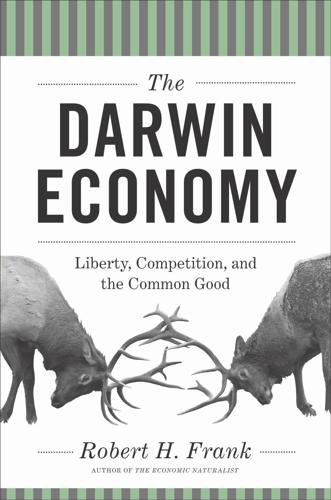
The Darwin Economy: Liberty, Competition, and the Common Good
by
Robert H. Frank
Published 3 Sep 2011
It’s a matter of simple logic that when people overestimate their chances of winning, too many forsake productive occupations in traditional markets to compete in winner-take-all markets. The Tragedy of the Commons Potential contestants in winner-take-all markets also confront a problem called the tragedy of the commons, an incentive structure that was first invoked to explain overfishing in ocean waters.7 The cod, once abundant in the North Atlantic, saw its population decline by more than 95 percent from overharvesting. The incentives that led to this decline were similar to those that produce excessive entry into many winner-take-all markets. The tragedy of the commons provides a vivid illustration of Darwin’s insight that individual and group interests often diverge sharply.
…
In the most widely quoted passage from The Wealth of Nations, Smith wrote, “It is not from the benevolence of the butcher, the brewer, or the baker that we expect our dinner, but from their regard to their own interest.”5 Bankers aren’t altruists on a mission to promote the interests of their class at their personal expense. They’re just capitalists trying to make a buck. So even if we grant the implausible assumption that loans to labormanaged firms would eventually undermine the capitalist system, a rational banker would still have no motive to refrain from making them. The problem is analogous to the tragedy of the commons that leads to overfishing, which I will discuss in more detail in chapter 10. This is another 34 CHAPTER THREE form of market failure that results from the wedge between individual and group incentives described by Charles Darwin. Fishermen don’t deplete their fisheries because they’re stupid.
…
(That it would have been possible to do better is clear by noting that if only one person had chosen fishing, the collective earnings of the one hundred would have been larger by $50,000, since the lone fisherman would have earned $100,000 while the other ninety-nine would have earned $50,000 as factory workers.) The tragedy of the commons occurs because of a simple externality. Each potential fisherman cares only about the earnings from the fish he expects to catch. He has no reason to consider the fact that his entry would reduce the number of fish caught by existing fishermen. When the market reaches equilibrium, the last entrant’s $50,000 in earnings from fishing is just enough to compensate him for the $50,000 he gave up by not working in the factory.
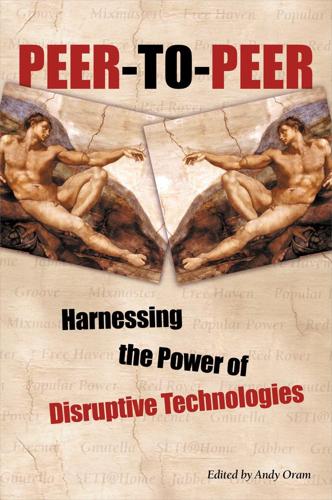
Peer-to-Peer
by
Andy Oram
Published 26 Feb 2001
I would add that, in using that simple, desirable user interface, you also are adding to the value of the database without doing any extra work. I’d like to suggest that one can predict the success of a particular system for building a shared database by how much the database is aided through normal, selfish use. The commons We’ve heard plenty about the tragedy of the commons—in fact, it pops up in several other chapters of this book. In the 1968 essay that popularized the concept, “The Tragedy of the Commons,” Garrett Hardin wrote: Therein is the tragedy. Each man is locked into a system that compels him to increase his herd without limit—in a world that is limited. Ruin is the destination toward which all men rush, each pursuing his own best interest in a society that believes in the freedom of the commons.
…
Without these controls, each user has an incentive to squeeze all the value out of the resource in order to maximize personal gain. If one user has this incentive, so do all the users. Biologist Garrett Hardin labeled this economic plight the "tragedy of the commons.”[44] The “commons” (originally a grazing area in the middle of a village) is any resource shared by a group of people: it includes the air we breathe, the water we drink, land for farming and grazing, and fish from the sea. The tragedy of the commons is that a commonly owned resource will be overused until it is degraded, as all agents pursue self-interest first. Freedom in a commons brings ruin to all; in the end, the resource is exhausted.
…
Chapter 15 begins a series of chapters on the intertwined issues of privacy, authentication, anonymity, and reliability. This chapter covers the basic elements of security, some of which will be well known to most readers, but some of which are fairly novel. It is written by the members of the Publius team. Chapter 16 covers ways to avoid the “tragedy of the commons” in shared systems—in other words, the temptation for many users to freeload off the resources contributed by a few. This problem is endemic to many peer-to-peer systems, and has led to several suggestions for micropayment systems (like Mojo Nation) and reputation systems. The chapter is written by leaders of the Free Haven team.
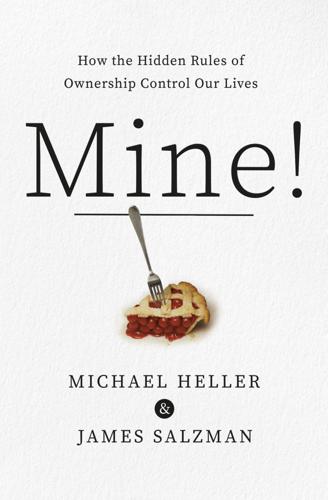
Mine!: How the Hidden Rules of Ownership Control Our Lives
by
Michael A. Heller
and
James Salzman
Published 2 Mar 2021
“It is revolting”: Oliver Wendell Holmes, “The Path of the Law,” Harvard Law Review 10 (1897): 469 “protect private property”: Eskenazi, “Great Sucking Sound.” “We’re dealing with”: Ibid. Notice Pate’s strategy here: See, for example, Eugene Volokh, “Mechanisms of the Slippery Slope,” Harvard Law Review 116 (2003): 1026–137. tragedy of the commons: Garrett Hardin, “The Tragedy of the Commons,” Science 162 (December 1968): 1243–48. “To save our valley”: Boxall, “Overpumping of Central Valley.” When oil was first: Bruce Kramer and Owen Anderson, “The Rule of Capture—an Oil and Gas Perspective,” Environmental Law 35 (2005): 899–954. unitization: Many tools exist to fragment ownership (like subdivision rules for land), but relatively few for re-aggregating them.
…
The ranching and farming lobby brushed aside these reforms, even though, as McBee pointed out, rural residents are the people most threatened by the rule of capture. Rhetorical strategies aside, arguments over groundwater exemplify a recurring challenge for managing scarce resources. In the academic literature, this challenge is known as the tragedy of the commons—and it’s one of the building blocks of modern ownership design. Every farmer knows the race to pump is a losing game, but why sacrifice for the greater good if there’s no guarantee others will do the same? If you try to conserve water and others don’t, then you’re a chump. But if no one conserves, then the farmers destroy the resource for everybody.
…
When oil was first struck in Texas, the state adopted the rule of capture. Each surface owner over a pool of oil could drill a well. Pump it or lose it. This seemed an unsolvable problem, destined for groundwater’s tragic outcome. But oil drillers in many states rapidly sidestepped a tragedy of the commons, not with new technology but through redesigning the meaning of attachment. When oil producers saw oil field pressure drop and wells quickly dry up, they lobbied to create unitization, a new form of oil and gas ownership designed to collect together overly fragmented interests. How does unitization work?
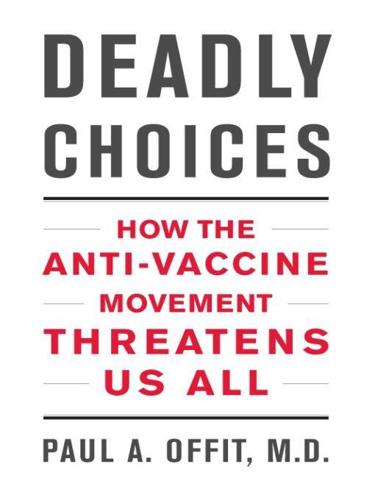
Deadly Choices: How the Anti-Vaccine Movement Threatens Us All
by
Paul A. Offit M.D.
Published 28 Dec 2010
Wolfe, et al., “Impact of Anti-Vaccine Movements on Pertussis Control: The Untold Story,” The Lancet 351 (1998): 356- 361. 144 Garrett Hardin essay: G. Hardin, “The Tragedy of the Commons,” Science 162 (1968): 1243-1248. All Hardin quotes are from this essay. 146 Stephanie Tatel: S. Tatel, “A Pox on You,” http://www.slate.com/toolbar.aspx?action=print&id=2232977. All Tatel quotes are from this essay. 147 Hardin’s second essay: G. Hardin, “Extension of ‘The Tragedy of the Commons,’” Science 280 (1998): 682-683. 9. The Mean Season 150 Jenny McCarthy and Crystal children: J. McCarthy, Louder Than Words: A Mother’s Journey in Healing Autism (New York: Dutton, 2007), 178. 150 Crystal children: D.
…
Table of Contents ALSO BY PAUL A. OFFIT, M.D. Title Page Dedication Epigraph PROLOGUE Introduction CHAPTER 1 - The Birth of Fear CHAPTER 2 - This England CHAPTER 3 - A Crude Brew CHAPTER 4 - Roulette Redux CHAPTER 5 - Make the Angels Weep CHAPTER 6 - Justice CHAPTER 7 - Past Is Prologue CHAPTER 8 - Tragedy of the Commons CHAPTER 9 - The Mean Season CHAPTER 10 - Dr. Bob CHAPTER 11 - Trust EPILOGUE NOTES SELECTED BIBLIOGRAPHY Acknowledgements INDEX Copyright Page ALSO BY PAUL A. OFFIT, M.D. Autism’s False Prophets Vaccinated The Cutter Incident To Maurice Hilleman and Stanley Plotkin, who taught me the beauty of reason and the power of vaccines The judgment of history is without pity.
…
For anti-vaccine activists in England, the freedom to choose had become the freedom to die from that choice. As in nineteenth-century England, the battle to eliminate vaccine mandates in twenty-first-century America would also be fought in legislatures and court-rooms. And the results would be all too similar. CHAPTER 8 Tragedy of the Commons Freedom is the recognition of necessity. —GEORG WILHELM FRIEDRICH HEGEL Parents in nineteenth-century England argued that vaccines were impure or unsafe or an act against nature or God. But their anger wasn’t directed at doctors so much as at government officials who had no right to tell them what to do—no right to tell them what should be injected into their children.
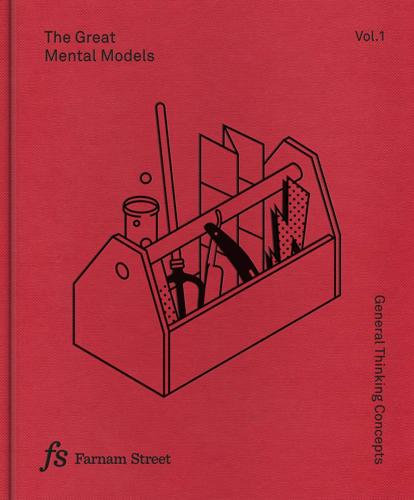
The Great Mental Models: General Thinking Concepts
by
Shane Parrish
Published 22 Nov 2019
When we’re following the map without looking around, we trip right over them. Any user of a map or model must realize that we do not understand a model, map, or reduction unless we understand and respect its limitations. If we don’t understand what the map does and doesn’t tell us, it can be useless or even dangerous. — Sidebar: The Tragedy of the Commons The Tragedy of the Commons The Tragedy of the Commons is a parable that illustrates why common resources get used more than is desirable from the standpoint of society as a whole. Garrett Hardin wrote extensively about this concept. “Picture a pasture open to all. It is to be expected that each herdsman will try to keep as many cattle as possible on the commons.
…
Freedom in a commons brings ruin to all.” 3 What is common to many is taken least care of, for all men have greater regard for what is their own than for what they possess in common with others. –Aristotle Here’s another way to think about it. Economist Elinor Ostrom wrote about being cautious with maps and models when looking at different governance structures for common resources. She was worried that the Tragedy of the Commons model (see sidebar), which shows how a shared resource can become destroyed through bad incentives, was too general and did not account for how people, in reality, solved the problem. She explained the limitations of using models to guide public policy, namely that they often become metaphors.
…
Cambridge: MIT Press, 1996 The Map is not the Territory 1 Lawrence, D.H. Study of Thomas Hardy. Phoenix: The Posthumous Papers of D.H. Lawrence, Edward McDonald, ed. London: William Heinemann, 1936. 2 Korzybski, Alfred. Science and Sanity. New York: Institute of General Semantics, 1933. 3 Hardin, Garrett. The Tragedy of the Commons, Science, 13 December 1968, vol. 162, pp. 1243-48 4 Ostrom, Elinor. Governing the Commons: The Evolution of Institutions for Collective Action. UK: Cambridge University Press, 1990. 5 Box, George E P. Ibid. 6 Nassar, Issam. Early Local Photography in Palestine: The Legacy of Karimeh Abbud.
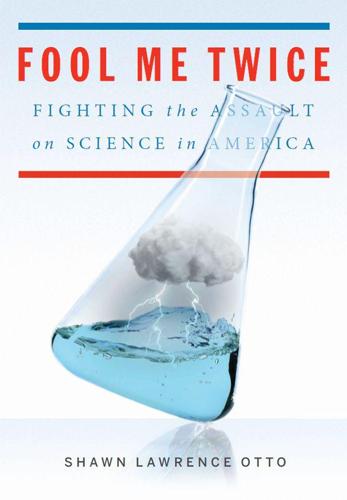
Fool Me Twice: Fighting the Assault on Science in America
by
Shawn Lawrence Otto
Published 10 Oct 2011
At the center of many of the arguments over proposed solutions to environmental problems associated with increasing population and industrial development are differing views of how individuals and freedom relate to regulation and the commons—the common property of humankind. These questions are central to the relationship between science and democracy itself. THE TRAGEDY OF THE COMMONS In December of 1968, a little-known University of California Santa Barbara biologist named Garrett Hardin published a paper in Science that would change the way we look at economics. The core dilemma it identified, which came to be called “the tragedy of the commons” after the paper’s title, lies at the heart of the unresolved environmental challenges of the twentieth century, among them climate change, ocean acidification, overfishing, biodiversity loss, habitat fragmentation, overdevelopment, pollution, exploding population, and unsustainable energy use, to name a few.
…
Hardin concluded that in this circumstance, “each man is locked into a system that compels him to increase his herd without limit—in a world that is limited. Ruin is the destination toward which all men rush, each pursuing his own best interest in a society that believes in the freedom of the commons. Freedom in a commons brings ruin to all.” FREEDOM VERSUS TYRANNY The simple dilemma that drives the tragedy of the commons is writ large in the greatest political argument of our time: the clash between individualism and collectivism. In the political realm this first became a clash between capitalism and communism and more recently one between supercapitalist anarchy and democratic socialism. Politics is narrative, and every narrative argument has an underlying value that is at stake.
…
What is the proper equilibrium between my individual rights and the rights of the collective of everyone else—now and into the future? How do we balance freedom and our rights to the commons? TODAY’S HERDSMEN Because we have a limited planet, today’s herdsmen—nation-states, supranational corporations, and individuals—all have powerful economic incentives to pursue their rational self-interests until the tragedy of the commons occurs on a global scale. This is the nature of a boom or a bubble, but the assumption of limitless growth is what our economic model is based on. The purpose of democracy is to find a balance that protects the equal rights of all individuals by using the antiauthoritarian rule of law, regulation, and the vote to maximize the overall level of freedom and minimize the might makes right of tyranny.

Mindware: Tools for Smart Thinking
by
Richard E. Nisbett
Published 17 Aug 2015
Otherwise we risk spending large amounts of money to carry out some regulation resulting in a trivial increase in the number of quality years of human life while failing to spend a modest amount of money to increase the number of quality years of human life by hundreds of thousands. The Tragedy of the Commons A problem for cost-benefit theory is that my benefit can be your cost. Consider the well-known tragedy of the commons.10 There is a pasture that is available to everyone. Each shepherd will want to keep as many sheep in the pasture as possible. But if everyone increases the number of sheep in the pasture, at some point overgrazing occurs, risking everyone’s livelihood.
…
My pursuit of my self-interest combined with everyone else’s pursuit of their self-interest results in ruin for us all. Enter government, either self-organized by the affected parties themselves or imposed by an external agent. The shepherds must agree to limit the number of sheep each is allowed, or a government of some kind must establish the limits. Pollution creates a similar tragedy of the commons. I greatly enjoy my plane travel, my air-conditioning, and my automobile trips. But this makes everyone’s environment more dangerous and unpleasant by increasing the pollutants in the air and ultimately by changing the climate of the earth in potentially disastrous ways. These negative externalities, as economists refer to them, harm everyone on the planet.
…
Calculations of the value of a human life are repellent and sometimes grossly misused, but they are often necessary nonetheless in order to make sensible policy decisions. Otherwise we risk spending great resources to save a few lives or fail to spend modest resources to save many lives. Tragedies of the commons, where my gain creates negative externalities for you, typically require binding and enforceable intervention. This may be by common agreement among the affected parties or by local, national, or international agencies. 5. Spilt Milk and Free Lunch Have you ever walked out of a restaurant without finishing a meal you had paid for because you didn’t particularly like it?
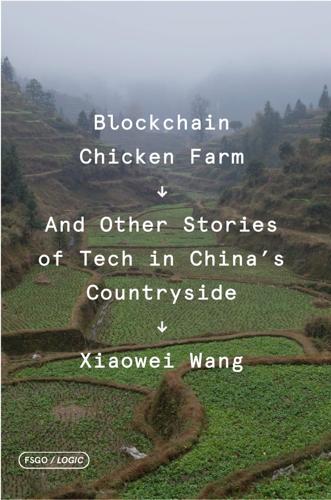
Blockchain Chicken Farm: And Other Stories of Tech in China's Countryside
by
Xiaowei Wang
Published 12 Oct 2020
The idea that life is “nasty, brutish, and short” comes from the political and moral philosophy of Thomas Hobbes, who argued that a strong, authoritarian government is needed to curb the selfish instinct that lives in all of us. A few hundred years later, the “tragedy of the commons” concept would solidify Hobbes’s thinking as scientific. Many crypto and blockchain enthusiasts will cite this concept often and candidly. The concept of the tragedy of the commons was popularized in 1968 by the ecologist Garrett Hardin, who also argued that the overpopulation of the earth would lead to disaster because of finite resources. Hardin’s tragedy of the commons was the condition where individual users, motivated by their own self-interest, ruin a shared resource system for everyone.
…
Hardin gave the example of herders who, caring only about the survival of their own herds, destroyed pastures by overgrazing common land. Like his theories on overpopulation, Hardin’s tragedy of the commons was later exposed as deeply problematic, as politics disguised as science. His scientific ideas stemmed from his racist, eugenicist beliefs as a white nationalist, and many of the groups he saw as unable to manage shared resources were in non-Western countries.5 And setting aside Hardin’s political ideologies, the tragedy of the commons theory is just plain wrong. The concept was disproved with in-depth data and careful science in 1990 by Elinor Ostrom, who would be awarded a Nobel Prize for her work.
…
The concept was disproved with in-depth data and careful science in 1990 by Elinor Ostrom, who would be awarded a Nobel Prize for her work. However, since Hardin was an ecologist, the tragedy of the commons became naturalized, seen as neutral science rather than political belief. In reality, Hardin’s ideas were based on terrifying assumptions, a world in which human nature and natural resources were static, finite, and fixed. Despite Ostrom’s work, the belief in innate human selfishness in a world of scarcity had become ingrained outside of ecology—in fields like information science and economics.6 This belief in selfishness and scarcity is one of the core ideologies that gave rise to blockchain.
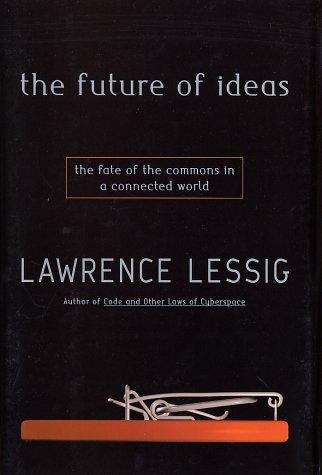
The Future of Ideas: The Fate of the Commons in a Connected World
by
Lawrence Lessig
Published 14 Jul 2001
But the two together organize the argument that follows. They are building blocks to an end that will help reveal the Internet's effect on society. IF YOU'VE used the word commons before, you're likely to think of a park, as in the Boston Common. If you've studied economics or political science, your mind will race to tragedy (as in “the tragedy of the commons"). Both senses are related to what I mean, but neither alone is enough.1 The Oxford English Dictionary (mankind's first large-scale collaborative open source text project)2 equates the “commons” to a resource held “in common.” That it defines as “in joint use or possession; to be held or enjoyed equally by a number of persons.”3 In this sense, a resource held “in common” is “free” (as I've defined that term) to those “persons.”
…
But I must worry as well that others not deplete the resource that I've produced. If a rivalrous resource is open to all, there is a risk that it will be depleted by the consumption of all. This depletion of a rivalrous resource is the dynamic that biologist Garrett Hardin famously termed “the tragedy of the commons.”7 “Picture a pasture open to all,” Hardin writes, and consider the expected behavior of “herdsmen” who roam that pasture. Each herdsman must decide whether to add one more animal to his herd. In making a decision to do so, Hardin writes, the herdsman reaps a benefit, while everyone else suffers.
…
The Net of these norms and this architecture is a space where creativity can flourish. Yet so blind are we to the possible value of a commons that we don't even notice the commons that the Internet is. And, in turn, this blindness leads us to ignore changes to the norms and architecture of the Net that weaken this commons. There is a tragedy of the commons that we will identify here; it is the tragedy of losing the innovation commons that the Internet is, through the changes that are being rendered on top.11 LAYERS THE IDEA of the commons may be obscure, but the notion of “layers” is more easily recognized. The layers that I mean here are the different layers within a communications system that together make communications possible.
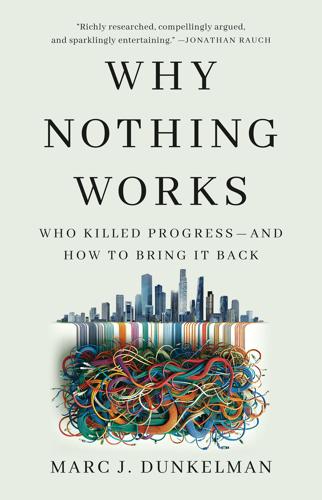
Why Nothing Works: Who Killed Progress--And How to Bring It Back
by
Marc J Dunkelman
Published 17 Feb 2025
Classification: LCC JK275 .D86 2025 | DDC 324.2732/7—dc23/eng/20241126 LC record available at https://lccn.loc.gov/2024031101 ISBNs: 9781541700215 (hardcover), 9781541700246 (ebook) E3-20241209-JV-NF-ORI CONTENTS Cover Title Page Copyright Dedication Epigraph Introduction 1 Servant or Master of the Public? 2 The Price of Progress 3 Bodies on the Machine 4 Manacling the Octopus 5 More Harm Than Good 6 No Place to Call Home 7 The Bridge to Nowhere 8 A Tragedy of the Commons in Reverse Conclusion: Full-Circle Progressivism Acknowledgments Discover More About the Author Also by Marc J. Dunkelman Praise for Why Nothing Works Notes For Emilia, Helen, and, of course, Kathryn Explore book giveaways, sneak peeks, deals, and more. Tap here to learn more.
…
The first of the two is framed by the misery born of chaos—a narrative steeped in our images of tenement-dwelling immigrants, of the “Okies” making their way west in John Steinbeck’s The Grapes of Wrath, of New Orleanians stranded after Katrina, of children starving in refugee camps, of polar bears trapped on melting icebergs. In the face of these privations, progressives rue the absence of authority—they long for a heroic figure equipped to save the day. Set amid various tragedies of the common, progressivism’s first narrative dreams of pulling power up and into a node of authority equipped to make things better from above.17 A relief agency, a benevolent bureaucracy, a Herbert Hoover in Belgium, a Mother Teresa in Calcutta, an Admiral Thad Allen in Louisiana.18 The second narrative is born not from chaos but from tyranny.
…
But he didn’t think much of Arthur Morgan’s hope that sprinkling new electricity on the region would reinvigorate nineteenth-century southern gentility.20 As Lilienthal saw it: “We cannot return to a simpler standard of living, for that is to begin a retreat.”21 The Tennessee Valley was trapped in a tragedy of the commons, and he intended to use the TVA to lift the region out of that broader morass. The tension, like so many disputes between and among progressives before and after, was a microcosm of the movement’s efforts to balance its Jeffersonian and Hamiltonian instincts. Lilienthal, whom many viewed as an acolyte of Louis Brandeis, paid a certain lip service to decentralization, arguing, for example, that “the citizens’ participation in the exercise of centralized authority must be increased.”
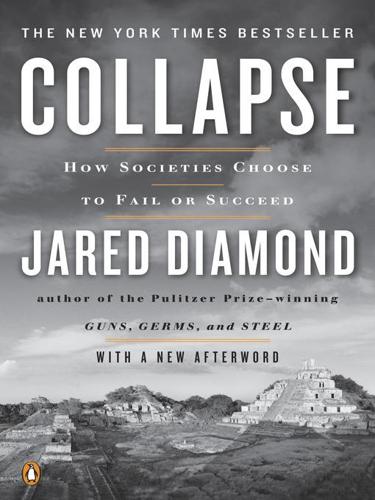
Collapse: How Societies Choose to Fail or Succeed
by
Jared Diamond
Published 2 Jan 2008
Tikopia Island bottom-up management in clans on food production on human impact on environment in isolation of land ownership on Lapita people of population density of population management on rainforest of settlement of sustainable economy of timber industry, see forests Tin Cup Dam, Montana Tiwanaku collapse Tokugawa era, see Japan Tonga top-down environmental management China Dominican Republic Inca Empire Tokugawa-era Japan and tragedy of the commons Totman, Conrad toxic chemicals toxic wastes, in mining industry trade, friendly partners in tragedy of the commons tree ring studies (dendrochronology) trouble spots (map) Trout Unlimited Trujillo, Rafael Tuamotu Archipelago Tuchman, Barbara turf cutting Tutsi people Ulfsson, Gunnbj��rn Unilever Corporation Union Carbide, Bhopal Union Oil, oil spill by United Nations Conference on the Human Environment values: clashes of moral in problem-solving undermining of Van Devender, Tom Van Tilburg, Jo Anne Varangians Vargas, Patricia Venezuela, natural gas from Vikings agriculture of archaeological studies of comparative studies of cultural legacy of deforestation by emergence of expansion waves of iron used by North Atlantic colonies of North Atlantic map as raiders religion of social system of written accounts of Vinland: abandonment of Indian populations of natural resources of Viking colony in warfare cannibalism in false analogy in water: aquifers and dams desalinization of desertification and drought and global warming for irrigation, see irrigation management of osmotic pressure of overallocated plankton in quality of reservoirs river flow stoppages of saline seep of; see also salinization from snowmelt temperatures of uses of in wells wetland destruction water cycle Waterman, Robert Jr.
…
Any people can fall into the trap of overexploiting environmental resources, because of ubiquitous problems that we shall consider later in this book: that the resources initially seem inexhaustibly abundant; that signs of their incipient depletion become masked by normal fluctuations in resource levels between years or decades; that it’s difficult to get people to agree on exercising restraint in harvesting a shared resource (the so-called tragedy of the commons, to be discussed in later chapters); and that the complexity of ecosystems often makes the consequences of some human-caused perturbation virtually impossible to predict even for a professional ecologist. Environmental problems that are hard to manage today were surely even harder to manage in the past.
…
For that and other reasons, the real control of Japan’s forests fell increasingly into the hands of people with a vested long-term interest in their forest: either because they thus expected or hoped their children would inherit the rights to its use, or because of various long-term lease or contract arrangements. For instance, much village common land became divided into separate leases for individual households, thereby minimizing the tragedies of the common to be discussed in Chapter 14. Other village forests were managed under timber sale agreements drawn up long in advance of logging. The government negotiated long-term contracts on government forest land, dividing eventual timber proceeds with a village or merchant in return for the latter managing the forests.
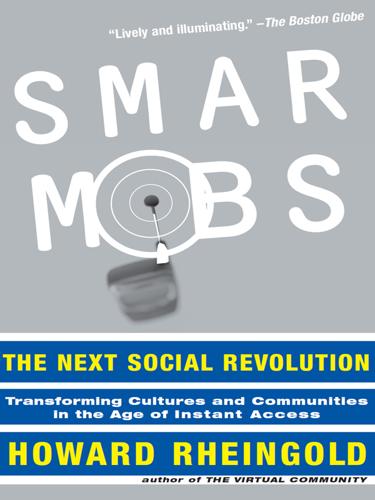
Smart Mobs: The Next Social Revolution
by
Howard Rheingold
Published 24 Dec 2011
The temptation to graze more than one’s share is a rational strategy for an individual herder. But if everyone succumbs to the same temptation, the grass ceases to grow, and the value of the pasture disappears.” I recognized this as the situation Garrett Hardin named in a much-debated article titled “The Tragedy of the Commons,” in which Hardin concluded: “Therein is the tragedy. Each man is locked into a system that compels him to increase his herd without limit—in a world that is limited. Ruin is the destination toward which all men rush, each pursuing his own best interest in a society that believes in the freedom of the commons.
…
Freedom in a commons brings ruin to all.”6 Hardin’s article provoked a debate that continues to this day: In the face of temptation to behave selfishly, how do people manage to cooperate? Is it necessary to curtail their freedom through some kind of regulatory authority? The debate surrounding Hardin’s tragedy of the commons is a contemporary reprise of an older philosophical conflict. In 1660, Thomas Hobbes argued that humans are so competitive that the only way we can cooperate is for a more powerful competitor to impose a truce. Hobbes called this coercive authority Leviathan; subsequently, this logic supported arguments for a strong sovereign.7 In conflicts over the provision or consumption of common resources, arguments continue to focus on the polarized viewpoints of centralized governmental regulation and decentralized, market-based self-regulation.
…
Huber-man report that Gnutella has a significant amount of free riding in its system: Nearly 70 percent of Gnutella users share no files, and nearly 50 percent of the system’s resources are contributed by the top 1 percent of users. The architecture of the system allows for anonymity and decentralized control, but it does not structurally encourage cooperation, rendering it vulnerable to the “tragedy of the commons.”30 The question that remains: Does p2p technology enable people to build public goods that can withstand large amounts of free riding, or will free riding end up destroying the p2p cornucopia? Jim McCoy, founder and CEO of Mojo Nation, set out to create a filesharing system that added three important new features: First, cooperation is structurally encouraged by requiring users to contribute at least as much as they take away; second, not only are queries anonymous, but nobody knows where specific files are stored; third, the “swarm distribution” model breaks up files into large numbers of small segments, distributed throughout the network.
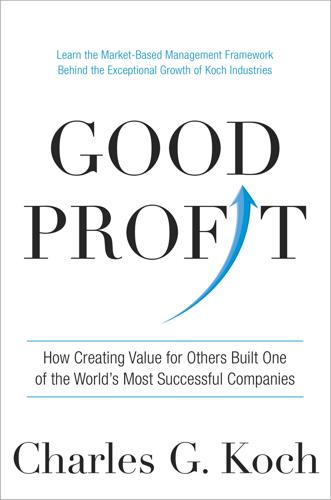
Good Profit: How Creating Value for Others Built One of the World's Most Successful Companies
by
Charles de Ganahl Koch
Published 14 Sep 2015
The point is that when no one owns or sufficiently benefits by conserving a resource, no one takes responsibility for it, and the resource tends to be used inefficiently, overused, or even extinguished. Many of the things that go wrong or opportunities that go unrealized in business are a result of the tragedy of the commons—shared areas with unclear (or nonexistent) demarcation of responsibilities. At Koch, we use decision rights to replicate the benefits and responsibilities of property rights in society. Just as we think of employees as entrepreneurs at Koch, we think of decision rights as property rights in the organization. A gut-wrenching real-life example of the tragedy of the commons was the 2010 Deepwater Horizon incident in the Gulf of Mexico, caused by a blowout and explosion in the Macando well that was drilled for British Petroleum by a rig owned and operated by Transocean.
…
While this is generally true, it is more accurate to say that the person with the comparative advantage should make the decision, which is the subject of the next chapter. CHAPTER 9 Decision Rights PROPERTY RIGHTS INSIDE THE ORGANIZATION Men pay most attention to what is their own; they care less for what is common….[They] are more prone to neglect their duty when they think that another is attending to it. —ARISTOTLE1 THE TRAGEDY OF THE COMMONS When I was a grad student in Cambridge I rented an apartment on Trowbridge Street with two roommates. This apartment didn’t have a single right angle in it, and it was in a tough neighborhood. I once had to flee an attempted mugging while walking home alone at night. Renters in the building were supposed to carry their trash down to the garbage cans in the alley via the fire escape on the side of the building.
…
Even if an upstanding renter (ahem) wanted to dispose of his garbage properly, there was no way to walk through that alley, because of the trash pileup. None of us owned this alley or had the power to stop others from trashing it. So none of us took care of it. This is an example of what is called the “tragedy of the commons.” Ecologist Garrett Hardin coined that phrase to describe what happens when herdsmen graze animals on shared grazing land, referred to as the commons.2 A rational herdsman will add as many animals as he can graze, because he receives all the proceeds when the additional animals are fed, and later sold, but he bears almost none of the cost of grazing—until the commons is depleted.
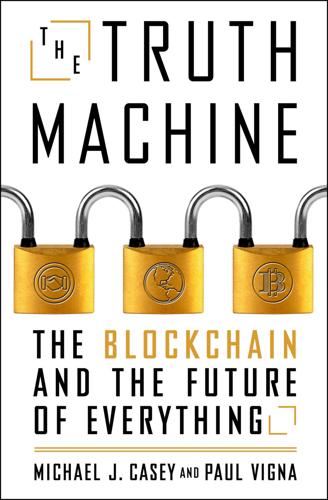
The Truth Machine: The Blockchain and the Future of Everything
by
Paul Vigna
and
Michael J. Casey
Published 27 Feb 2018
Just as Bitcoin’s protocol steers users and participants into certain actions that serve the community’s interest—in its case, creating a secure, reliable ledger that all can trust—the programs that run tokens incorporate incentives and constraints that encourage certain pro-social behavior. A new concept—token economics—is emerging. It encapsulates the idea that we can embed into these “programmable” forms of money a way to steer communities toward desired common outcomes. Tokens might help us solve the Tragedy of the Commons. In other words, they could be a big deal. The Tragedy of the Commons concept stems from a 1968 essay by the ecologist Garrett Hardin. Hardin tells the story of nineteenth-century farmers over-grazing the public land they shared because none of them could trust their counterparts not to let their livestock eat more than their fair share.
…
Perhaps inevitably, consumers are turning to ad-blocking software: “Basic Asset Token (BAT): Blockchain Based Digital Advertising,” May 29, 2017, p. 9, https://basicattentiontoken.org/BasicAttentionTokenWhitePaper-4.pdf. The idea is to create price signals: ibid. The Tragedy of the Commons concept stems from a 1968 essay: Garrett Hardin, “The Tragedy of the Commons,” Science, December 13, 1968, 162 (3859): pp. 1243–1248. The Economist described as a twenty-first-century resource: “The World’s Most Valuable Resource Is No Longer Oil, But Data,” The Economist, May 6, 2017, https://www.economist.com/news/leaders/21721656-data-economy-demands-new-approach-antitrust-rules-worlds-most-valuable-resource.
…
So, whereas those entities always struggled to compete for engineering talent with for-profit creators of the Internet’s commercial applications, platforms like Ethereum can now attract the best of the best. They can quickly tap into a “hive mind” of creative power across a global network of open-source coder communities. This speaks to our broader notion that tokens, by incentivizing the preservation of public goods, might help humanity solve the Tragedy of the Commons, a centuries-in-the-making shift in economic reality. Though it is still tiny in comparison to traditional capital markets and will no doubt look quite different if and when the bubble bursts, this ecosystem of tokens and open platforms is starting to look like the map of a new, decentralized economic future.

Green and Prosperous Land: A Blueprint for Rescuing the British Countryside
by
Dieter Helm
Published 7 Mar 2019
While this might be true, the loss of the machair habitat and its ecosystem does matter, and preserving the great yellow bumblebee would require preserving the machair. Goulson, D., Bee Quest, London: Vintage, 2017. 2 The ‘tragedy of the commons’ arises because, for a commonly owned natural asset, each commoner (a grazier on land or a fisher at sea) will always have an incentive to add more cattle or take more fish, even though if they all do this the result will be to destroy the asset. This theory was originally set out in Hardin, G., ‘The Tragedy of the Commons’, Science, 162, 1968, pp. 1243–8. 3 Peat loss in the Fens has been estimated at between 1.5 and 2.1 cm per year. Holman, I. P., ‘An Estimate of Peat Reserves and Loss in the East Anglian Fens’, Cranfield University, October 2009, commissioned by the RSPB. 4 National Infrastructure Commission, ‘National Infrastructure Assessment’, July 2018.
…
Stopping the damage by reducing grazing intensity would increase the economic value of the uplands, and if the subsidies went towards public goods instead, the economic prosperity of the hill farmers would improve. They are trapped in a system that keeps many of them both poor and marginal. Stopping overfishing, particularly of shellfish, around our coasts improves the value of the fisheries, and helps to solve the classic free-rider problem that the ‘tragedy of the commons’ reflects.2 It will increase fish stocks generally inside and outside the protected areas. Unregulated fishing is a disaster for the industry and the public and, as with the upland farmers, inshore-water fishers do not come off well. They are at the economic margins. The economic prosperity of coastal communities is much more about services, tourism and amenities, and these in turn improve the health of the population.
…
Add on recent information technologies and now the fish literally have no place to hide. Where once a skilled fisherman read the signs of the sea, such as the seabirds, and knew the nature of the seabed and the fishing grounds, now a sonar can detect the fish and they can be caught with surgical precision. Since the seas are a form of ‘commons’ they are vulnerable to the tragedy of the commons – and they have been.15 In a free-for-all there is always the incentive to catch the marginal fish, even if it pushes the stocks below the renewables thresholds, because everyone else has the same incentives. Nobody pays for the damage that repeated scouring of the seabed causes. The polluters, those who trash the sea floor, do not pay to restore it.
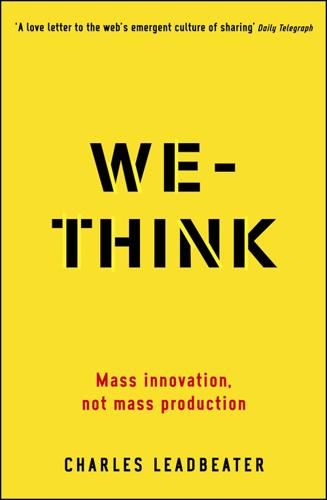
We-Think: Mass Innovation, Not Mass Production
by
Charles Leadbeater
Published 9 Dec 2010
Something that is everyone’s property fast becomes no one’s property and so gets abused. As soon as that possibility rears its head, everyone using the commons sees no reason to restrain their use. It is argued that the only ways to avoid this ‘tragedy of the commons’23 are to fence the commons into pieces of private property that people look after or to place the whole thing into state ownership. This ‘tragedy of the commons’ argument is currently being used by media, music and film companies to fence round the cultural commons of the web. Open access is perceived as leading to abuses, such as rampant file-sharing and the stealing of software.
…
Urban consumers got cheaper food as agricultural productivity increased. The peasants who used to graze their cattle on the common land lost out, but their descendants became farm-hands or factory workers.20 The example of the English countryside in the 15th century is now being applied to the 21st-century digital economy. The ‘tragedy of the commons’ argument is sanctioning the spread of private property into our shared intellectual and cultural life. A framework of legal fences, traps and gateways is being proposed in the US and Europe, backed by big companies. Patents are being stretched to apply to ideas, concepts, methods, collections of facts and other aspects of intellectual and cultural life that have hitherto been beyond the reach of private property.
…
Available from http:// www.msnbc.msn.com/id/12015774/site/newsweek 16 Fred Turner, From Counterculture to Cyberculture (Chicago, IL/London: University of Chicago Press, 2006) 17 Patrice Flichy, The Internet Imaginaire (Cambridge, MA: MIT Press, 2007) 18 Charles Leadbeater, ‘The DIY State’, Prospect 130, January 2007 19 Fred Turner, op. cit. 20 John Markoff, What the Dormouse Said: How the Sixties Counterculture Shaped the Personal Computer Industry (Penguin, 2006) 21 Patrice Flichy, The Internet Imaginaire (Cambridge, MA: MIT Press, 2007) 22 Jonathan Lethem, ‘The Ecstasy of Influence’, Harper’s Magazine, February 2007 23 Garrett Hardin, ‘The Tragedy of the Commons’, Science 162 (1968), pp. 1243–48 24 Elenor Ostrom, Governing the Commons (Cambridge University Press, 1990) 25 Lawrence Lessig, Code and Other Laws of Cyberspace (New York, NY: Basic Books, 1999) and Free Culture (New York, NY: Penguin Press, 2004) 26 Melvyn Bragg, The Routes of English (BBC Factual and Learning, 2000); Melvyn Bragg, The Adventure of English (Hodder & Stoughton Ltd, 2003) 27 Jonathan Lethem, ‘The Ecstasy of Influence’, Harper’s Magazine, February 2007 28 Cory Doctorow et al., ‘On “Digital Maoism: The Hazards of the New Online Collectivism” By Jaron Lanier’, Edge (2006). http://www.edge.org/discourse/digital_ maoism.html 29 Paul A.
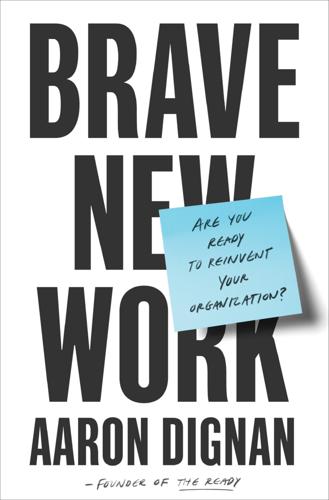
Brave New Work: Are You Ready to Reinvent Your Organization?
by
Aaron Dignan
Published 1 Feb 2019
Company to company. Team to team. And before you jump to the conclusion that relative performance might apply person to person, I’ll save you the stress. The Beyond Budgeting folks believe that individual performance doesn’t really exist. Performance is a team sport. The “Tragedy” of the Commons. You may have heard about the tragedy of the commons, the idea that when we share a public resource, we ruin it by acting in our own self-interest. Your office refrigerator is a classic example. Why won’t anyone throw away their expired and rotting food! Who is stealing yogurts that don’t belong to them? And so on.
…
$1.2 billion a year: Hope and Fraser, “Who Needs Budgets?” “Budgets also sub-optimize performance”: Steve Morlidge, The Little Book of Beyond Budgeting (Leicestershire, UK: Matador, 2017), 19. “The strength of polycentric governance”: John Tierney, “The Non-Tragedy of the Commons,” TierneyLab (blog), The New York Times, October 15, 2009, https://tierneylab.blogs.nytimes.com/2009/10/15/the-non-tragedy-of-the-commons. budgets that persist year after year: David Kesmodel, “Meet the Father of Zero-Based Budgeting,” The Wall Street Journal, March 26, 2015, www.wsj.com/articles/meet-the-father-of-zero-based-budgeting-1427415074. whole new level of engagement: Cobudget, accessed September 1, 2018, https://cobudget.co/#; Participatory Budget Project, accessed September 1, 2018, www.participatorybudgeting.org; “Enspiral Handbook,” Enspiral, accessed September 1, 2018, https://handbook.enspiral.com.
…
By now this should sound familiar (albeit a bit technical). When teams have the right (and the inclination) to experiment with their own rules and norms, they can find ways to collaboratively leverage and preserve resources. If “our money” really were our money, who knows how well we could deploy it in service of our collective purpose? The tragedy of the commons is that we think we can’t share. Resources in Action Zero-Based Zephyr. Zero-based budgeting originated in the 1970s as a way of challenging the inertia of bloated budgets that persist year after year. The idea was to build your budget up from zero, questioning everything as you go.
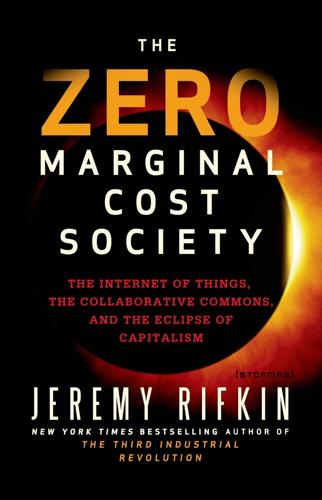
The Zero Marginal Cost Society: The Internet of Things, the Collaborative Commons, and the Eclipse of Capitalism
by
Jeremy Rifkin
Published 31 Mar 2014
Unfortunately, in modern times, its reputation has been tarnished, first by Enlightenment philosophers and, more recently, by conventional economists committed to replacing it with a ubiquitous private property regime and market exchange model. Likely the most well-known contemporary depiction of the Commons—albeit a thoroughly negative one—is Garrett Hardin’s essay entitled “The Tragedy of the Commons,” which appeared in the journal Science in 1968. A professor of ecology at the University of California, Santa Barbara, Hardin posed the hypothetical situation of a pasture “open to all.” Each herder benefits from grazing as many cows on the pasture as he can. Yet he suffers the negative consequences of a deterioration of the pasture if every other herder attempts to optimize his benefits by similarly grazing as many cows as they can on the same open pasture.
…
Each man is locked into a system that compels him to increase his herd without limit—in a world that is limited. Ruin is the destination toward which all men rush, each pursuing his own best interest in a society that believes in the freedom of the commons. Freedom in a commons brings ruin to all.1 Even if the open pasture was being taken care of by some of the herders, the tragedy of the Commons could not be prevented because of the “free riders dilemma.” That is, if the pasture were open to everyone, then free riders would take advantage of the good will of others, who were attempting to steward the resources, by grazing more of their herd without contributing to the general effort of taking care of the pasture.
…
However, it omitted the most salient factors of the Commons model that allowed it to persevere over eons of history—that is, the self-regulating, self-enforcing protocols and accompanying punishments agreed to by its members as a condition of participation. Without those protocols and punishments, the tragedy of the Commons is likely, if not inevitable. In other words, Hardin left out governance. What I find so strange is that Hardin chose to cast the Commons as the villain responsible for the unleashing of wanton greed and destruction in the modern era. In fact, it was the excesses of a market-driven capitalist system motivated by the dogged pursuit of profit and abetted by the heavy hand of government-directed colonial and neocolonial policies that led to the pillage of resources and the wholesale exploitation of humanity in the developing world over the course of the eighteenth, nineteenth, and twentieth centuries.
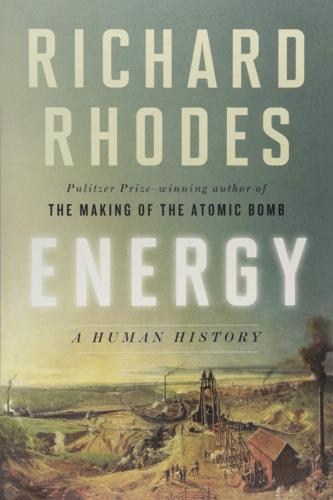
Energy: A Human History
by
Richard Rhodes
Published 28 May 2018
This common-law principle, called the rule of capture, establishes a condition that the biologist Garrett Hardin, in a historic 1968 paper in the journal Science, called “The Tragedy of the Commons.”33 The tragedy of the commons—of any resource held in common by a community—is that each user is motivated to use as much of the resource as possible without regard for its depletion or despoiling. With petroleum, the tragedy of the commons meant that each well owner was motivated to pump as much oil as possible as quickly as possible, before other wells drained away the common supply. “Ruin is the destination toward which all men rush,” Hardin warned, “each pursuing his own best interest in a society that believes in the freedom of the commons.
…
She grew up in Venango County, attended high school in Titusville, and saw the negligence that the law of capture encouraged. “If oil was found,” she wrote in her autobiography, “if the well flowed, every tree, every shrub, every bit of grass in the vicinity was coated with black grease and left to die. Tar and oil stained everything.”35 The tragedy of the commons that Tarbell witnessed was local, but the pollution attending the production of petroleum extended far beyond the oil fields themselves. By 1870, investment in the US oil industry had reached $200 million, the equivalent of almost $4 billion today. Annual production in Pennsylvania alone totaled more than 4.8 million barrels.
…
They ran off the volatile lighter distillates—gasoline in particular—into pits or onto open ground to evaporate. Or they flushed them into creeks and rivers to join the industrial and slaughterhouse waste and raw sewage fouling American waterways. Rivers ran opalescent with them; creeks burst into flame. It remained for the next century to confront the tragedy of the commons on a national and then an international scale. But first technology would confront the challenge of transmitting power at a distance, and a competition would emerge between competing forms of electricity. * * * I. “Crank”: a nautical term for top-heavy. II. Knots—nautical miles—are sea measures of time and distance combined; 1 knot equals 1.15 miles per hour.
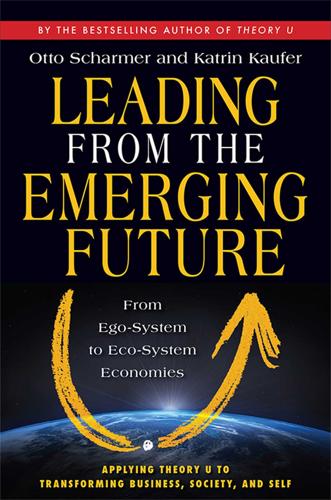
Leading From the Emerging Future: From Ego-System to Eco-System Economies
by
Otto Scharmer
and
Katrin Kaufer
Published 14 Apr 2013
Instead, what we often observe in current reality is a disconnect between reality and awareness; that is, between an eco-system-centric global economy and an ego-system-centric awareness of institutional decision-makers. The result is a war of the parts against the whole. We see the impact of this disconnect, for example, in the dramatic overuse of scarce resources, which is often spoken of as “the tragedy of the commons.”12 Bridging the gap between eco-system reality and ego-system awareness is the main challenge of leadership today. Decision-makers across the institutions of a system have to go on a joint journey from seeing only their own viewpoint (ego-awareness) to experiencing the system from the perspective of the other players, particularly those who are most marginalized.
…
As a consequence, we are increasingly hitting the limits to consumerism, a problem that calls for reconnecting the economic process with the deep sources of happiness and well-being. 7. The governance disconnect. As a global community, we are unable to address the most pressing problems of our time because our coordination mechanisms are decoupled from the crisis of common goods. Markets are good for private goods, but are unable to fix the current tragedy of the commons. As a consequence, we are increasingly hitting the limits to competition. We need to redraw the boundary between cooperation and competition by introducing, for example, premarket areas of collaboration that enable innovation at the scale of the whole system. 8. The ownership disconnect.
…
The societal response to these negative externalities resulted in a set of institutional innovations that reflected the interests of other stakeholders (examples include social security, public education, environmental legislation, building codes, and public-private partnerships). Yet none of these Economy 3.0 innovations could prevent what we are facing today: the three major divides that have emerged directly from the tragedy of the commons, which could also be called the tragedy of common pool resources.67 These common pool resources include ecological commons such as water, topsoil, clean air, energy, and seed; social commons such as trust, software, and social networks; and cultural commons such as knowledge, wisdom, and learning infrastructures.

Exponential: How Accelerating Technology Is Leaving Us Behind and What to Do About It
by
Azeem Azhar
Published 6 Sep 2021
i=1000510469428> [accessed 5 April 2021]. 39 will.i.am, ‘We Need to Own Our Data as a Human Right—and Be Compensated for It’, The Economist, 21 January 2019 <https://www.economist.com/open-future/2019/01/21/we-need-to-own-our-data-as-a-human-right-and-be-compensated-for-it> [accessed 18 October 2020]. 40 Martin Tisné, ‘It’s Time for a Bill of Data Rights’, MIT Technology Review, 14 December 2018 <https://www.technologyreview.com/2018/12/14/138615/its-time-for-a-bill-of-data-rights/> [accessed 8 October 2020]. 41 Garrett Hardin, ‘The Tragedy of the Commons’, Science, 162(3859), 1968, pp. 1243–1248 <https://doi.org/10.1126/science.162.3859.1243>. 42 For a good discussion of Hardin and Ostrom’s relative contributions to this debate, see Brett Frischmann, Alain Marciano and Giovanni Battista Ramello, ‘Retrospectives: Tragedy of the Commons after 50 Years’, Journal of Economic Perspectives, 33(4), 2019, pp. 211–228 <https://doi.org/10.1257/jep.33.4.211>. 43 Carol Rose, ‘The Comedy of the Commons: Custom, Commerce, and Inherently Public Property’, The University of Chicago Law Review, 53(3), 1986.
…
Even on the left, though, the basic logic of the market/state binary is accepted – progressives just have a more optimistic view of government. The trouble is, this dichotomy is flawed. It conceals other, often more productive, ways of organising our lives. One contemporary of Friedman’s, Garrett Hardin, became famous for a 1968 essay called ‘The Tragedy of the Commons’, which mournfully argues that any resource that is freely available will be overused.41 The commons are the things that are shared communally – the fish in international waters, or a forest that is shared between a community. And, according to Hardin, they are ripe for over-exploitation.
…
The best example of such a peer-based commons is Wikipedia: it is visited by more than a billion of us every month, and edited through the collective goodwill of more than 120,000 volunteers. Wikipedia thrives on each participant’s commitment to a particular approach to information, a shared sense of mission, and trust that conflicts will be resolved through community-led arbitration. These examples, far from being a tragedy of the commons, bring enormous social benefits. We can think of them, in the words of legal scholar Carol Rose, as a ‘comedy of the commons’.43 In many cases, commons-based projects have proven to be more successful than commercial ones. And as more domains of the world fall to exponential technologies, the potential of moving industrial activities to the commons increases.
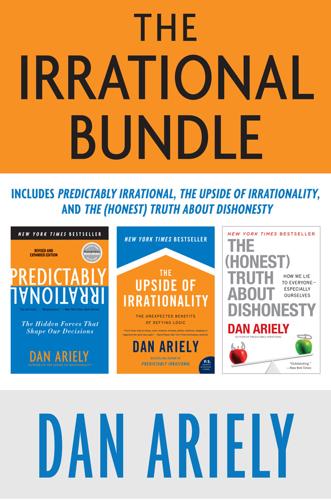
The Irrational Bundle
by
Dan Ariely
Published 3 Apr 2013
To us, this looked like evidence of deep mistrust. The Tragedy of the Commons Trust, like money, is a crucial lubricant for the economy. When people trust other people, a merchant, or a company, they are more likely to buy, lend, and extend credit. In the old days, business was conducted on a gentleman’s handshake. But when the handshake results in a swindle, trust disappears and all subsequent transactions—whether between cheaters or the genuinely good-hearted—become more difficult. A good analogy for social distrust can be found in the “tragedy of the commons.” This phrase can be traced back to Oxford professor William Forster Lloyd, who described the phenomenon in his 1833 book on population.
…
As the grass dwindled, all the livestock on the commons became malnourished and underproductive—a result that hurt everyone, including the greedy farmers. Today, psychologists, economists and environmentalists use the phrase “the tragedy of the commons” to describe the same basic principle: when we use a common resource at a rate that is slower than the rate at which it replenishes, all is well. However, if a few individuals get greedy and use more than their share, the system of consumption becomes unsustainable, and in the long term, everybody loses. In essence, the tragedy of the commons is about two competing human interests. On one hand, an individual should care about the sustainability of shared resources in the long term because everyone, including the individual, benefits from it.
…
But because human beings tend to focus on short-term benefits and our own immediate needs, such tragedies of the commons occur frequently. Take the wild salmon population, for example. While it is ideal for fishermen in general to limit their own catches so that the salmon population can be sustained, it’s more profitable for an individual fisherman to overfish in a given year. But if too many fishermen even slightly surpass the sustainable limit, the overall fish population becomes depleted. (For this reason, salmon fishermen are now constrained by law to a limited number every year). The current energy crisis is another example of the tragedy of the commons. Although there is a finite amount of fossil fuel in the world, some countries, industries, businesses, and individuals use far more than others while making little effort to minimize their impact on the common pool.
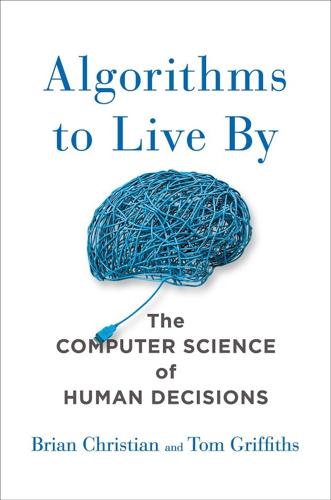
Algorithms to Live By: The Computer Science of Human Decisions
by
Brian Christian
and
Tom Griffiths
Published 4 Apr 2016
A high price of anarchy, on the other hand, means that things have the potential to turn out fine if they’re carefully coordinated—but that without some form of intervention, we are courting disaster. The prisoner’s dilemma is clearly of this latter type. Unfortunately, so are many of the most critical games the world must play. The Tragedy of the Commons In 1968, the ecologist Garrett Hardin took the two-player prisoner’s dilemma and imagined scaling it up to involve all the members of a farming village. Hardin invited his readers to picture a “commons” of public lawn—available to be grazed by everyone’s livestock, but with finite capacity.
…
In practice, though, the benefits of grazing a little bit more than that accrue directly to you, while the harms seem too small to be of consequence. Yet if everyone follows this logic of using just slightly more of the commons than they should, a dreadful equilibrium results: a completely devastated lawn, and no grass for anyone’s livestock thereafter. Hardin called this the “tragedy of the commons,” and it has become one of the primary lenses through which economists, political scientists, and the environmental movement view large-scale ecological crises like pollution and climate change. “When I was a kid, there was this thing called leaded gasoline,” says Avrim Blum, Carnegie Mellon computer scientist and game theorist.
…
Everyone looks to the others for a baseline, and will take just slightly less than that. The Nash equilibrium of this game is zero. As the CEO of software company Travis CI, Mathias Meyer, writes, “People will hesitate to take a vacation as they don’t want to seem like that person who’s taking the most vacation days. It’s a race to the bottom.” This is the tragedy of the commons in full effect. And it’s just as bad between firms as within them. Imagine two shopkeepers in a small town. Each of them can choose either to stay open seven days a week or to be open only six days a week, taking Sunday off to relax with their friends and family. If both of them take a day off, they’ll retain their existing market share and experience less stress.
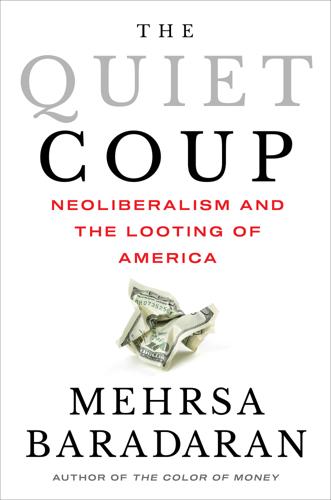
The Quiet Coup: Neoliberalism and the Looting of America
by
Mehrsa Baradaran
Published 7 May 2024
The solution is to privatize property, which Hardin believes will prevent individuals who are motivated by their own self-interest from exploiting community-owned resources. Despite the fact that the tragedy of the commons has been debunked by Elinor Ostrom, the first of only two female economists to win the Nobel Prize in Economics, I have not found a single property law textbook or law school that does not teach the tragedy of the commons as a foundational property law doctrine. Indeed, both the Coase theorem and the tragedy of the commons are taught alongside some early theories of natural law as articulated by John Locke—for instance, that the labor and use of the land by British colonists in the Americas entitled them to its ownership.
…
Such costs could include human emotions, power differentials, imperfect information, and the many other concerns and meanings with which property rights are imbued beyond monetary costs and benefits. When discussing property rights and disputes, textbooks inflected with Law and Economics almost always refer to the American ecologist Garrett Hardin’s “tragedy of the commons.” Hardin’s first articulation of the theory was in relation to human overpopulation, which he believed should be controlled through forced sterilizations and banning immigrants. When applied to property law, the tragedy of the commons shows that when a lake, a pond, or any natural space or resource is commonly owned, it leads to a “tragedy” driven by individual selfishness. Each person will seek to extract as much of a resource—whether fish or lumber or something else—at the expense of all others.
…
One of the core neoliberal theories, Garrett Hardin’s tragedy of the commons, held that selfish people would inevitably exploit and overuse resources on land that was commonly held. He was wrong about people and about common spaces, for it wasn’t sharing that would deplete the planet but privatization and monetization. Once private gain trumped public interest, there would be no common space that would be protected from private profiteering, including public forums for speech, community, identity, romance, and self-expression. The real tragedy of the commons is that by controlling the commons, private firms could create renewable resources by stoking our fears.
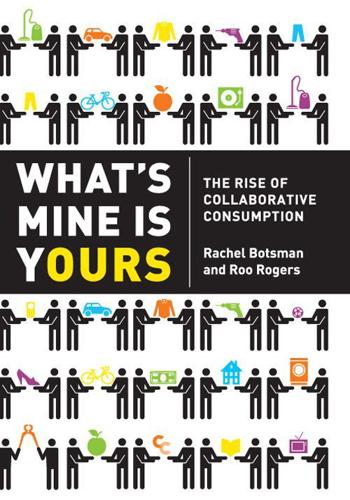
What's Mine Is Yours: How Collaborative Consumption Is Changing the Way We Live
by
Rachel Botsman
and
Roo Rogers
Published 2 Jan 2010
Brown: Landshare Explained,” Guardian (June 2009), www.guardian.co.uk/lifeandstyle/gardeningblog/2009/jun/05/landshare-hugh-fearnley-whittingstall. 17. “Commons Sense,” Economist (July 31, 2008), www.cs.ucl.ac.uk/staff/d.quercia/others/commons.pdf. 18. “The Tragedy of the Commons” is an influential article written by Garrett Hardin. First published in Science 162, no. 3859 (December 13, 1968): 1243–1248. 19. The idea of traffic congestion and “The Tragedy of the Commons” is documented in Garrett Hardin, Living Within Means (Oxford University Press, 1993). It is also well described in a blog post on Seed, www.seed.slb.com/subcontent.aspx?id=4110. 20. David Bollier, “Elinor Ostrom and the Digital Commons,” Forbes (October 13, 2009), www.forbes.com/2009/10/13/open-source-net-neutrality-elinor-ostrom-nobel-opinions-contributors-david-bollier.html. 21.
…
The concept of private property and enclosures accelerated across Europe and America throughout the eighteenth and nineteenth centuries. Privatization was justified by the rationale that shared resources were subject to overuse and misuse by individuals, who will always act in their own short-term self-interests, a scenario popularized by microbiologist Garrett Hardin centuries later in a 1968 Science article, “The Tragedy of the Commons.” Hardin drew on the parable of a field used for grazing cattle. “Picture a pasture open to all,” he wrote. “A herdsman grazing his animals on the land will have an incentive to “add another animal to his herd. And another; and another. . . . But this is the conclusion reached by each and every rational herdsman sharing a commons.
…
All the people seeking to minimize their own driving time add up to a longer commute for everyone.19 Doing what’s rational results in a negative outcome to the collective interest of all drivers, including you. On a global scale, Hardin’s logic can explain environmental issues such as overfished seas and rivers, air pollution, and water scarcity. Since its publication, “The Tragedy of the Commons” has become one of the most reprinted articles to appear in a scientific journal and is widely cited in hundreds of books. Indeed, individuals competing for resources are at the heart of one of the most discussed and debated questions of economic theory and free markets: How can we balance the interest of individuals and the interest of the group?
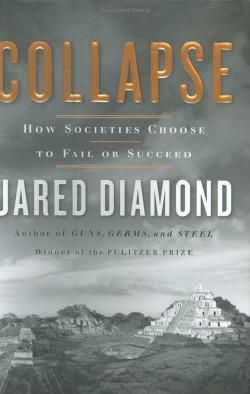
Collapse
by
Jared Diamond
Published 25 Apr 2011
Any people can fall into the trap of overexploiting environmental resources, because of ubiquitous problems that we shall consider later in this book: that the resources initially seem inexhaustibly abundant; that signs of their incipient depletion become masked by normal fluctuations in resource levels between years or decades; that it's difficult to get people to agree on exercising restraint in harvesting a shared resource (the so-called tragedy of the commons, to be discussed in later chapters); and that the complexity of ecosystems often makes the consequences of some human-caused perturbation virtually impossible to predict even for a professional ecologist. Environmental problems that are hard to manage today were surely even harder to manage in the past.
…
For that and other reasons, the real control of Japan's forests fell increasingly into the hands of people with a vested long-term interest in their forest: either because they thus expected or hoped their children would inherit the rights to its use, or because of various long-term lease or contract arrangements. For instance, much village common land became divided into separate leases for individual households, thereby minimizing the tragedies of the common to be discussed in Chapter 14. Other village forests were managed under timber sale agreements drawn up long in advance of logging. The government negotiated long-term contracts on government forest land, dividing eventual timber proceeds with a village or merchant in return for the latter managing the forests.
…
Innumerable other examples of such behavior in the business world could be cited, but it is not as universal as some cynics suspect. In the next chapter we shall examine how that range of outcomes results from the imperative for businesses to make money to the extent that government regulations, laws, and public attitudes permit. One particular form of clashes of interest has become well known under the name "tragedy of the commons," in turn closely related to the conflicts termed "the prisoner's dilemma" and "the logic of collective action." Consider a situation in which many consumers are harvesting a communally owned resource, such as fishermen catching fish in an area of ocean, or herders grazing their sheep on a communal pasture.

The Origins of Political Order: From Prehuman Times to the French Revolution
by
Francis Fukuyama
Published 11 Apr 2011
A good deal of theorizing about the importance of private property rights concerns what is called the tragedy of the commons. Grazing fields in traditional English villages were collectively owned by the village’s inhabitants; since no one could be excluded from access to these fields, whose resources were depletable, they were overused and made worthless. The solution to the risk of depletion was to turn the commons into private property, whose owners would then have a strong incentive to invest in its upkeep and exploit its resources on a long-term, sustainable basis. In an influential article, Garrett Hardin argued that the tragedy of the commons exists with respect to many global resources, such as clean air, fisheries, and the like, and that in the absence of private ownership or strong regulation they would be overexploited and made useless.3 In many contemporary ahistorical discussions of property rights, one often gets the impression that in the absence of modern individual property rights, human beings always faced some version of the tragedy of the commons in which communal ownership undermined incentives to use property efficiently.4 The emergence of modern property rights was then postulated to be a matter of economic rationality, in which individuals bargained among themselves to divide up the communal property, much like Hobbes’s account of the emergence of the Leviathan out of the state of nature.
…
In an influential article, Garrett Hardin argued that the tragedy of the commons exists with respect to many global resources, such as clean air, fisheries, and the like, and that in the absence of private ownership or strong regulation they would be overexploited and made useless.3 In many contemporary ahistorical discussions of property rights, one often gets the impression that in the absence of modern individual property rights, human beings always faced some version of the tragedy of the commons in which communal ownership undermined incentives to use property efficiently.4 The emergence of modern property rights was then postulated to be a matter of economic rationality, in which individuals bargained among themselves to divide up the communal property, much like Hobbes’s account of the emergence of the Leviathan out of the state of nature.
…
The first is that many alternative forms of customary property existed before the emergence of modern property rights. While these forms of land tenure may not have provided the same incentives for their efficient use as do their modern counterparts, very few of them led to anything like the tragedy of the commons. The second problem is that there aren’t very many examples of modern property rights emerging spontaneously and peacefully out of a bargaining process. The way customary property rights yielded to modern ones was much more violent, and power and deceit played a large role.5 KINSHIP AND PRIVATE PROPERTY The earliest forms of private property were held not by individuals but by lineages or other kin groups, and much of their motivation was not simply economic but religious and social as well.
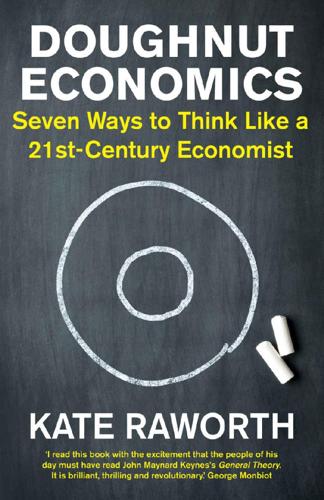
Doughnut Economics: Seven Ways to Think Like a 21st-Century Economist
by
Kate Raworth
Published 22 Mar 2017
Mainstream economics depicts the whole economy with just one, extremely limited image, the Circular Flow diagram. Its limitations have, furthermore, been used to reinforce a neoliberal narrative about the efficiency of the market, the incompetence of the state, the domesticity of the household, and the tragedy of the commons. It is time to draw the economy anew, embedding it within society and within nature, and powered by the sun. This new depiction invites new narratives – about the power of the market, the partnership of the state, the core role of the household, and the creativity of the commons. Third, nurture human nature.
…
The household supplies labour and capital to the market, but there’s no need to lift the roof and ask what goes on within its four walls: wives and daughters kindly take care of domestic affairs and they belong in the home, as does this matter. THE COMMONS, which are tragic – so sell them off. In the 1960s, Garrett Hardin described ‘the tragedy of the commons’ in which shared resources – such as grazing land and fish stocks – tend to be over-exploited by individual users and so are depleted for all.12 Managing such resources sustainably therefore calls for government regulation or, better still, private ownership. SOCIETY, which is non-existent – so ignore it.
…
Ricardo, D. (1817) On the Principles of Political Economy and Taxation, in Piero Sraffa (ed.), Works and Correspondence of David Ricardo, Vol. I, Cambridge: Cambridge University Press, 1951, p. 135. 11. Friedman, M. (1962) Capitalism and Freedom. Chicago: University of Chicago Press. 12. Hardin, G. (1968) ‘The tragedy of the commons’, Science 162: 3859. 13. Interview with Margaret Thatcher by Douglas Keay, Woman’s Own, 23 September 1987, http://www.margaretthatcher.org/document/106689 14. Simon, J. and Kahn, H. (1984) The Resourceful Earth: a response to Global 2000. Oxford: Basil Blackwell. 15. Friedman, M. (1978) ‘The Role of Government in a Free Society’.

Jellyfish Age Backwards: Nature's Secrets to Longevity
by
Nicklas Brendborg
Published 17 Jan 2023
While this theory sounds plausible at first, it is controversial because it has serious logical and mathematical challenges. Evolution simply doesn’t work on the group level like this. One of the main problems is a classic situation called ‘the tragedy of the commons’. This is the same phenomenon we humans encounter when we have to take care of the environment, pay taxes or keep a shared kitchen clean. There will always be those who try to gain the benefits without contributing anything themselves. The ‘tragedy of the commons’ is widespread in nature, and you might have encountered it before unknowingly. If you have ever watched nature documentaries, you might have wondered why prey animals rarely fight back.
…
Nature isn’t nearly as lucky as we humans are – it can’t foresee problems or think about them rationally. Evolution is a blind walk in nature and the optimal solution to the ‘tragedy of the commons’ is often to be a coward yourself. This is why programmed ageing would be challenging. Even if we imagine that it could somehow evolve (which would be very unlikely in the first place), it would be confronted with the ‘tragedy of the commons’. Programming ageing into the genes of an organism means that the programme would be vulnerable to mutations. At one point, an individual would be born with a dysfunctional ageing programme.
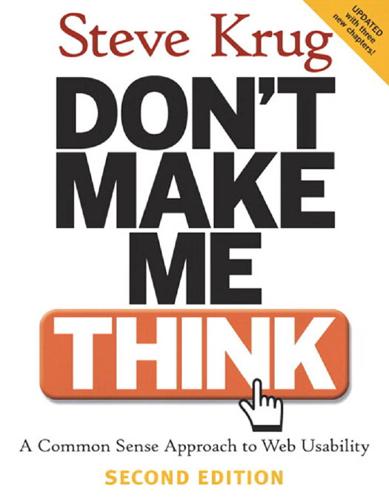
Don't Make Me Think!: A Common Sense Approach to Web Usability
by
Steve Krug
Published 2 Jan 2000
The section that’s being promoted gets a huge gain in traffic, while the overall loss in effectiveness of the Home page as it gets more cluttered is shared by all sections. It’s a perfect example of the tragedy of the commons.9 The premise is simple: Any shared resource (a “commons”) will inevitably be destroyed by overuse. 9 The concept, originated by nineteenth-century amateur mathematician William Forster Lloyd, was popularized in a classic essay on overpopulation by biologist Garrett Hardin (“The Tragedy of the Commons,” Science, December 1968). Take a town pasture, for example. For each animal a herdsman adds to the common pasture, he receives all proceeds from the sale of the animal—a positive benefit of +1.
…
See subsections Section 508, 169 section fronts, 46 Sections, 65 Site ID, 63 sizzle, 184 slow-loading pages, 59 Spool, Jared, 7 Stanwick, Victor, 189 street signs, 72 subsections, 65 Synectics, 188 T tabs, 79 color coding, 83 importance of drawing correctly, 82 tagline, 101, 103–106 Talking Heads, 51 teleportation, 58, 63 Theofanos, Mary, 175 tragedy of the commons, 112 trunk test, 85 U Underhill, Paco, 187 URLs, typed in search box, 27 usability, defined, 5 usability lab, 142 usability testing, 3, 135 number of users to test, 138 recruiting participants, 139, 141 reviewing results, 156 sample session, 146 value of starting early, 134 what to test, 144 Utilities, 65 V–Z validator, accessibility, 173 visual hierarchy, 31 parsing, 33 visual noise, 38 Welcome blurb, 101 White, E.

Six Degrees: Our Future on a Hotter Planet
by
Mark Lynas
Published 1 Apr 2008
(ed.), Avoiding Dangerous Climate Change, Cambridge University Press p. 258 IEA projects: World Energy Outlook 2005 Executive Summary, IEA, 2005, http://www.iea.org/Textbase/npsum/WEO2005SUM.pdf p. 258 World Alternative Policy Scenario: World Energy Outlook 2005 press release, IEA, 2005, http://www.worldenergyoutlook.org/press_rel.asp p. 260 figures are startling: Dukes, J., 2003: ‘Burning buried sunshine: Human consumption of ancient solar energy’, Climatic Change, 61, 31–44 p. 261 iceberg lettuce: 2001: Eating Oil: Food Supply in a Changing Climate, Sustain/Elm Farm Research Centre, December 2001; summary: http://www.sustainweb.org p. 261 consumes ten times more: Giampietro, M., and Pimentel, D., 1993: ‘The tightening conflict: Population, energy use, and the ecology of agriculture’, NPG Forum Series, October 1993,1-8 p. 261 ‘remarkable level of co-option’: Imhoff, M., et al., 2004: ‘Global patterns in human consumption of net primary production’, Nature, 429, 870-3 p. 264 ‘tragedy of the commons’: Hardin, G., 1968: ‘The tragedy of the commons’, Science, 162,1243-8 p. 264 focus groups in Switzerland: Stoll-Kleemann, S., et al., 2001: ‘The psychology of denial concerning climate mitigation measures: evidence from Swiss focus groups’, Global Environmental Change, 11,107-17 p. 267 consumed more oil: Leggett, J., 2005: Half Gone: Oil, Gas, Hot Air and the Global Energy Crisis, Portobello Books, p. 59 p. 268 ‘these things came together’: 2005: ‘Saudi Arabia's Ghawar Field: the elephant of all elephants’, AAPG Explorer, http://www.aapg.org/explorer/2005/01jan/ghawar.cfm p. 268 global economic crash: Leggett, J., 2005: Half Gone: Oil, Gas, Hot Air and the Global Energy Crisis, Portobello Books, pp. 95-6 p. 269 ‘powerdown’: Heinberg, R., 2004: Powerdown: Options and Actions for a Post-Carbon World, Clairview Books p. 271 wedges: Pacala, S., and Socolow, R., 2004: ‘Stabilization wedges: Solving the climate problem for the next 50 years with current technologies’, Science, 305, 968-72 p. 272 birds perish: Marris, E., and Fairless, D., 2007: ‘Wind farms’ deadly reputation hard to shift', Nature, 447, 126 p. 273 wiped out permanently: Kempton, W., et al., 2007: ‘Large CO2 reductions via offshore wind power matched to inherent storage in energy end-uses’, Geophysical Research Letters, 34, L02817 p. 273 Carbon capture and storage: IPCC, 2005: Carbon Dioxide Capture and Storage: Summary for Policymakers and Technical Summary, WMO/UNEP p. 274 save the same: Gullison, R., et al., 2007: ‘Tropical forests and climate policy’, Science, 316, 985-6 p. 275 a few hundredths: Monbiot, G., 2004: ‘Fuel for nought’, The Guardian, 23 November 2004; http://www.guardian.co.uk/climatechange/story/0,1357462,00.html p. 276 south-east Asian forests: Ibid.
…
For policymakers, this might mean blaming entire countries: the Byrd-Hagel resolution in the US Senate refused to countenance any change to American lifestyles unless developing countries also cut back their emissions. (In effect, it was the US blaming China.) Even environmentalists can be tempted by displacement: the vilification of George Bush-indefensible though his stance might be-is easier for most of us than having to face more tricky challenges closer to home. Climate change is a classic ‘tragedy of the commons’ problem, where behaviour which makes sense at an individual level ultimately proves disastrous to society when repeated by everyone. The concept's originator, Garrett Hardin, gives the example of cattle herders using a shared pasture to illustrate the problem. Each herder stands to gain individually by adding another cow to the common-he gets more milk and beef.
…
Psychological denial is integral to the process, Hardin writes: ‘The individual benefits as an individual from his ability to deny the truth, even though society as a whole, of which he is a part, suffers’. One intriguing study on this issue used random-sample focus groups in Switzerland to investigate attitudes to climate change amongst the general public. Its results showed clearly how the ‘tragedy of the commons’ is reflected in people's belief ‘in the insignificance of individual action to change the order of things’, with the result that perceived ‘costs to the self are greater than benefits to others’. However, the researchers found that the most powerful motivator of denial was more straightforwardly selfish-an unwillingness to abandon personal comforts and consumption patterns.
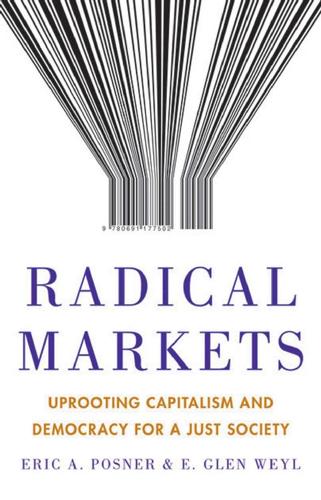
Radical Markets: Uprooting Capitalism and Democracy for a Just Society
by
Eric Posner
and
E. Weyl
Published 14 May 2018
At the time, investment inefficiency for land was not considered a problem, because people thought that land did not need maintenance and the only value that could be added to land was through above-ground structures like houses. But these assumptions ignored environmental damage. As ecologist Garrett Hardin observed many years later, land without a single owner often becomes overgrazed, eroded, and polluted in what he labeled the “tragedy of the commons.”19 George’s scheme ran into even greater problems with natural resources that can be depleted, like metal from mines or oil from wells. If all the value of land is taxed away, the possessor of such a resource will remove the oil or ore as quickly as possible, leading to waste. FIGURE 1.1: Billboard promoting Henry George’s ideas.
…
Walras, Studies in Social Economics, 234. 15. George, Progress and Poverty, 223. 16. George, Progress and Poverty, 244. 17. http://landlordsgame.info/. 18. George R. Geiger, The Philosophy of Henry George. Introduction by John Dewey xxii (MacMillan Co., 1933). 19. Garrett Hardin, The Tragedy of the Commons, 162 Science 1243 (1968). 20. Harold Schiffrin, Sun Yat-sen’s Early Land Policy: The Origin and Meaning of “Equalization of Land Rights,” 16 Journal of Asian Studies 549, 555 (1957). 21. Joseph A. Schumpeter, Capitalism, Socialism and Democracy (Harper & Brothers, 1942). 22. Oskar Lange & Fred M.
…
INDEX Italic page numbers indicate figures and tables abortion, 27, 112–13, 116 Acemoglu, Daron, 240, 316n4 activism, 3, 124, 140, 176–77, 188, 193, 211, 232 Adachi, Kentaro, 80–81, 105–8 Africa, 136, 138 African Americans, 24, 89, 209–10 Airbnb, 70, 117 airlines, 171, 183, 189–91, 194 Akerlof, George, 66–67 algorithms, 208, 214, 219, 221, 281–82, 289–93, 307n7 Allen, Robert C., 240 Amazon, 112, 230–31, 234, 239, 248, 288, 290–91 American Constitution, 86–87 American Federation of Musicians, 210 American Tobacco Company, 174 America OnLine (AOL), 210 Anderson, Chris, 212 antitrust: Clayton Act and, 176–77, 197, 311n25; landlords and, 201–2; monopolies and, 23, 48, 174–77, 180, 184–86, 191, 197–203, 242, 255, 262, 286; resale price maintenance and, 200–201; social media and, 202 Apple, 117, 239, 289 Arginoussai Islands, 83 aristocracy, 16–17, 22–23, 36–38, 84–85, 87, 90, 135–36 Aristotle, 172 Arrow, Kenneth, 92, 303n17 Articles of Confederation, 88 artificial intelligence (AI), 202, 257, 287; Alexa and, 248; algorithms and, 208, 214, 219, 221, 281–82, 289–93; automated video editing and, 208; Cortana and, 219; data capacities and, 236; Deep Blue and, 213; democratization of, 219; diminishing returns and, 229–30; facial recognition and, 208, 216–19; factories for thinking machines and, 213–20; Google Assistant and, 219; human-produced data for, 208–9; marginal value and, 224–28, 247; Microsoft and, 219; neural networks and, 214–19; payment systems for, 224–30; recommendation systems and, 289–90; siren servers and, 220–24, 230–41, 243; Siri and, 219, 248; technofeudalism and, 230–33; techno-optimists and, 254–55, 316n2; techno-pessimists and, 254–55, 316n2; worker replacement and, 223 Athens, 55, 83–84, 131 Atwood, Margaret, 18–19 auctions, xv–xxi, 49–51, 70–71, 97, 99, 147–49, 156–57, 300n34 au pair program, 154–55, 161 Australia, 10, 12, 13, 159, 162 Austrian school, 2 Autor, David, 240 Azar, José, 185, 189, 310n24 Bahrain, 158 banking industry, 182–84, 183, 190 Bank of America, 183, 184 Becker, Gary, 147 Beckford, William, 95 behavioral finance, 180–81 Bénabou, Roland, 236–37 Bentham, Jeremy, 4, 35, 95–96, 98, 132 Berle, Adolf, 177–78, 183, 193–94 Berlin Wall, 1, 140 Berners-Lee, Tim, 210 big data, 213, 226, 293 Bing, xxi BlackRock, 171, 181–84, 183, 187, 191 Brazil, xiii–xvii, 105, 135 Brin, Sergey, 211 broadcast spectrum, xxi, 50–51, 71 Bush, George W., 78 Cabral, Luís, 202 Cadappster app, 31 Caesar, Julius, 84 Canada, 10, 13, 159, 182 capitalism, xvi; basic structure of, 24–25; competition and, 17 (see also competition); corporate planning and, 39–40; cultural consequences of, 270, 273; Engels on, 239–40; freedom and, 34–39; George on, 36–37; growth and, 3 (see also growth, economic); industrial revolution, 36, 255; inequality and, 3 (see also inequality); labor and, 136–37, 143, 159, 165, 211, 224, 231, 239–40, 316n4; laissez-faire, 45; liberalism and, 3, 17, 22–27; markets and, 278, 288, 304n36; Marx on, 239–40; monopolies and, 22–23, 34–39, 44, 46–49, 132, 136, 173, 177, 179, 199, 258, 262; monopsony and, 190, 199–201, 223, 234, 238–41, 255; ownership and, 34–36, 39, 45–49, 75, 78–79; property and, 34–36, 39, 45–49, 75, 78–79; Radical Markets and, 169, 180–85, 203, 273; regulations and, 262; Schumpeter on, 47; shareholders and, 118, 170, 178–84, 189, 193–95; technology and, 34, 203, 316n4; wealth and, 45, 75, 78–79, 136, 143, 239, 273 Capitalism and Freedom (Friedman), xiii Capitalism for the People, A (Luigi), 203 Capra, Frank, 17 Carroll, Lewis, 176 central planning: computers and, 277–85, 288–93; consumers and, 19; democracy and, 89; governance and, 19–20, 39–42, 46–48, 62, 89, 277–85, 288–90, 293; healthcare and, 290–91; liberalism and, 19–20; markets and, 277–85, 288–93; property and, 39–42, 46–48, 62; recommendation systems and, 289–90; socialism and, 39–42, 47, 277, 281 Chetty, Raj, 11 Chiang Kai-shek, 46 China, 15, 46, 56, 133–34, 138 Christensen, Clayton, 202 Chrysler, 193 Citigroup, 183, 184, 191 Clarke, Edward, 99, 102, 105 Clayton Act, 176–77, 197, 311n25 Clemens, Michael, 162 Coase, Ronald, 40, 48–51, 299n26 Cold War, xix, 25, 288 collective bargaining, 240–41 collective decisions: democracy and, 97–105, 110–11, 118–20, 122, 124, 273, 303n17, 304n36; manipulation of, 99; markets for, 97–105; public goods and, 98; Quadratic Voting (QV) and, 110–11, 118–20, 122, 124, 273, 303n17, 304n36; Vickrey and, 99, 102, 105 colonialism, 8, 131 Coming of the Third Reich, The (Evans), 93 common ownership self-assessed tax (COST): broader application of, 273–76; cybersquatters and, 72; education and, 258–59; efficiency and, 256, 261; equality and, 258; globalization and, 269–70; growth and, 73, 256; human capital and, 258–61; immigrants and, 261, 269, 273; inequality and, 256–59; international trade and, 270; investment and, 258–59, 270; legal issues and, 275; markets and, 286; methodology of, 63–66; monopolies and, 256–61, 270, 300n43; objections to, 300n43; optimality and, 61, 73, 75–79, 317n18; personal possessions and, 301n47, 317n18; political effects of, 261–64; predatory outsiders and, 300n43; prices and, 62–63, 67–77, 256, 258, 263, 275, 300n43, 317n18; property and, 31, 61–79, 271–74, 300n43, 301n47; public goods and, 256; public leases and, 69–72; Quadratic Voting (QV) and, 123–25, 194, 261–63, 273, 275, 286; Radical Markets and, 79, 123–26, 257–58, 271–72, 286; taxes and, 61–69, 73–76, 258–61, 275, 317n18; technology and, 71–72, 257–59; true market economy and, 72–75; voting and, 263; wealth and, 256–57, 261–64, 269–70, 275, 286 communism, 19–20, 46–47, 93–94, 125, 278 competition: antitrust policies and, 23, 48, 174–77, 180, 184–86, 191, 197–203, 242, 255, 262, 286; auctions and, xv–xix, 49–51, 70–71, 97, 99, 147–49, 156–57; bargaining and, 240–41, 299n26; democracy and, 109, 119–20; by design, 49–55; elitism and, 25–28; equilibrium and, 305n40; eternal vigilance and, 204; horizontal concentration and, 175; imperfect, 304n36; indexing and, 185–91, 302n63; innovation and, 202–3; investment and, 196–97; labor and, 145, 158, 162–63, 220, 234, 236, 239, 243, 245, 256, 266; laissez-faire and, 253; liberalism and, 6, 17, 20–28; lobbyists and, 262; monopolies and, 174; monopsony and, 190, 199–201, 223, 234, 238–41, 255; ownership and, 20–21, 41, 49–55, 79; perfect, 6, 25–28, 109; prices and, 20–22, 25, 173, 175, 180, 185–90, 193, 200–201, 204, 244; property and, 41, 49–55, 79; Quadratic Voting (QV) and, 304n36; regulations and, 262; resale price maintenance and, 200–201; restoring, 191–92; Section 7 and, 196–97, 311n25; selfishness and, 109, 270–71; Smith on, 17; tragedy of the commons and, 44 complexity, 218–20, 226–28, 274–75, 279, 281, 284, 287, 313n15 “Computer and the Market, The” (Lange), 277 computers: algorithms and, 208, 214, 219, 221, 281–82, 289–93; automation of labor and, 222–23, 251, 254; central planning and, 277–85, 288–93; data and, 213–14, 218, 222, 233, 244, 260; Deep Blue, 213; distributed computing and, 282–86, 293; growth in poor countries and, 255; as intermediaries, 274; machine learning (ML) and, 214 (see also machine learning [ML]); markets and, 277, 280–93; Mises and, 281; Moore’s Law and, 286–87; Open-Trac and, 31–32; parallel processing and, 282–86; prices of, 21; recommendation systems and, 289–90 Condorcet, Marquis de, 4, 90–93, 303n15, 306n51 conspicuous consumption, 78 Consumer Reports magazine, 291 consumers: antitrust suits and, 175, 197–98; central planning and, 19; data from, 47, 220, 238, 242–44, 248, 289; drone delivery to, 220; as entrepreneurs, 256; goods and services for, 27, 92, 123, 130, 175, 280, 292; institutional investment and, 190–91; international culture for, 270; lobbyists and, 262; machine learning (ML) and, 238; monopolies and, 175, 186, 197–98; preferences of, 280, 288–93; prices and, 172 (see also prices); recommendation systems and, 289–90; robots and, 287; sharing economy and, 117; Soviet collapse and, 289; technology and, 287 cooperatives, 118, 126, 261, 267, 299n24 Corbyn, Jeremy, 12, 13 corruption, 3, 23, 27, 57, 93, 122, 126, 157, 262 Cortana, 219 cost-benefit analysis, 2, 244 “Counterspeculation, Auctions and Competitive Sealed Tenders” (Vickrey), xx–xxi Cramton, Peter, 52, 54–55, 57 crowdsourcing, 235 crytocurrencies, 117–18 cybersquatters, 72 data: algorithms and, 208, 214, 219, 221, 281–82, 289–93; big, 213, 226, 293; computers and, 213–14, 218, 222, 233, 244, 260; consumer, 47, 220, 238, 242–44, 248, 289; diamond-water paradox and, 224–25; diminishing returns and, 226, 229–30; distribution of complexity and, 228; as entertainment, 233–39, 248–49; Facebook and, 28, 205–9, 212–13, 220–21, 231–48; feedback and, 114, 117, 233, 238, 245; free, 209, 211, 220, 224, 231–35, 239; Google and, 28, 202, 207–13, 219–20, 224, 231–36, 241–42, 246; investment in, 212, 224, 232, 244; labeled, 217–21, 227, 228, 230, 232, 234, 237; labor movement for, 241–43; Lanier and, 208, 220–24, 233, 237, 313n2, 315n48; marginal value and, 224–28, 247; network effects and, 211, 236, 238, 243; neural networks and, 214–19; online services and, 211, 235; overfitting and, 217–18; payment systems for, 210–13, 224–30; photographs and, 64, 214–15, 217, 219–21, 227–28, 291; programmers and, 163, 208–9, 214, 217, 219, 224; Radical Markets for, 246–49; reCAPTCHA and, 235–36; recommendation systems and, 289–90; rise of data work and, 209–13; sample complexity and, 217–18; siren servers and, 220–24, 230–41, 243; social networks and, 202, 212, 231, 233–36; technofeudalism and, 230–33; under-employment and, 256; value of, 243–45; venture capital and, 211, 224; virtual reality and, 206, 208, 229, 251, 253; women’s work and, 209, 313n4 Declaration of Independence, 86 Deep Blue, 213 DeFoe, Daniel, 132 Demanding Work (Gray and Suri), 233 democracy: 1p1v system and, 82–84, 94, 109, 119, 122–24, 304n36, 306n51; artificial intelligence (AI) and, 219; Athenians and, 55, 83–84, 131; auctions and, 97, 99; basic structure of, 24–25; central planning and, 89; check and balance systems and, 23, 25, 87, 92; collective decisions and, 97–105, 110–11, 118–20, 122, 124, 273, 303n17, 304n36; collective mediocrity and, 96; competition and, 109, 119–20; Declaration of Independence and, 86; efficiency and, 92, 110, 126; elections and, 22, 80, 93, 100, 115, 119–21, 124, 217–18, 296n20; elitism and, 89–91, 96, 124; Enlightenment and, 86, 95; Europe and, 90–96; France and, 90–95; governance and, 84, 117; gridlock and, 84, 88, 122–24, 261, 267; Hitler and, 93–94; House of Commons and, 84–85; House of Lords and, 85; impossibility theorem and, 92; inequality and, 123; Jury Theorem and, 90–92; liberalism and, 3–4, 25, 80, 86, 90; limits of, 85–86; majority rule and, 27, 83–89, 92–97, 100–101, 121, 306n51; markets and, 97–105, 262, 276; minorities and, 85–90, 93–97, 101, 106, 110; mixed constitution and, 84–85; multi-candidate, single-winner elections and, 119–20; origins of, 83–85; ownership and, 81–82, 89, 101, 105, 118, 124; public goods and, 28, 97–100, 107, 110, 120, 123, 126; Quadratic Voting (QV) and, 105–22; Radical Markets and, 82, 106, 123–26, 203; supermajorities and, 84–85, 88, 92; tyrannies and, 23, 25, 88, 96–100, 106, 108; United Kingdom and, 95–96; United States and, 86–90, 93, 95; voting and, 80–82, 85–93, 96, 99, 105, 108, 115–16, 119–20, 123–24, 303n14, 303n17, 303n20, 304n36, 305n39; wealth and, 83–84, 87, 95, 116 Demosthenes, 55 Denmark, 182 Department of Justice (DOJ), 176, 186, 191 deregulation, 3, 9, 24 Desmond, Matthew, 201–2 Dewey, John, 43 Dickens, Charles, 36 digital economy: data producers and, 208–9, 230–31; diamond-water paradox and, 224–25; as entertainment, 233–39; facial recognition and, 208, 216, 218–19; free access and, 211; Lanier and, 208, 220–24, 233, 237, 313n2, 315n48; machine learning (ML) and, 208–9, 213–14, 217–21, 226–31, 234–35, 238, 247, 289, 291, 315n48; payment systems for, 210–13, 221–30, 243–45; programmers and, 163, 208–9, 214, 217, 219, 224; rise of data work and, 209–13; siren servers and, 220–24, 230–41, 243; spam and, 210, 245; technofeudalism and, 230–33; virtual reality and, 206, 208, 229, 251, 253 diversification, 171–72, 180–81, 185, 191–92, 194–96, 310n22, 310n24 dot-com bubble, 211 double taxation, 65 Dupuit, Jules, 173 Durkheim, Émile, 297n23 Dworkin, Ronald, 305n40 dystopia, 18, 191, 273, 293 education, 114; common ownership self-assessed tax (COST) and, 258; data and, 229, 232, 248; elitism and, 260; equality in, 89; financing, 276; free compulsory, 23; immigrants and, 14, 143–44, 148; labor and, 140, 143–44, 148, 150, 158, 170–71, 232, 248, 258–60; Mill on, 96; populist movements and, 14; Stolper-Samuelson Theorem and, 143 efficient capital markets hypothesis, 180 elections, 80; data and, 217–18; democracy and, 22, 93, 100, 115, 119–21, 124, 217–18, 296n20; gridlock and, 124; Hitler and, 93; multi-candidate, single-winner, 119–20; polls and, 13, 111; Quadratic Voting (QV) and, 115, 119–21, 268, 306n52; U.S. 2016, 93, 296n20 Elhauge, Einer, 176, 197 elitism: aristocracy and, 16–17, 22–23, 36–38, 84–85, 87, 90, 135–36; bourgeoisie and, 36; bureaucrats and, 267; democracy and, 89–91, 96, 124; education and, 260; feudalism and, 16, 34–35, 37, 41, 61, 68, 136, 230–33, 239; financial deregulation and, 3; immigrants and, 146, 166; liberalism and, 3, 15–16, 25–28; minorities and, 12, 14–15, 19, 23–27, 85–90, 93–97, 101, 106, 110, 181, 194, 273, 303n14, 304n36; monarchies and, 85–86, 91, 95, 160 Emergency Economic Stabilization Act, 121 eminent domain, 33, 62, 89 Empire State Building, 45 Engels, Friedrich, 78, 240 Enlightenment, 86, 95 entrepreneurs, xiv; immigrants and, 144–45, 159, 256; labor and, 129, 144–45, 159, 173, 177, 203, 209–12, 224, 226, 256; ownership and, 35, 39 equality: common ownership self-assessed tax (COST) and, 258; education and, 89; immigrants and, 257; labor and, 147, 166, 239, 257; liberalism and, 4, 8, 24, 29; living standards and, 3, 11, 13, 133, 135, 148, 153, 254, 257; Quadratic Voting (QV) and, 264; Radical Markets and, 262, 276; trickle down theories and, 9, 12 Espinosa, Alejandro, 30–32 Ethereum, 117 Europe, 177, 201; democracy and, 88, 90–95; European Union and, 15; fiefdoms in, 34; government utilities and, 48; income patterns in, 5; instability in, 88; labor and, 11, 130–31, 136–47, 165, 245; social democrats and, 24; unemployment rates in, 11 Evans, Richard, 93 Evicted (Desmond), 201–2 Ex Machina (film), 208 Facebook, xxi; advertising and, 50, 202; data and, 28, 205–9, 212–13, 220–21, 231–48; monetization by, 28; news service of, 289; Vickrey Commons and, 50 facial recognition, 208, 216–19 family reunification programs, 150, 152 farms, 17, 34–35, 37–38, 61, 72, 135, 142, 179, 283–85 Federal Communications Commission (FCC), 50, 71 Federal Trade Commission (FTC), 176, 186 feedback, 114, 117, 233, 238, 245 feudalism, 16, 34–35, 37, 41, 61, 68, 136, 230–33, 239 Fidelity, 171, 181–82, 184 financial crisis of 2008, 3, 121 Fitzgerald, F.
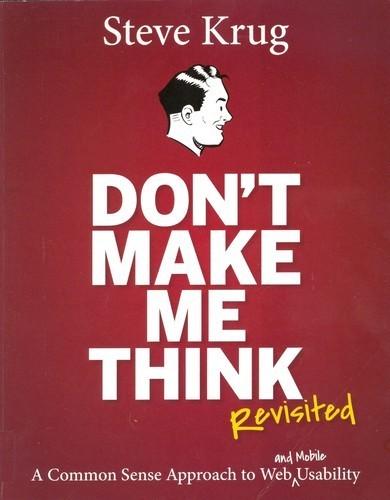
Don't Make Me Think, Revisited: A Common Sense Approach to Web Usability
by
Steve Krug
Published 1 Jan 2000
The section that’s being promoted gets a huge gain in traffic, while the overall loss in effectiveness of the Home page as it gets more cluttered is shared by all sections. It’s a perfect example of the tragedy of the commons.4 The premise is simple: 4 The concept, originated by nineteenth-century amateur mathematician William Forster Lloyd, was popularized in a classic essay on overpopulation by biologist Garrett Hardin (“The Tragedy of the Commons,” Science, December 1968). Any shared resource (a “commons”) will inevitably be destroyed by overuse. Take a town pasture, for example. For each animal a herdsman adds to the common pasture, he receives all proceeds from the sale of the animal—a positive benefit of +1.
…
See subsections section fronts, 50 Sections, 69–70 signifiers, 151 Site ID, 67–68 sizzle, 169 slow-loading pages, 59 stop signs, 29 street signs, 64, 74 subsections, 68–69 T tabs, 80–81 color coding, 81 importance of drawing correctly, 81 tagline, 93, 95–98 Talking Heads, 55 teleportation, 62, 67, 92 Theofanos, Mary, 179 tradeoffs, 145–47 tragedy of the commons, 100 trunk test, 82–83 U usability attributes of, 155 defined, 9 usability lab, 115 usability testing, 3, 110 do-it-yourself, 115 vs. focus groups, 112–13 of mobile devices, 160–63 number of users to test, 119 observers, 124 recruiting participants, 120–21 remote, 140 reviewing results, 137–39 sample session, 127 unmoderated, 140 value of starting early, 115 what to test, 124 User Experience Design (UXD, UX), x, 183 UserTesting.com, 140 Utilities, 65, 69–70 V–Z validator, accessibility, 177 visual hierarchy, 33–36 visual noise, 38 Welcome blurb, 93 White, E.

Working in Public: The Making and Maintenance of Open Source Software
by
Nadia Eghbal
Published 3 Aug 2020
A THEORY OF THE COMMONS In the second half of the twentieth century, the economist Elinor Ostrom spent decades studying the conditions that lead to a flourishing commons, such as forests, fisheries, irrigation systems, and other common pool resources.* She tried to understand how people produce in a commons, and why some resources are successfully self-managed, thus avoiding the so-called “tragedy of the commons” (wherein resources are depleted by people acting in their own self-interest, rather than in the collective interest) and the need for either market or government intervention. Through her research, Ostrom identified eight design principles that contribute to a well-managed, successful commons: Membership boundaries are clearly defined.
…
—JANE JACOBS, The Death and Life of Great American Cities261 When explaining why nobody wants to pay for software, people often cite the free-rider problem, which is the idea that if you can’t exclude others from consuming a good they’ll use it without paying. Eventually, the good becomes overused, as producers lack the resources—usually provided by consumers—to supply it. It’s easiest to see how free-rider problems apply to non-excludable, rivalrous goods, a situation better known as the tragedy of the commons. If a public park is free to access, people will use it without paying for maintenance and upkeep. As more people flock to the park, its quality is diminished. The trash cans will overflow, the crowds get packed, the grass ground down to mud. To address this problem, we typically pay for public parks with our taxes; some national parks also charge an entrance fee.
…
When I knock on his door and make requests, or otherwise try to “help” him, I draw from the attention he’s allocated to decorating his house, which is just one of many things he has to do with his day. When attention is over-appropriated—say, there’s a crowd of people lined up outside, ringing his doorbell—a tragedy of the commons occurs, in which my neighbor no longer wants to put up his annual Christmas decorations (a tragedy indeed). The value of the commons is derived from the reputation of its members, meaning the person or people who produce it. If my neighbor were to stop putting up his decorations, I would be a poor replacement.
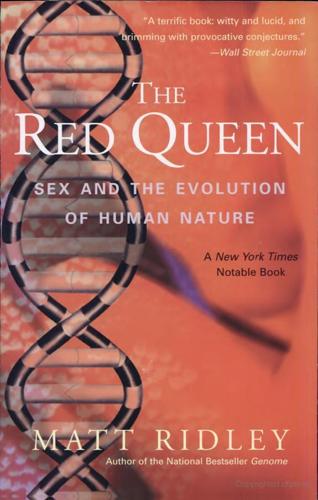
The Red Queen: Sex and the Evolution of Human Nature
by
Matt Ridley
Published 14 Aug 1993
The result was that the common was often overgrazed until it could support only a few cattle. Had each villager been encouraged to exercise a little restraint, the common could have supported far more cattle than it did. This ‘tragedy of the commons’1 has been repeated again and again throughout the history of human affairs. Every sea fishery that has ever been exploited is soon overfished and the fishermen are driven into penury. Whales, forests and aquifers have been treated in the same way. The tragedy of the commons is, for economists, a matter of ownership. The lack of a single ownership of the commons or the fishery means that everybody shares equally in the cost of overgrazing or overfishing.
…
Consequently, a Cain gene on an X chromosome can safely kill the Y chromosome and not risk suicide. It biases the sex ratio of the next generation in favour of females, but that is a cost borne by the whole population equally, whereas the benefit of monopolizing the offspring is received by the Cain gene itself – just as in the case of free-riders causing the tragedy of the commons.18 In Praise of Unilateral Disarmament By and large, however, the common interest of the genes prevails over the ambitions of the outlaws. As Egbert Leigh has put it, a ‘parliament of genes’ asserts its will.19 Yet the reader is surely restless. ‘This little tour of the cellular bureaucracy,’ he says, ‘fun though it was, has brought us no closer to the question asked at the beginning of the chapter – why there are two genders.’
…
In one Indian hospital, ninety-six per cent of women told they were carrying daughters aborted them while nearly one hundred per cent of women carrying sons carried them to term.80 This implies that a cheap technology allowing people to choose the gender of their children would indeed unbalance the population sex ratio. Choosing the gender of your baby would be an individual decision of no consequence to anybody else. Why then is the idea inherently unpopular? It is a tragedy of the commons: a collective harm that results from the rational pursuit of self-interest by individuals. One person choosing to have only sons does nobody else any harm. But if everybody does it, everybody suffers. The dire predictions range from a male-dominated society in which rape, lawlessness and a general frontier mentality would hold sway to further increases in male domination of positions of power and influence.
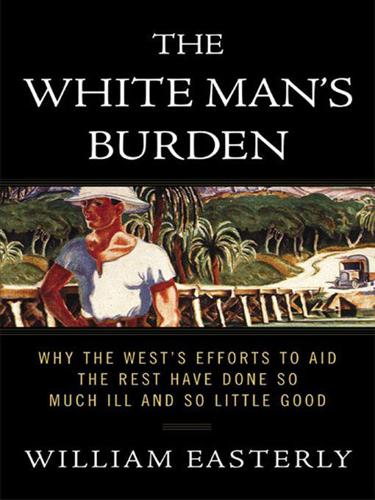
The White Man's Burden: Why the West's Efforts to Aid the Rest Have Done So Much Ill and So Little Good
by
William Easterly
Published 1 Mar 2006
Customary arrangements can also deal with property owned by the community, like common pastureland on which all can graze their cows. Common property is subject to the “tragedy of the commons” problem, in which each herdsman overgrazes the pasture because the costs are borne by the community rather than by the herdsman. (I want my cow to eat the grass before your cow does.) However, if population density is low and land abundant, the tragedy of the commons does not arise, and community ownership works fine. Even when pressure on the land tightens up, informal community arrangements can still control overgrazing (say the village elders decide that you and I may let our cows into the pasture on alternating days).
…
Even when pressure on the land tightens up, informal community arrangements can still control overgrazing (say the village elders decide that you and I may let our cows into the pasture on alternating days). NYU professor Leonard Wantchekon offered this account of how his village in Benin managed a common property resource, the fishing pond (overfishing is a classic example used for the tragedy of the commons), when he was growing up: To open the fishing season, elders performed ritual tests at Amlé, a lake fifteen kilometers from the village. If the fish were large enough, fishing was allowed for two or three days. If they were too small, all fishing was forbidden, and anyone who secretly fished the lake at this time was outcast, excluded from the formal and informal groups that formed the village’s social structure.
…
An unintended side effect of the increased activity of NGO issue lobbies has been to expand even further the set of goals that foreign assistance has been trying to achieve. Since no issue lobby takes into account the effect on other issue lobbies of its demands on the scarce aid and administrative resources of agencies, each lobby overemphasizes its goals. This is analogous to the “tragedy of the commons” problem in which too many cows overgraze pastures held in common. To make things worse, each separate aid agency has felt the political pressure to add all of these goals in response to its own rich-country constituency. This is because bilateral aid agencies each have their rich-country publics with multiple goals, and a multilateral agency like the World Bank is fair game for lobbies worldwide.
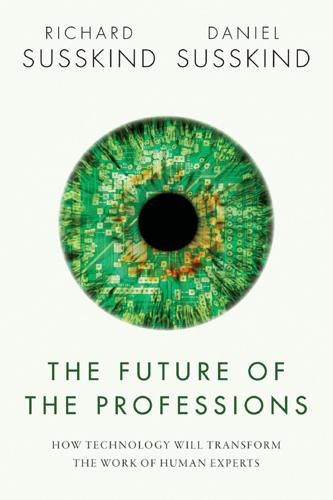
The Future of the Professions: How Technology Will Transform the Work of Human Experts
by
Richard Susskind
and
Daniel Susskind
Published 24 Aug 2015
The first is the most basic—why on earth would people or institutions give up ownership or control of their valuable practical expertise and willingly share it with others in the commons? For the reasons just discussed, would they not want to maintain exclusivity? Would this not be to forgo an opportunity for profit? The second misgiving is that the practical expertise, if held in a commons, might be overused. Garrett Hardin, an ecologist, called this phenomenon the ‘tragedy of the commons’. In a widely cited article in Science in 1968, Hardin invited readers to imagine a group of shepherds who share a pasture, where each shepherd must decide how many sheep to put out to graze. If shepherds act out of self-interest alone, the result would be a ‘tragedy’—each shepherd would enjoy the full benefit of putting each extra sheep out to graze (plumper and healthier sheep), but only suffer part of the cost of doing so (more arid and slightly less verdant pasture, the full cost of which would be borne by all the shepherds, and not just by one).
…
At a certain stage in this process of evolution it may be that profit-seeking professionals will recognize that the practical expertise involved can no longer yield a profit and yet may still be of great use to the communities within which they work. In that event, they may choose to make this expertise available on a commons on a pro-bono or charitable basis. What, then, of the ‘tragedy’ of the commons? On closer inspection, Hardin’s classical account of the ‘tragedy’ does not map easily onto a commons of practical expertise. His analysis focused on physical goods, and his story was about a pasture that is depleted by a surfeit of sheep. In the language of section 5.1, his focus is on goods that are ‘rival’ in consumption—the more a shepherd uses it, the less fertile it becomes for the shepherds who follow.
…
Not only is practical expertise ‘non-rival’—it does not get worn down with use—but it is often ‘cumulative’, becoming more and more valuable with use and reuse. Hardin feared that a commons would lead to overuse and so to ‘tragedy’, but the notion of overuse makes little sense in respect of practical expertise. Far from eroding with use, expertise often increases in value. Rather than our commons leading to a ‘tragedy of the commons’, then, it appears that it might lead instead to what Carol Rose describes as the ‘comedy of commons’.41 The commons lets us take advantage of the special economic characteristics of practical expertise. Exclusivity revisited It may be that we are too bullish. The latent market might not be as large as we expect, or the commons of practical expertise may turn out to be less feasible than we argue.
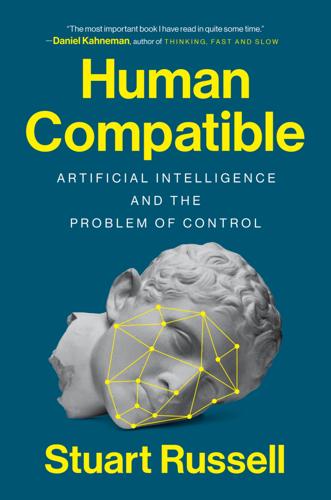
Human Compatible: Artificial Intelligence and the Problem of Control
by
Stuart Russell
Published 7 Oct 2019
For an interesting trust-based solution to the prisoner’s dilemma and other games, see Joshua Letchford, Vincent Conitzer, and Kamal Jain, “An ‘ethical’ game-theoretic solution concept for two-player perfect-information games,” in Proceedings of the 4th International Workshop on Web and Internet Economics, ed. Christos Papadimitriou and Shuzhong Zhang (Springer, 2008). 28. Origin of the tragedy of the commons: William Forster Lloyd, Two Lectures on the Checks to Population (Oxford University, 1833). 29. Modern revival of the topic in the context of global ecology: Garrett Hardin, “The tragedy of the commons,” Science 162 (1968): 1243–48. 30. It’s quite possible that even if we had tried to build intelligent machines from chemical reactions or biological cells, those assemblages would have turned out to be implementations of Turing machines in nontraditional materials.
…
This form of reasoning acknowledges that, as rational agents, Alice and Bob will make choices that are correlated rather than independent. It’s just one of many approaches that game theorists have tried in their efforts to obtain less depressing solutions to the prisoner’s dilemma.27 Another famous example of an undesirable equilibrium is the tragedy of the commons, first analyzed in 1833 by the English economist William Lloyd28 but named, and brought to global attention, by the ecologist Garrett Hardin in 1968.29 The tragedy arises when several people can consume a shared resource—such as common grazing land or fish stocks—that replenishes itself slowly.
…
Machines may well understand that human autonomy and competence are important aspects of how we prefer to conduct our lives. They may well insist that humans retain control and responsibility for their own well-being—in other words, machines will say no. But we myopic, lazy humans may disagree. There is a tragedy of the commons at work here: for any individual human, it may seem pointless to engage in years of arduous learning to acquire knowledge and skills that machines already have; but if everyone thinks that way, the human race will, collectively, lose its autonomy. The solution to this problem seems to be cultural, not technical.
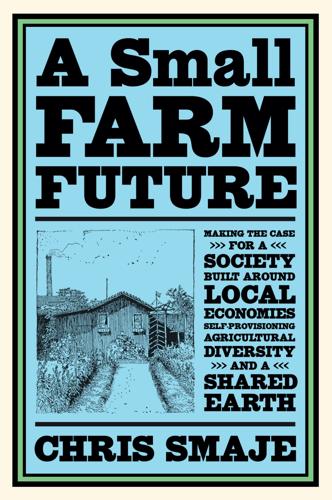
A Small Farm Future: Making the Case for a Society Built Around Local Economies, Self-Provisioning, Agricultural Diversity and a Shared Earth
by
Chris Smaje
Published 14 Aug 2020
In an influential though widely criticised paper, the controversial ecologist Garrett Hardin discussed what he called the ‘tragedy of the commons,’ in which a resource open to all, like a common pasture, might be depleted if its users each pursued their own self-interest without regard to the wider common interest.28 His critics correctly pointed out that this isn’t how a commons actually works, although private property or state control have generally been favoured over common resource management in modern times anyway. Ironically, the result has arguably been a global tragedy of the commons, in which various agencies and individuals pursuing numerous ends through the medium of fossil fuels have offloaded the consequences onto the wider world and prevented collective action against their effects on Earth’s climate.
…
But then the wealthy landowners enclosed the commons for their own private use, turfing the peasants off the land so they became landless labourers – a rural and, later, an urban proletariat, the foot-soldiers of the new capitalist economy. In 1968, ecologist Garret Hardin published an influential article called ‘The Tragedy of the Commons’ in which he argued that commons were a disastrous – a ‘tragic’ – way of organising economies, because in a commons it’s in nobody’s individual interest to limit one’s resource use to safeguard long-term sustainability. Hardin’s intervention further fuelled the already well-advanced process of converting commons into private property.
…
Selfish individualism isn’t limited to capitalist societies or Western societies.20 Successful commons needed to devise effective sanctions against free-riding … … which sometimes fail Effective sanctions aren’t easy to achieve, particularly in large-scale, differentiated societies like most modern ones, where reputational status is less total. The historical record is also full of cases where commons have failed. While Elinor Ostrom’s work is often invoked as a disproof of Hardin’s tragedy of the commons, she herself stated that his model isn’t wrong; it’s simply one possible outcome among several.21 A commons involves input/extraction rules to achieve locally specific ends … Agricultural commons always have a specific, practical and local aim: What is the best way to nourish enough cows from these fields?
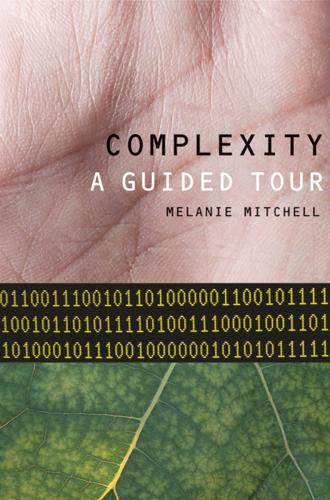
Complexity: A Guided Tour
by
Melanie Mitchell
Published 31 Mar 2009
“Merrill Flood and Melvin Drescher, invented the Prisoner’s Dilemma”: For an entertaining and enlightening discussion of the Prisoner’s Dilemma, and, more generally, game theory and its history and applications, see Poundstone, W., Prisoner’s Dilemma. New York: Doubleday, 1992. “the pursuit of self-interest for each”: Axelrod, R., The Evolution of Cooperation. New York: Basic Books, 1984, p. 7. “the tragedy of the commons”: Hardin, G., The tragedy of the commons. Science, 162, 1968, pp. 1243–1248. “Under what conditions will cooperation emerge”: Axelrod, R., The Evolution of Cooperation. New York: Basic Books, 1984, p. 3. “Thomas Hobbes, who concluded that cooperation could develop”: Hobbes’ arguments about centralized governments can be found in Hobbes, T., Leviathan.
…
This paradox also applies to the all too familiar case of a group of individuals who, by selfishly pursuing their own interests, collectively bring harm to all members of the group (global warming is a quintessential example). The economist Garrett Hardin has famously called such scenarios “the tragedy of the commons.” The Prisoner’s Dilemma and variants of it have long been studied as idea models that embody the essence of the cooperation problem, and results from those studies have influenced how scholars, businesspeople, and governments think about real-world policies ranging from weapons control and responses to terrorism to corporate management and regulation.
…
Journal of the History of Biology, 18(1), 1985, pp. 51–70. Grosshans, H. and Filipowicz, W. The expanding world of small RNAs. Nature, 451, 2008, pp. 414–416. Hales, D. and Arteconi, S. SLACER: A Self-Organizing Protocol for Coordination in Peer-to-Peer Networks. IEEE Intelligent Systems, 21(2), 2006, pp. 29–35. Hardin, G. The tragedy of the commons. Science, 162, 1968, pp. 1243–1248. Heims, S. The Cybernetics Group. Cambridge, MA: MIT Press, 1991. Heims, S. J. John von Neumann and Norbert Wiener: From Mathematics to the Technologies of Life and Death. Cambridge: MIT Press, 1980. Hobbes, T. Leviathan. Cambridge, U.K.: Cambridge University Press, (1651/1991).
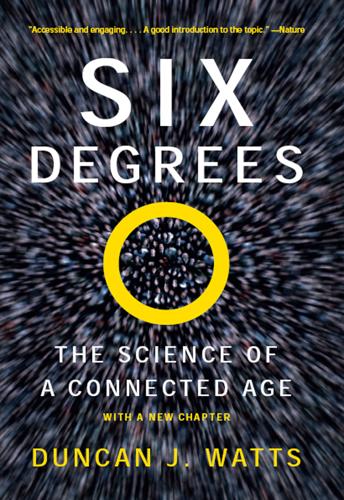
Six Degrees: The Science of a Connected Age
by
Duncan J. Watts
Published 1 Feb 2003
Paying taxes then is clearly to everyone’s benefit, to the extent that we’d be crazy not to pay them. Yet as Glance and Huberman point out, in not one country in the world is the payment of taxes a voluntary exercise. Can we not be trusted to do even those things that are obviously in our (collective) best interests? According to the tragedy of the commons, an influential theory proposed in the 1970s by the political scientist Garret Hardin, the answer appears to be no. Picture a village arranged in a preindustrial style around a large, central, shared plot of land called a commons. The villagers use this land mostly for grazing sheep and cattle, which they subsequently shear, milk, or slaughter for their own sustenance or profit.
…
As its name suggests, Hardin’s theory presents a grim view of the world but one that is hard to ignore, reminiscent as it is of so many real-world tragedies—pointless wars prolonged, despicable customs perpetuated, and irreplaceable environments eroded. As much as we would wish these things away if we could, the sad fact is that they are outcomes wrought of our own volition. Like the diner’s dilemma, the tragedy of the commons expresses the inescapable conundrum of individuals who have their own interests at heart and who can control only their own decisions, but who have to live with the consequences of everyone else’s decisions as well. INFORMATION CASCADES BUT NOT EVERY DILEMMA HAS TO END IN TEARS. JUST AS CULTURAL fads can sweep through a routinely indifferent population, so can social norms and institutions change, sometimes seemingly overnight.
…
Externalities can also arise in the absence of uncertainty, simply because the object of the decision itself is subject to increasing returns (market externalities). But there is yet another distinct class of decision externalities that arises out of the structure of public goods games like the diner’s dilemma and the tragedy of the commons. Remember that the way these games work is that “doing the right thing”—whether recycling your plastic and glass, choosing not to double-park on a busy street (even “just for a minute”), or filling up the coffee urn after taking the last cup—is individually costly but collectively beneficial.
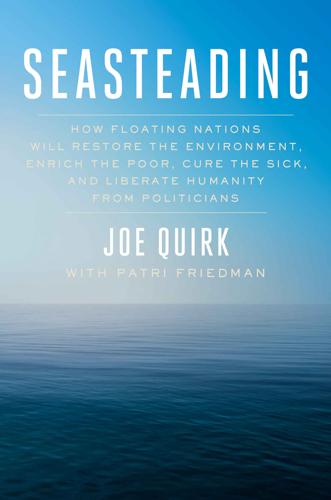
Seasteading: How Floating Nations Will Restore the Environment, Enrich the Poor, Cure the Sick, and Liberate Humanity From Politicians
by
Joe Quirk
and
Patri Friedman
Published 21 Mar 2017
Though the lack of defined property rights on the ocean has certainly contributed to overfishing in a classic “Tragedy of the Commons” situation: “In Deep Water,” Economist, February 22, 2014, www.economist.com/news/international/21596990-humans-are-damaging-high-seas-now-oceans-are-doing-harm-back-deep-water. See also “A Rising Tide: Scientists Find Proof That Privatising Fishing Stocks Can Avert a Disaster,” Economist, September 18, 2008, www.economist.com/node/12253181. See also Daniel K. Benjamin, “Fisheries Are Classic Example of the Tragedy of the Commons,” PERC Reports 19, no. 1 (March 2001): https://web.archive.org/web/20050219192447/http://perc.org/publications/percreports/march2001/tangents.php.
…
So you set an island-wide quota, and you set up size limits, and you set aside a reserve area, and it’s all ignored. You open up the lagoon, and it’s just mayhem. People will go and plunder as much as they can. It’s a natural human reaction to the common property resource. As soon as you put a dollar value on a shared resource, all of a sudden all hell breaks loose, and Garrett Hardin’s “The Tragedy of the Commons” comes charging to the fore.” He asks if we’ve read the classic 1968 essay by the famous ecologist elucidating the economic reasons why people care for their private property but ravage public property. “Everybody should read it!” he says. For those who don’t get the economic principle, Neil tells a story that, in retrospect, represents for him his breaking point.
…
Eventually we expect sea residents to ask land folk, “How do cities stranded deep inside continents provide energy? They have to drill into rock? How primitive!” Q: Do you want to privatize the oceans? Though the lack of defined property rights on the ocean has certainly contributed to overfishing in a classic “Tragedy of the Commons” situation, the law of the sea forbids any group or nation from claiming an area of the high seas to be under their ownership. By law, the sea remains free. Q: What about overfishing? Don’t we need land governments to protect the oceans? Sadly, governments don’t protect the oceans; governments provide incentives to abuse the oceans.
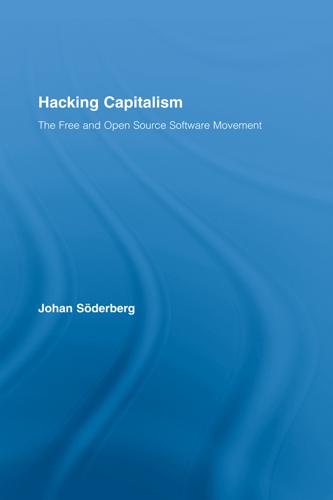
Hacking Capitalism
by
Söderberg, Johan; Söderberg, Johan;
Commons in information are paramount to networks since a shared body of knowledge is a prerequisite for enabling communication between nodes. We can choose to read Garrett Hardin’s classic paper, Tragedy of the Commons in the light of this collision between language and private property.16 Referring to medieval commons, Garrett famously claims that free access to land leads to disaster, since the individual herdsman collects full gains from increasing his herd, but the reprisals for doing so, land depletion, is shared evenly by everyone. His solution to the tragedy of the commons is private property. Owners will then be inclined to use their resources responsibly. Better still, the individual has now an incentive to develop his property and increase productivity for the greater benefit of everyone.
…
Manuell Castells, The End of Millennium, vol.III (Oxford: Blackwell Publishers, 1999), 8. 16. Garrett Hardin, “The Tragedy of the Commons”, Science, (December 1968). 17. Elinor Ostrom, Governing the Commons: the Evolution of Institutions for Collective Action (Cambridge: Cambridge University Press, 1990). 18. Self-managed collective use of commons is not an isolated event specific to pre-industrial times. New attempts are made in contemporary society when a community faces the depletion of resources on which it depends. For a collection of such examples, see David Fenny, Fikret Berkes, Bonnie McCay, and James Acheson “The Tragedy of the Commons: Twenty-two Years Later.” in ed.
…
University of Illinois Journal of Law, Technology & Policy (fall 2003). Goodman, Ellen. “Spectrum Rights in the Telecosm to Come.” San Diego Law Review (February/March 2004). Goux, Jean-Joseph and Kathryn Ascheim and Rhonda Garelick, “General Economics and Postmodern Capitalism” Yale French Studies 78 (1990). Hardin, Garrett. “The Tragedy of the Commons.” Science, (December 1968). Hearn, Francis. “Toward a Critical Theory of Play.” Telos, 30 (winter 1976–1977). Heffran, Ira. “Copyleft: Licensing Collaborative Works in the Digital Age.” Stanford Law Review (July 1997) Heller, Michael. “The Tragedy of Anticommons: Property in the Transition from Marx to Markets.”
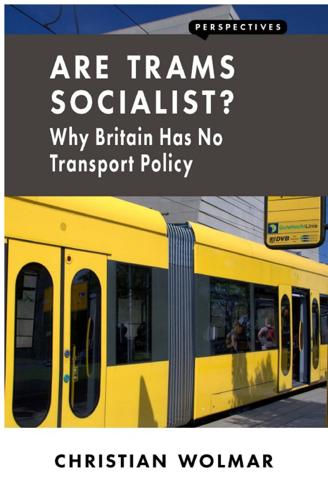
Are Trams Socialist?: Why Britain Has No Transport Policy
by
Christian Wolmar
Published 19 May 2016
British city rulers tended not to interfere in that way, and in Britain there appears to have been (and still is) a greater acceptance of wheeled, and later motor, traffic as a way of life from very early on and a possible fear of conflicts of ‘equal rights’ of all participants were not provided.⁶ This attitude was later encapsulated by Nicholas Ridley in clear ideological terms: The private motorist … wants the chance to live a life that gives him [sic] a new dimension of freedom – freedom to go where he wants, when he wants, and for as long as he wants.⁷ There is only one thing wrong with this argument, but it is a rather fundamental point: one person’s freedom may require another’s imprisonment. It is the tragedy of the commons. Road space is a scarce resource and yet there is no price control on it. As has been argued before, in a world of infinite resources and land, the car would be perfect. Traffic jams in space are rare. However, on this planet, and particularly in urban areas, the space available for cars is not limitless.
…
There are exceptions, of course, such as the London and Stockholm congestion charge zones, motorways in countries like Italy and France, various bridges and tunnels, and even the odd turnpike in the US, but they represent a tiny fraction of the world’s road network. However, for the most part, roads suffer from the tragedy of the commons. Rationing is by congestion rather than price. Their usefulness in economic terms is eroded away by congestion and overuse. Free roads ensure that transport provision is suboptimal. This is, though, a political rather than a technological failure. The government in Singapore has managed to impose a comprehensive road pricing system thanks to the fact that, according to The Economist, the city state has both ‘democratic’ and ‘authoritarian’ aspects.
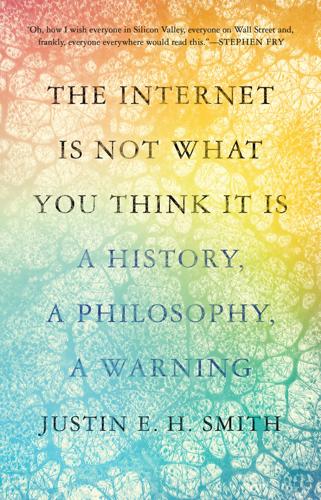
The Internet Is Not What You Think It Is: A History, a Philosophy, a Warning
by
Justin E. H. Smith
Published 22 Mar 2022
As the pseudonymous Twitter user known only as “Alice from Queens” sharply observes, Twitter is the place where “socialists show contempt for hierarchy, meritocracy and neoliberal competition by competing for status in a game designed by a Silicon Valley overlord.”39 Nor is this a situation that could have been fully anticipated by the theory of the “tragedy of the commons,” at least if we understand tragedy in the proper sense of a misfortune that befalls a protagonist as a result of some particular blind spot, like Oedipus, who did not recognize his own mother. The tragedy of the commons, as ordinarily understood, is the universally undesirable result of the collective actions of individual parties acting out of self-interest within a shared-resource system. But social media are not a shared resource in the traditional sense.
…
They are not like hungry cattle, but rather spend much of their time “signal-boosting” perfectly worthy altruistic purposes (whether this altruism is diluted by a share of virtue-signaling is irrelevant to the present point: a cow when it grazes is neither signal-boosting nor virtue-signaling, just eating). The tragedy, then, is very different from the tragedy of the commons: it is that individuals, even those operating for non-self-interested reasons, end up contributing to a situation that is universally undesirable, because they are operating in a system or field (to continue the grazing analogy) that only simulates a true commons, but in fact operates to the detriment of individual users no matter how they are behaving, whether in self-interest or altruism, whether seeking to destroy or to build.

A World Without Email: Reimagining Work in an Age of Communication Overload
by
Cal Newport
Published 2 Mar 2021
(New York: Harper Business, 2006), 4. 35. Peter F. Drucker, “Knowledge-Worker Productivity: The Biggest Challenge,” California Management Review 41, no. 2 (Winter 1999): 79–94. Italics in the original. 36. Lloyd didn’t use the phrase “tragedy of the commons.” This label was introduced later in a now famous article that rigorously analyzes the scenario: Garrett Hardin, “The Tragedy of the Commons,” Science 162, no. 3859 (December 1968): 1243–48. Chapter 4: The Attention Capital Principle 1. Joshua B. Freeman, Behemoth: A History of the Factory and the Making of the Modern World (New York: W. W. Norton, 2019), 124. 2.
…
It’s in this context that the hyperactive hive mind, once in place, became devilishly difficult to eradicate, as it’s hard to fix a broken workflow when it’s no one’s job to make sure the workflow functions. In 1833, the British economist William Forster Lloyd proposed a hypothetical scenario, now a classical example in game theory, that can help us better understand this dynamic. The scenario, which eventually became known as the tragedy of the commons,36 considers a town that maintains common grazing land for cattle and sheep, as was typical in Great Britain in the nineteenth century. Lloyd pointed out an interesting tension: it’s in the individual interest of each herder to graze his animals as much as possible on the commons, and yet when all herders act in their best interest, they’ll inevitably overgraze the commons, rendering it useless to everyone.
…
The negative consequences of the hyperactive hive mind, in other words, are unlikely to be resolved by small shifts in individual habits. Even good-natured attempts to nudge the behavior of an entire organization, such as promulgating better norms around email responsiveness or attempting one-off experiments like email-free Fridays, are doomed to fail. As 150 years of economic theory has taught us, to solve the tragedy of the commons, you cannot expect substantially better behavior from the herders; you need instead to replace the free-for-all grazing system with something more efficient. The same holds for the hyperactive hive mind: we cannot tame it with minor hacks—we need to replace it with a better workflow. And to do so, we must soften Peter Drucker’s stigma against engineering office work.
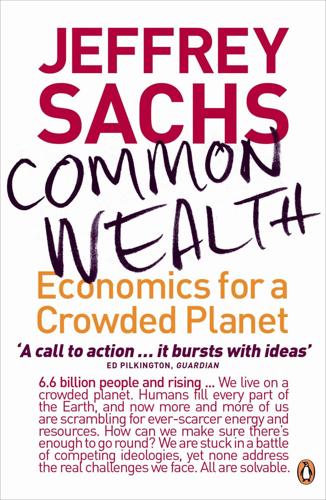
Common Wealth: Economics for a Crowded Planet
by
Jeffrey Sachs
Published 1 Jan 2008
Holdren, “One-Dimensional Ecology,” Bulletin of the Atomic Scientists, June 1972, pp. 16–27. 34 innovations systems: My colleague Richard Nelson has been the world’s leading scholar on mapping the structure and performance of these innovation systems in many parts of the world. For further reading see: Richard Nelson, ed., National Innovation Systems: A Comparative Analysis (New York: Oxford University Press, 1993). 38 “tragedy of the commons”: Garrett Hardin, “The Tragedy of the Commons,” Science 162 (1968): 1243–48. 38 variety of quota systems: J. R. Beddington et al., “Current Problems in the Management of Fisheries,” Science 316 (June 22, 2007): 1713–16. 39 Community-based management: See Elinor Ostrom, Governing the Commons: The Economics of Institutions for Collective Action (Cambridge: Cambridge University Press, 1990) and Partha Dasgupta, “Common Property Resources: Economic Analytics,” in N.
…
The rate of harvesting (fishing, logging, or grazing) can dramatically exceed the natural regrowth rate of the natural population of fish, trees, or grasses. In this case, the commons will be depleted. This recognition that an open-access resource will give rise to rapid depletion was famously termed the “tragedy of the commons” by Garrett Hardin in 1968. Just as with pollution control, there are many mechanisms to limit the rate of harvesting to a sustainable level. One method is to introduce tradable permits for harvesting, akin to the tradable permits for pollution emissions. The most efficient fishing fleets, which stand to make the highest profits on fishing, will buy more permits.
…
When a community drills boreholes for irrigation, the consequences can easily be a reduction in the flow of water to other neighboring wells or even far downstream. A tradition of first come, first served to the use of water can lead to massive losses for all—one of the greatest manifestations of the tragedy of the commons. Yet simply privatizing water without strong protections for the poor can end up denying the weakest part of the population the access to safe water it needs to stay alive. Privatization of water rights may be contrary to basic ecological good management as well, for example, through overexploitation of groundwater.
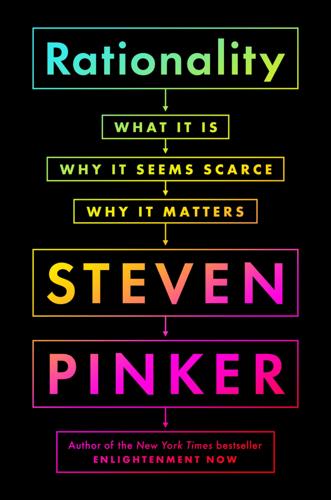
Rationality: What It Is, Why It Seems Scarce, Why It Matters
by
Steven Pinker
Published 14 Oct 2021
Students forget it as soon as the exam is over and they sell their textbooks, and even when they remember the material, almost no one makes the leap from abstract principles to everyday pitfalls.83 But well-designed courses and video games—ones that single out cognitive biases (the gambler’s fallacy, sunk costs, confirmation bias, and so on), challenge students to spot them in lifelike settings, reframe problems in mind-friendly formats, and provide them with immediate feedback on their errors—really can train them to avoid the fallacies outside the classroom.84 * * * • • • Rationality is a public good, and a public good sets the stage for a tragedy of the commons. In the Tragedy of the Rationality Commons, motivated reasoning for the benefit of oneself and one’s side produces an opportunity to free ride on our collective understanding.85 Each of us has a motive to prefer our truth, but together we’re better off with the truth. Tragedies of the commons can be mitigated with informal norms in which members of a community police the grazing lands or fishing grounds by recognizing good citizens and stigmatizing exploiters.86 The suggestions I have made so far can, at best, fortify individual reasoners and inculcate the norm that sound reasoning is a virtue.
…
On the other side, eBay user sites advise bidders to decide beforehand how much the item is worth to them and bid no higher. Some sell a form of Odyssean self-control: they robo-bid up to a limit the bidder sets in advance, tying him to the mast for his own good during the frenzy of an Ego Escalation Game. The Prisoner’s Dilemma and the Tragedy of the Commons Consider a familiar plot from Law and Order. A prosecutor detains partners in crime in separate cells, lacks the evidence to convict them, and offers them a deal. If one agrees to testify against the other, he will go free and his partner will go to prison for ten years. If each rats out the other, they both get six years.
…
* * * • • • Many of the dramas of political and economic life may be explained as Prisoner’s Dilemmas with more than two players, where they are called Public Goods games.20 Everyone in a community benefits from a public good such as a lighthouse, roads, sewers, police, and schools. But they benefit even more if everyone else pays for them and they are free riders—once a lighthouse is built, anyone can see it. In a poignant environmental version called the Tragedy of the Commons, every shepherd has an incentive to add one more sheep to his flock and graze it on the town commons, but when everyone fattens their flock, the grass is grazed faster than it can regrow, and all the sheep starve. Traffic and pollution work the same way: my decision to drive won’t clog the roads or foul the air, just as my decision to take the bus won’t spare them, but when everyone chooses to drive, everyone ends up bumper to bumper on a smoggy freeway.

Having and Being Had
by
Eula Biss
Published 15 Jan 2020
Why is gang violence such a problem in Chicago, my dinner companions are wondering as I sit down at the long banquet table. Someone says something about bad families. At the suggestion of my host, I move to the other end of the table, where a man mentions that I might be interested in an essay titled “The Tragedy of the Commons.” I’ve just read that essay, I tell him, yesterday. He hesitates and then explains it to me. The tragedy, he says, is that everyone will always take as much as they can from the commons. This isn’t my sense of the tragedy—the tragedy is that by the time that essay was written the commons had already been lost and the regulations that once prevented everyone from taking as much as they could from the commons had been forgotten.
…
Its veracity is less important than its influence, one of my colleagues once said of that essay. Meaning, the lies we want to believe tell us something about ourselves. I excuse myself to join a group of women gathered by the dessert table. One of them tells me that she invests in medical technology. Investment, I’m reminded, is a line of work for the wealthy. I still have “The Tragedy of the Commons” on my mind. I tell her about the work I do in the garden at the elementary school. As I weed and water there, I say, I watch other women coming and going from their volunteer work inside. They do homework with the children who come in early for the free breakfast and they run a book exchange and they give talks about art and they share the work of supporting the school.
…
Parkwood, Sony, Roc Nation, 2018. The Raft of the Medusa, Théodore Géricault. 1818–1819. The Massacre at Chios, Eugène Delacroix. 1824. Venus de Milo, Alexandros of Antioch. 101 BC. “Art and Property Now,” John Berger. Landscapes: John Berger on Art. Verso, 2016. BLOOD “The Tragedy of the Commons,” Garrett Hardin. Science, December 13, 1968. BICYCLE MANIFESTO “Interview with Cauleen Smith and Brandon Breaux,” Hans-Ulrich Obrist, Cauleen Smith, Brandon Breaux. Creative Chicago: An Interview Marathon, Hans-Ulrich Obrist, Alison Cuddy. Terra Foundation for American Art, 2019.
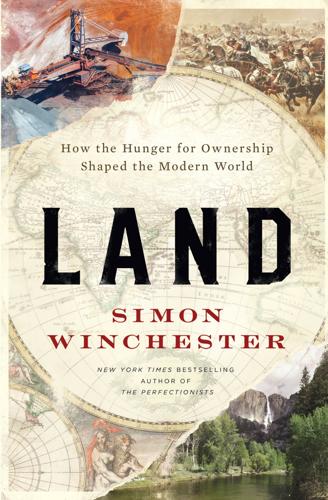
Land: How the Hunger for Ownership Shaped the Modern World
by
Simon Winchester
Published 19 Jan 2021
So far as justification is concerned, the official reasons can be inferred from the long title of the enabling act that Parliament passed in 1773, that “inclosure” was a process designed “for the better Cultivation, Improvement, and Regulation of the Common Arable Fields, Waste and Commons of Pasture in this Kingdom.” The unstated reason, however, was suggested by an infamous paper published in Science magazine very much later, in 1968, which had a title that has since become a catchphrase: “The Tragedy of the Commons.” The essay’s author, an American ecologist named Garrett Hardin who was a devout anti-immigrationist and eugenicist and a believer in the dangers of overpopulation, declared that commonly used land would inevitably be badly used land, because people were greedy or careless, wouldn’t cooperate or take care of their land, would push as many of their own cattle to graze on fields that were already overgrazed, would take more than their fair share, and so on—would, in other words, ruin the bounty that God and Nature had so generously offered to them.
…
If a person puts more cattle into his own field, the amount of the subsistence which they consume is all deducted from that which was at the command of his original stock; and if, before, there was no more than a sufficiency of pasture, he reaps no benefit from the additional cattle, what is gained one way, being lost in another. But if he puts more cattle on a common, the food which they consume forms a deduction which is shared between all the cattle, as well that of others as his own, and only a small part of it is taken from his own cattle. This, as Hardin described it, was the true tragedy of the commons, and the only sure way to avert it was to make the land private. “Common ownership remorselessly generates tragedy,” he wrote, and then with a final flourish, offered a paragraph memorized by all who have strong views about enclosure and common ownership: An alternative to the commons need not be perfectly just to be preferable.
…
H., 78, 188, 265, 345 Audubon, John James, 30 Australia aboriginal dispossession in, 28 aboriginals as T.O.’s, 199–200, 239 aboriginal voting rights, 324 aboriginal wisdom, 239–45, 241 “Australia’s father,” Macquarie, 350 Cook’s arrival in (1770), 235–39 Cooktown, 238 fires of 2020, 239, 240, 242–43 gaba (Great Australian Bugger All), laws governing, 200 largest landowners, 196–200 migration to begins, 326 mining in, 199 New South Wales, 235, 238, 326, 327, 334, 349 Rhinehart’s land and wealth, 197–200, 198 terra nullius and exploitation, 200 Balfour, Arthur, 273, 276 Balkan conflict, 1990s, 76, 267 Bangladesh, 85–86, 400 Indian exclaves and, 86–87 Banks, Joseph, 235–36, 238, 239 Bannerman, George, 191n barbed wire, 218–19n, 218–21, 219 Barbed Wire Magazine, 219n Barton-upon-Humber, England, 179–80 bedrock, 9, 10, 13 Belfast, Northern Ireland, 265–66 Short Strand, 265–66 Belgian Congo, 365 Bellevue, Wash., 309, 313 Aramaki’s land in, 302, 303, 306–7, 315–16, 318, 318n Aramaki’s parents settle in, 306 Japanese community, 307, 308, 311 as U.S. strawberry capital, 303 Ben-Gurion, David, 279, 280 Berkshires, 11, 388 Beverley, Robert, 134 Bezos, Jeff, 209 Bhave, Vinoba, 390–92, 391 Birds and Trees of North America (Brasher), 30 Bolson tortoise, Gopherus flavomarginatus, 204 Boston, Mass., 5, 179, 386, 389 Charles River vista, 385 Boudinot, Elias Cornelius, 148–49 boundaries, borders, 39–50, 73–92 accuracy of, 50 Afghanistan-Pakistan border (Durand line), 81 Albania-Montenegro border, 75 ancient Britain, 44–46, 167, 171, 172 ancient field patterns and, 44–47, 45 Andorra-France border, 75–76 Argentina-Chile border, 77 Argentina-Uruguay border, 75 awareness of marked and unmarked, 46–47 Balkan conflicts and, 76 barbed wire and, 218–19n, 218–21, 219 as basis of land possession, 46 Canadian-U.S. border, 73–74, 77, 87–89, 88 ceremonies and celebrations of, 47, 47n, 48 China-India border, 77 of cities and towns, 47 earliest, 75–76 farming, animal husbandry, and, 40–42 of frontiers, 49, 49n, 73–92 governance and, 47 India-Pakistan frontier, 49, 77–85 international land borders, 74–75 Ireland-Britain border, 75 islands and, 74 measuring and mapping of, 47–48 most granular land divisions, 46–47 Myanmar-Manipur border, 75 of nations, 48–49, 73–92 Paris Peace Conference and, 67, 76 Powell’s ideas about, 66 private ownership of land and, 172 unconformity and placement, 45–46 ways to mark, 47 West Bank “separation barrier,” 281 World War II and, 76 Boy Scouts of America, 204, 204n Brasher, Rex, 30, 33, 34 Brasher family, 30 Briscoe and King ranches, Texas, 201 Britain ancient field systems, 45, 167, 171 Anglo-Saxon England, 165–66, 167 animal husbandry in, 41 Balfour Declaration and, 273 “beating the bounds” ceremonies, 47n, 48 birth of the iron plough, 43–44 Boadicea’s uprising, 166, 166n bookland and folkland in, 165–66 boundaries begin in, 44–46, 167, 171 Bronze Age farmers, 40, 42–43, 172 Celts of, 167 class system in, 160 colonial Africa and, 98–99, 366, 367 colonization of North America, 129–31, 133–34, 136–37 common land system, 173–74, 177–78 community land trusts, 392, 393, 395 CROW (Countryside and Rights of Way Act), 223 customary law and assignment of village land, 173 Deverel-Rimbury field patterning, 44, 82–83, 172 Doctrine of Discovery and, 132 Drake’s claim to California, 128 early agriculture, Wiltshire and Dorset, 44, 46 Empire of, Africa, 98–99 enclosure, enclosure acts, 172–81 England-Scotland border, 76 enslavement of Native Americans, 132 growth of cities, 175, 183 Hadrian’s Wall, 76, 166 Industrial Revolution in, 174–75, 179, 183–84 Ireland-Britain border, 75 landed gentry, 159–68, 196 land ownership and the Crown, 195, 272 land ownership in antiquity, 166–67 largest private landowners, 196 maps and free wandering, 98 Murders Abroad Act and, 328, 328n Norman Conquest, 162–65, 167 Norman kings, 164 ocean expansion and land loss in, 400 oldest words in the language, 165 Ordnance Survey Maps, 94–97 Ordnance Survey of, 97 Palestinian Mandate, 272–78, 274n Petty’s thoughts on land and, 133 Plantagenet kings, 164 revolts, land and, 166, 174, 175 as Roman Britannia, 166–67 royal estates of, 249 strip lynchets of, 45, 45 Suez Canal and, 273 trope on British missionary behavior in Africa, 98, 326 Tudor era enclosures, 173 utopian cities of Welwyn and Port Sunlight, 251 wheat grown in antiquity, 40 wilding, rewilding in, 229–32, 234 World War II and, 273 Zionist movement in, 273 British East India Company, 327n Bronze Age, 40, 43, 46, 172 Buccleuch, Duke of, 196 Buchanan, James, 144 Bundle of Rights, 4n, 35, 215 right of exclusion (trespass), 35, 215 Bunnell, Lafayette Houghton, 380–81 Burlington & Missouri River Railroad Company, 141 Burrell, Charles, and Isabella Tree, 230–32, 231 Burton, Sir Richard, 364 Busby, James, 328, 331, 333, 340 Byron, George Gordon, Lord, 247 Cabrillo, Juan Rodríguez, 127 Cade, Jack, 174 California, 7n, 18, 201, 221, 307 Drake lands in, 127 forty-niners, 379 Japanese-American incarceration and land confiscated, 312, 313, 313n, 317 Japanese in, 1940s, 309, 311, 311n Miwok and Mono people of, 378–79, 382 nuclear laboratory in, 255 Savage and Indian clearance, 378–80 Spanish territory, 138 Yosemite Valley, Yosemite National Park, 376–77, 378, 382, 383 Calusa people, 126 Canada, 69 explorers and mapmakers of, 90, 90n Irving family as landowners in, 201–2 Manitoba land fights, 192 métis people in, 192 Northern Plains Indians and, 192 Red River Settlement, 191–92 Scottish clearances and emigration to, 172, 191–92, 191n, 352 See also specific provinces, places Canadian-U.S. border, 73–74, 77, 87–92, 88, 89n 49th parallel, 77, 87, 90, 91 Northwest Angle, 88–90, 91 Capital (Marx), 179 Carse, Duncan, 99–100 Catawba people, 136n Catus, Decianus, 166n Cuyahoga River, 396 Chamberlain, Neville, 353 Charles, Prince of Britain, 78 Charles II, King of England, 25, 34 Charles River, 385–86 Gates of the Charles, 386 Cherokee nation, 136n, 146, 148–50, 404 Indian Territory and, 148 removal plan for, 146 slavery and, 147n Trail of Tears, 145 Cheyenne people, 149, 261 Chickasaw people, 145, 146, 149 Chile, Argentina’s border with, 77 China ancient attitudes on land ownership, 130n, 365 cities with over one million inhabitants, 251 Great Wall, 76 IMW and, 67 Indian border with, 77 most polluted cities, 251 ocean expansion and land loss in, 400 Opium Wars, 327n Wade-Giles system for the Chinese language, 163n Choctaw people, 124, 146, 404 Trail of Tears, 145, 147–48, 147n Churchill, Winston, 180, 282 cities, 247–53 circumferential highways of, 253 Denver and Rocky Flats plutonium plant, 253–60, 254, 257 global migration from rus to urbs, 247 Industrial Revolution and, 247 land degradation and, 247, 248, 252–53 most polluted, 251 over one million inhabitants, 251 public spaces, parks, 248–50, 250 redlining and, 251 today’s “dreadful night,” 250–51 use of eminent domain in, 251–52 well-planned vs. ill-conceived, 250–51 See also specific cities Clare, John, 6, 51 clearance, the clearances, 171–72, 181–93 compared to the Holocaust, 184 population migration and, 171–72, 191–92, 191n resistance of Kildonan, 189–91 Sellar carrying out, 185–86, 188–90 Sutherland family and, 183–85, 183n wretched and miserable results, 181 Cleveland, Ohio, Evergreen Cooperative, 395–96 climate change, 198, 213, 375 cattle population and, 220 extreme weather and, 115 planetary warming, 399–400 rising sea level and, 1, 108, 115, 120, 398–402 Clinton, Bill, 84 Colorado radioactivity and, 254–60, 257 reservations and tribal peoples, 261 Comanche people, 150n common land, 173, 177–78, 272 Barton-upon-Humber, 179–80 enclosure of, in Britain, 175–80 Hebrides, 348, 348–61, 352n, 353 political left’s support of, 178–79 “The Tragedy of the Commons,” 177–78 See also land trusts Connecticut, 3, 17, 207 iron ore and iron goods in, 23–24 surveys and land disputes with N.Y. state, 21n Conquest, Robert, 295–96, 298 conservation, 375 Bhave and Bhoodan movement, 390–92, 391 conservation restrictions or easements, 387–90 land trusts and, 386–90 Muir and, 375, 376, 377 native people’s land claims and, 375–83, 382 nineteenth-century conservation movement, 377 Questing Reserve, Mass., 388–89 Rocky Narrows Reserve, Mass., 386–87 Yosemite Land Grant Act (1864), 378, 382 Cooch Behar, 85, 87 Cook, Captain James, 235–39 lands claimed for Britain, 326, 326, 329 legacy with aboriginal peoples, 239 Cooper, James Fenimore, 17 Cooper, Whina, 337, 338 Cornell University, 203n Cosmopolitan magazine, Wicks article on Guthrie, Okla., 155 Craig, David, 184 Creek people, 145, 146, 148 Cunningham, Sir Alan, 278 Custer, George Armstrong, 143 Czechoslovakia, 353n Dead Sea, shores of, 7n Death Valley, Calif., 7n Defoe, Daniel, 110 Deloria, Philip, 142, 143–44, 144n Denman, Donald R., 39 Denver, Colo.
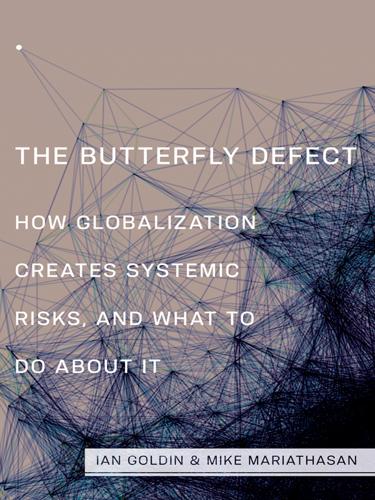
The Butterfly Defect: How Globalization Creates Systemic Risks, and What to Do About It
by
Ian Goldin
and
Mike Mariathasan
Published 15 Mar 2014
In a complex system, resilience becomes a separate goal and has to be considered separately from other goals.4 Two interrelated problems arise. The first is that although each of our individual actions may be rational, collectively they may lead to failure. Economists and social scientists have studied the “tragedy of the commons” for centuries. The problem is compounded as the population grows and as incomes rise and individuals become freer to choose what they want to consume. Bluefin tuna fishing was once sustainable, but in January 2013 one such tuna sold for $1.7 million.5 As in the case of rhinoceros horn, it is simply a question of time until the market mechanisms lead to extinction.
…
Our focus is on the systemic risk that is embedded in the current wave of globalization and the complexity it engenders, which give rise to uncertainty and unintended consequences, including the erosion of the responsibilities of individuals and firms. These unintended outcomes are “externalities” because profit-maximizing agents do not incorporate these social costs in their cost–benefit analyses. Systemic risks may thus be considered a contemporary manifestation of the tragedy of the commons. Exploiting Ricardo’s comparative advantage creates efficiency gains but simultaneously fosters interdependence.55 Using the benefits of trade leads to output growth but also to inequality. The Internet has increased transparency and the flow of information but equally has the potential to facilitate the spread of rumors and panics as well as cybercrime and aggression.
…
One reason for the failure to identify and contain the financial crisis of 2007/2008 in a timely manner was that the approach to governance was largely guided by thinking in linear and one-dimensional relationships. In a complex and highly nonlinear world, such thinking generates unintended consequences. We have seen that systemic risk is a modern manifestation of the tragedy of the commons. This goes beyond the suggestions of Dani Rodrik, who prominently argues that systemic risk can be better managed by national governments.71 The risks transcend national boundaries, they impact the global commons,72 and they can be time delayed as a result of indirect causation.73 To deal with the twenty-first century’s new systemic risk, therefore, we see the need for greater responsibility coupled with fundamental reforms of global governance.
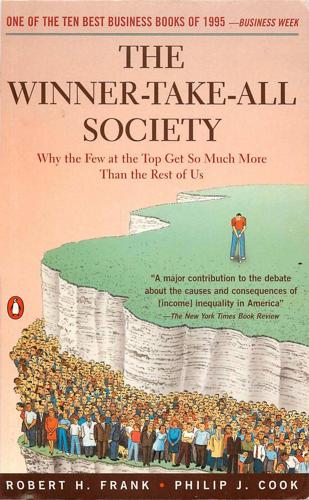
The Winner-Take-All Society: Why the Few at the Top Get So Much More Than the Rest of Us
by
Robert H. Frank, Philip J. Cook
Published 2 May 2011
More specifically, it implies that even if we control for age, educa tion, experience, ability, and other individual characteristics thought to influence productivity and hence income, we should see greater in come variability now than in the past. In chapter 5 we saw evidence of just such a change in income variability in the American economy. Implications for Tax Policy The similarity between winner-take-all markets and the tragedy of the commons suggests a straightforward way of reducing the efficiency losses associated with excessive entry into winner-take-all markets. In the tragedy of the commons, recall, the problem was that individual market incentives called forth too many steers onto the commonly owned pastureland. If the problem is that the individual market re wards for an activity are too high from a social perspective, the sim plest solution is to tax that activity, thus making it less attractive.
…
Be cause he ignores the cost to others, the prospect of sending an addi tional steer seems more attractive to him than it is, in fact, to the village as a whole. Similarly, when an additional singer enters the recording contest, she makes each existing contestant less likely to win, and because she ignores that cost, entry into the recording con test is misleadingly attractive. The tragedy of the commons-and, by extension, the overcrowding problem in winner-take-all markets-is also analogous to the problem of environmental pollution. When people respond only to individual Too Many Contestants? 1 09 market incentives, too much pollution results because people ignore the costs of the pollution they impose on one another.
…
The individual will now compete for the record ing contract as long as the expected after-tax payoff is at least as large as the potter's wage. With the effective reward to the winning singer thus reduced, the number of competing singers will fall. Of course, taxation is not the only way of curtailing an activity that is misleadingly attractive to individuals. An alternative solution to the tragedy of the commons is to auction a limited number of grazing permits to the highest bidders. Here, too, an alternative solution would be to auction 122 The Winner-Take-All Society licenses to compete for the recording contract. In a world of perfect capital markets and no transaction costs, the tax and auction alterna tives would be equivalent.
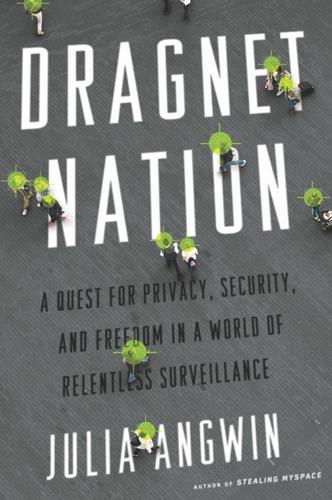
Dragnet Nation: A Quest for Privacy, Security, and Freedom in a World of Relentless Surveillance
by
Julia Angwin
Published 25 Feb 2014
Hirsch compared institutions that mine individuals’ personal data to ranchers who overgraze their cattle on commonly owned grasslands, as portrayed in Garrett Hardin’s seminal 1968 essay in Science magazine, “Tragedy of the Commons.” Hardin described how each rancher seeks to increase profits by adding cattle to his herd, even though too many cattle will overgraze and ruin the pasture for all. “Freedom in a commons brings ruin to all,” Hardin wrote. Hirsch described excessive data mining as a similar tragedy of the commons. Like the cattle herders, he said, companies that mine data have an incentive to use more and more data to gain a competitive advantage. But each time they do so, they undermine users’ trust that their data will be appropriately cared for and protected.
…
even a few freshwater mussels: Michael Scott, “Freshwater Mussels Found in Cuyahoga River, Indicating Improved Water Quality,” Cleveland Plain Dealer, August 22, 2009, http://www.cleveland.com/science/index.ssf/2009/08/freshwater_mussels_found_in_cu.html. To understand the links: Dennis Hirsch, in discussion with author, July 26, 2011. as portrayed in Garrett Hardin’s: Garrett Hardin, “The Tragedy of the Commons,” Science 162, no. 3859 (December 13, 1968): 1423–48, http://www.sciencemag.org/content/162/3859/1243.full. “The risk here is that eventually”: Dennis Hirsch, in discussion with author, July 26, 2011. This is the argument put forth: David Brin, The Transparent Society (New York: Basic Books, 1999).
…
See dragnets Surveillance Catalog surveillance flexitarians Surveillance in the Stacks (Foerstel) surveillance theater surveillance vegans Sussmann, Michael Sweeney, Latanya TACODA Tarbell, Ida (fake identity) tax fraud Taylor, Wendy TECS database telecommunications providers Te’o, Manti terms of service terrorism terrorist watch lists text messages encrypted TextSecure The Amnesic Incognito Live System (Tails) ThinThread Third-Party Doctrine Thomson Reuters’s Westlaw threat models assessing vulnerabilities and identifying threats self-defense tactics vs. thumb drives Thunderbird Tiffany, Michael J. J. Time TLO (The Last One) Todesco, Gaebriella Töpfer, Eric Toporoff, Steve Tor Toxics Release Inventory tracker blockers tracker lists traffic analysis “Tragedy of the Commons” (Hardin) Trailblazer transparency Transparent Society, The (Brin) TransUnion travel. See also airlines; border searches; no-fly lists; terrorist watch lists Traveler Redress Inquiry Program (TRIP) Treasury Department Treasury Enforcement Communications System TrueRep.com trust Truth in Caller ID Act (2010) Tsarnaev, Dzhokhar Tsarnaev, Tamerlan Twitter auditing your data on password and two-factor authentication Twombly, Linda Tynan, Dan Union Square Ventures United Kingdom United Nations Declaration of Human Rights U.S.

Dark, Salt, Clear: Life in a Cornish Fishing Town
by
Lamorna Ash
Published 1 Apr 2020
It is all these things at once, every contradiction and inconsistency. In 1968 the biologist and ecologist Garrett Hardin published a paper called ‘The Tragedy of the Commons’, in which he argued that individuals are motivated by their own self-interest to overuse common property. If the seas are left unchecked as a communal resource, Hardin explains, each man will ensure he spends as much time and effort at sea as to be certain no one else can take his share. The tragedy of the commons, as with most economic theories designed to make sense of an unpredictable world, is not as simplistic as first outlined; humans cannot simply be reduced to inherently selfish agents, as they cannot be reduced to purely good or evil.
…
Rather, it seems clearer now that the rising competition over the produce of the seas is also intrinsically tied to the expansion of capitalism around Europe, the advancement in fishing technology and the more desperate conditions created by post-war austerity. The introduction of individual fishing quotas (IFQs) throughout Europe during the 1960s was an attempt to tackle the tragedy of the commons, each fishing boat being allowed to catch their appropriate share of fish within the seas they hunted. Privatisation became a quick fix to the problems of commonly owned resources. The assumption went: if each fisherman had a property right over their share of the fish in the sea, instead of believing they were all chasing the same stocks, they would be more likely to conserve fish for the future.
…
When the sea-faring peoples of Oceania consider their world, he writes, they do not think only of the islands, but ‘the surrounding ocean as far as they could traverse and exploit it, the underworld with its fire-controlling and earth-shaking denizens and the heavens above with their hierarchies of powerful gods and named stars and constellations that people could count on to guide their way across the seas’ – a sea of islands. Though Cornwall is a county in the UK and not a continent, I found Hau’Ofa’s image of a land that does not end with the land but extends out into the waters a powerful tool with which to consider Newlyn and Cornwall more generally. For Garrett Hardin, see ‘The Tragedy of the Commons’, in Science, Vol. 162, no. 2859 (1968). For Elizabeth Bishop, see ‘The Fish’, in The Complete Poems. For Joseph Conrad, see The Nigger of the ‘Narcissus’. CAREWORN For Dylan Thomas, see ‘Quite Early One Morning’, in Collected Stories (New York: New Directions, 1945, 1967, and London: Weidenfeld & Nicolson, 2014).
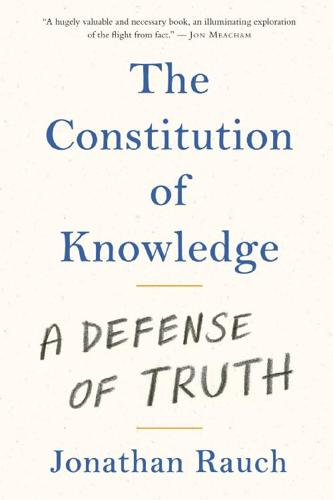
The Constitution of Knowledge: A Defense of Truth
by
Jonathan Rauch
Published 21 Jun 2021
Yet, as Yale’s Kahan points out, if a whole community behaves this way, the collective effect is devastating: the whole community loses touch with reality. Kahan calls this problem an “epistemic tragedy of the commons,” adapting economists’ term for behavior which is rewarding for individuals but self-defeating for communities. In markets, tragedies of the commons cause price bubbles, resource exhaustion, environmental depredations, and sometimes wholesale economic collapse. Something analogous can happen with epistemic tragedies of the commons, turning communities—even entire nations—into cults of personality or ideology which are on a collision course with reality, yet are unable to self-correct without self-destructing.
…
See also academics and academia Sumpter, Randall S., 122 superiority bias, 26 Swift Boat Veterans for Truth, 7–8 terrorists and terrorism, 27–28, 130, 185, 220 Tetlock, Philip: “Political Diversity Will Improve Social Psychological Science,” 224 Thirty Years War, 39 Tocqueville, Alexis de, 197, 217 toleration, 51, 56, 192, 252 totalitarianism, 39, 44, 164, 195–96 Trader Joe’s, 239 traditional media networks, 136–38 tragedies of the commons, 37 transgender issues: cancel culture and, 10–11, 220; emotional safetyism and, 206–07; Fairness for All Act and, 238–39 transracialism, 211–12 trauma and emotional safetyism, 203–04 Trenchard, John, 57 tribalism and tribal truth: bias in, 27, 31–34; conservative media and, 175, 178; creed war and, 38–41; empiricism vs., 90–91; Hobbes on, 21–22; institutions overcoming, 42; liberalism compared to, 59, 71–72, 263; network epistemology compared to, 71–73; new earth theory and, 63–64; outrage addiction and, 128–29, 259–60; persuasion in, 22–24; representative democracy and, 81–82 trolls and trolling: cancel culture and, 14; conservative media and, 160, 174–80; disinformation campaigns of, 157, 161–68, 185–88; epistemic crisis and, 8–10, 15–16, 18, 156–57, 184–88; as information warfare, 18, 163, 169, 173, 183–85, 247; marginalization of, 258–60; methodology and motivation of, 158–61; outrage addiction and, 130; power through, 166–69; Trump and, 7, 167, 169–73, 180, 184–88 Truman State University, 205 Trump, Donald: Bannon and, 163; conservative media and, 177, 179–80; epistemic crisis and, 7–8, 10, 241–42; false claims of, 101, 104; Mueller investigation of, 20; on news media, 180–81; news media and, 6, 171, 235; political correctness and, 14; troll epistemology and, 7, 167, 169–73, 180, 184–88; truthiness and, 261; Ukraine scandal and, 32 truthfulness: digital media and, 125–26, 133, 138, 143–46, 148–50, 153–54; epistemic crisis and, 8–9; human nature and, 22; intelligence agencies and, 101; as norm and republican value, 5–6, 112; propaganda campaigns and, 166; social design for, 139, 146–49; Trump and, 169–70, 173; truthiness vs., 260–62 truthiness, 260–62 Tufts University’s Christian Fellowship, 243–44 Tuvel, Rebecca, 211, 213, 215, 220–21 Twitter: advertising and, 149; cancel culture and, 210; content regulation and, 144, 146, 149, 240; Gamergate and, 158; outrage addiction and, 127, 129; speed of falsehoods on, 133; Trump and, 171 tyranny of the few, 228–31 Ulbig, Stacy G., 227 UnCancel Project, 246 universities.
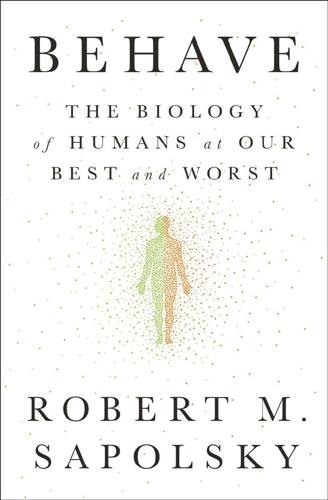
Behave: The Biology of Humans at Our Best and Worst
by
Robert M. Sapolsky
Published 1 May 2017
Slow and Fast: The Separate Problems of “Me Versus Us” and “Us Versus Them” The contrast between rapid, automatic moral intuitionism and conscious, deliberative moral reasoning plays out in another crucial realm and is the subject of Greene’s superb 2014 book Moral Tribes: Emotion, Reason, and the Gap Between Us and Them.33 Greene starts with the classic tragedy of the commons. Shepherds bring their flocks to a common grazing field. There are so many sheep that there is the danger of destroying the commons, unless people decrease the size of their herds. And the tragedy is that if it is truly a commons, there is no incentive to ever cooperate—you’d range from being a fool if no one else was cooperating to being a successful free rider if everyone else was.
…
This issue, namely how to jump-start and then maintain cooperation in a sea of noncooperators, ran through all of chapter 10 and, as shown in the widespread existence of social species that cooperate, this is solvable (stay tuned for more in the final chapter). When framed in the context of morality, averting the tragedy of the commons requires getting people in groups to not be selfish; it is an issue of Me versus Us. But Greene outlines a second type of tragedy. Now there are two different groups of shepherds, and the challenge is that each group has a different approach to grazing. One, for example, treats the pasture as a classic commons, while the other believes that the pasture should be divided up into parcels of land belonging to individual shepherds, with high, strong fences in between.
…
The thing that makes the tragedy of commonsense morality so tragic is the intensity with which you just know that They are deeply wrong. In general, our morally tinged cultural institutions—religion, nationalism, ethnic pride, team spirit—bias us toward our best behaviors when we are single shepherds facing a potential tragedy of the commons. They make us less selfish in Me versus Us situations. But they send us hurtling toward our worst behaviors when confronting Thems and their different moralities. The dual process nature of moral decision making gives some insights into how to avert these two very different types of tragedies.
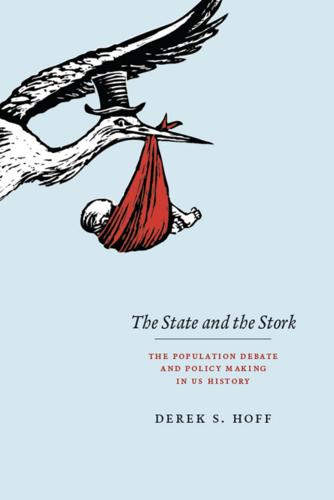
The State and the Stork: The Population Debate and Policy Making in US History
by
Derek S. Hoff
Published 30 May 2012
Stationary Population Growth,” Population Studies 22 (November 1968): 379–97. 65. Davis, “Zero Population Growth.” 66. Rienow and Rienow, Moment in the Sun, 211–12. 67. Garrett Hardin, “The Tragedy of the Commons,” Science 162 (December 13, 1968): 1243–48. 68. Ibid., 1246. 69. Ibid., 1247. 70. Garrett Hardin, “Living on a Lifeboat,” BioScience 24 (October 1974): 561–68. 71. Hardin wrote that “those who are biologically more fit to be the custodians of property and power should legally inherit more” (“Tragedy of the Commons,” 1247). Still, he rejected the notion that genetics should guide such transfers and never suggested that members of various ethnic groups have different innate abilities.
…
Let all lovers of life plead for a new philosophy, a transformed social code, so that this nation and the world may survive.”66 A famous proponent of draconian population control was biologist Garrett Hardin, an enormously polarizing figure whose radicalism encouraged many to view the population movement as nothing more than the old wine of eugenics in new bottles. In “The Tragedy of the Commons,” which appeared in Science in 1968, Hardin called for a “new morality” to solve the population problem.67 He invoked a classic market failure: when land (in his example, a pasture) is owned in common, any one individual has every incentive to work this land as hard as possible because the grass is free.
…
For a summary of Blake’s thesis and reaction to it (which depicts a more intractable divide between Blake and the population movement than do I), see Critchlow, Intended Consequences, 159–60. Also see Oscar Harkavy, Frederick S. Jaffe, and Samuel M. Wishik, “Family Planning and Public Policy: Who Is Misleading Whom?” Science 165 (July 25, 1969): 367–73. 162. Hardin, “Tragedy of the Commons,” 1245. 163. This camp also held that a fairer distribution of resources would ameliorate many of the problems incorrectly attributed to population growth, even though a more even distribution of resources would in fact increase consumption and pollution. 164. For the chasm between environmentalists and the New Left, see Beck and Kolankiewicz, “Environmental Movement’s Retreat,” 136–38.

Tyler Cowen-Discover Your Inner Economist Use Incentives to Fall in Love, Survive Your Next Meeting, and Motivate Your Dentist-Plume (2008)
by
Unknown
Published 20 Sep 2008
Munch's The Scream (we will see whether its recent theft, return, and damage will resurrect its aesthetic oomph) 58 I DISCOVER YOUR INNER ECONOMIST I'll add Gilbert Stuart's portrait of George Washington-which adorns the $1 bill-to the list. Nor am I happy about the "Mondrian bag" and the "Mondrian shampoo." Twitchell goes further and suggests that: "Monet, Picasso, Degas, Cezanne, Gauguin, and van Gogh are just on the edge of becoming cliches." Economists call this phenomenon "the tragedy of the commons." A tragedy of the commons occurs when individual actions, taken together, destroy the value of an asset or resource. In this case the lost value is the surprise and power of art. Many sources, such as authors, editors, and advertisers, display an image, but in the process the famous starts to look ordinary.
…
See sin and human failings terrorism, 129-30, 172, 174,220-21 Thomas, Sonya, 172 time and relationships, 87-88 scarcity of, 48, 50, 54 value of, 43-44 tipping point, 199 tipping practices, 121, 208-10 titles, 108, 109-10 To, Theodore, 109-10 toilet seats, 81, 91 Index torture, 99-107 tourism, 156 trade, 2,15-16,163-64 "tragedy of the commons," 58 transaction costs, 176, 181 Tropic of Cancer (Miller), 65 truth-telling, 104-7 tsunami of 2004, 197,200 Twitchell, James, 57-58 Ulysses (Joyce), 64 United Kingdom, 149, 186 United Nations diplomats, 16-19, 22 United States, 103-4, 149 United Way, 205 values, 166, 219-22 vanity, 175-76 Vincent, Gene, 58 virtues, 117, 136-37, 183 volunteerism, 186 I 245 Waldfogel, Joel, 185,210,211 warranties, 90-91 Washington, George, 57 Washington Crossing the Delaware (Leutze), 57 weaknesses.
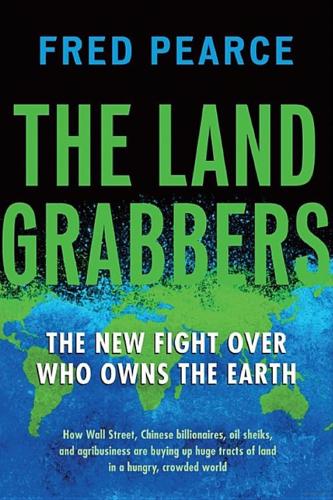
The Land Grabbers: The New Fight Over Who Owns the Earth
by
Fred Pearce
Published 28 May 2012
Pastoralists are seen as the big villains in the environmentalists’ narrative of the “tragedy of the commons,” in which the American ecologist Garrett Hardin posited that sharing the environment doesn’t work. According to Hardin, when there are common pastures, those with the most animals will make the most profit, while everyone, however many or few animals they have, will share in the suffering as the pasture is overgrazed. The only rational response is therefore to graze as many animals as you can till the pasture turns to dust. Remedy: privatize the lot. The tragedy of the commons is a land grabbers’ charter. Nice theory; shame about the facts.
…
And to balk at the patina of virtue that often surrounds environmentalists eagerly taking other people’s land in the interests of protecting wildlife. What right do “green grabbers” have to take peasant fields and pastures to grow biofuels, cordon off rich pastures for nature conservation, shut up forests as carbon stores, and fence in wilderness as playpens and hunting grounds for rich sponsors? They are cooking up a “tragedy of the commons” in reverse. Over the next few decades I believe land grabbing will matter more, to more of the planet’s people, even than climate change. The new land rush looks increasingly like a final enclosure of the planet’s wild places, a last roundup on the global commons. Is this the inevitable cost of feeding the world and protecting its surviving wildlife?
…
Zwarts’s hydrology is discussed in more detail in “The Niger, a Lifeline,” http://www.altwym.nl (2005), and “Will the Inner Niger Delta Shrivel Up Due to Climate Change and Water Use Downstream?” http://www.wetlands.org (2009). Chapter 26: Badia, Jordan I visited the Jordanian Badia in 1995 and wrote about the journey in “Shepherds Wise Men,” http://www.newscientist.com. Garrett Hardin’s “The Tragedy of the Commons,” is at http://www.sciencemag.org (1968). IUCN reports are discussed in “Global Review of the Economics of Pastoralism,” cmsdata.iucn.org (2006). Further details about Oromia are provided in “Putting Pastoralists on the Policy Agenda: Land Alienation in Southern Ethiopia,” http://pubs.iied.org (2010); “Pastoralists in Southern Ethiopia,” http://www.drylands-group.org (2008); and “Indian Company Given Oromia Land Twice the Size of Singapore,” http://www.jimmatimes.com (2011).
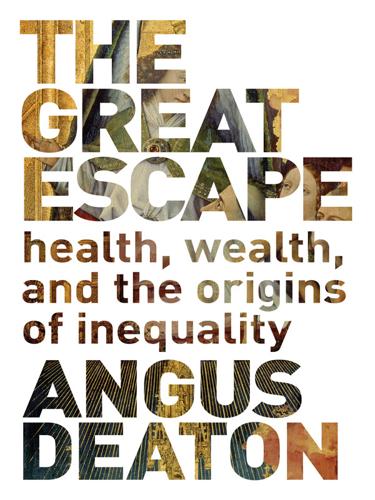
The Great Escape: Health, Wealth, and the Origins of Inequality
by
Angus Deaton
Published 15 Mar 2013
We might worry that a few parents have children only to exploit or otherwise abuse them, but even this does not makes the case that other people will make better choices on their behalf. The more serious argument comes when costs fall on others—more crowded schools or clinics; less common land, firewood, or clean water; or global warming. This argument, often described as the tragedy of the commons, implies that people will have too many children, and it has long been a key plank of the argument for population control. There are various ways around the tragedy of the commons. Economists like to use prices to solve such problems, and it will sometimes be possible to use a tax to make people pay attention to a social cost that they would otherwise ignore. A classic example is a global tax on carbon, which would do much to combat global warming.
…
The provision of clinics and schools can also be dealt with through local or national politics. The appropriate political institutions may include some sort of economic or social incentives to limit family size, and this sort of population control—if arrived at in a democratic way—is an appropriate solution to the tragedy of the commons and related difficulties. What such arguments do not support is population control by outsiders such as foreign governments, international institutions, or foundations, especially when those organizations have their own interests and an often too limited understanding of the lives of the people they are nominally trying to help.
…
See also diseases Smith, Adam, 55, 270 smoking, 7, 66, 131–35, 137, 152 Smuts, Jan, 306 Snow, John, 95–96 Social Security, 181, 199 Sokoloff, Kenneth J., 215–16 Solow, Robert M., 234 South Africa: foreign aid received by, 296; HIV/AIDS in, 40; inequality in, 34–35, 40 Stevenson, Betsey, 50 Stone, Richard, 229 Suez Canal, 297 Summers, Robert, 222 Sweden: life evaluation scores in, 48; life expectancies in, 67–68, 70; mortality rates in, 68–70, 68f, 72; smallpox in, 84; vital registration system of, 72 Szreter, Simon, 97 taxes: carbon, 242; in democracies, 295; income, 199–200, 203, 204–5, 212; progressive, 199–200, 261 Taya, Maaouya Ould Sid’Ahmed, 301 technical assistance, 278, 321–22 technological change: in medicine, 99; skill-biased, 191–93; wages and, 194–95; wellbeing increased by, 327–28 Terry, Luther, 131–32 Thomas, Keith, 55 Tinbergen, Jan, 191 tobacco, 7, 66, 131–35, 137, 152 Togo, 48, 296 Tonga, 277, 278 trachoma, 98–99, 103 trade, 313, 322, 323. See also commodities trade-related aspects of intellectual property rights (TRIPS), 319 tragedy of the commons, 242–43 TRIPS. See trade-related aspects of intellectual property rights tuberculosis, ix–x, 63, 79, 90, 99, 103, 104, 120, 320. See also diseases Uganda: foreign aid received by, 296; health aid in, 311 UN. See United Nations UNICEF, 103, 269, 307, 309 unions, decline of, 198 United Nations (UN): charter, 306; Food and Agriculture Organization, 307; Millennium Development Goals, 276; Millennium Development Villages, 314 United Nations Development Program, 223–24, 276–77, 289–90, 302, 307 United States: agricultural subsidies of, 323; cardiovascular disease in, 136–37, 136f; Civil War, 297, 298; economic growth in, 169–72, 169f, 178–79, 186, 214–15; emotional wellbeing in, 53–54; foreign aid of, 272, 275, 278, 279, 286, 307–8; health care spending in, 35, 121, 144, 145–47, 195; health care system of, 122–23, 138; heights in, 159; immigrants to, 98–99, 198; income inequality in, 175, 187–89, 188f, 200–206, 204f, 207, 260–61, 327; incomes in, 227–28; life expectancies in, 24–25, 27, 35, 60–62, 61f, 63, 65–67, 135; lung cancer mortality rates in, 134–35, 134f; mortality rates in, 68–69, 68f, 71; poverty in, 27, 179–81, 180f, 184–86; poverty line in, 181–84, 185–86, 197, 256–57; smallpox in, 86; surgeon general’s report on smoking, 131–32; vital registration system of, 72 United States Agency for International Development, 72, 243 U.S.
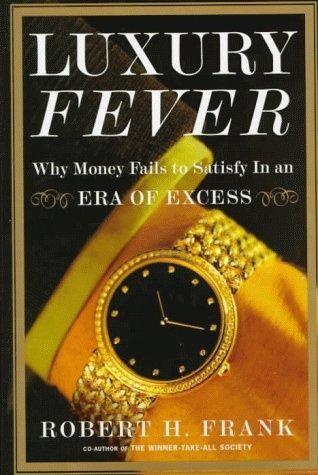
Luxury Fever: Why Money Fails to Satisfy in an Era of Excess
by
Robert H. Frank
Published 15 Jan 1999
Yet when property rights in the use of valuable resources are not clearly defined and enforced, no individual is in a position to take effective action. If a rhino isn’t killed by one hunter, he will simply be killed by another; fish not taken by one boat will be taken by another; and logs left standing by one company will be quickly claimed by another. In its various forms, the overharvesting problem has been called “the tragedy of the commons.”8 It is yet another example of behavior that is smart for one, dumb for all. HIGH HEELS AND COSMETIC SURGERY. In species in which males invest little in the care of offspring—which is to say, in the vast majority of mammals—males typically battle furiously with one another for access to females.
…
When people overestimate their chances of winning, the number who forsake productive occupations in traditional markets to compete in winner-take-all markets will be larger than what could be justified on traditional cost-benefit grounds. The second reason for persistent overcrowding in winner-take-all markets is one of the structural incentive problems we encountered in chapter 10—namely, the tragedy of the commons. As discussed, this problem accounts for overfishing of coastal waters, overgrazing of common pasturelands, and overcutting of public forests. It also helps explain why we see too many prospectors for gold, a problem closely analogous to the problem at hand. Although the presence of additional prospectors may significantly increase the total amount of gold found in the initial stages of exploiting a newly discovered goldfield, beyond some point it contributes very little to the total find.
…
Brookings Papers on Economic Activity, no. 3, 1970: 369-402. Hall, Robert E., and Alvin Rabushka. The Flat Tax, 2nd ed., Stanford, CA: Hoover Institution, 1995. Hamilton, W. D., and M. Zook. “Heritable True Fitness and Bright Birds: A Role for Parasites?” Science 218, 1982: 384-87. Hardin, Garrett. “The Tragedy of the Commons,” Science 162, 1968: 1243-48. Hardy, Quentin. “Wine and Women,” Wall Street Journal, April 7, 1997: A1, A5. Hardy, Quentin. “Digital Gentry: Hot Young Companies, New Millionaires Fuel Silicon Valley Boom,” Wall Street Journal, October 8, 1996: A1, A12. Harte, Susan. “Today’s Topic: Residential Real Estate,” Atlanta Journal, January 31, 1997: G2.
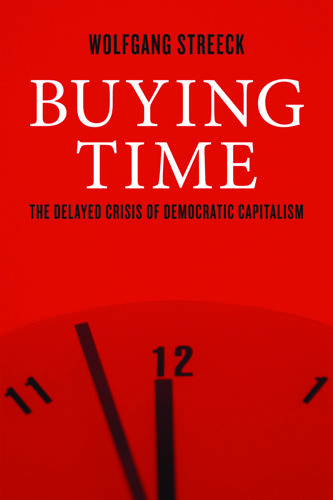
Buying Time: The Delayed Crisis of Democratic Capitalism
by
Wolfgang Streeck
Published 1 Jan 2013
Its favourite narrative is of excessive demands on the ‘common pool’1 – an old, though perhaps not venerable, concept invented in the nineteenth century to justify in the name of efficiency the usually forcible privatization of the medieval commons in the transition to modern capitalism.2 Marx described this process of ‘primitive accumulation’ in Capital Volume 1.3 FINANCIAL CRISIS: A FAILURE OF DEMOCRACY? In short, the many different variants of the story of the ‘tragedy of the commons’4 boil down to the idea that if a resource is not individually owned and freely available to all the members of a community, it will soon be exhausted through overgrazing, overfishing, and so on. People acting in accordance with individual rationality will not be able to resist the temptation to take more from the common pool than they give to it, and more than that pool is able to provide in the long run.
…
Poterba and Jürgen von Hagen (eds), Institutions, Politics and Fiscal Policy, Chicago: Chicago University Press, 1999. 2 D. North and R. Thomas, The Rise of the Western World: A New Economic History, Cambridge: Cambridge University Press, 1973. 3 K. Marx, Capital, Volume One, London: Penguin/New Left Books, 1976 [1867], Part 8. 4 G. Hardin, ‘The Tragedy of the Commons’, Science, vol. 162/3859, 1968, pp. 1243–8. 5 On the ‘inflated demands of the economic system’, see J. Beckert, Die Anspruchsinflation des Wirtschaftssystems, Cologne: Max-Planck-Institut für Gesellschaftsforschung, 2009. By now the literature on Goldman Sachs would fill whole book shelves.
…
Winner-Take-All Politics: How Washington Made the Rich Richer – and Turned Its Back on the Middle Class, New York: Simon & Schuster, 2011. Hall, Peter A. and David Soskice, ‘An Introduction to Varieties of Capitalism’, in Peter A. Hall et al. (eds), Varieties of Capitalism: The Institutional Foundations of Comparative Advantage, Oxford: Oxford University Press, 2001, pp. 1–68. Hardin, Garrett, ‘The Tragedy of the Commons’, Science, vol. 162/3859, 1968, pp. 1243–8. Hassel, Anke, ‘The Erosion of the German System of Industrial Relations’, British Journal of Industrial Relations, vol. 37/3, 1999, pp. 483–505. Hayek, Friedrich A., ‘Full Employment, Planning and Inflation’, in Studies in Philosophy, Politics, and Economics, Chicago: The University of Chicago Press, 1967 [1950], pp. 270–79. ———.
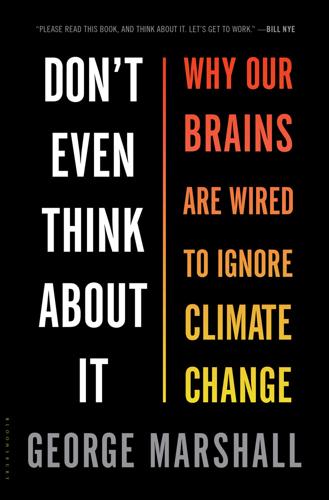
Don't Even Think About It: Why Our Brains Are Wired to Ignore Climate Change
by
George Marshall
Published 18 Aug 2014
Hardin’s deterministic model of human nature melds perfectly with the interests of authoritarianism and economic elites. Thus, when speaking of the atmospheric commons, Hardin says, “The air and waters surrounding us cannot readily be fenced, and so the tragedy of the commons as a cesspool must be prevented by different means, by coercive laws or taxing devices that make it cheaper for the polluter to treat his pollutants than to discharge them untreated.” If climate change is a tragedy of the commons, it follows that appeals to responsibility and conscience are a waste of time and that, in Hardin’s words, only “mutual coercion mutually agreed on” will work to curtail our insatiable personal interests.
…
In his highly influential and highly disputed paper published in Science in 1968, the ecologist Garrett Hardin argued that we are all forced by our evolutionary drives to maximize our personal benefit from a common resource even when we know that this will lead to its ultimate destruction. He named this phenomenon the “tragedy of the commons.” Not surprisingly, climate change has been called the ultimate tragedy of the global commons, although, as usual, the people who use the phrase invariably focus on the tailpipe-emissions-into-the-atmosphere commons rather than exploitation of the common reserves of fossil fuels. Such is its fame that people tend to forget that Hardin’s paper is not a reasoned argument grounded in evidence but an ideological polemic grounded in prejudice.
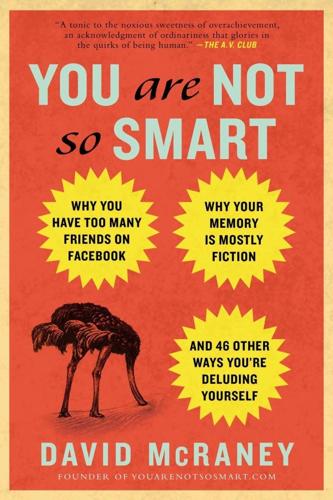
You Are Not So Smart
by
David McRaney
Published 20 Sep 2011
To make the world more just and fair, you have to make it harder for evil to thrive, and you can’t do this just by reducing the number of its potential targets. 19 The Public Goods Game THE MISCONCEPTION: We could create a system with no regulations where everyone would contribute to the good of society, everyone would benefit, and everyone would be happy. THE TRUTH: Without some form of regulation, slackers and cheaters will crash economic systems because people don’t want to feel like suckers. Before you hear about the public goods game, you need to understand the tragedy of the commons. The idea comes from a 1968 essay by geologist Garrett Hardin that suggested you aren’t very good at sharing. Imagine a giant lake filled with fish. You and three others are the only people who know about it. You all agree to take just as many fish from the lake as you need to eat. As long as everyone takes just what he or she needs, the lake will stay full of fish.
…
The urge to help others and discourage cheating is something that helped primates like you survive in small groups for millions of years, but when the system becomes gigantic and abstract like the budget for a nation or the welfare system for an entire state, it becomes difficult to make sense of the world through those old evolutionary behaviors. The tragedy of the commons can be used to make a case for private property in order to encourage you to take care of your piece of the world, but you might think not everyone is going to buy a fuel-efficient car and recycle plastic, so why should you? The public goods game suggests regulation through punishment discourages slackers.
…
DOI 10.1007/s10566-010 -9129-z. The Public Goods Game Ariely, D. (2008). Predictably irrational: The hidden forces that shape our decisions. New York: Harper. Davis, D. D., & Holt, C. A. (1992). Experimental economics. Princeton, N.J.: Princeton University Press. Hardin, G. (1998, May 1). Extensions of “The Tragedy of the Commons.” Science 280(5364), 682–683. The Ultimatum Game Crockett, M. J., Clark, L., Tabibnia, G., Lieberman, M. D., & Robbins, T. W. (2008, June). Serotonin modulates behavioral reactions to unfairness. Science 320(5884), 1739. Güth, W., Schmittberger, R., & Schwarze, B. (1982, December).
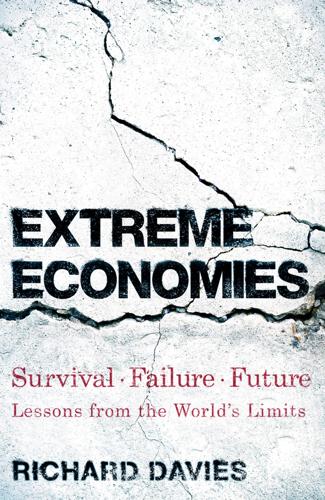
Extreme Economies: Survival, Failure, Future – Lessons From the World’s Limits
by
Richard Davies
Published 4 Sep 2019
The conversion of rainforest to farmland and the policies adopted to prevent deforestation are discussed and evaluated in Nelson et al. (2001); maps of the forest cover over time and the impact of logging are provided in Gutierrez (1989); the problem of deforestation and the rise of cattle-ranching are discussed in Arcia (2017) and Belisle (2018). The ‘Tragedy of the Commons’ Ecologist Garrett Hardin coined the term ‘Tragedy of the Commons’ in the 1960s in a discussion of overpopulation and the environment – Hardin (1968). Failures of free markets The example of common ground that is damaged by overuse is set out in the first of William Forster Lloyd’s ‘Two Lectures on the Checks to Population’ delivered in Oxford in 1832.
…
Absent of rules and regulations, markets can arise that destroy resources, reduce the value of a human settlement and undermine its long-term prospects. The puzzle is why, in a region where everyone knows the environment is being degraded, the people of Darien can’t manage the economy in a way that stops it happening. Economists have worried about this problem, often called the ‘Tragedy of the Commons’, for centuries. Darien’s extractive jungle economy is a striking modern example of those concerns and a reminder of why, despite economists’ tendency to be enthusiastic about the power markets have to create value, they cannot be trusted to do so. The fact that trade might be destructive was first set out by William Forster Lloyd in a pair of lectures delivered at Oxford University in 1832.
…
An Economic Estimation’, New Forests, 41, 13–39. Gutierrez, R. (1989), ‘La deforestación, principal causa del problema ecología ambiental de Pánama’, Dirección Nacional de Desarollo Forestal. Hall, J. (2018), ‘Curing “Teak Fever” in Panama through Smart Reforestation’, UN-REDD, 4 September. Hardin, G. (1968), ‘The Tragedy of the Commons’, Science, 162 (3859), 1243–8. Harris, W. (1700), A Defence of the Scots Abdicating Darien (Edinburgh). Herlihy, P. (1989), ‘Opening Panama’s Darien Gap’, Journal of Cultural Geography, 9 (2), 42–59. ———— (2003), ‘Participatory Research Mapping of Indigenous Lands in Darién, Panama’, Human Organization, 62 (4).
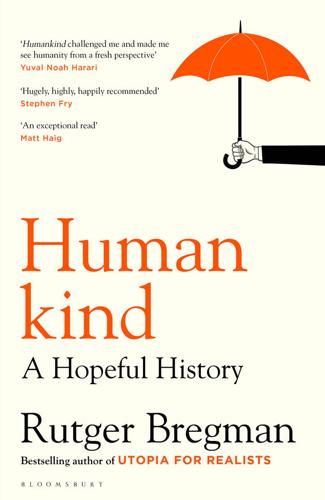
Humankind: A Hopeful History
by
Rutger Bregman
Published 1 Jun 2020
See Serageldin et al., ‘Assessment of Participatory Budgeting in Brazil’. 23Patrick Kingsley, ‘Participatory democracy in Porto Alegre’, Guardian (10 September 2012). 24Serageldin et al., ‘Assessment of Participatory Budgeting in Brazil’. 25Michael Touchton and Brian Wampler, ‘Improving Social Well-Being Through New Democratic Institutions’, Comparative Political Studies, Vol. 47, Issue 10 (2013). 26‘Back to the Polis: Direct Democracy’, The Economist (17 September 1994). 27David Van Reybrouck, Against Elections. The Case for Democracy (London, 2016). 28‘Communism’, oxforddictionaries.com. 29Graeber, Debt, pp. 94–102. 30Garrett Hardin, ‘The Tragedy of the Commons’, Science, Vol. 162, Issue 3859 (13 December 1968). 31John Noble Wilford, ‘A Tough-minded Ecologist Comes to Defense of Malthus’, New York Times (30 June 1987). 32Ian Angus, ‘The Myth of the Tragedy of the Commons’, Climate & Capitalism (25 August 2008). 33John A. Moore, ‘Science as a Way of Knowing – Human Ecology’, American Zoologist, Vol. 25, Issue 2 (1985), p. 602. 34Tim Harford, ‘Do You Believe in Sharing?’
…
The concept of the commons gained currency with a piece published in the journal Science by American biologist Garrett Hardin. This was 1968, a time of revolution. Millions of demonstrators around the world took to the streets in protest, rallying to the cry: ‘Be realistic. Demand the impossible.’ But not the conservative Garrett Hardin. His six-page paper made short work of hippie idealism. Title? ‘The Tragedy of the Commons’. ‘Picture a pasture open to all,’ Hardin wrote. ‘It is to be expected that each herdsman will try to keep as many cattle as possible on the commons.’ But what makes sense at the individual level results in a collective disaster, with overgrazing leaving nothing but barren wasteland. Hardin used the term ‘tragedy’ in the Greek sense, to mean a regrettable but inevitable event: ‘Freedom in a commons,’ he said, ‘brings ruin to all.’30 Hardin was not afraid to reach harsh conclusions.
…
It’s hard to overstate the impact of Hardin’s paper, which went on to become the most widely reprinted ever published in a scientific journal, read by millions of people across the world.32 ‘[It] should be required reading for all students,’ declared an American biologist in the 1980s, ‘and, if I had my way, for all human beings.’33 Ultimately, ‘The Tragedy of the Commons’ would prove among the most powerful endorsements for the growth of the market and the state. Since common property was tragically doomed to fail, we needed either the visible hand of the state to do its salutary work, or the invisible hand of the market to save us. It seemed these two flavours – the Kremlin or Wall Street – were the only options available.

Meat: A Benign Extravagance
by
Simon Fairlie
Published 14 Jun 2010
Hardin’s observation that common rights can be exploited for individual gain has long been common knowledge to all who share common resources, and any society that survives has, almost by definition, found a means of mediating unsustainable acquisitiveness. Arthur McEvoy remarks ‘Farmers in Garret Hardin’s ‘Tragedy of the Commons’, are as radically alienated from each other as they are from the grass on which they feed their cows … Hardin’s commoners don’t know how to talk to each other.’ Another anthropologist, James McGoodwin, adds: ‘What I find most objectionable about the Tragedy of the Commons model, at least when it is applied to the fisheries, is the cynical view of the mentality, character and personality of fishers implied in the explanation of how the tragedy develops.’19 Throughout the 1980s and the 1990s in particular, anthropologists working in the field consistently reported that the communities they studied had developed often sophisticated methods for managing resources to ensure that they were not over exploited and were distributed reasonably equitably – though this generosity did not necessarily extend to everybody in the community; in some cases a resource may have been kept common only to an elite or a particular social group.
…
This dispute, waged on the high seas and in the corridors of bureaucracies such as the World Bank, the FAO and the European Commission, sometimes pits nation against nation – but it more commonly pits large corporate fleets represented by economists against small local fishing fleets represented by anthropologists. It is not hard to determine who has the upper hand, but the battle has not been entirely one-sided. The economists take their philosophical standpoint from Garret Hardin who, in a much cited article published in Science in 1968 coined the term, ‘Tragedy of the Commons’. 15 In fact fishery economists such as H Scott Gordon and Francis Christy had arrived at the same conclusion some years before. Hardin’s paper described how individual ‘rational’ graziers sharing a common pasture would inevitably overstock the common with their own cattle in order to derive more private gain at public expense.
…
Thompson, E P (1976), Whigs and Hunters, Allen Lane. 8 Hammond, J L and Barbara (1911), The Village Labourer, Guild, 1948. 9 See for example the magnificent collection of material at the poaching museum in St Pancraz, Austria. 10 Ortega y Gasset, José (1942), Meditations on Hunting, Wildlife Adventures Press, 1995, p 40. 11 Gadgil, Madhav and Guha, Ramachandra (1993), This Fissured Land, Oxford University Press. 12 Goodall, J (2004), ‘When Primates become Bushmeat’, World Watch, July/August 2004. 13 United Fishermen of Alaska (2007), ‘Subsistence Basics’, Subsistence Management Information, http://www.subsistmgtinfo.org/index.htm 14 United Fishermen of Alaska (2007),‘Federal or State’, Subsistence Management Information, http://www.subsistmgtinfo.org/index.htm 15 Hardin, Garrett (1968), ‘The Tragedy of the Commons’, Science, December 1968. Gordon, H Scott (1954), ‘The Economic Theory of a Common Property Resource: The Fishery’, Journal of Political Economy, 62:2, pp 124-42; and Christy, F and Scott, A (1965), The Commonwealth in Ocean Fisheries, Johns Hopkins University, Baltimore. 16 Edward Loayza, cited in The Ecologist, Vol No 2/3 March-June 1995, p 42; exactly the same words are used by FAO Director General Jacques Diouf in J Diouf (2001), FAO Director General: Too Many Vessels Chasing Too Few Fish, Reykjavik Conference on Responsible Fisheries in the Marine Ecosystem, 2 October 2001, reported at http://www.waddenzee.nl 17 The ultimate form of marine enclosure is fish-farming.
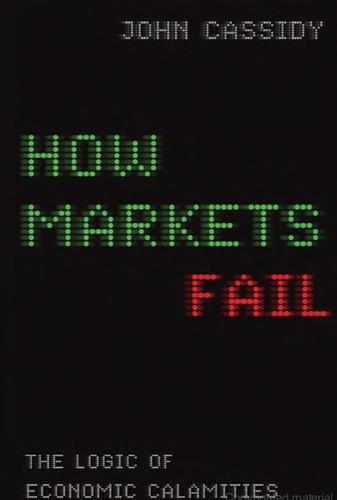
How Markets Fail: The Logic of Economic Calamities
by
John Cassidy
Published 10 Nov 2009
When there are ten, or twenty, or a hundred players, it is virtually impossible—a fact highly germane to the overexploitation of natural resources, such as tropical rain forests, the fish in the sea, and the sub-Saharan plains. In 1968, Garrett Hardin, a Texan ecologist who died in 2003, tackled this problem in a famous article, “The Tragedy of the Commons.” The example Hardin used was that of a pasture shared by local herders. The pasture is limited in size, and all the herders know that overgrazing will render it useless for everybody. At the same time, though, the herders’ incomes are determined by the size of their herds, which gives them an incentive to add more animals to the pasture.
…
A player in the human game of life isn’t some abstract entity called “everybody.” We are all separate individuals, each with our own aims and purposes. Even when our capacity for love moves us to make sacrifices for others, we each do so in our own way and for our own reasons. If we pretend otherwise, we have no hope of ever getting to grips with the Tragedy of the Commons. 12. HIDDEN INFORMATION AND THE MARKET FOR LEMONS In the late summer of 1966, significant things were happening in California’s Bay Area. In Haight-Ashbury, a run-down neighborhood of cheap apartments and vacant buildings just east of Golden Gate State Park, a vibrant subculture was developing around marijuana, LSD, and the psychedelic music of Jefferson Airplane and the Grateful Dead, two local bands; in Candlestick Park, out near the airport, which was then home to the San Francisco Giants football team, the Beatles played what turned out to be their final concert before paying fans; across the water in Oakland, Bobby Seale and Huey P.
…
THE PRISONER’S DILEMMA AND RATIONAL IRRATIONALITY 143 Flood’s babysitting experiment: See William Poundstone, The Prisoner’s Dilemma: John Von Neumann, Game Theory, and the Puzzle of the Bomb (New York: Doubleday, 1992), 103. 143 Non-cooperative pair experiment: Ibid., 106–107. 145 “Both Flood and Dresher . . .”: Ibid., 122. 147 90 percent of the players choose: Ken Binmore, Game Theory: A Very Short Introduction (New York: Oxford University Press, 2007), 21. 149 “Adding together the component . . .”: Garrett Hardin, “The Tragedy of the Commons,” Science 162 (1968): 1244. 150 “Game theorists get . . .”: Binmore, Game Theory, 67. 12. HIDDEN INFORMATION AND THE MARKET FOR LEMONS 151 “I belonged to . . .”: From George Akerlof’s Nobel autobiography, available at http://nobelprize.org/nobel_prizes/economics/laureates/2001/akerlof-autobio.html. 152 “a major reason as to why . . .”: George Akerlof, “Writing ‘The Market for Lemons’: A Personal and Interpretive Essay,” available at http://nobelprize.org/nobel_prizes/economics/articles/akerlof/index.html. 153 “[M]ost cars traded . . .”: George Akerlof, “The Market for ‘Lemons’: Quality Uncertainty and the Market Mechanism,” Quarterly Journal of Economics 84 (1970): 489. 154 “was potentially an issue . . .”: Akerlof, “Writing ‘The Market for Lemons.’ ” 155 “marginally attached”: Bureau of Labor Statistics, Issues in Labor Statistics, Summary 90–04 (April 2009): 1. 156 “it is quite possible . . .”: Akerlof, “The Market for ‘Lemons,’ ” 494. 157 2006 health care spending: “National Health Spending in 2006: A Year of Change for Prescription Drugs,” Health Affairs 27, no. 1 (2008): 14. 158 “The most obvious . . .”: Kenneth J.

Against Intellectual Monopoly
by
Michele Boldrin
and
David K. Levine
Published 6 Jul 2008
Economists argue that some form of government intervention is needed for the provision of public goods: because you will benefit from my contribution to the public good, there is a tendency for you to free ride off of my contribution and for me to undercontribute. This is sometimes called the tragedy of the commons – when something is commonly owned but privately enjoyed, everyone tries to consume without contributing. Ideas, it is argued, are nonrivalrous like public defense or the beauty of a sunset in Capri – your use of the fundamental theorem of calculus in no way interferes with my use of it. Ideas, it is argued, are prone to suffer the tragedy of the commons: everyone trying to use common ideas without ever contributing to the common pool. However, this same line of reasoning goes, ideas, unlike sunsets, are “excludable,” meaning that we do not have to share ideas with other people if we do not choose to.
…
For example, if a pasture is public, I do not take account of the negative effect my grazing sheep have on the availability of grass for your sheep. Because roads are public, I do not consider that my driving on the road makes it more difficult for you to get to work. Because the ocean is public, I do not consider that catching fish leaves fewer for you. This is known as the tragedy of the commons, and in each case it means that the pasture, road, or ocean will be overused. Is the public domain for ideas like a common? Does my using ideas in the public domain have an adverse effect on your ability to use them? Certainly common sense suggests that “there can be no overgrazing of intellectual property . . . because intellectual property is not destroyed or even diminished by consumption.
…
Norton, 24–25 diffusion of, 164–166 war, 82 history of, 64 Watt, James, 1–3, 4–5, 11–12 reduction of fixed cost by, 176 web browser, 17 Tesla, Nikola, 203, 205–206 webscriptions, 35–36 textile coloring products, 88 Weisburst, Sandy, 222 Tirole, Jean, 158 welfare triangle, 68, 69–70 Total Factor Productivity (TFP), 54, 72 Whitney, Eli, 51 trademarks, 7, 259–260 World Fairs, 190–191 trade restrictions, 244, 245, 265–267 Wright brothers, 87–88, 206–207 trade secrets, 163–164, 166–169. See also non-compete clauses x-inefficiency, 68 tragedy of the commons, 156, 177 transaction costs, 254 Zimbabwe, 151–152 Document Outline Cover Half-title Title Copyright Contents Acknowledgments ONE Introduction Comments Notes TWO Creation under Competition Software �� �� Copyrightables: Books, News, Movies, and Music �� �� The Modern American Newspaper The World Before Copyright �� The Birth of the Movie and of the Recording Industries �� �� Comments Notes THREE Innovation under Competition World without Patent The Industrial Revolution and the Steam Engine Agriculture Spanish Hortalezas and Italian Maglioni Financial Markets Design Sports Profits without Patents Patent Pools Comments Notes FOUR The Evil of Intellectual Monopoly The Cost of Patent �� �� �� Undoing Progress �� �� �� �� �� Comments Notes FIVE The Devil in Disney Everlasting Copyright The Economics ofMusic The Digital Millennium Copyright Act Freedom of Expression From Policy Error to Policy Blunder: Mandating Encryption Rent Seeking and Taxes Notes SIX How Competition Works The Fruits of the Idea Tree Fixed Costs and Competition Indivisibility The Collaborative Advantage The First-Mover Advantage �� �� Ideas of Uncertain Value The Social Value of Imitation Notes SEVEN Defenses of Intellectual Monopoly Private Property and Public Goods Economic Arguments for Intellectual Monopoly Fixed Cost and Constant Marginal Cost �� The Imitative Externality Quantifying Unpriced Spillovers Secrecy and Patents Schumpeterian Good Monopoly The Idea Economy The Global Economy The Public Domain and the Commons Notes EIGHT Does Intellectual Monopoly Increase Innovation?
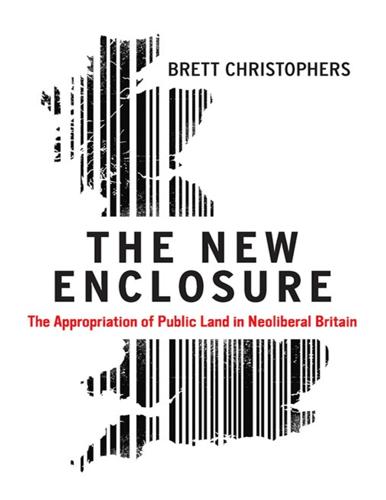
The New Enclosure: The Appropriation of Public Land in Neoliberal Britain
by
Brett Christophers
Published 6 Nov 2018
I could have made this observation at more or less any point in this section, but this seems as good a place as any: our use of the land for enjoyment, as well as economic production, has ecological implications. Landownership always intermediates these effects. That it does so is, in fact, the central claim of one of the most famous interventions in the literature on environmental management, Garrett Hardin’s famous ‘tragedy of the commons’ thesis.3 Hardin claimed that holding land communally tends to have tragic ecological consequences because individuals lack incentives to use the land sustainably. I will say no more here about that thesis, or counter-arguments to it. It resurfaces in Chapter 3. The Privatization of Landownership For the remainder of this chapter, I move from the question of landownership and its importance generally to questions of public (state-based) and private landownership more specifically.
…
‘We believe’, said the enquiry team that in 1983 accused NHS property managers of a ‘casual’ attitude towards their assets, ‘that this attitude derives largely from the fact that property in the NHS is a “free good”’.2 A free good is a good that is, by definition, not scarce, the consumption or use of which therefore incurs no opportunity cost; thus there is, in essence, no incentive to ration one’s usage or not to use the good ‘casually’. Why, after all, would one be parsimonious in using land if no cost is incurred through not doing so? This argument can be thought of as a version of Garrett Hardin’s famous ‘tragedy of the commons’ thesis.3 Hardin argued that communally owned environmental resources are used inefficiently, and are ultimately degraded, because in such a context individuals lack the incentives necessary to encourage sustainable use. Critics of public landownership make much the same case: it is the nature of the system of ownership, and the attendant misalignment of incentives, that engenders inefficiency.
…
Tribe, ‘Economic Property and the Theorisation of Ground Rent’, Economy and Society 6 (1977), pp. 69–88, at p. 81. 1 Ibid., p. 83. 2 H. de Soto, The Mystery of Capital: Why Capitalism Triumphs in the West and Fails Everywhere Else (New York: Basic Books, 2000), p. 6. 1 Marx, Economic and Philosophic Manuscripts, p. 27. 2 Polanyi, Great Transformation, pp. 187, 193. 1 M. Adams, Land: A New Paradigm for a Thriving World (Berkeley, CA: North Atlantic, 2015), p. 1. 2 Polanyi, Great Transformation, p. 75. 3 G. Hardin, ‘The Tragedy of the Commons’, Science 162 (1968), pp. 1243–8. 1 D. Massey, ‘The Pattern of Landownership and Its Implications for Policy’, Built Environment 6 (1980), pp. 263–71, at p. 269. 1 Ibid., p. 270. 2 A. Chakrabortty, ‘We Need the State Now More Than Ever. But Our Belief in It Has Gone’, Guardian, 1 February 2017. 1 M.
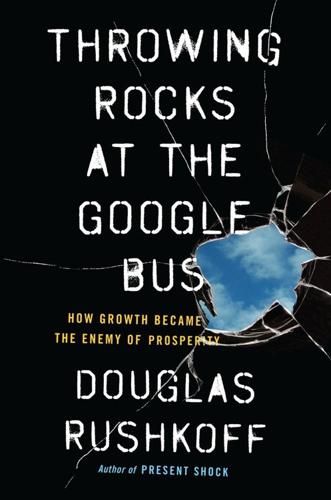
Throwing Rocks at the Google Bus: How Growth Became the Enemy of Prosperity
by
Douglas Rushkoff
Published 1 Mar 2016
There were strict sets of rules about how much land one could graze and how often, which kept the commons capable of sustaining everyone’s flocks in a fair fashion. After King Henry VIII rejected the authority of the pope, those common lands became privatized, or “enclosed.”76 Over the next couple of centuries, the myth of the “tragedy of the commons” was employed to bring the remaining common lands under private control. The premise that economists and early agricultural investors put forth was that if no one owns something, there’s no one to protect it. So common lands will supposedly get overgrazed, and common fisheries will run out of fish.
…
Never mind that there’s no evidence of either happening in the maintained commons of England. The supposed tragedy became an accepted truth taught in basic economics courses, and as easy to prove as the condition of most public restrooms in the United States. As recently as 1968, ecologist Garrett Hardin convinced the remaining holdouts of the tragedy of the commons by arguing that Darwinian selection favors privatization by the strong, and that if the world’s land is not privatized, the results would be “horrifying.” In his words, “injustice is preferable to total ruin.”77 The false assumption is that people are incapable of recognizing the value of their shared resources and then organizing to protect them—and in doing so, create great value for everyone involved.
…
See investors/investing sharing economy, 44–54, 218 crowdsharing apps and, 45–49 crowdsourcing platforms and, 49–50 employment opportunities, technology as replacing and obsolescing, 51–54 getting paid for our data and, 44–45 great decoupling and, 53 jobs assisting with transition to computerized society and, 51–52 learning to code and, 51 Shift Happens (Hagel), 76–77 Shirky, Clay, 27 Sidecar, 93–94 Silk Road, 145 singularity, 91 Slay, Julia, 58 Smith, Adam, 212–13 Snapchat, 32 social branding, 35–37 social graphs, 40 social media, and “likes” economy, 31–37 Somerhalder, Ian, 36 South by Southwest, 19 specialists, 178–79 Spotify, 218 Square, 141 Stallman, Richard, 216 stamp scrip, 158–59 startups, 184–205 angel investors and, 187, 188 burn rate and, 190 crowdfunding and, 198–201 direct public offerings (DPOs) and, 205–6 Google’s IPO, 194–95 hypergrowth expected of, 187–91 microfinancing platforms and, 202–4 model for building real and sustainable businesses, 196–98 playbook for establishing, 187 reverse engineering of, 184–86 Series A round of investment and, 188–89 venture capital and, 189–95 steady-state enterprises, 98–123 alternative corporate structures and, 118–23 appropriate size for business, finding, 104–5 benefit corporations and, 119 contracting with small and medium-sized enterprises and, 112 dividends as means of rewarding shareholders and, 113–14 dual transformation and, 108–9 ecosystem as model for assembling, 105 employee ownership of company and, 116–18 extractive bias of traditional corporate model, eschewing, 104 family business model and, 103–4, 231–32 flexible purpose corporations and, 119–20 growth, shifting away from, 103–6 hybrid approaches to attaining, 106–12 inclusive capitalism and, 111–12 low-profit limited liability company (L3C) and, 120–21 not-for-profits (NFPs) and, 121–23 open sharing and collaborative corporate strategies and, 106–7 privatization and, 114–16 shareholder mentality, changing, 112–18 technological revolutions, phases of, 98–102 stimulative economic policies, 136, 137 stock market crash of 1929, 99 storytelling, 236 Strickler, Yancey, 198 student debt, 153 subsidiarity, 231–32 supermarket chains, hybrid strategies for, 109–10 Supplier Connection, 112 surge pricing, 86 synergy, 99 Talmud, 208 Tapscott, Don, 49n Target, 142 TaskRabbit, 222 tax anticipation scrip, 159 taxi industry, 85–86 TD Waterhouse, 176 Tea Party, 99–100 technological revolutions, 98–102 creative destruction and, 83–87 destructive destruction and, 100 frenzy phase of, 98–99 government intervention and, 99–100 irruption phase of, 98 maturity phase of, 98–99 synergy phase of, 99 turning point phase of, 99 Thatcher, Margaret, 64 theAudience, 36 Thiel, Peter, 120, 191–92 This Changes Everything (Klein), 135 3-d printing, 62–63 360 deals, 34 time dollar systems, 161–63 toy industry, 85 Toyoda, Akio, 105–6 Toyota Motor Corporation, 105–6 tragedy of the commons, 215–16 Treehouse, 59 Tumblr, 32 turning point, 99 Twitter, 7, 8–9, 195 tyranny of choice, 30 Uber, 4, 93, 94, 98–99, 188, 213, 219, 222, 229 peer-to-peer commerce enabled by, 45, 46 as platform monopoly, 85–87 pricing power of, 47–48 unemployment insurance, 99 unemployment solution, 54–67 guaranteed minimum income programs and, 62–65 guaranteed minimum wage public jobs and, 65–66 hourly-wage employment, history of, 56 joblessness as feature of new digital economy and, 55–56 questioning need for work and, 56–58 real needs, getting paid to address, 65–67 reducing 40-hour workweek and, 58–60 sharing productivity gains with employees and, 60–62 Unilever, 112, 205 United Steel Workers, 220 Upwork, 51, 200 USA Today,173 velocity of money, 140–41 venture capital, 189–95 Vicarious, 119–20 Victorian exhibition, 20 Volkswagen, 106 Wall Street Journal,7, 8, 37–38 Walmart, 47, 73–75, 110–11 Watson, 90–91 wealth inequality.
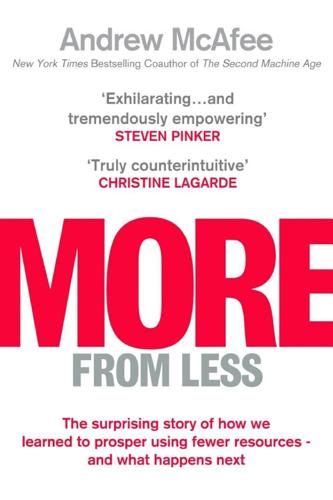
More From Less: The Surprising Story of How We Learned to Prosper Using Fewer Resources – and What Happens Next
by
Andrew McAfee
Published 30 Sep 2019
Here, recent news is mixed. Overhunting continues, especially of marine life. As Jesse Ausubel points out, “Fish biomass in intensively exploited fisheries appears to be about one-tenth the level of the fish in those seas a few decades… ago.” Ocean overfishing is a classic example of the “tragedy of the commons,” an unhappy phenomenon named in a 1968 Science article by the ecologist Garrett Hardin. Hardin defined a commons as a shared resource, such as a pasture or a body of water, that is available to many but owned by none. That open access sounds great but has a big problem: everyone has ample incentive to exploit the commons (by grazing cows on the pasture or taking fish from the water), but because no one owns it, no one has the incentive to protect or sustain it.
…
That open access sounds great but has a big problem: everyone has ample incentive to exploit the commons (by grazing cows on the pasture or taking fish from the water), but because no one owns it, no one has the incentive to protect or sustain it. So the strong tendency is for everyone to do the economically rational thing, which is to try to exploit it before it’s stripped bare. As they do this, they help strip it bare.III We have many ways to deal with the tragedy of the commons. Elinor Ostrom, to date the only woman to win the Nobel Prize in economics, developed principles for managing commons successfully. One of the most fruitful for helping severely depleted species, and the fourth way that we’re helping our fellow creatures survive and thrive, is to simply declare by law that large areas of land or water—large commons—can’t be exploited.
…
Seebohm, 24 Royal Crown Cola, 101 Russia, 185 Safe Drinking Water Act (1974), 66 Salemi, Jason, 216 Salesforce, 256–57 Samasource, 255–56 sanitation, 22–23, 194 Saudi Arabia, 104 Save the Elephants, 154 Schmidt, Christian, 148 Schnakenberg, Keith, 175 Schumpeter, Joseph, 122 Scientific American, 59–60 Scotland, 38 Scramble for Africa, 39 sea otters, 43, 96, 152 Second Enlightenment, 123, 141, 238–39, 265 Second Machine Age, 112–13, 114–15, 122–23, 141, 162, 168, 177, 200, 206, 213, 231 Second Machine Age, The (Brynjolfsson), 112 self-employment, 138–39 self-healing cities, 21–23 self-interest, 127 Sen, Amartya, 68–69, 94 service industry, 88, 200–201 Shapiro, David, 190 Shell Oil, 103, 104–05 Shellenberger, Michael, 251 Sherman, Brad, 107 Sheskin, Mark, 210 Short Account of the Destruction of the Indies (las Casas), 39–40 Sidgwick, Henry, 142n silver, 120 Simon, Julian, 69–70, 71–72, 75, 151, 179, 244–45 Singapore, 148 Singh, Manmohan, 171–72 Skeptical Environmentalist (Lomborg), 179, 181 slash-and-burn agriculture, 148 slavery, 35, 36, 37–38, 181 Sloman, Steven, 226 smartphones, 102, 111, 113, 168–69, 205, 235, 236 Smil, Vaclav, 31, 101 Smith, Adam, 125–39, 128–29 Smith, Noah, 191 smog, 42, 55, 186 Snow, John, 22–23 social capital, 212–13, 216–17, 228–29, 247, 254, 255, 270 social democracy, 133–34 social development, 24–25, 26 social development index, 60n social safety nets, 131–32 socialism, 132–38, 192 sodium nitrate, 17 solar power, 111, 240, 250, 269 Song, Jian, 93 Sørlle, Petter, 47 Soros, George, 132 South Korea, 117–18, 174 Soviet Union, 133, 163–64, 170–71 “Spaceship Earth”, 64–65 Staggers Act (1980), 109 Starmans, Christina, 210 steam engine, 16, 17, 27, 30, 36, 44, 48–49, 205, 206, 237 steamships, 17–18, 26 steel, 80 Steller, Georg Wilhelm, 273 Steller’s sea cow, 273 Stenner, Karen, 217 Sterba, Jim, 43–44 Stigler, George, 126 Strangers in Their Own Land (Hochschild), 221 Suicide (Durkheim), 215–16, 219 sulfur dioxide, 54–55, 95, 186, 249 Sullivan, Andrew, 219 Summers, Larry, 254 sustainability, 64 taxation, 5, 130, 250 tech progress, 2–3, 4, 36, 67, 99–123, 113, 141, 151, 158–59, 167–68, 169–70 defining of, 114–15 Tesla, Nikola, 27 Texas, Hill Country of, 29, 205 Thatcher, Margaret, 132, 138 Theory of Moral Sentiments (Smith), 129 Thomas, Chris, 182–83 3-D printing, 239 tin, 72 tin cans, 101 Tocqueville, Alexis de, 89–90, 212–13 Toxic Substances Control Act (1976), 66 tragedy of the commons, 183 transportation, 241–42 Trump, Donald, 158, 201 trust, 212, 213, 217 Truth About Soviet Whaling, The (Berzin), 164 Ulam, Stanislaw, 19n Ultimate Resource, The (Simon), 69, 179 unfairness, 210, 220–24 Union Oil, 54 United Airlines, 257 United Kingdom, 76, 85 United Nations, 40, 58, 199 United States, 117–18 agriculture in, 81–82, 100 coal consumption in, 102–03 cropland acreage in, 201–02 dematerialization in, 76–85 industrial production in, 88–89 mortality rates in, 213–14 slavery in, 37–38 suicide rate in, 214–16 water pollution in, 189–90 urbanization, 91–92, 199–200 Utopia or Oblivion (Fuller), 70 vaccination, 227 Van Reenen, John, 203, 204, 207 Varian, Hal, 236 Veblen goods, 152–53 Veblen, Thorstein, 152 Venezuela, 118, 134–38, 172 voluntary exchange, 117 wages, 20–21 Waggoner, Paul, 76 Wagner, Stephan, 148 Wald, George, 61 water, drinking, 194 water pollution, 189–90 Watt, James, 15–16, 20, 121, 206, 237 Watt, Kenneth, 58 Wealth of Nations (Smith), 127, 131 Weeks-McLean Law Act (1913), 96 Welzel, Christian, 176, 177 Wernick, Iddo, 76 whales, 44, 46–47, 163–65 wheat, 31–32 Wheelwright, William, 17–18 Whole Earth Catalog, 68 Why Nations Fail (Acemoglu and Robinson), 159 Wilson, James, 19n wind power, 111, 240, 250 Winship, Scott, 215 Wolff, Edward, 206 Woodbury, N.J., 65 wooly mammoth, 180 World Bank, 118, 168, 169, 192 World Values Survey, 176 Yao Ming, 154, 161 Yellowstone National Park, 46, 153 YouTube, 236 Zoorob, Michael, 216 First published in the United States by Scribner, an imprint of Simon & Schuster, Inc., 2019 First published in Great Britain by Simon & Schuster UK, Ltd, 2019 A CBS COMPANY Copyright © 2019 by Andrew McAfee The right of Andrew McAfee to be identified as the author of this work has been asserted in accordance with the Copyright, Designs and Patents Act, 1988.
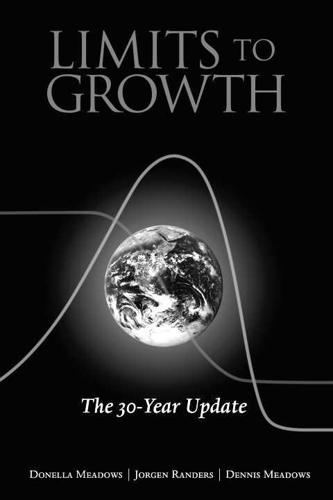
The Limits to Growth: The 30-Year Update
by
Donella H. Meadows
,
Jørgen Randers
and
Dennis L. Meadows
Published 15 Apr 2004
Fact sheets of the World Wide Fund for Nature Endangered Seas Campaign, 2003, www.panda.org/campaigns/marine/sturgeon. 11. The classic analysis of this phenomenon is Garrett Hardin's "The Tragedy of the Commons," Science, 162(1968):1243-1248. 12. Audubon (September-October 1991), 34. 13. Dagens Naeringsliv (Norwegain business journal), Oslo (December 9, 2002), 10. 14. Japanese journalist to Paul Ehrlich, in Animal Extinctions: What Everyone Should Know, edited by R. J. Hoage (Washington, DC: Smithsonian Institution Press, 1985), 163. 15. Erling Moxness, "Not Only the Tragedy of the Commons: Misperceptions of Feedback and Policies for Sustainable Development," System Dynamics Review 16, no. 4 (Winter 2000): 325-348.
…
After that, the money will be moved to exterminating some other resource.14 Only political constraints of some kind can protect the resource, and those political constraints are not easy to attain. Regulation does not necessarily work well, either. Recent research indicates that overexploitation also tends to occur when there is full private ownership of the renewable resource, and thus no opportunity for a "tragedy of the commons" syn- drome.15 Overshoot occurs simply because the information about the resource base-such as stock estimates, catch volumes, and growth ratesis uncertain and noisy and not suited to traditional management decision rules. The typical result is overinvestment in harvesting capital and overharvesting of the resource.
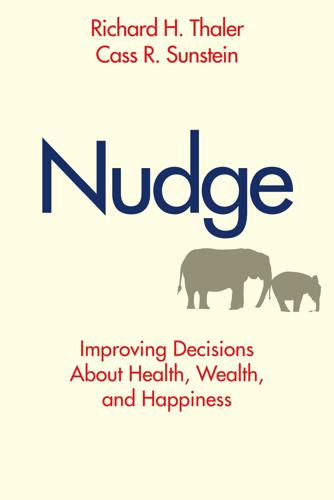
Nudge: Improving Decisions About Health, Wealth, and Happiness
by
Richard H. Thaler
and
Cass R. Sunstein
Published 7 Apr 2008
Markets are a big part of this system, and for all their virtues, they face two problems that contribute to environmental problems. First, incentives are not properly aligned. If you engage in environmentally costly behavior next year, through your consumption choices, you will probably pay nothing for the environmental harms that you inflict. This is what is often called a “tragedy of the commons.” Each dairy farmer has an incentive to add more cows to his herd, because he obtains the benefits of the additional cows while suffering only a fraction of the costs; but collectively the cows ruin the pasture. Dairy farmers need to find some way to avert this tragedy, perhaps through an agreement to limit the number of cows that each will be permitted to add.
…
defined-benefit retirement plans defined-contribution retirement plans design: controlled by choice architects, details of, human factors incorporated into, informed, neutral, starting points inherent in, user-friendly Design of Everyday Things, The (Norman) Destiny Health Plan difficulty, degree of digital cameras discount pricing discrimination, laws against Disulfiram (antabuse) diversification heuristic divorce: and “above average” effect, and children, difficulty of obtaining, economic prospects affected by, law of, mandatory waiting period for, obtainable at will Doers dog owners, social pressures on Dollar a day incentive domestic partnership agreements “Don’t Mess with Texas,” eating: and conformity, and food display, and food selection, gender differences in Economist Econs: easy choices for, homo economicus, incentives for, investment decisions by, and money, not followers of fashion, Reflective Systems used by, unbiased forecasts made by, use of term education, accountability in, in Boston, in Charlotte, charter schools, child’s right to, and competition, complex choices in, controlled choice in, desegregation of, incentive conflicts in, No Child Left Behind, in San Marcos, Texas, school choice vouchers, status quo bias in, testing standards, test scores, underperforming in, in Worcester “efficient frontier,” Einstein, Albert elimination by aspects emails, Civility Check for Emanuel, Rahm Emergency Planning and Community Right to Know Act (1986) “emoticons,” employers: employee benefits offered by, profit-sharing plans of, and retirement plans endowment effect energy, invisibility of energy conservation: and cost-disclosing thermostats, and framing, and home-building industry, and social influences, voluntary participation programs in energy efficiency Energy Star Office Products Enron Corporation environmental issues, acid deposition program, air pollution, auto emissions, auto fuel economy, cap-and-trade system in, Clean Air Act, climate change, command-and-control regulation of, energy conservation, energy efficiency, energy use, feedback and information, greenhouse gas emissions, incentives for, international, Kyoto Protocol, nudges proposed for, ozone layer, recycling, risk labeling, and social influences, trading systems in, and tragedy of the commons, transparent costs of, voluntary participation programs Environmental Protection Agency (EPA), and auto fuel economy, Energy Star Office Products program, Green Lights program of, Toxic Release Inventory of Equities (stocks) equity premium ERISA (Employee Retirement Income Security Act of) error, expecting “everything matters,” evil nudgers expectations Experion Systems externalities FAFSA (free application for federal student aid) families, dispersion of Family and Medical Leave Act Federal Express, Federal Housing Administration (FHA) Federal Trade Commission (FTC) feedback, plans (college savings accounts) flexible spending accounts follow through failure to, Food and Drug Administration (FDA) food display food selection footnotes, uses of forced choice forcing function Ford, Harrison (k) plans framing France, organ donations in Franklin, Benjamin freedom of choice, danger of overreaching, elimination of, Just Maximize Choices, opposition to, and presumed consent, and required choice frequency Friedman, Milton friendly discouragement fungibility gains and losses gambling, low stakes, mental accounting in, self-bans, and strategy Gandhi, Mohandas gas tank caps Gateway Arch, St.
…
Roth, Al rules of thumb, anchoring, availability, in investments, representativeness, systematic biases in Rules of Thumb (Parker) Rumsfeld, Donald saccharine, warnings about Saks, Michael Salganik, Matthew salience same-sex relationships Samuelson, William San Marcos, California, energy use in San Marcos, Texas, schools Santorum, Rick Save More Tomorrow, and automatic enrollment, contributions synchronized to pay raises, government role in, obstacles to saving, and Pension Protection Act scents, as cues Schiphol Airport, Amsterdam, men’s rooms in Sears, profit-sharing plan Seattle Windshield Pitting Epidemic self-control: with credit cards, and gambling, market-driven, and mindless choosing, and Save More Tomorrow, sinful goods, strategies for, and temptation, two-system conception of Sell More Tomorrow Shaikh, Altaf Shea, Dennis Shepard, Roger Sherif, Muzafer Shu, Suzanne Silverstein, Shel, “Smart,” similarity heuristic Simister, Duncan simplifying strategies sinful goods slippery-slope argument smoking: CARES, intrusive paternalism vs., quitting without a patch, risks of, and self-control, and social influence Snow, Tony social influences, as choice architecture, conformity, and cultural change, in health care, and information, in Jonestown, learning from others, in peer pressure, power of, priming, spotlight effect, and unpredictability “social norms” approach Social Security, and advertising, default fund for, lessons learned from the Swedish experience, simplified choice process, Swedish privatization of, and timing Souleles, Nick Southern California Edison Spain, organ donations in spotlight effect Stafford loans status quo bias: and default option, in education, as inertia, and lack of attention, and magazine subscriptions, in marriage, in retirement savings Stewart, Potter Stickk.com Stigler, George stimulus response compatibility stocks and bonds, company stock, diversification of, and environmental blacklist, market timing, Sell More Tomorrow strategic misrepresentation Stroop test student loans, avoiding, college savings accounts (529 plans), expected family contribution in, FAFSA for, as opportunity to fleece confused consumers, from private sector, RECAP applied to subliminal advertising subprime mortgages sunlamps supply and demand Sweden, in world economy Swedish Social Security, active choosers in, advertising, asset allocation in, availability bias in, default fund of, inertia in, Just Maximize Choices in, lessons learned from table test “target maturity funds,” tax-favored savings accounts Tax Return, Automatic teenage pregnancy television, default option in temptation, and arousal, cashew phenomenon, and “hot-cold empathy gap,”; and mental accounting, and mindless choosing, and packaging, and self-control, sinful goods, of Ulysses terror alert system tetanus shots Texas, anti-littering campaign in Thaler, Richard H., and Save More Tomorrow thinking, in Reflective System Third Way Thompson, Clive TIAA-CREF Tierney, John Toxic Release Inventory tragedy of the commons transparency Truth in Lending Act (Regulation Z) Tversky, Amos Ulysses, resisting temptation unpredictability, user ratings, U.S. Treasury bills Varian, Hal Veterans Affairs, Department of Villarreal, E. Linda Vitality Bucks vouchers, school choice Wansink, Brian Watts, Duncan weight loss, strategy for Wilkins, Lauren Woodward, Susan Worcester, Massachusetts, schools in workers’ compensation work safety WorldCom World War II, London bombed in Yale University, tetanus shots at “yeah, whatever,” heuristic Yunus, Muhammad Zeckhauser, Richard Zhe Jin, Ginger Zipcar
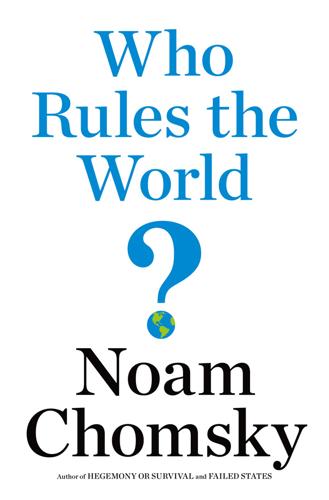
Who Rules the World?
by
Noam Chomsky
Environmental constraints threaten to deprive the company of future profits, a crime that can be punished under the rules of the investor-rights regime mislabeled as “free trade.”8 And this is only a tiny sample of struggles underway over much of the world, some involving extreme violence, as in the eastern Congo, where millions have been killed in recent years to ensure an ample supply of minerals for cell phones and other uses, and, of course, ample profits.9 The rise of capitalist practice and morality brought with it a radical revision of how the commons are treated, and also how they are conceived of. The prevailing view today is captured by Garrett Hardin’s influential argument that “freedom in a commons brings ruin to us all,” the famous “tragedy of the commons”: what is not owned will be destroyed by individual avarice.10 An international counterpart was the concept of terra nullius, employed to justify the expulsion of indigenous populations in the settler-colonial societies of the Anglosphere, or their “extermination,” as the founding fathers of the American republic described what they were doing, sometimes with remorse, after the fact.
…
As a colonial administrator, he understood what was happening, and there is no basis for the attribution in his writings, as contemporary scholarship has shown convincingly, notably the work of the Australian scholar Paul Corcoran. (It was in Australia, in fact, that the doctrine has been most brutally employed.)11 The grim forecasts of the tragedy of the commons are not without challenge. The late Elinor Ostrom won the Nobel Prize in economics in 2009 for her work showing the superiority of user-managed fish stocks, pastures, woods, lakes, and groundwater basins. But the conventional doctrine has force if we accept its unstated premise: that humans are blindly driven by what American workers, at the dawn of the industrial revolution, bitterly called “the New Spirit of the Age, Gain Wealth forgetting all but Self.”12 Like peasants and workers in England before them, American workers denounced this new spirit that was being imposed upon them, regarding it as demeaning and destructive, an assault on the very nature of free men and women.
…
Emily Achtenberg, “From Water Wars to Water Scarcity: Bolivia’s Cautionary Tale,” NACLA Report on the Americas, 6 June 2013, https://nacla.org/blog/2013/6/5/water-wars-water-scarcity-bolivia%E2%80%99s-cautionary-tale. 8. Randal C. Archibold, “El Salvador: Canadian Lawsuit over Mine Allowed to Proceed,” New York Times, 5 June 2012. 9. Erin Banco, “Is Your Cell Phone Fueling Civil War in Congo?,” Atlantic, July 11, 2011. 10. Garrett Hardin, “The Tragedy of the Commons,” Science 162, no. 3859 13 December 1968, 1243–48. 11. See Paul Corcoran, “John Locke on the Possession of Land: Native Title vs. the ‘Principle’ of Vacuum domicilium.” Paper presented at the Australian Political Studies Association Annual Conference, September 2007, https://digital.library.adelaide.edu.au/dspace/bitstream/2440/44958/1/hdl_44958.pdf. 12.
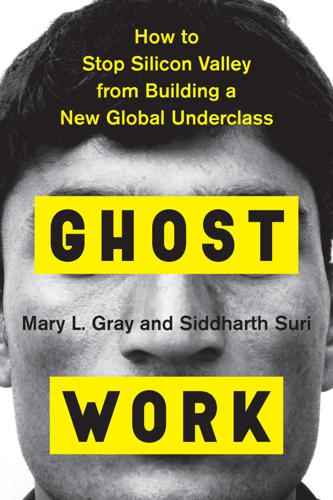
Ghost Work: How to Stop Silicon Valley From Building a New Global Underclass
by
Mary L. Gray
and
Siddharth Suri
Published 6 May 2019
Developing a sustainable model for on-demand work will require more than attention to the technical design of APIs, platforms, and software. It will also demand rethinking how we shore up the economic and social development of people’s capacity to participate in a global economy that’s not going to be fully automated anytime soon. Tragedy of the Commons A cynic might read the efforts of CloudFactory, LeadGenius, Amara, and other companies espousing double bottom lines as using the trappings of their B Corp or nonprofit corporate status to look like the heroes in an economy with easy-to-find villains. Despite the shortcomings of companies like these, they are willing to call out their responsibilities as sources of employment for tens of thousands of people around the world.
…
See college education demographics, on-demand employment Amara, 29 LeadGenius, 23–24, 224 n27 MTurk, 3–4, 10, 11, 126 UHRS, 18, 19 Upwork, 169 Department of Labor, 11, 168 design flaws, 91–93 Diane, 78–79 Dietterich, Tom, xx–xxi, 220 n15 Digital Divide, 162 disability captioning for, xxix, 28, 152–55, 225 n29 on-demand work perceived as, xxx employment, 113–17, 175 insurance for, 60 laws pertaining to, 237 n35 discrimination APIs, 172 collaboration, 135–37 digital access, 161–62 glass ceilings, 113–17 marital status, 53–54 skin color, 226 n3 slavery, 40–41, 226 n2 See also women disenfranchisement, 86 Disney, scheduling, 100 “dollars for dicks,” x DoorDash, 157–58, 162, 189 double bottom line, 140–65 Amara and, 153–55 defined, 141 by design, 148–52, 240 n9 Good Work Code, 156–58 overview of, 140–43 peer-to-peer sharing company, 155–56 platform cooperatives, 158–59 shortcomings of, 159–63 vs single bottom line, 144–47 social entrepreneurship and, 147 tragedy of the commons, 164–65 driver-partners (Uber), 145–46, 240 n5 Dynamo, 136–37 E Economic Policy Institute, xxv education college, xxix, 50, 97, 98, 101, 190 recommendations for, 190 requirement of, 10, 161–62 skill development, 110–13 for women, 114 See also training empathy, 184–85 employees.
…
See ratings or reputation score requesters API effect on, 171 bait-and-switch strategy, 83 collaboration of, 132 communication of tasks, 83–84 fluctuations in, 14 identity of, 31–32 inequality of power in, 91–93 information about, 223 n18, 233 n6, 236 n25 Microsoft employees as, 18 needs of, xvii–xviii origin of, 5–6 transaction costs, 70–75 vetting of, 76–77 Reuther, Walter, 47 rider-customers (Uber), 145–46 risk of entrepreneurship, 95 Industrial Revolution, 45–46 mitigation by requesters, 74 reputation score, 70–71, 81–82 scams, 104, 122, 125 workplace safety, xxiii–xxiv, 60, 86, 97, 190, 193–94 See also transaction costs Riyaz, 86–90 Roberts, Sarah T., 19 robots, xviii–xxiii Romney, Mitt, xii Rosie the Riveter, 47 S S&P Global Market Intelligence, 62 safety, workplace algorithmic cruelty, 86 Bangladesh Accord, 193–94 for full-time employment, 60, 97 Good Work Code, 157 industrial era, 45–46 unraveling of, xxiii–xxiv workspaces, 190 safety net, for workers, 189–92 Sanjay, 128–29 Sanjeev, 126 scaffolding technique, 149–50, 164, 240 n11 scams, 104, 122, 125 scheduling 80/20 rule, 103, 118 always-on workers, 104, 105, 126, 150–51, 158–59, 170, 190 control over, 96, 99–100, 108, 157 employer control over, xxvi, 48 experimentalists, 104, 126, 150–51 just-in-time scheduling, 100, 235 n11 MTurk, 5, 79 as priority, 147, 150, 155, 164 Treaty of Detroit, 48 Sears, Mark, 141, 143, 149 self-improvement, 100, 110–13 sentiment analysis, 19 Service Employees International Union, 158–59, 191 service jobs, growth of, 97 Shah, Palak, 157 shared workspaces, 180–81 Singh, Manmohan, 55 skilled work, 39, 51, 97 skills, learning, 100, 110–13 skills gap, 230 n26 Skype, 23, 132, 179 slavery, 40–41, 226 n2 Smart Glasses, 167–68 Smith, Aaron, 219 n2, 242 n2 Smith, Adam, 58 social consequences, algorithmic cruelty, 68–69 social entrepreneurship, 147–55 social environment forums as, 132–33, 164, 239 n8 job validation, 95 need for, 178–80, 233 n6 requesters on, 73–74 in workplaces, 121–23, 173–74 See also collaboration Software Technology Parks of India (STPI), 55 SpaceX, xviii Sparrow Cycling, 142 speech recognition, 30 spinning jenny, 43, 173 Star, Susan Leigh, 238 n2 Starbucks, 28, 100 Stern, Andy, 191 Strauss, Anselm, 238 n1 strikes, 47, 48 subcontracting, Industrial Revolution, 41–42 success, changing definition of, 97–98 Suchman, Lucy, 238 n3 support collaboration, 121–23, 133–37 for on-demand work, 105 as requirement, 162 of workers, 21, 140–43, 149, 240 n11 See also double bottom line; forums Suri, Siddharth, xxvii–xxix, 221 n23 surveys LeadGenius, 224 n27 market surveys, 3, 19 on payment, 90–91 as task, 87, 116, 219 n2, 242 n2 worker motivation, 100 T Taft, Robert A., 48 Taft-Hartley Act, 48–49, 54, 228 n20 Taste of the World, 14 Taylor, Frederick, 227 n6 Team Genius, 88–90 teamwork, 24, 28, 160–61, 164, 182–83 technology AI. see artificial intelligence (AI) APIs. see application programming interface (API) automation, xviii–xxiii, 173–77, 176–77, 243 n5 computers. see computers machinery, 42, 43–44, 58–59, 227 n5 paradox of automation, xxii, 36, 170, 173, 175 Technology, Entertainment and Design (TED). See TED Talks TED Talks, 27, 113, 152–53, 226 n30 temporary work. See contract (temporary) work terms of agreement, xxiv, 85–86, 88, 93 Tesla, xviii tools and software, 23, 73–74, 180–81 trade guilds, 41–45 tragedy of the commons, 164–65 training of AI, xxiii, 6–8, 16, 170, 222 n11 lack of, 71 on LeadGenius, 23 need for, 182–83, 230 n26 workers commitment to, 87–88 transaction costs, 69–75 defined, 69–70 hypervigilance, 76–80 inequality in, 91–93 isolation and training, 80–84 payment, lack of, 85–91 reduction of through collaboration, 121–28 of requesters, 70–75 up-front costs for workers, 108 of workers, 32, 75–76, 173 translation, 18–19, 153–55, 226 n30 transparency bait-and-switch strategy, 83 need for, 138–39, 180 requesters and, 71 worker misinformation, 134 Treaty of Detroit, 47–48 TripAdvisor, xiii, 14 Truman, Harry, 48 trust, 71–72, 74, 133 TurkerNation, 239 n8 Turkopticon, 223 n18 Twine Health, 167 Twitter, ix, x, xii, xiii, xxi, 17 U Uber Real-Time ID Check, xv–xvi, 35 as single bottom line company, 145–46 study of, xxv worker, view of, 75 worker status, 240 n5 UHRS content moderation, xi corporate firewalls, 16–21 equality in, 115–16 nondisclosure agreements, 224 n21 sharing work on, 128 See also Microsoft underemployment, 95 unions full-time employment and, 60 future of, 188–89 Industrial Revolution, 44 legal right to form, 38, 47, 228 n20 outsourcing and, 55 platforms and, 158–59 United Auto Workers (UAW), 47 United Garment Workers (UGW), 44–45, 47 U.S., the Amazon.com, 1–2 census of, 168 demographics, 169 discrimination, workplace, 113–17, 133 Fair Food Program, 193 map of MTurk participants, figure 1A reasons for ghost work, 96 slavery in, 40–41 underemployment, 95 women and, 106–10 U.S.
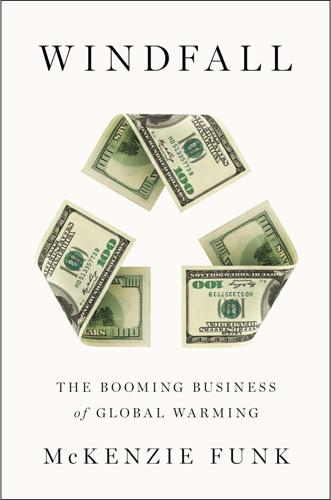
Windfall: The Booming Business of Global Warming
by
Mckenzie Funk
Published 22 Jan 2014
The emotional block: What we don’t see doesn’t scare us. “The time-delayed, abstract, and often statistical nature of the risks of global warming does not evoke strong visceral reactions,” Weber writes. At the analytical level, there is, along with the tension between individual and systemic risk—an apparent tragedy of the commons—something economists call hyperbolic discounting. It goes like this: Offer to give someone either $5 today or $10 next year, and he’ll probably take the $5. Among many activists, politicians, and scientists, the assumption is that climate change now suffers mainly from a PR problem: If the proper nudges can be found or the reality of it finally made visceral, the public will take action.
…
Stephen Gardiner, a philosophy professor who organized the lecture series, is also the author of A Perfect Moral Storm: The Ethical Tragedy of Climate Change (New York: Oxford University Press, 2011). His writings helped me understand that contrary to conventional wisdom, global warming is not a classic “tragedy of the commons” as first described by the ecologist Garrett Hardin—or at least that if it is, some of the metaphorical herdsmen among us have bigger cows. When I traveled a second time to Alaska’s Chukchi Sea and stayed in the village of Point Hope, I carried with me The Firecracker Boys by Dan O’Neill (New York: St.
…
K., 205 skiing, indoor, 80–81, 232 Ski-Trac, 80 Slater, Jim, 153 Smith, Adam, 112 Snaefellsjökull volcano, 122 Snell, John, 236–38 Snøhvit (Snow White), 53–55 Snow Dragon, 31 snowmaking, 80–82, 85, 89, 261 SnowWorld Landgraaf, Netherlands, 80 Snowy Hydro, 261 solar power, 3, 58, 59 solar radiation management (SRM), 266, 269–72, 279, 280 South Lakes Glacier, 74 South Platte River, 130 South Sudan, 140, 143, 147, 148, 152, 154, 157, 159 sovereignty: in the Arctic, 15–19, 24, 34 climate change as threat to, 136 and disappearing islands, 221 in Greenland, 63–64, 67, 71–72 redefining, 137 Soviet Union, breakup of, 143, 151 Spain: and African migrants, 167, 173 and desalination, 167 drought in, 86, 92, 167, 221 tourism in, 168 water imports in, 87 Spork, Otto, 122 Spragg, Terry, 122–24 Spragg Bag, 122–24 Springdale, Arkansas, 219–20 SRI International, 43 Stalin, Joseph, 177 statehood, legal thresholds for, 217–19 Statoil, 45, 53, 54 Sterile Insect Technique (SIT), 242 Stern, Lord Nicholas, 20 Economics of Climate Change, 5 Stoffman, Rafi, 82, 85, 89–90 Stratospheric Shield, 272–73, 274, 280 stress nexus, 58 “string of pearls,” 271 Strong, Sergeant (pseud.), 22, 24, 29, 33, 34–35, 38, 39, 217 Sudan: civil war in, 141, 143, 147, 149, 155, 159 famine in, 149 and land deals, 140, 144, 152 petroleum production in, 147 water in, 148, 154 Sudan People’s Liberation Army (SPLA), 139, 141 Suez Canal, 120 Summers, Adam B., 104 Summit Global Management, 118–22, 133, 134 Summit Water Development Group, 121, 130–31, 132 SuperFreakonomics (Levitt and Dubner), 275 sustainability, 219 Swiss Re, 4 Switzerland, borders of, 66, 85 Syngenta, 3, 246 Tandou Limited, 134 Tanzania, and land deals, 144 tectonic movement, 194 Tegreene, Casey, 261–65, 269, 272, 275, 277 Teller, Edward, 216, 258, 260, 265, 285–86 Terrapin, 120 Tessel, Moshe, 82, 84–85, 91 Thermo-Gel fire retardant, 103 Thule Air Base, 72 Tibet: government in exile, 218 melting glaciers in, 87 Tietmeyer, Hans, 143 tragedy of the commons, 7–8 TraitMill process, 250 Trans-Alaska Pipeline, 48 True North Gems, 73 trusteeships, 218 Tuvalu, 64, 65, 226 Tyndall, John, 5 Tyson Foods, 219–20 UBS, 118 Ukraine, and land deals, 4, 140, 144, 151, 152, 153 United Arab Emirates, and land deals, 144 United Nations: climate process of, 217 and disappearing island nations, 215, 226 Global Environment Facility (GEF), 170 United States: and Arctic claims, 32 and Canadian cooperation, 26 Dust Bowl in, 177 intelligence community in, 37, 204 and Law of the Sea, 32 national-security issue in, 29–33 and natural gas, 22 and Northwest Passage, 26, 31 water rights in, 125–27, 129–33 University of Washington, 279–80 Uruguay, and land deals, 144, 153 U.S.
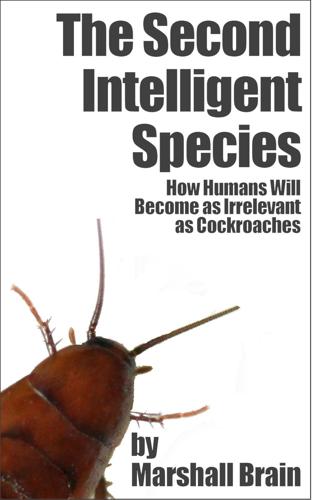
The Second Intelligent Species: How Humans Will Become as Irrelevant as Cockroaches
by
Marshall Brain
Published 6 Apr 2015
If there is any economic advantage to be gained by killing and/or harvesting another species, humans will as a general rule kill it or harvest it without any remorse, all the way to extinction if given the chance. As a species we will often do this even if it is not in our own best interest as a group, a fact succinctly captured in the essay “The Tragedy of the Commons” [1] by Garrett Hardin in 1968, and first explored by William Forster Lloyd in 1833. The natural system on earth can be appalling, and human beings as a product of this process can be shockingly appalling – the fact that we are sentient often makes us more appalling rather than less. This fact is made obvious if we imagine the arrival of a hypothetical extraterrestrial species to planet earth.
…
But at least, in the decades leading up to that point, we will achieve a level of humane and rational behavior that will make a super-intelligent robotic species proud of its creators, rather than disgusted with us. Robots give humanity an amazing opportunity over the next several decades. We should make the most of it for every person on the planet. References [1] http://en.wikipedia.org/wiki/Tragedy_of_the_commons [2] https://wiki.rit.edu/display/smfl/Rubylith [3] http://gizmodo.com/a-humans-guide-to-googles-many-robots-1509799897# [4] http://braininitiative.nih.gov/ [5] https://www.humanbrainproject.eu/ [6] http://www.computershopper.com/components/reviews/intel-core-i7-4790k [7] http://en.wikipedia.org/wiki/List_of_Intel_Core_i7_microprocessors [8] http://www.naplestech.com/shopcart/intel_i7_processors.asp#gsc.tab=0 [9] http://nvidianews.nvidia.com/news/nvidia-launches-tegra-x1-mobile-super-chip [10] http://www.engadget.com/2015/03/27/toshiba-intel-3d-nand-chips [11] https://www.youtube.com/watch?
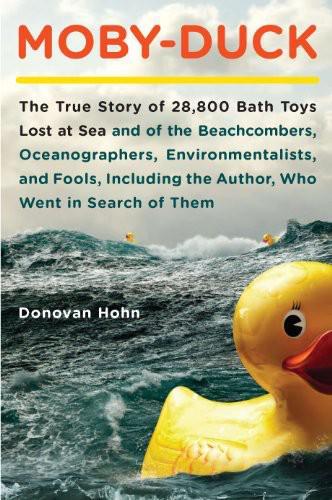
Moby-Duck: The True Story of 28,800 Bath Toys Lost at Sea and of the Beachcombers, Oceanographers, Environmentalists, and Fools, Including the Author, Who Went in Search of Them
by
Donovan Hohn
Published 1 Jan 2010
“One picture is worth a thousand words,” said an ancient Chinese; but it may take 10,000 words to validate it. It is as tempting to ecologists as it is to reformers in general to try to persuade others by way of the photographic shortcut. But the essence of an argument cannot be photographed: it must be presented rationally—in words. —Garrett Hardin, The Tragedy of the Commons Mark, how when sailors in a dead calm bathe in the open sea—mark how closely they hug their ship and only coast along her sides. —Herman Melville, Moby-Dick SOUTH POINT The southernmost edge of Hawaii is also the southernmost edge of the United States of America and feels like the southernmost edge of the world.
…
In theory, every region in the country could follow suit, but already cash-strapped governments in Southern California are complaining that these “zero-trash TMDLs” are too costly and ambitious to implement. Moore, meanwhile, has collected data showing that even full-capture systems would allow tens of thousands of plastic particles to escape the Los Angeles River every day. Forty years ago, Science published an essay called “The Tragedy of the Commons” in which the ecologist Garrett Hardin challenged what might be called the American Comedy of Progress—the cherished notion that with time, technology, entrepreneurialism, and, if need be, activism, all problems can be solved. In America, even prophets of environmental doom subscribe to the Comedy of Progress.
…
“Each man is locked into a system that compels him to increase his herd without limit, “Hardin concluded. “In a world that is limited, freedom in a commons brings ruin to all.” In twenty-first-century America, there are still resources that we share, air and water being the best examples, and so the tragedy of the commons still obtains. It explains the depletion of fisheries and aquifers. It explains the pollution of skies and seas. Technology may forestall the tragedy—by increasing crop yields or fuel efficiency, for instance—but so long as the human population continues to grow it cannot in the long run avert it.
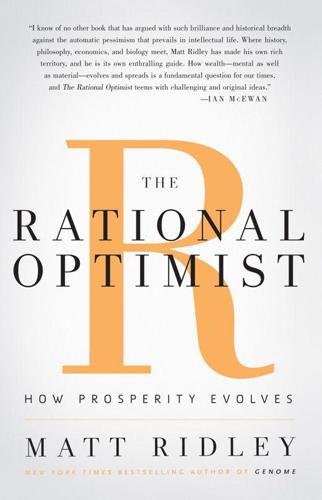
The Rational Optimist: How Prosperity Evolves
by
Matt Ridley
Published 17 May 2010
When President Lyndon Johnson’s adviser Joseph Califano suggested that an increase in famine relief should be announced before a visit by Indira Gandhi to the United States, Johnson supposedly replied that he was not going to ‘piss away foreign aid in nations where they refuse to deal with their own population problems’. Garrett Hardin, in his famous essay ‘The Tragedy of the Commons’ (remembered these days as being about collective action, but actually a long argument for coerced population control), found ‘freedom to breed intolerable’, coercion ‘a necessity’ and that ‘the only way we can preserve and nurture other and more precious freedoms is by relinquishing the freedom to breed, and that very soon.’
…
Give local people the power to own, exploit and profit from natural resources in a sustainable way and they will usually preserve and cherish those resources. Give them no share in a wildlife resource that is controlled – nay ‘protected’ – by a distant government and they will generally neglect, ruin and waste it. That is the real lesson of the tragedy of the commons.) Property rights are not a silver bullet. In some countries, their formalisation simply creates a rentier class. And China experienced an explosion of enterprise after 1978 without ever giving its people truly secure property rights. But it did allow people to start businesses with relatively little bureaucratic fuss, so another of De Soto’s recommendations is to free up the rules governing business.
…
p. 200 ‘On average a merchant in Britain who left £1,000 in his will had four surviving children, while a labourer who left £10 had only two’. Clark, G. 2007. A Farewell to Alms. Princeton University Press. p. 203 ‘Johnson supposedly replied’. Epstein, H. 2008. The strange history of birth control. New York Review of Books, 18 August 2008. p. 203 ‘Garrett Hardin, in his famous essay’. Hardin, G. 1968. The tragedy of the commons. Science 162:1243–8. p. 203 ‘Hardin’s view was nearly universal’. An exception was Barry Commoner, who argued at the UN conference on population in Stockholm in 1972 that the demographic transition would solve population growth without coercion. p. 203 ‘wrote John Holdren (now President Obama’s science adviser) and Paul and Anne Ehrlich in 1977’.
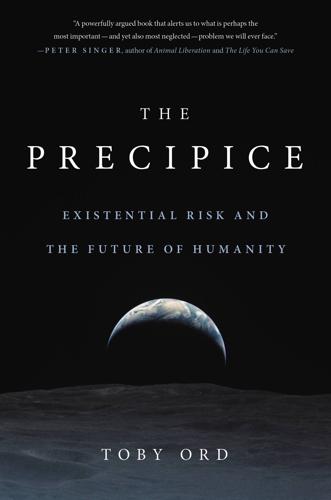
The Precipice: Existential Risk and the Future of Humanity
by
Toby Ord
Published 24 Mar 2020
These are all dynamics that push humanity toward a new equilibrium, where these forces are finally in balance. But there is no guarantee this equilibrium will be good. For example, consider the tension between what is best for each and what is best for all. This is studied in the field of game theory through “games” like the prisoner’s dilemma and the tragedy of the commons, where each individual’s incentives push them toward producing a collectively terrible outcome. The Nash equilibrium (the outcome we reach if we follow individual incentives) may be much worse for everyone than some other outcome we could have achieved if we had overcome these local incentives.
…
We could have nations, ideological blocs, or even planets or descendent species of Homo sapiens locked in harmful competition—doing what is best for their group, but bad for groups on the whole. I don’t know how likely it is that we suffer a sufficiently bad (and sufficiently intractable) tragedy of the commons like this. Or that we are degraded by evolutionary pressures, or driven to lives of very low quality by Malthusian population dynamics, or any other such situation. I’d like to hope that we could always see such things coming and coordinate to a solution. But it’s hard to be sure that we could.
…
The incentives of a nation are only aligned with the incentives of humanity if we share the costs of these policies just as we share the benefits. While nations occasionally act for the greater interest of all humankind, this is the exception rather than the rule. Multilateral action can resolve this tragedy of the commons, replacing a reliance on countries’ altruism with a reliance on their prudence: still not perfect, but a much better bet. And there would be benefits to centralizing some of this international work on safeguarding humanity. This would help us pool our expertise, share our perspectives and facilitate coordination.
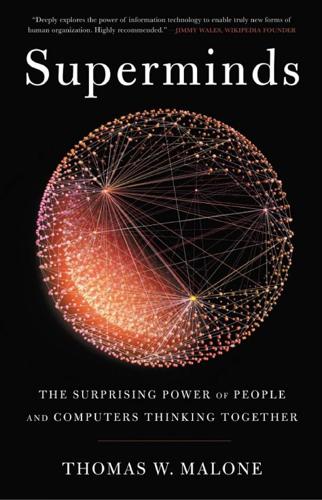
Superminds: The Surprising Power of People and Computers Thinking Together
by
Thomas W. Malone
Published 14 May 2018
Being part of a group that restricts other individuals from harming you can be a very significant benefit. For instance, even though the winner usually gains something in a fight, both parties may have been better off if the fight had never happened in the first place. Cooperation can avoid other kinds of problems, too. In a scenario that economists call the tragedy of the commons, for example, villagers in a small town let their sheep graze in the town commons without any restrictions. As a result, the sheep eat all the grass. No more grass can grow, so no one has grass anymore. But if the villagers had cooperated to limit the amount of grazing each one’s animals could do, they could still have had grass.10 This problematic pattern also occurs in many other group situations, resulting in such problems as environmental pollution and climate change.
…
John Locke, Two Treatises of Government and a Letter Concerning Toleration (New Haven, CT: Yale University Press, 2003); Thomas Hobbes, Leviathan, ed. C. B. Macpherson (London: Penguin Books, 1985); Jean-Jacques Rousseau, The Basic Political Writings, translated by Donald A. Cress (Indianapolis: Hackett Publishing Company, 1987); John Rawls, A Theory of Justice (Cambridge, MA: Harvard University Press, 1971). 4. Garrett Hardin, “The Tragedy of the Commons,” Science 162, no. 3,859 (1968): 1,243–48; Robert L. Trivers, “The Evolution of Reciprocal Altruism,” Quarterly Review of Biology 46 (1971): 35–57, doi:10.1086/406755; Christopher Stephens, “Modelling Reciprocal Altruism,” British Journal for the Philosophy of Science 47, no. 4 (1996): 533–51, doi:10.1093/bjps/47.4.533. 5.
…
Hart, “The Costs and Benefits of Ownership: A Theory of Vertical and Lateral Integration,” Journal of Political Economy 94, no. 4 (1986): 691–719, doi:10.1086/261404; Hart, “Theory of Contracts,” 71–155. For a comparison of the two perspectives on why markets can sometimes be more expensive and sometimes less expensive than hierarchies, see Gibbons, “Organization and Information,” 1,813–41. 9. Hobbes, Leviathan, XIII.9. 10. Hardin, “The Tragedy of the Commons.” 11. Trivers, “The Evolution of Reciprocal Altruism”; Stephens, “Modelling Reciprocal Altruism.” 12. See a useful summary of work on this topic in Christian List, “Social Choice Theory,” in Stanford Encyclopedia of Philosophy (Winter 2013 edition), ed. Edward N. Zalta (Stanford, CA: Stanford University, 2013), http://plato.stanford.edu/archives/win2013/entries/social-choice. 13.
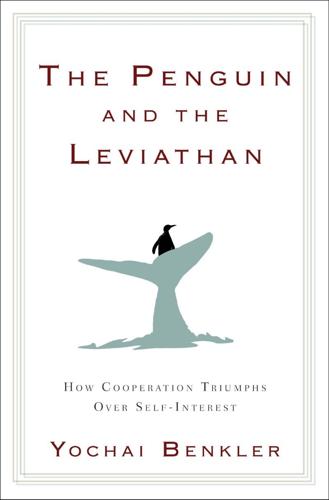
The Penguin and the Leviathan: How Cooperation Triumphs Over Self-Interest
by
Yochai Benkler
Published 8 Aug 2011
My point is, norms matter. People seen to flock to behavior they consider “normal.” So if we want to encourage good social habits, we need to do more than institute norms; we also need to set clear signals of what counts as normal and appropriate behavior. Spanish Farmers and Lobster Gangs: The (un)Tragedy of the Commons The question of just how much official regulation is needed to keep a system running smoothly is obviously a critical one for those interested in the study of cooperation. Particularly pressing for politicians, lawmakers, and social scientists is the question of how much intervention is needed to successfully regulate common property or resources—shared public spaces, municipal stores of water, and so on.
…
The question at the heart of this debate is one that we’ve seen in some form or another many times before: Can humans be trusted, in the absence of strict rules and limits, to share a common resource in a way that is fair to everyone? In 1968 biologist turned ecologist Garrett Hardin published his famous parable, “The Tragedy of the Commons,” the story of a village that had in its center a piece of land that was shared by all the village farmers. The problem was, there was a finite amount of grass on that commons and no laws or limits on how many cattle each farmer could allow on the land to graze. So farmers, each trying to maximize their own gain, kept letting more and more of their own cattle graze on the land, until the grass was depleted, leaving nothing for anyone.
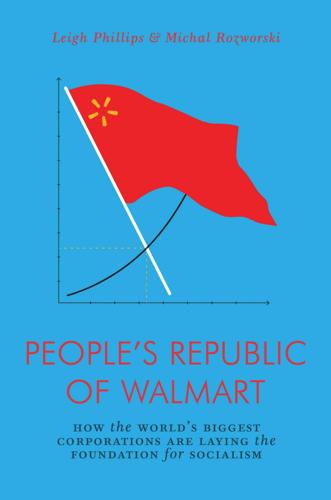
The People's Republic of Walmart: How the World's Biggest Corporations Are Laying the Foundation for Socialism
by
Leigh Phillips
and
Michal Rozworski
Published 5 Mar 2019
Across history, however, people have also found ways to plan and act together without bosses to tell them what to do. In response to any mention of durable human cooperation that is not mediated by markets, in particular by the undisguised incentives provided by the labor market—at their most basic, work or starve—defenders of the market system often bring up the notion of the “tragedy of the commons.” The phrase, coined by ecologist Garrett Hardin in a 1968 article in the journal Science, refers to a shared resource inevitably depleted through overuse by individuals acting in their self-interest. The prototypical commons employed to illustrate this tragedy is a plot of open, shared pastureland in a village.
…
Based on this and other case studies, Ostrom went on to identify conditions that helped protect common resources—among them, participation in decision making by users of the resources, the capacity for monitoring usage, meaningful social sanctions and conflict-resolution mechanisms. Findings that question the tragedy of the commons, just like the idea of planning itself, can be initially jarring. It is an implicit belief of our age that the only real incentives are pecuniary ones—that despotism is a necessary part of work, and that it is largely out of fear of losing their incomes that people work toward common goals.
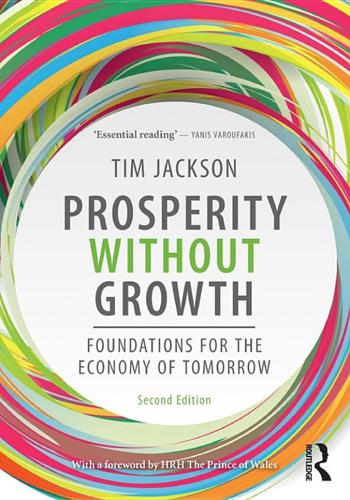
Prosperity Without Growth: Foundations for the Economy of Tomorrow
by
Tim Jackson
Published 8 Dec 2016
Since many ecological resources (including the climate) can be classed as ‘common pool resources’, her work is of particular interest to the aims of this book.9 Working as a political scientist in the US, Ostrom had for some years been studying how small communities managed local resources when she happened to attend a lecture by the ecologist Garrett Hardin. It was 1968 – the same year in which Hardin published his landmark ‘Tragedy of the commons’. Hardin’s primary interest was in the problem of unchecked population growth. Like Malthus before him, he became convinced that the earth could not continue to provide resources at the same rate that the population was growing.10 Somewhere along the way, Hardin came across a couple of lectures first published in 1833 by the Victorian economist William Forster Lloyd.
…
‘The genetical evolution of social behaviour’. Journal of Theoretical Biology 7: 1–52. Hamilton, William 1963. ‘The evolution of altruistic behaviour’. American Naturalist 97: 354–356. Hansen, Alvin 1939. ‘Economic progress and declining population growth’. American Economic Review 29(1): 1–15. Hardin, Garrett 1968. ‘The tragedy of the commons’. Science 162(3859): 1243–1248. doi:10.1126/science.162.3859.1243. Harford, Tim 2013. ‘Do you believe in sharing? The undercover economist’. Online at http://timharford.com/2013/08/do-you-believe-in-sharing/ (accessed 9 March 2016). Hart, Stuart 2007. Capitalism at the Crossroads, 2nd edition.
…
INDEX Locators in italic refer to figures absolute decoupling 84–6; historical perspectives 89–96, 90, 92, 94, 95; mathematical relationship with relative decoupling 96–101, 111 abundance see opulence accounting errors, decoupling 84, 91 acquisition, instinctive 68 see also symbolic role of goods adaptation: diminishing marginal utility 51, 68; environmental 169; evolutionary 226 advertising, power of 140, 203–4 Africa 73, 75–7; life-expectancy 74; philosophy 227; pursuit of western lifestyles 70; growth 99; relative income effect 58, 75; schooling 78 The Age of Turbulence (Greenspan) 35 ageing populations 44, 81 agriculture 12, 148, 152, 220 Aids/HIV 77 algebra of inequality see inequality; mathematical models alienation: future visions 212, 218–19; geographical community 122–3; role of the state 205; selfishness vs. altruism 137; signals sent by society 131 alternatives: economic 101–2, 139–40, 157–8; hedonism 125–6 see also future visions; post-growth macroeconomics; reform altruism 133–8, 196, 207 amenities see public services/amenities Amish community, North America 128 An Inquiry into the Nature and Causes of the Wealth of Nations (Smith) 123, 132 angelised growth see green growth animal welfare 220 anonymity/loneliness see alienation anthropological perspectives, consumption 70, 115 anti-consumerism 131 see also intrinsic values anxiety: fear of death 69, 104, 115, 212–15; novelty 116–17, 124, 211 Argentina 58, 78, 78, 80 Aristotle 48, 61 The Art of Happiness (Dalai Lama) 49 arts, Baumol’s cost disease 171–2 assets, stranded 167–8 see also ownership austerity policies xxxiii–xxxv, 189; and financial crisis 24, 42–3; mathematical models 181 Australia 58, 78, 128, 206 authoritarianism 199 autonomy see freedom/autonomy Ayres, Robert 143 backfire effects 111 balance: private interests/common good 208; tradition/innovation 226 Bank for International Settlements 46 bank runs 157 banking system 29–30, 39, 153–7, 208; bonuses 37–8 see also financial crisis; financial system basic entitlements: enterprise as service 142; income 67, 72–9, 74, 75, 76, 78; limits to growth 63–4 see also education; food; health Basu, Sanjay 43 Baumol, William 112, 147, 222, 223; cost disease 170, 171, 172, 173 BBC survey, geographical community 122–3 Becker, Ernest 69 Belk, Russ 70, 114 belonging 212, 219 see also alienation; community; intrinsic values Bentham, Jeremy 55 bereavement, material possessions 114, 214–15 Berger, Peter 70, 214 Berry, Wendell 8 Better Growth, Better Climate (New Climate Economy report) 18 big business/corporations 106–7 biodiversity loss 17, 47, 62, 101 biological perspectives see evolutionary theory; human nature/psyche biophysical boundaries see limits (ecological) Black Monday 46 The Body Economic (Stuckler and Basu) 43 bond markets 30, 157 bonuses, banking 37–8 Bookchin, Murray 122 boom-and-bust cycles 157, 181 Booth, Douglas 117 borrowing behaviour 34, 118–21, 119 see also credit; debt Boulding, Elise 118 Boulding, Kenneth 1, 5, 7 boundaries, biophysical see limits (ecological) bounded capabilities for flourishing 61–5 see also limits (flourishing within) Bowen, William 147 Bowling Alone (Putnam) 122 Brazil 58, 88 breakdown of community see alienation; social stability bubbles, economic 29, 33, 36 Buddhist monasteries, Thailand 128 buen vivir concept, Ecuador xxxi, 6 built-in obsolescence 113, 204, 220 Bush, George 121 business-as-usual model 22, 211; carbon dioxide emissions 101; crisis of commitment 195; financial crisis 32–8; growth 79–83, 99; human nature 131, 136–7; need for reform 55, 57, 59, 101–2, 162, 207–8, 227; throwaway society 113; wellbeing 124 see also financial systems Canada 75, 206, 207 capabilities for flourishing 61–5; circular flow of the economy 113; future visions 218, 219; and income 77; progress measures 50–5, 54; role of material abundance 67–72; and prosperity 49; relative income effect 55–61, 58, 71, 72; role of shame 123–4; role of the state 200 see also limits (flourishing within); wellbeing capital 105, 107–10 see also investment Capital in the 21st Century (Piketty) 33, 176, 177 Capital Institute, USA 155 capitalism 68–9, 80; structures 107–13, 175; types 105–7, 222, 223 car industry, financial crisis 40 carbon dioxide emissions see greenhouse gas emissions caring professions, valuing 130, 147, 207 see also social care Cat on a Hot Tin Roof (Williams) 213 causal path analysis, subjective wellbeing 59 Central Bank 154 central human capabilities 64 see also capabilities for flourishing The Challenge of Affluence (Offer) 194 change see alternatives; future visions; novelty/innovation; post-growth macroeconomics; reform Chicago school of economics 36, 156 children: advertising to 204; labour 62, 154; mortality 74–5, 75, 206 Chile xxxiii, xxxvii, 58, 74, 74, 75, 76 China: decoupling 88; GDP per capita 75; greenhouse gas emissions 91; growth 99; life expectancy 74; philosophy 7; post-financial crisis 45–6; pursuit of western lifestyles 70; relative income effect 58; resource use 94; savings 27; schooling 76 choice, moving beyond consumerism 216–18 see also freedom/autonomy Christian doctrine see religious perspectives chromium, commodity price 13 Cinderella economy 219–21, 224 circular economy 144, 220 circular flow of the economy 107, 113 see also engine of growth citizen’s income 207 see also universal basic income civil unrest see social stability Clean City Law, São Paulo 204 climate change xxxv, 22, 47; critical boundaries 17–20; decoupling 85, 86, 87, 98; fatalism 186; investment needs 152; role of the state 192, 198, 201–2 see also greenhouse gas emissions Climate Change Act (2008), UK 198 clothing see basic entitlements Club of Rome, Limits to Growth report xxxii, xxxiii, 8, 11–16, Cobb, John 54 collectivism 191 commercial bond markets 30, 157 commitment devices/crisis of 192–5, 197 commodity prices: decoupling 88; financial crisis 26; fluctuation/volatility 14, 21; resource constraints 13–14 common good: future visions 218, 219; vs. freedom and autonomy 193–4; vs. private interests 208; role of the state 209 common pool resources 190–2, 198, 199 see also public services/amenities communism 187, 191 community: future visions of 219–20; geographical 122–3; investment 155–6, 204 see also alienation; intrinsic values comparison, social 115, 116, 117 see also relative income effect competition 27, 112; positional 55–61, 58, 71, 72 see also struggle for existence complexity, economic systems 14, 32, 108, 153, 203 compulsive shopping 116 see also consumerism Conference of the Parties to the UN Framework Convention on Climate Change (CoP21) 19 conflicted state 197, 201, 209 connectedness, global 91, 227 conspicuous consumption 115 see also language of goods consumer goods see language of goods; material goods consumer sovereignty 196, 198 consumerism 4, 21, 22, 103–4, 113–16; capitalism 105–13, 196; choice 196; engine of growth 104, 108, 120, 161; existential fear of death 69, 212–15; financial crisis 24, 28, 39, 103; moving beyond 216–18; novelty and anxiety 116–17; post-growth economy 166–7; role of the state 192–3, 196, 199, 202–5; status 211; tragedy of 140 see also demand; materialism contemplative dimensions, simplicity 127 contraction and convergence model 206–7 coordinated market economies 27, 106 Copenhagen Accord (2009) 19 copper, commodity prices 13 corporations/big business 106–7 corruption 9, 131, 186, 187, 189 The Cost Disease: Why Computers get Cheaper and Health Care Doesn’t (Baumol) 171, 172 Costa Rica 74, 74, 76 countercyclical spending 181–2, 182, 188 crafts/craft economies 147, 149, 170, 171 creative destruction 104, 112, 113, 116–17 creativity 8, 79; and consumerism 113, 116; future visions 142, 144, 147, 158, 171, 200, 220 see also novelty/innovation credit, private: deflationary forces 44; deregulation 36; financial crisis 26, 27, 27–31, 34, 36, 41; financial system weaknesses 32–3, 37; growth imperative hypothesis 178–80; mortgage loans 28–9; reforms in financial system 157; spending vs. saving behaviour of ordinary people 118–19; and stimulation of growth 36 see also debt (public) credit unions 155–6 crises: of commitment 192–5; financial see financial crisis critical boundaries, biophysical see limits (ecological) Csikszentmihalyi, Mihalyi 127 Cuba: child mortality 75; life expectancy 74, 77, 78, 78; response to economic hardship 79–80; revolution 56; schooling 76 Cushman, Philip 116 Dalai Lama 49, 52 Daly, Herman xxxii, 54, 55, 160, 163, 165 Darwin, Charles 132–3 Das Kapital (Marx) 225 Davidson, Richard 49 Davos World Economic Forum 46 Dawkins, Richard 134–5 de Mandeville, Bernard 131–2, 157 death, denial of 69, 104, 115, 212–15 debt, public-sector 81; deflationary forces 44; economic stability 81; financial crisis 24, 26–32, 27, 37, 41, 42, 81; financial systems 28–32, 153–7; money creation 178–9; post-growth economy 178–9, 223 Debt: The First Five Thousand Years (Graeber) 28 decoupling xix, xx, xxxvii, 21, 84–7; dilemma of growth 211; efficiency measures 84, 86, 87, 88, 95, 104; green growth 163, 163–5; historical perspectives 87–96, 89, 90, 92, 94, 95; need for new economic model 101–2; relationship between relative and absolute 96–101 deep emission and resource cuts 99, 102 deficit spending 41, 43 deflationary forces, post-financial crisis 43–7, 45 degrowth movement 161–3, 177 demand 104, 113–16, 166–7; post-financial crisis 44–5; post-growth economy 162, 164, 166–9, 171–2, 174–5 dematerialisation 102, 143 democratisation, and wellbeing 59 deposit guarantees 35 deregulation 27, 34, 36, 196 desire, role in consumer behaviour 68, 69, 70, 114 destructive materialism 104, 112, 113, 116–17 Deutsche Bank 41 devaluation of currency 30, 45 Dichter, Ernest 114 digital economy 44, 219–20 dilemma of growth xxxi, 66–7, 104, 210; basic entitlements 72–9, 74, 75, 76, 78; decoupling 85, 87, 164; degrowth movement 160–3; economic stability 79–83, 174–6; material abundance 67–72; moving beyond 165, 166, 183–4; role of the state 198 diminishing marginal utility: alternative hedonism 125, 126; wellbeing 51–2, 57, 60, 73, 75–6, 79 disposable incomes 27, 67, 118 distributed ownership 223 Dittmar, Helga 126 domestic debt see credit dopamine 68 Dordogne, mindfulness community 128 double movement of society 198 Douglas, Mary 70 Douthwaite, Richard 178 downshifting 128 driving analogy, managing change 16–17 durability, consumer goods 113, 204, 220 dynamic systems, managing change 16–17 Eastern Europe 76, 122 Easterlin, Richard 56, 57, 59; paradox 56, 58 eco-villages, Findhorn community 128 ecological investment 101, 166–70, 220 see also investment ecological limits see limits (ecological) ecological (ecosystem) services 152, 169, 223 The Ecology of Money (Douthwaite) 178 economic growth see growth economic models see alternatives; business-as-usual model; financial systems; future visions; mathematical models; post-growth macroeconomics economic output see efficiency; productivity ‘Economic possibilities for our grandchildren’ (Keynes) 145 economic stability 22, 154, 157, 161; financial system weaknesses 34, 35, 36, 180; growth 21, 24, 67, 79–83, 174–6, 210; post-growth economy 161–3, 165, 174–6, 208, 219; role of the state 181–3, 195, 198, 199 economic structures: post-growth economy 227; financial system reforms 224; role of the state 205; selfishness 137 see also business-as-usual model; financial systems ecosystem functioning 62–3 see also limits (ecological) ecosystem services 152, 169, 223 Ecuador xxxi, 6 education: Baumol’s cost disease 171, 172; and income 67, 76, 76; investment in 150–1; role of the state 193 see also basic entitlements efficiency measures 84, 86–8, 95, 104, 109–11, 142–3; energy 41, 109–11; growth 111, 211; investment 109, 151; of scale 104 see also labour productivity; relative decoupling Ehrlich, Paul 13, 96 elasticity of substitution, labour and capital 177–8 electricity grid 41, 151, 156 see also energy Elgin, Duane 127 Ellen MacArthur Foundation 144 emissions see greenhouse gas emissions employee ownership 223 employment intensity vs. carbon dioxide emissions 148 see also labour productivity empty self 116, 117 see also consumerism ends above means 159 energy return on investment (EROI) 12, 169 energy services/systems 142: efficiency 41, 109–11; inputs/intensity 87–8, 151; investment 41, 109–10, 151–2; renewable xxxv, 41, 168–9 engine of growth 145; consumerism 104, 108, 161; services 143, 170–4 see also circular flow of the economy enough is enough see limits enterprise as service 140, 141–4, 158 see also novelty/innovation entitlements see basic entitlements entrepreneur as visionary 112 entrepreneurial state 220 Environmental Assessment Agency, Netherlands 62 environmental quality 12 see also pollution environmentalism 9 EROI (energy return on investment) 12, 169 Essay on the Principle of Population (Malthus) 9–11, 132–3 evolutionary map, human heart 136, 136 evolutionary theory 132–3; common good 193; post-growth economy 226; psychology 133–5; selfishness and altruism 196 exchange values 55, 61 see also gross domestic product existential fear of death 69, 104, 115, 212–15 exponential expansion 1, 11, 20–1, 210 see also growth external debt 32, 42 extinctions/biodiversity loss 17, 47, 62, 101 Eyres, Harry 215 Fable of the Bees (de Mandeville) 131–2 factor inputs 109–10 see also capital; labour; resource use fast food 128 fatalism 186 FCCC (Framework Convention on Climate Change) 92 fear of death, existential 69, 104, 115, 212–15 feedback loops 16–17 financial crisis (2008) 6, 23–5, 32, 77, 103; causes and culpability 25–8; financial system weaknesses 32–7, 108; Keynesianism 37–43, 188; nationalisation of financial sector 188; need for financial reforms 175; role of debt 24, 26–32, 27, 81, 179; role of state 191; slowing of growth 43–7, 45; spending vs. saving behaviour of ordinary people 118–21, 119; types/definitions of capitalism 106; youth unemployment 144–5 financial systems: common pool resources 192; debt-based/role of debt 28–32, 153–7; post-growth economy 179, 208; systemic weaknesses 32–7; and wellbeing 47 see also banking system; business-as-usual model; financial crisis; reform Findhorn community 128 finite limits of planet see limits (ecological) Fisher, Irving 156, 157 fishing rights 22 flourishing see capabilities for flourishing; limits; wellbeing flow states 127 Flynt, Larry 40 food 67 see also basic entitlements Ford, Henry 154 forestry/forests 22, 192 Forrester, Jay 11 fossil fuels 11, 20 see also oil Foucault, Michel 197 fracking 14, 15 Framework Convention on Climate Change (FCCC) 92 France: GDP per capita 58, 75, 76; inequality 206; life-expectancy 74; mindfulness community 128; working hours 145 free market 106: financial crisis 35, 36, 37, 38, 39; ideological controversy/conflict 186–7, 188 freedom/autonomy: vs. common good 193–4; consumer 22, 68–9; language of goods 212; personal choices for improvement 216–18; wellbeing 49, 59, 62 see also individualism Friedman, Benjamin 176 Friedman, Milton 36, 156, 157 frugality 118–20, 127–9, 215–16 fun (more fun with less stuff) 129, 217 future visions 2, 158, 217–21; community banking 155–6; dilemma of growth 211; enterprise as service 140, 141–4, 147–8, 158; entrepreneur as visionary 112; financial crisis as opportunity 25; and growth 165–6; investment 22, 101–2, 140, 149–53, 158, 169, 208; money as social good 140, 153–7, 158; processes of change 185; role of the state 198, 199, 203; timescales for change 16–17; work as participation 140, 144–9, 148, 158 see also alternatives; post-growth macroeconomics; reform Gandhi, Mahatma 127 GDP see gross domestic product gene, selfish 134–5 Genuine Progress Indicator (GPI) 54, 54 geographical community 122–3 Germany xxxi; Federal Ministry of Finance 224–5; inequality 206; relative income effect 58; trade balance 31; work as participation 146 Glass Steagal Act 35 Global Commodity Price Index (1992–2015) 13 global corporations 106–7 global economy 98: culture 70; decoupling 86–8, 91, 93–5, 95, 97, 98, 100; exponential expansion 20–1; inequality 4, 5–6; interconnectedness 91, 227; post-financial crisis slowing of growth 45 Global Research report (HSBC) 41 global warming see climate change Godley, Wynne 179 Goldman Sachs 37 good life 3, 6; moral dimension 63, 104; wellbeing 48, 50 goods see language of goods; material goods; symbolic role of goods Gordon, Robert 44 governance 22, 185–6; commons 190–2; crisis of commitment 192–5, 197; economic stability 34, 35; establishing limits 200–8, 206; growth 195–9; ideological controversy/conflict 186–9; moving towards change 197–200, 220–1; post-growth economy 181–3, 182; power of corporations 106; for prosperity 209; signals 130 government as household metaphor 30, 42 governmentality 197, 198 GPI (Genuine Progress Indicator) 54, 54 Graeber, David 28 Gramm-Leach-Bliley Act 35 Great Depression 39–40 Greece: austerity xxxiii–xxxiv, xxxvii, 43; energy inputs 88; financial crisis 28, 30, 31, 77; life expectancy 74; schooling 76; relative income effect 58; youth unemployment 144 Green Economy initiative 41 green: growth xxxvii, 18, 85, 153, 166, 170; investment 41 Green New Deal, UNEP 40–1, 152, 188 greenhouse gas emissions 18, 85, 86, 91, 92; absolute decoupling 89–92, 90, 92, 98–101, 100; dilemma of growth 210–11; vs. employment intensity 148; future visions 142, 151, 201–2, 220; Kyoto Protocol 18, 90; reduction targets 19–20; relative decoupling 87, 88, 89, 93, 98–101, 100 see also climate change Greenspan, Alan 35 gross domestic product (GDP) per capita 3–5, 15, 54; climate change 18; decoupling 85, 93, 94; financial crisis 27, 28, 32; green growth 163–5; life expectancy 74, 75, 78; as measure of prosperity 3–4, 5, 53–5, 54, 60–1; post-financial crisis 43, 44; post-growth economy 207; schooling 76; wellbeing 55–61, 58 see also income growth xxxvii; capitalism 105; credit 36, 178–80; decoupling 85, 96–101; economic stability 21, 24, 67, 80, 210; financial crisis 37, 38; future visions 209, 223, 224; inequality 177; labour productivity 111; moving beyond 165, 166; novelty 112; ownership 105; post-financial crisis slowing 43–7, 45; prosperity as 3–7, 23, 66; role of the state 195–9; sustainable investment 166–70; wellbeing 59–60; as zero sum game 57 see also dilemma of growth; engine of growth; green growth; limits to growth; post-growth macroeconomy growth imperative hypothesis 37, 174, 175, 177–80, 183 habit formation, acquisition as 68 Hall, Peter 106, 188 Hamilton, William 134 Hansen, James 17 happiness see wellbeing/happiness Happiness (Layard) 55 Hardin, Garrett 190–1 Harvey, David 189, 192 Hayek, Friedrich 187, 189, 191 health: Baumol’s cost disease 171, 172; inequality 72–3, 205–6, 206; investment 150–1; and material abundance 67, 68; personal choices for improvement 217; response to economic hardship 80; role of the state 193 see also basic entitlements Heath, Edward 66, 82 hedonism 120, 137, 196; alternatives 125–6 Hirsch, Fred xxxii–xxxiii historical perspectives: absolute decoupling 86, 89–96, 90, 92, 94, 95; relative decoupling 86, 87–9, 89 Holdren, John 96 holistic solutions, post-growth economy 175 household finances: house purchases 28–9; spending vs. saving behaviour 118–20, 119 see also credit household metaphor, government as 30, 42 HSBC Global Research report 41 human capabilities see capabilities for flourishing human happiness see wellbeing/happiness human nature/psyche 3, 132–5, 138; acquisition 68; alternative hedonism 125; evolutionary map of human heart 136, 136; intrinsic values 131; meaning/purpose 49–50; novelty/innovation 116; selfishness vs. altruism 133–8; short-termism/living for today 194; spending vs. saving behaviour 34, 118–21, 119; symbolic role of goods 69 see also intrinsic values human rights see basic entitlements humanitarian perspectives: financial crisis 24; growth 79; inequality 5, 52, 53 see also intrinsic values hyperbolic discounting 194 hyperindividualism 226 see also individualism hyper-materialisation 140, 157 I Ching (Chinese Book of Changes) 7 Iceland: financial crisis 28; life expectancy 74, 75; relative income effect 56; response to economic hardship 79–80; schooling 76; sovereign money system 157 identity construction 52, 69, 115, 116, 212, 219 IEA (International Energy Agency) 14, 152 IMF (International Monetary Fund) 45, 156–7 immaterial goods 139–40 see also intrinsic values; meaning/purpose immortality, symbolic role of goods 69, 104, 115, 212–14 inclusive growth see inequality; smart growth income 3, 4, 5, 66, 124; basic entitlements 72–9, 74, 75, 76, 78; child mortality 74–5, 75; decoupling 96; economic stability 82; education 76; life expectancy 72, 73, 74, 77–9, 78; poor nations 67; relative income effect 55–61, 58, 71, 72; tax revenues 81 see also gross domestic product INDCs (intended nationally determined commitments) 19 India: decoupling 99; growth 99; life expectancy 74, 75; philosophy 127; pursuit of western lifestyles 70; savings 27; schooling 76 indicators of environmental quality 96 see also biodiversity; greenhouse gas emissions; pollution; resource use individualism 136, 226; progressive state 194–7, 199, 200, 203, 207 see also freedom/autonomy industrial development 12 see also technological advances inequality 22, 67; basic entitlements 72; child mortality 75, 75; credible alternatives 219, 224; deflationary forces 44; fatalism 186; financial crisis 24; global 4, 5–6, 99, 100; financial system weaknesses 32–3; post-growth economy 174, 176–8; role of the state 198, 205–7, 206; selfishness vs. altruism 137; symbolic role of goods 71; wellbeing 47, 104 see also poverty infant mortality rates 72, 75 inflation 26, 30, 110, 157, 167 infrastructure, civic 150–1 Inglehart, Ronald 58, 59 innovation see novelty/innovation; technological advances inputs 80–1 see also capital; labour productivity; resource use Inside Job documentary film 26 instant gratification 50, 61 instinctive acquisition 68 Institute for Fiscal Studies 81 Institute for Local Self-Reliance 204 institutional structures 130 see also economic structures; governance intended nationally determined commitments (INDCs) 19 intensity factor, technological 96, 97 see also technological advances intentional communities 127–9 interconnectedness, global 91, 227 interest payments/rates 39, 43, 110; financial crisis 29, 30, 33, 39; post-growth economy 178–80 see also credit; debt Intergovernmental Panel on Climate Change (IPCC) 18, 19, 201–2 International Energy Agency (IEA) 14, 152 International Monetary Fund (IMF) 45, 156–7 intrinsic values 126–31, 135–6, 212; role of the state 199, 200 see also belonging; community; meaning/purpose; simplicity/frugality investment 107–10, 108; ecological/sustainable 101, 152, 153, 166–70, 220; and innovation 112; loans 29; future visions 22, 101–2, 140, 149–53, 158, 169, 208, 220; and savings 108; social 155, 156, 189, 193, 208, 220–3 invisible hand metaphor 132, 133, 187 IPAT equation, relative and absolute decoupling 96 IPCC (Intergovernmental Panel on Climate Change) 18, 19, 201–2 Ireland 28; inequality 206; life expectancy 74, 75; schooling 76; wellbeing 58 iron cage of consumerism see consumerism iron ore 94 James, Oliver 205 James, William 68 Japan: equality 206; financial crisis 27, 45; life expectancy 74, 76, 79; relative income effect 56, 58; resource use 93; response to economic hardship 79–80 Jefferson, Thomas 185 Jobs, Steve 210 Johnson, Boris 120–1 Kahneman, Daniel 60 Kasser, Tim 126 keeping up with the Joneses 115, 116, 117 see also relative income effect Kennedy, Robert 48, 53 Keynes, John Maynard/Keynesianism 23, 34, 120, 174, 181–3, 187–8; financial crisis 37–43; financial system reforms 157; part-time working 145; steady state economy 159, 162 King, Alexander 11 Krugman, Paul 39, 85, 86, 102 Kyoto Protocol (1992) 18, 90 labour: child 62, 154; costs 110; division of 158; elasticity of substitution 177, 178; intensity 109, 148, 208; mobility 123; production inputs 80, 109; structures of capitalism 107 labour productivity 80–1, 109–11; Baumol’s cost disease 170–2; and economic growth 111; future visions 220, 224; investment as commitment 150; need for investment 109; post-growth economy 175, 208; services as engine of growth 170; sustainable investment 166, 170; trade off with resource use 110; work-sharing 145, 146, 147, 148, 148, 149 Lahr, Christin 224–5 laissez-faire capitalism 187, 195, 196 see also free market Lakoff, George 30 language of goods 212; material footprint of 139–40; signalling of social status 71; and wellbeing 124 see also consumerism; material goods; symbolic role of goods Layard, Richard 55 leadership, political 199 see also governance Lebow, Victor 120 Lehman Brothers, bankruptcy 23, 25, 26, 118 leisure economy 204 liberal market economies 106, 107; financial crisis 27, 35–6 life expectancy: and income 72, 73, 74, 77–9, 78; inequality 206; response to economic hardship 80 see also basic entitlements life-satisfaction 73; inequality 205; relative income effect 55–61, 58 see also wellbeing/happiness limits, ecological 3, 4, 7, 11, 12, 20–2; climate change 17–20; decoupling 86; financial crisis 23–4; growth 21, 165, 210; post-growth economy 201–2, 226–7; role of the state 198, 200–2, 206–7; and social boundaries 141; wellbeing 62–63, 185 limits, flourishing within 61–5, 185; alternative hedonism 125–6; intrinsic values 127–31; moving towards 215, 218, 219, 221; paradox of materialism 121–23; prosperity 67–72, 113, 212; role of the state 201–2, 205; selfishness 131–8; shame 123–4; spending vs. saving behaviour 118–21, 119 see also sustainable prosperity limits to growth: confronting 7–8; exceeding 20–2; wellbeing 62–3 Limits to Growth report (Club of Rome) xxxii, xxxiii, 8, 11–16 ‘The Living Standard’ essay (Sen) 50, 123–4 living standards 82 see also prosperity Lloyd, William Forster 190 loans 154; community investment 155–6; financial system weaknesses 34 see also credit; debt London School of Economics 25 loneliness 123, 137 see also alienation long-term: investments 222; social good 219 long-term wellbeing vs. short-term pleasures 194, 197 longevity see life expectancy love 212 see also intrinsic values low-carbon transition 19, 220 LowGrow model for the Canadian economy 175 MacArthur Foundation 144 McCracken, Grant 115 Malthus, Thomas Robert 9–11, 132–3, 190 market economies: coordinated 27, 106; liberal 27, 35–6, 106, 107 market liberalism 106, 107; financial crisis 27, 35–6; wellbeing 47 marketing 140, 203–4 Marmot review, health inequality in the UK 72 Marx, Karl/Marxism 9, 189, 192, 225 Massachusetts Institute of Technology (MIT) 11, 12, 15 material abundance see opulence material goods 68–9; identity 52; language of 139–40; and wellbeing 47, 48, 49, 51, 65, 126 see also symbolic role of goods material inputs see resource use materialism: and fear of death 69, 104, 115, 212–15; and intrinsic values 127–31; paradox of 121–3; price of 126; and religion 115; values 126, 135–6 see also consumerism mathematical models/simulations 132; austerity policies 181; countercyclical spending 181–2, 182; decoupling 84, 91, 96–101; inequality 176–8; post-growth economy 164; stock-flow consistent 179–80 Mawdsley, Emma 70 Mazzucato, Mariana 193, 220 MDG (Millennium Development Goals) 74–5 Meadows, Dennis and Donella 11, 12, 15, 16 meaning/purpose 2, 8, 22; beyond material goods 212–16; consumerism 69, 203, 215; intrinsic values 127–31; moving towards 218–20; wellbeing 49, 52, 60, 121–2; work 144, 146 see also intrinsic values means and ends 159 mental health: inequality 206; meaning/purpose 213 metaphors: government as household 30, 42; invisible hand 132, 133, 187 Middle East, energy inputs 88 Miliband, Ed 199 Mill, John Stuart 125, 159, 160, 174 Millennium Development Goals (MDG) 74–5 mindfulness 128 Minsky, Hyman 34, 35, 40, 182, 208 MIT (Massachusetts Institute of Technology) 11, 12, 15 mixed economies 106 mobility of labour, loneliness index 123 Monbiot, George 84, 85, 86, 91 money: creation 154, 157, 178–9; and prosperity 5; as social good 140, 153–7, 158 see also financial systems monopoly power, corporations 106–7 The Moral Consequences of Economic Growth (Friedman) 82, 176 moral dimensions, good life 63 see also intrinsic values moral hazards, separation of risk from reward 35 ‘more fun with less stuff’ 129, 217 mortality fears 69, 104, 115, 212–15 mortality rates, and income 74, 74–6, 75 mortgage loans 28–9, 35 multinational corporations 106–7 national debt see debt, public-sector nationalisation 191; financial crisis 38, 188 natural selection 132–3 see also struggle for existence nature, rights of 6–7 negative emissions 98–9 negative feedback loops 16–17 Netherlands 58, 62, 206, 207 neuroscientific perspectives: flourishing 68, 69; human behaviour 134 New Climate Economy report Better Growth, Better Climate 18 New Deal, USA 39 New Economics Foundation 175 nickel, commodity prices 13 9/11 terrorist attacks (2001) 121 Nordhaus, William 171, 172–3 North America 128, 155 see also Canada; United States Norway: advertising 204; inequality 206; investment as commitment 151–2; life expectancy 74; relative income effect 58; schooling 76 novelty/innovation 104, 108, 113; and anxiety 116–17, 124, 211; crisis of commitment 195; dilemma of growth 211; human psyche 135–6, 136, 137; investment 150, 166, 168; post-growth economy 226; role of the state 196, 197, 199; as service 140, 141–4, 158; symbolic role of goods 114–16, 213 see also technological advances Nudge: Improving Decisions about Health, Wealth, and Happiness (Thaler and Sunstein) 194–5 Nussbaum, Martha 64 nutrient loading, critical boundaries 17 nutrition 67 see also basic entitlements obesity 72, 78, 206 obsolescence, built in 113, 204, 220 oceans: acidification 17; common pool resources 192 Offer, Avner 57, 61, 71, 194, 195 oil prices 14, 21; decoupling 88; financial crisis 26; resource constraints 15 oligarchic capitalism 106, 107 opulence 50–1, 52, 67–72 original sin 9, 131 Ostrom, Elinor and Vincent 190, 191 output see efficiency; gross domestic product; productivity ownership: and expansion 105; private vs. public 9, 105, 191, 219, 223; new models 223–4; types/definitions of capitalism 105–7 Oxfam 141 paradoxes: materialism 121–3; thrift 120 Paris Agreement 19, 101, 201 participation in society 61, 114, 122, 129, 137; future visions 200, 205, 218, 219, 225; work as 140–9, 148, 157, 158 see also social inclusion part-time working 145, 146, 149, 175 Peccei, Aurelio 11 Perez, Carlota 112 performing arts, Baumol’s cost disease 171–2 personal choice 216–18 see also freedom/autonomy personal property 189, 191 Pickett, Kate 71, 205–6 Piketty, Thomas 33, 176, 177 planetary boundaries see limits (ecological) planning for change 17 pleasure 60–1 see also wellbeing/happiness Plum Village mindfulness community 128 Polanyi, Karl 198 policy see governance political leadership 199 see also governance Political Economy Research Institute, University of Massachusetts 41 pollution 12, 21, 53, 95–6, 143 polycentric governance 191, 192 Poor Laws 10 poor nations see poverty population increase 3, 12, 63, 96, 97, 190; Malthus on 9–11, 132–3 porn industry 40 Portugal 28, 58, 88, 206 positional competition 55–61, 58, 71, 72 see also social comparison positive feedback loops 16–17 post-growth capitalism 224 post-growth macroeconomics 159–60, 183–4, 221; credit 178–80; degrowth movement 161–3; economic stability 174–6; green growth 163–5; inequality 176–8; role of state 181–3, 182, 200–8, 206; services 170–4; sustainable investment 166–70 see also alternatives; future visions; reform poverty 4, 5–6, 216; basic entitlements 72; flourishing within limits 212; life expectancy 74, 74; need for new economic model 101; symbolic role of goods 70; wellbeing 48, 59–60, 61, 67 see also inequality; relative income effect power politics 200 predator–prey analogy 103–4, 117 private credit see credit private vs. public: common good 208; ownership 9, 105, 191, 219, 223; salaries 130 privatisation 191, 219 product lifetimes, obsolescence 113, 204, 220 production: inputs 80–1; ownership 191, 219, 223 productivity: investment 109, 167, 168, 169; post-growth economy 224; services as engine of growth 171, 172, 173; targets 147; trap 175 see also efficiency measures; labour productivity; resource productivity profits: definitions of capitalism 105; dilemma of growth 211; efficiency measures 87; investment 109; motive 104; post-growth economy 224; and wages 175–8 progress 2, 50–5, 54 see also novelty/innovation; technological advances progressive sector, Baumol’s cost disease 171 progressive state 185, 220–2; contested 186–9; countering consumerism 202–5; equality measures 205–7, 206; governance of the commons 190–2; governance as commitment device 192–5; governmentality of growth 195–7; limit-setting 201–2; moving towards 197–200; post-growth macroeconomics 207–8, 224; prosperity 209 prosocial behaviour 198 see also social contract prosperity 1–3, 22, 121; capabilities for flourishing 61–5; and growth 3–7, 23, 66, 80, 160; and income 3–4, 5, 66–7; limits of 67–72, 113, 212; materialistic vision 137; progress measures 50–5, 54; relative income effect 55–61, 58, 71, 72; social perspectives 2, 22, 48–9; state roles 209 see also capabilities for flourishing; post-growth macroeconomics; sustainable prosperity; wellbeing prudence, financial 120, 195, 221; financial crisis 33, 34, 35 public sector spending: austerity policies 189; countercyclical spending strategy 181–2, 182; welfare economy 169 public services/amenities: common pool resources 190–2, 198, 199; future visions 204, 218–20; investment 155–6, 204; ownership 223 see also private vs. public; service-based economies public transport 41, 129, 193, 217 purpose see meaning/purpose Putnam, Robert 122 psyche, human see human nature/psyche quality, environmental 12 see also pollution quality of life: enterprise as service 142; inequality 206; sustainable 128 quality to throughput ratios 113 quantitative easing 43 Queen Elizabeth II 25, 32, 34, 37 quiet revolution 127–31 Raworth, Kate 141 Reagan, Ronald 8 rebound phenomenon 111 recession 23–4, 28, 81, 161–3 see also financial crisis recreation/leisure industries 143 recycling 129 redistribution of wealth 52 see also inequality reforms 182–3, 222; economic structures 224; and financial crisis 103; financial systems 156–8, 180 see also alternatives; future visions; post-growth economy relative decoupling 84–5, 86; historical perspectives 87–9, 89; relationship with absolute decoupling 96–101, 111 relative income effect 55–61, 58, 71, 72 see also social comparison religious perspectives 9–10, 214–15; materialism as alternative to religion 115; original sin 9, 131; wellbeing 48, 49 see also existential fear of death renewable energy xxxv, 41, 168–169 repair/renovation 172, 220 resource constraints 3, 7, 8, 11–15, 47 resource productivity 110, 151, 168, 169, 220 resource use: conflicts 22; credible alternatives 101, 220; decoupling 84–9, 92–5, 94, 95; and economic output 142–4; investment 151, 153, 168, 169; trade off with labour costs 110 retail therapy 115 see also consumerism; shopping revenues, state 222–3 see also taxation revolution 186 see also social stability rights: environment/nature 6–7; human see basic entitlements risk, financial 24, 25, 33, 35 The Road to Serfdom (Hayek) 187 Robinson, Edward 132 Robinson, Joan 159 Rockström, Johan 17, 165 romantic movement 9–10 Roosevelt, Franklin D. 35, 39 Rousseau, Jean Jacques 9, 131 Russia 74, 76, 77–80, 78, 122 sacred canopy 214, 215 salaries: private vs. public sector 130, 171; and profits 175–8 Sandel, Michael 150, 164, 218 São Paulo, Clean City Law 204 Sardar, Zia 49, 50 Sarkozy, Nicolas xxxi, 53 savage state, romantic movement 9–10 savings 26–7, 28, 107–9, 108; investment 149; ratios 34, 118–20, 119 scale, efficiencies of 104 Scandinavia 27, 122, 204 scarcity, managing change 16–17 Schumpeter, Joseph 112 Schwartz, Shalom 135–6, 136 schooling see education The Science of Desire (Dichter) 114 secular stagnation 43–7, 45, 173 securitisation, mortgage loans 35 security: moving towards 219; and wellbeing 48, 61 self-development 204 self-expression see identity construction self-transcending behaviours see transcendence The Selfish Gene (Dawkins) 134–5 selfishness 133–8, 196 Sen, Amartya 50, 52, 61–2, 123–4 service concept/servicization 140–4, 147–8, 148, 158 service-based economies 219; engine of growth 170–4; substitution between labour and capital 178; sustainable investment 169–70 see also public services SFC (stock-flow consistent) economic models 179–80 shame 123–4 shared endeavours, post-growth economy 227 Sheldon, Solomon 214 shelter see basic entitlements shopping 115, 116, 130 see also consumerism short-termism/living for today 194, 197, 200 signals: sent out by society 130, 193, 198, 203, 207; social status 71 see also language of goods Simon, Julian 13 simplicity/simple life 118–20, 127–9, 215–16 simulations see mathematical models/simulations slow: capital 170; movement 128 smart growth 85, 163–5 see also green growth Smith, Adam 51, 106–7, 123, 132, 187 social assets 220 social boundaries (minimum standards) 141 see also basic entitlements social care 150–1 see also caring professions social comparison 115, 116, 117 see also relative income effect social contract 194, 198, 199, 200 social inclusion 48, 69–71, 114, 212 see also participation in society social investment 155, 156, 189, 193, 208, 220–3 social justice 198 see also inequality social logic of consumerism 114–16, 204 social stability 24, 26, 80, 145, 186, 196, 205 see also alienation social status see status social structures 80, 129, 130, 137, 196, 200, 203 social tolerance, and wellbeing 59, 60 social unrest see social stability social wage 40 social welfare: financial reforms 182–3; public sector spending 169 socialism 223 Sociobiology (Wilson) 134 soil integrity 220 Solon, quotation 47, 49, 71 Soper, Kate 125–6 Soros, George 36 Soskice, David 106 Soviet Union, former 74, 76, 77–80, 78, 122 Spain 28, 58, 144, 206 SPEAR organization, responsible investment 155 species loss/extinctions 17, 47, 62, 101 speculation 93, 99, 149, 150, 154, 158, 170; economic stability 180; financial crisis 26, 33, 35; short-term profiteering 150; spending: behaviour of ordinary people 34, 119, 120–1; countercyclical 181–2, 182, 188; economic stability 81; as way out of recession 41, 44, 119, 120–1; and work cycle 125 The Spirit Level (Wilkinson and Pickett) 71, 205–6 spiritual perspectives 117, 127, 128, 214 stability see economic stability; social stability stagflation 26 stagnant sector, Baumol’s cost disease 171 stagnation: economic stability 81–2; labour productivity 145; post-financial crisis 43–7, 45 see also recession state capitalism, types/definitions of capitalism 106 state revenues, from social investment 222–3 see also taxation state roles see governance status 207, 209, 211; and possessions 69, 71, 114, 115, 117 see also language of goods; symbolic role of goods Steady State Economics (Daly) xxxii steady state economies 82, 159, 160, 174, 180 see also post-growth macroeconomics Stern, Nicholas 17–18 stewardship: role of the state 200; sustainable investment 168 Stiglitz, Joseph 53 stock-flow consistent (SFC) economic models 179–80 Stockholm Resilience Centre 17, 201 stranded assets 167–8 see also ownership structures of capitalism see economic structures struggle for existence 8–11, 125, 132–3 Stuckler, David 43 stuff see language of goods; material goods; symbolic role of goods subjective wellbeing (SWB) 49, 58, 58–9, 71, 122, 129 see also wellbeing/happiness subprime lending 26 substitution, between labour and capital 177–178 suffering, struggle for existence 10 suicide 43, 52, 77 Sukdhev, Pavan 41 sulphur dioxide pollution 95–6 Summers, Larry 36 Sunstein, Cass 194 sustainability xxv–xxvi, 102, 104, 126; financial systems 154–5; innovation 226; investment 101, 152, 153, 166–70, 220; resource constraints 12; role of the state 198, 203, 207 see also sustainable prosperity Sustainable Development Strategy, UK 198 sustainable growth see green growth sustainable prosperity 210–12; creating credible alternatives 219–21; finding meaning beyond material commodities 212–16; implications for capitalism 222–5; personal choices for improvement 216–18; and utopianism 225–7 see also limits (flourishing within) SWB see subjective wellbeing; wellbeing/happiness Switzerland 11, 46, 157; citizen’s income 207; income relative to wellbeing 58; inequality 206; life expectancy 74, 75 symbolic role of goods 69, 70–1; existential fear of death 212–16; governance 203; innovation/novelty 114–16; material footprints 139–40; paradox of materialism 121–2 see also language of goods; material goods system dynamics model 11–12, 15 tar sands/oil shales 15 taxation: capital 177; income 81; inequality 206; post-growth economy 222 technological advances 12–13, 15; decoupling 85, 86, 87, 96–8, 100–3, 164–5; dilemma of growth 211; economic stability 80; population increase 10–11; role of state 193, 220 see also novelty/innovation Teilhard de Chardin, Pierre 8 terror management, and consumption 69, 104, 115, 212–15 terrorist attacks (9/11) 121 Thailand, Buddhist monasteries 128 Thaler, Richard 194 theatre, Baumol’s cost disease 171–2 theology see religious perspectives theory of evolution 132–3 thermodynamics, laws of 112, 164 Thich Nhat Hanh 128 thrift 118–20, 127–9, 215–16 throwaway society 113, 172, 204 timescales for change 16–17 tin, commodity prices 13 Today programme interview xxix, xxviii Totnes, transition movement 128–9 Towards a Green Economy report (UNEP) 152–3 Townsend, Peter 48, 61 trade balance 31 trading standards 204 tradition 135–6, 136, 226 ‘Tragedy of the commons’ (Hardin) 190–1 transcendence 214 see also altruism; meaning/purpose; spiritual perspectives transition movement, Totnes 128–9 Triodos Bank 156, 165 Trumpf (machine-tool makers) Germany 146 trust, loss of see alienation tungsten, commodity prices 13 Turkey 58, 88 Turner, Adair 157 21st Conference of the Parties to the UN Framework Convention on Climate Change (2015) 19 UBS (Swiss bank) 46 Ubuntu, African philosophy 227 unemployment 77; consumer goods 215; degrowth movement 162; financial crisis 24, 40, 41, 43; Great Depression 39–40; and growth 38; labour productivity 80–1; post-growth economy 174, 175, 183, 208, 219; work as participation 144–6 United Kingdom: Green New Deal group 152; greenhouse gas emissions 92; labour productivity 173; resource inputs 93; Sustainable Development Strategy 198 United Nations: Development Programme 6; Environment Programme 18, 152–3; Green Economy initiative 41 United States: credit unions 155–6; debt 27, 31–32; decoupling 88; greenhouse gas emissions 90–1; subprime lending 26; Works Progress Administration 39 universal basic income 221 see also citizen’s income University of Massachusetts, Political Economy Research Institute 41 utilitarianism/utility, wellbeing 50, 52–3, 55, 60 utopianism 8, 38, 125, 179; post-growth economy 225–7 values, materialistic 126, 135–6 see also intrinsic values Veblen, Thorstein 115 Victor, Peter xxxviii, 146, 175, 177, 180 vision of progress see future visions; post-growth economy volatility, commodity prices 14, 21 wages: and profits 175–8; private vs. public sector 130, 171 walking, personal choices for improvement 217 water use 22 Wealth of Nations, An Inquiry into the Nature and Causes (Smith) 123, 132 wealth redistribution 52 see also inequality Weber, Axel 46 welfare policies: financial reforms 182–3; public sector spending 169 welfare of livestock 220 wellbeing/happiness 47–50, 53, 121–2, 124; collective 209; consumer goods 4, 21, 22, 126; growth 6, 165, 211; intrinsic values 126, 129; investment 150; novelty/innovation 117; opulence 50–2, 67–72; personal choices for improvement 217; planetary boundaries 141; relative income effect 55–61, 58, 71, 72; simplicity 129; utilitarianism 50, 52–3, 55, 60 see also capabilities for flourishing western lifestyles 70, 210 White, William 46 Whybrow, Peter 68 Wilhelm, Richard 7 Wilkinson, Richard 71, 205–6 Williams, Tennessee 213 Wilson, Edward 134 wisdom traditions 48, 49, 63, 128, 213–14 work: as participation 140–9, 148, 157, 158; and spend cycle 125; sharing 145, 146, 149, 175 Works Progress Administration, USA 39 World Bank 160 World Values Survey 58 youth unemployment, financial crisis 144–5 zero sum game, growth as 57, 71
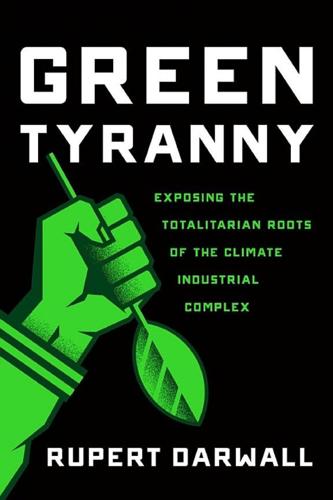
Green Tyranny: Exposing the Totalitarian Roots of the Climate Industrial Complex
by
Rupert Darwall
Published 2 Oct 2017
The search for new sources of energy is tied to the poisoning of the life environment.41 American biologist Garrett Hardin attacked capitalism from a different angle. In 1968, Hardin gave a lecture to the American Association for the Advancement of Science that became one of ecology’s canonical texts (Science lists over 26,000 citations). “The Tragedy of the Commons” takes a (hypothetical) example of open pasture leading to overgrazing. On the basis of this, Hardin asserted that freedom in a commons brings ruin to all. Adam Smith’s invisible hand had to be replaced by government coercion. It was theorizing without facts. As the Nobel economist Elinor Ostrom wrote in a 1999 critique, such a prescription was not supported by extensive research.
…
Helen Weaver), “Marcuse Defines His New Left Line,” New York Times, October 27, 1968. 41Herbert Marcuse, “Ecology and the Critique of Modern Society,” Capital Nature Socialism, March 1992, p. 33. 42Elinor Ostrom, Joanna Burger, Christopher B. Field, Richard B. Norgaard, and David Policansky, “Revisiting the Commons: Local Lessons, Global Challenges,” Science, Vol. 284, No. 5412 (April 9, 1999), pp. 278–282. 43Garrett Hardin, “The Tragedy of the Commons,” Science, Vol. 162, No. 3859 (December 13, 1968), pp. 1243–1248. 44Garrett Hardin, Biology: Its Principles and Implications (2nd ed., San Francisco, 1966), p. 706. 45Ibid., p. 707. 46Ibid., p. 706. 47Garrett Hardin, Living within Limits: Ecology, Economics and Population Taboos (New York and Oxford, 1993), p. 270. 48Garrett Hardin, Biology: Its Principles and Implications (2nd ed., San Francisco, 1966), p. 6. 49Ibid., p. 123. 50Ibid., p. 294. 51Ibid., p. 131. 52See, for example, Anna Bramwell, Blood and Soil: Richard Walter Darré and Hitler’s “Green Party” (Bourne End, 1985), pp. 49–50. 53Garrett Hardin, Biology: Its Principles and Implications (2nd ed., San Francisco, 1966), p. 6. 54Murray Bookchin, “Ecology and Revolutionary Thought” (1964), http://dwardmac.pitzer.edu/Anarchist_Archives/bookchin/ecologyandrev.html (accessed July 15, 2015). 55C.
…
Great Depression Greece Athens Green Party (France) Green Party (Germany) electoral performance of (1987) Frankfurt Conference (1979) greenhouse gas emissions power station Greenpeace Greenpeace Fund Gröna Vågon (Green Wave) Group of Seven (G7) Toronto Summit (1988) Grubb, Michael Gruhl, Herbert Plundering of a Planet, The Guevara, Che Guillaume, Günter Günther, Hans F. K. Habsburg Empire Hambler, Clive Hamilton, Alexander Federalist Papers, The Hampton, Keith Hardin, Garrett Living within Limits (1993) “Tragedy of the Commons, The” (1968) Harich, Wolfgang Communism Without Growth (1975) Hart, H.L.A. Hartkopf, Günter Hartnett-White, Kathleen Fueling Freedom Harvard University Haussleiter, August Hayden, Tom Hayek, Friedrich von Road to Serfdom, The Heidegger, Martin Held, David Helsinki Agreement on Security and Cooperation in Europe (1975) Hertgaard, Mark Hess, Rudolf Hicks, Stephen Explaining Post-Modernism Himmler, Heinrich Hirth, Lion Hitler, Adolf Mein Kampf rise to power (1933) Hockenos, Paul Hodel, Donald US Energy Secretary Hollande, François energy policies of Holliday, Steve Honnef, Hermann Hoover Institution Horkheimer, Max Horner, Christopher Huber, Peter Bottomless Well, The (2005) Hueper, Wilhelm Hume, David Humphrey, Herbert Hungary government of Hunter, Robert Huntford, Roland New Totalitarians, The (1971) Hüssy, Daniel Hustedt, Michaele Huxley, Aldous Brave New World hydro power hydrocarbons pricing of IG Farben Leuna facility IG Metall Industrial Revolution Institute for Social Research (Institut für Sozialforschung) Institute of Global Environment and Society Intel Corporation Intergovernmental Panel on Climate Change (IPCC) establishment of Fifth Assessment Report First Assessment Report Working Group III Intermediate-Range Nuclear Forces (INF) Treaty (1987) signing of International Council for Science (ICSU) International Energy Agency International Geosphere Biosphere Program (IGBP) International Meteorological Institute International Peace Coordination and Cooperation Network establishment of (1983) International Union for the Conservation of Nature Iraq Baghdad Operation Iraqi Freedom (2003–2011) al-Islam, Saif Islamic State (ISIS) Israel Tel Aviv Israel, Joachim Italy Bellagio Florence Milan Rome Ivanpah Solar Project Jackson, Lisa Japan Fukushima nuclear plant disaster (2011) Jay, Martin Jesuits John D. and Catherine T.
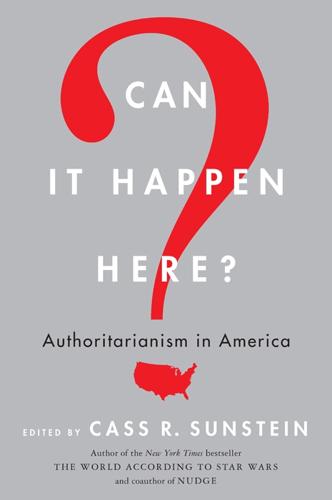
Can It Happen Here?: Authoritarianism in America
by
Cass R. Sunstein
Published 6 Mar 2018
Finally, social systems can suffer from collective action problems (Olson 1965; Schelling 1973) in which the outcome that everyone would prefer (e.g., clean air, pristine wilderness, reliable infrastructure, safe neighborhoods) fails because no one individual has the ability or incentive to provide it—a situation that is sometimes called a tragedy of the commons (Hardin 1968). Following Granovetter’s logic, the gravest danger of Trump’s recent decision to exit the Paris Climate Accord is not the direct impact that US noncompliance would have on global temperatures—although that could indeed be grave—but rather the second, third, and higher-order effects of the move.
…
Gilovich, Thomas, Dale Griffin, and Daniel Kahneman, eds. Heuristics and Biases: The Psychology of Intuitive Judgment. Cambridge, UK: Cambridge University Press, 2002. Granovetter, M. S. “Threshold Models of Collective Behavior.” American Journal of Sociology 83, no. 6 (1978): 1420–43. Hardin, Garrett. “The Tragedy of the Commons.” Science 162, no. 3859 (1968): 1243–48. Holmes, Richard. The Age of Wonder: How the Romantic Generation Discovered the Beauty and Terror of Science. New York: Vintage Books USA, 2010. Imbens, Guido W., and Donald B. Rubin. Causal Inferences in Statistics, Social, and Biomedical Science.
…
Adams, 378 Thai coup d’état of 2014, 142–43 Thatcher, Margaret, 83, 398 Third Wave Democracy, 141, 141 Thomas, Clarence, 320 Threshold effect, 343–44 Thrush, Glenn, 283–84 Tocqueville, Alexis de, 142, 236, 237, 263, 402, 403 Louis Bonaparte and, 284, 285, 289–92, 296, 299, 300, 307–10 Totalitarianism, 41, 43, 44, 45, 51 Tragedy of the commons, 345 Treaty Clause of the Constitution, 10 Trigger warnings, 241 Truman, Harry, 9, 78, 108, 441–42 Trump, Donald arts of distraction, 418–19 can-it-happen here question, x–xi commonsense posture of, 329–30, 333–34, 345–46, 358 Deep State leaks and, 121–27 executive orders, 40–41, 235, 369–70, 371–73, 380, 381 Louis Bonaparte compared with, 304–7 narcissistic megalomania of, 283–84, 304 policies, 265–68 as populist turncoat, 29–32 as symptom of constitutional rot, 27–29, 34 tactics of.
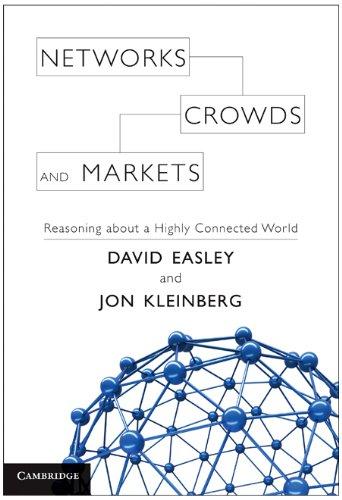
Networks, Crowds, and Markets: Reasoning About a Highly Connected World
by
David Easley
and
Jon Kleinberg
Published 15 Nov 2010
As we noted in the smoking example this is not plausible when many individuals are involved in the negotiation. Similarly, in the case of pollution, establishing marketable pollution rights is more likely to minimize transaction costs and lead to socially optimal outcomes. 24.2 The Tragedy of the Commons In a 1968 article in Science, entitled “The Tragedy of the Commons” [204], Garrett Hardin offered a compelling story about the inevitable “tragedy” of commonly shared resources. In his story there is a village commons on which any herdsman can freely graze his cattle.3 Hardin noted that inevitably the commons will be overused to the detriment of all the villagers.
…
If the goal of using the commons is to generate revenue from the cattle that graze there, then the socially optimal fraction of cattle on the commons is the value x∗ that maximizes the function f (x) · xN ; in our case, as we see from the figure, this maximum 3The term “commons” comes from the common use of a village green in Europe and the UK. Many old villages still have them, although generally not for use by cattle any more. 24.2. THE TRAGEDY OF THE COMMONS 791 Total Revenue Optimal utilization Over-utilization Fraction of population 0 c/2 c using commons Figure 24.1: In the Tragedy of the Commons, a freely shared resource can easily be overused unless some form of property rights are established. is achieved midway between the two points where the curve crosses the x-axis, at x∗ = c/2. Thus the maximum revenue is c c c2N f (x∗) · x∗N = c − · N = . 2 2 4 We analyzed a similar function in Chapter 17 to describe the maximum price that users would pay for a good with network effects when an x fraction of the population is using it.
…
. . . . . . . . . . . . . . . . 299 10.6 Advanced Material: A Proof of the Matching Theorem . . . . . . . . . . . . 300 10.7 Exercises . . . . . . . . . . . . . . . . . . . . . . . . . . . . . . . . . . . . . . 310 11 Network Models of Markets with Intermediaries 319 11.1 Price-Setting in Markets . . . . . . . . . . . . . . . . . . . . . . . . . . . . . 319 11.2 A Model of Trade on Networks . . . . . . . . . . . . . . . . . . . . . . . . . 323 11.3 Equilibria in Trading Networks . . . . . . . . . . . . . . . . . . . . . . . . . 330 11.4 Further Equilibrium Phenomena: Auctions and Ripple Effects . . . . . . . . 334 11.5 Social Welfare in Trading Networks . . . . . . . . . . . . . . . . . . . . . . . 338 11.6 Trader Profits . . . . . . . . . . . . . . . . . . . . . . . . . . . . . . . . . . . 339 11.7 Reflections on Trade with Intermediaries . . . . . . . . . . . . . . . . . . . . 342 11.8 Exercises . . . . . . . . . . . . . . . . . . . . . . . . . . . . . . . . . . . . . . 342 12 Bargaining and Power in Networks 347 12.1 Power in Social Networks . . . . . . . . . . . . . . . . . . . . . . . . . . . . . 347 12.2 Experimental Studies of Power and Exchange . . . . . . . . . . . . . . . . . 350 12.3 Results of Network Exchange Experiments . . . . . . . . . . . . . . . . . . . 352 12.4 A Connection to Buyer-Seller Networks . . . . . . . . . . . . . . . . . . . . . 356 12.5 Modeling Two-Person Interaction: The Nash Bargaining Solution . . . . . . 357 12.6 Modeling Two-Person Interaction: The Ultimatum Game . . . . . . . . . . . 360 12.7 Modeling Network Exchange: Stable Outcomes . . . . . . . . . . . . . . . . 362 12.8 Modeling Network Exchange: Balanced Outcomes . . . . . . . . . . . . . . . 366 12.9 Advanced Material: A Game-Theoretic Approach to Bargaining . . . . . . . 369 12.10Exercises . . . . . . . . . . . . . . . . . . . . . . . . . . . . . . . . . . . . . . 376 IV Information Networks and the World Wide Web 381 13 The Structure of the Web 383 13.1 The World Wide Web . . . . . . . . . . . . . . . . . . . . . . . . . . . . . . 384 13.2 Information Networks, Hypertext, and Associative Memory . . . . . . . . . . 386 13.3 The Web as a Directed Graph . . . . . . . . . . . . . . . . . . . . . . . . . . 394 13.4 The Bow-Tie Structure of the Web . . . . . . . . . . . . . . . . . . . . . . . 397 13.5 The Emergence of Web 2.0 . . . . . . . . . . . . . . . . . . . . . . . . . . . . 400 13.6 Exercises . . . . . . . . . . . . . . . . . . . . . . . . . . . . . . . . . . . . . . 403 6 CONTENTS 14 Link Analysis and Web Search 405 14.1 Searching the Web: The Problem of Ranking . . . . . . . . . . . . . . . . . . 405 14.2 Link Analysis using Hubs and Authorities . . . . . . . . . . . . . . . . . . . 407 14.3 PageRank . . . . . . . . . . . . . . . . . . . . . . . . . . . . . . . . . . . . . 414 14.4 Applying Link Analysis in Modern Web Search . . . . . . . . . . . . . . . . 420 14.5 Applications beyond the Web . . . . . . . . . . . . . . . . . . . . . . . . . . 423 14.6 Advanced Material: Spectral Analysis, Random Walks, and Web Search . . . 425 14.7 Exercises . . . . . . . . . . . . . . . . . . . . . . . . . . . . . . . . . . . . . . 437 15 Sponsored Search Markets 445 15.1 Advertising Tied to Search Behavior . . . . . . . . . . . . . . . . . . . . . . 445 15.2 Advertising as a Matching Market . . . . . . . . . . . . . . . . . . . . . . . . 448 15.3 Encouraging Truthful Bidding in Matching Markets: The VCG Principle . . 452 15.4 Analyzing the VCG Procedure: Truth-Telling as a Dominant Strategy . . . . 457 15.5 The Generalized Second Price Auction . . . . . . . . . . . . . . . . . . . . . 460 15.6 Equilibria of the Generalized Second Price Auction . . . . . . . . . . . . . . 464 15.7 Ad Quality . . . . . . . . . . . . . . . . . . . . . . . . . . . . . . . . . . . . 467 15.8 Complex Queries and Interactions Among Keywords . . . . . . . . . . . . . 469 15.9 Advanced Material: VCG Prices and the Market-Clearing Property . . . . . 470 15.10Exercises . . . . . . . . . . . . . . . . . . . . . . . . . . . . . . . . . . . . . . 486 V Network Dynamics: Population Models 489 16 Information Cascades 491 16.1 Following the Crowd . . . . . . . . . . . . . . . . . . . . . . . . . . . . . . . 491 16.2 A Simple Herding Experiment . . . . . . . . . . . . . . . . . . . . . . . . . . 493 16.3 Bayes’ Rule: A Model of Decision-Making Under Uncertainty . . . . . . . . . 497 16.4 Bayes’ Rule in the Herding Experiment . . . . . . . . . . . . . . . . . . . . . 502 16.5 A Simple, General Cascade Model . . . . . . . . . . . . . . . . . . . . . . . . 504 16.6 Sequential Decision-Making and Cascades . . . . . . . . . . . . . . . . . . . 508 16.7 Lessons from Cascades . . . . . . . . . . . . . . . . . . . . . . . . . . . . . . 511 16.8 Exercises . . . . . . . . . . . . . . . . . . . . . . . . . . . . . . . . . . . . . . 513 17 Network Effects 517 17.1 The Economy Without Network Effects . . . . . . . . . . . . . . . . . . . . . 518 17.2 The Economy with Network Effects . . . . . . . . . . . . . . . . . . . . . . . 522 17.3 Stability, Instability, and Tipping Points . . . . . . . . . . . . . . . . . . . . 525 17.4 A Dynamic View of the Market . . . . . . . . . . . . . . . . . . . . . . . . . 527 17.5 Industries with Network Goods . . . . . . . . . . . . . . . . . . . . . . . . . 534 17.6 Mixing Individual Effects with Population-Level Effects . . . . . . . . . . . . 536 17.7 Advanced Material: Negative Externalities and The El Farol Bar Problem . 541 17.8 Exercises . . . . . . . . . . . . . . . . . . . . . . . . . . . . . . . . . . . . . . 549 CONTENTS 7 18 Power Laws and Rich-Get-Richer Phenomena 553 18.1 Popularity as a Network Phenomenon . . . . . . . . . . . . . . . . . . . . . . 553 18.2 Power Laws . . . . . . . . . . . . . . . . . . . . . . . . . . . . . . . . . . . . 555 18.3 Rich-Get-Richer Models . . . . . . . . . . . . . . . . . . . . . . . . . . . . . 557 18.4 The Unpredictability of Rich-Get-Richer Effects . . . . . . . . . . . . . . . . 559 18.5 The Long Tail . . . . . . . . . . . . . . . . . . . . . . . . . . . . . . . . . . . 561 18.6 The Effect of Search Tools and Recommendation Systems . . . . . . . . . . . 564 18.7 Advanced Material: Analysis of Rich-Get-Richer Processes . . . . . . . . . . 565 18.8 Exercises . . . . . . . . . . . . . . . . . . . . . . . . . . . . . . . . . . . . . . 569 VI Network Dynamics: Structural Models 571 19 Cascading Behavior in Networks 573 19.1 Diffusion in Networks . . . . . . . . . . . . . . . . . . . . . . . . . . . . . . . 573 19.2 Modeling Diffusion through a Network . . . . . . . . . . . . . . . . . . . . . 575 19.3 Cascades and Clusters . . . . . . . . . . . . . . . . . . . . . . . . . . . . . . 583 19.4 Diffusion, Thresholds, and the Role of Weak Ties . . . . . . . . . . . . . . . 588 19.5 Extensions of the Basic Cascade Model . . . . . . . . . . . . . . . . . . . . . 590 19.6 Knowledge, Thresholds, and Collective Action . . . . . . . . . . . . . . . . . 593 19.7 Advanced Material: The Cascade Capacity . . . . . . . . . . . . . . . . . . . 597 19.8 Exercises . . . . . . . . . . . . . . . . . . . . . . . . . . . . . . . . . . . . . . 613 20 The Small-World Phenomenon 621 20.1 Six Degrees of Separation . . . . . . . . . . . . . . . . . . . . . . . . . . . . 621 20.2 Structure and Randomness . . . . . . . . . . . . . . . . . . . . . . . . . . . . 622 20.3 Decentralized Search . . . . . . . . . . . . . . . . . . . . . . . . . . . . . . . 626 20.4 Modeling the Process of Decentralized Search . . . . . . . . . . . . . . . . . 629 20.5 Empirical Analysis and Generalized Models . . . . . . . . . . . . . . . . . . 632 20.6 Core-Periphery Structures and Difficulties in Decentralized Search . . . . . . 638 20.7 Advanced Material: Analysis of Decentralized Search . . . . . . . . . . . . . 640 20.8 Exercises . . . . . . . . . . . . . . . . . . . . . . . . . . . . . . . . . . . . . . 652 21 Epidemics 655 21.1 Diseases and the Networks that Transmit Them . . . . . . . . . . . . . . . . 655 21.2 Branching Processes . . . . . . . . . . . . . . . . . . . . . . . . . . . . . . . 657 21.3 The SIR Epidemic Model . . . . . . . . . . . . . . . . . . . . . . . . . . . . . 660 21.4 The SIS Epidemic Model . . . . . . . . . . . . . . . . . . . . . . . . . . . . . 666 21.5 Synchronization . . . . . . . . . . . . . . . . . . . . . . . . . . . . . . . . . . 669 21.6 Transient Contacts and the Dangers of Concurrency . . . . . . . . . . . . . . 672 21.7 Genealogy, Genetic Inheritance, and Mitochondrial Eve . . . . . . . . . . . . 676 21.8 Advanced Material: Analysis of Branching and Coalescent Processes . . . . . 682 21.9 Exercises . . . . . . . . . . . . . . . . . . . . . . . . . . . . . . . . . . . . . . 695 8 CONTENTS VII Institutions and Aggregate Behavior 699 22 Markets and Information 701 22.1 Markets with Exogenous Events . . . . . . . . . . . . . . . . . . . . . . . . . 702 22.2 Horse Races, Betting, and Beliefs . . . . . . . . . . . . . . . . . . . . . . . . 704 22.3 Aggregate Beliefs and the “Wisdom of Crowds” . . . . . . . . . . . . . . . . 710 22.4 Prediction Markets and Stock Markets . . . . . . . . . . . . . . . . . . . . . 714 22.5 Markets with Endogenous Events . . . . . . . . . . . . . . . . . . . . . . . . 717 22.6 The Market for Lemons . . . . . . . . . . . . . . . . . . . . . . . . . . . . . 719 22.7 Asymmetric Information in Other Markets . . . . . . . . . . . . . . . . . . . 724 22.8 Signaling Quality . . . . . . . . . . . . . . . . . . . . . . . . . . . . . . . . . 728 22.9 Quality Uncertainty On-Line: Reputation Systems and Other Mechanisms . 729 22.10Advanced Material: Wealth Dynamics in Markets . . . . . . . . . . . . . . . 732 22.11Exercises . . . . . . . . . . . . . . . . . . . . . . . . . . . . . . . . . . . . . . 740 23 Voting 745 23.1 Voting for Group Decision-Making . . . . . . . . . . . . . . . . . . . . . . . 745 23.2 Individual Preferences . . . . . . . . . . . . . . . . . . . . . . . . . . . . . . 747 23.3 Voting Systems: Majority Rule . . . . . . . . . . . . . . . . . . . . . . . . . 750 23.4 Voting Systems: Positional Voting . . . . . . . . . . . . . . . . . . . . . . . . 755 23.5 Arrow’s Impossibility Theorem . . . . . . . . . . . . . . . . . . . . . . . . . 758 23.6 Single-Peaked Preferences and the Median Voter Theorem . . . . . . . . . . 760 23.7 Voting as a Form of Information Aggregation . . . . . . . . . . . . . . . . . . 766 23.8 Insincere Voting for Information Aggregation . . . . . . . . . . . . . . . . . . 768 23.9 Jury Decisions and the Unanimity Rule . . . . . . . . . . . . . . . . . . . . . 771 23.10Sequential Voting and the Relation to Information Cascades . . . . . . . . . 776 23.11Advanced Material: A Proof of Arrow’s Impossibility Theorem . . . . . . . . 777 23.12Exercises . . . . . . . . . . . . . . . . . . . . . . . . . . . . . . . . . . . . . . 782 24 Property Rights 785 24.1 Externalities and the Coase Theorem . . . . . . . . . . . . . . . . . . . . . . 785 24.2 The Tragedy of the Commons . . . . . . . . . . . . . . . . . . . . . . . . . . 790 24.3 Intellectual Property . . . . . . . . . . . . . . . . . . . . . . . . . . . . . . . 793 24.4 Exercises . . . . . . . . . . . . . . . . . . . . . . . . . . . . . . . . . . . . . . 796 Chapter 1 Overview Over the past decade there has been a growing public fascination with the complex “connectedness” of modern society.
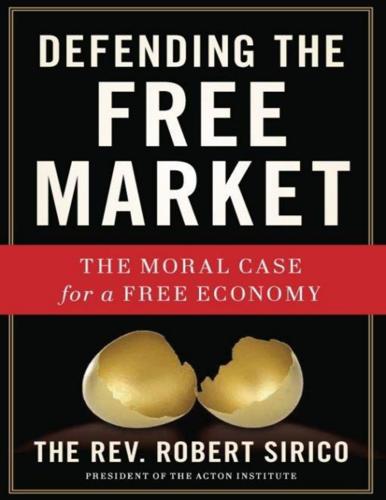
Defending the Free Market: The Moral Case for a Free Economy
by
Robert A. Sirico
Published 20 May 2012
Despite what the Marxist protesters I met in Nicaragua may have thought as they packed their duffle bags to go join the environmental movement in the United States, it isn’t socialism. In fact, it’s precisely those systems that fail to defend private property rights that are most inclined to abuse the earth. There’s a name for this in economics—“the tragedy of the commons.” Private property is the best preserver of creation, and no greater environmental spoilage has been witnessed than in the old socialist Eastern bloc countries, where private property was abolished. Indeed, the communist regime in China has also had a horrendous track record on environmental protection.
…
There is no more efficient, natural, and elegant way to encourage real conservation and progress at the same time. However—and this bears repeating—for prices to do their job, there must be a functional market and defined property rights. Where these institutions are not in place, what occurs is another instance of the tragedy of the commons. When nobody owns the resources in question but all are permitted to make use of them, people race to devour the resource in order to get as much as possible before it runs out. The incentive is to deplete rather than conserve. The plight of many endangered species can be understood in this way.
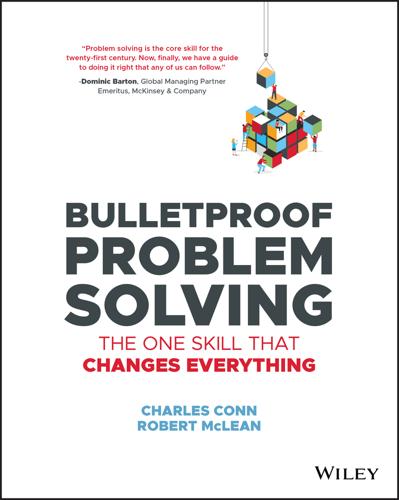
Bulletproof Problem Solving
by
Charles Conn
and
Robert McLean
Published 6 Mar 2019
But this work shows a large number of promising avenues to fight obesity that have a strong evidence base, and reasonable costs relative to the economic burdens this epidemic imposes on society. Overfishing: The Quintessential Wicked Problem Environmental degradation is one of the most pervasive wicked problems. The famous article by Garrett Hardin, “The Tragedy of the Commons,” written in 1968,10 influenced many to reach the view that so‐called common‐pool resources, such as public land, water, or fisheries, required either government intervention or private ownership to avoid overuse. Elinor Ostrom, winner of the Nobel Prize in economics, showed that there are solutions available to the problems of the commons, some of which are long‐standing arrangements among resource users that have elements of community management via norms, and elements that mimic private ownership via certain kinds of harvest rights.11 Let's look at an example of fisheries reform that employed clever problem solving to achieve much better outcomes.
…
Tie, et al., “Risk of Childhood Overweight or Obesity Associated with Excessive Weight Gain During Pregnancy: A Meta‐Analysis,” Archives of Gynecology and Obstetrics 289, no. 2 (2014): 247–257. 7 US data source provided by Professor Desiree Silva, the ORIGINS project at Joondalup Health Campus, Western Australia. 8 Submission 10 to Senate Select Enquiry into the Obesity Epidemic in Australia, July 2018. 9 Walk Economy, The Place Report (2016), 7. 10 Garrett Hardin, “The Tragedy of the Commons,” Science (December 13, 1968). 11 Elinor Ostrom, Governing the Commons (Cambridge University Press, 1990). 12 Oral communications, Chuck Cook and Charles Conn, August–October, 2017. 13 Mark Tercek and Jonathan Adams, Nature's Fortune (Island Press, 2015). 14 Morro Bay Commercial Fisheries. 2015 Economic Impact Report Working Waterfront Edition. 15 Morro Bay Commercial Fisheries. 2015 Economic Impact Report Working Waterfront Edition.
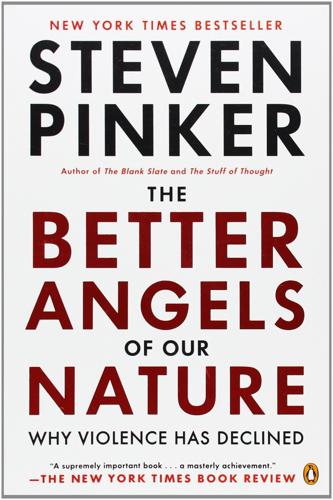
The Better Angels of Our Nature: Why Violence Has Declined
by
Steven Pinker
Published 24 Sep 2012
A game of attrition is mathematically equivalent to an auction in which the highest bidder wins the prize and both sides have to pay the loser’s low bid. And of course it can be analogized to a war in which the expenditure is reckoned in the lives of soldiers. The War of Attrition is one of those paradoxical scenarios in game theory (like the Prisoner’s Dilemma, the Tragedy of the Commons, and the Dollar Auction) in which a set of rational actors pursuing their interests end up worse off than if they had put their heads together and come to a collective and binding agreement. One might think that in an attrition game each side should do what bidders on eBay are advised to do: decide how much the contested resource is worth and bid only up to that limit.
…
The men do not live in all-boy treehouses in which no girls are allowed; they depend on women for sex, children, child-rearing, and the gathering or preparation of most of their food. Families that kill their daughters want there to be women around. They just want someone else to raise them. Female infanticide is a kind of social parasitism, a free rider problem, a genealogical tragedy of the commons.129 Free rider problems arise when no one owns a common resource, in this case, the pool of potential brides. In a free market in marriages in which parents wielded property rights, sons and daughters would be fungible, and neither sex would be favored across the board. If you really needed a fierce warrior or brawny field hand around the house, it shouldn’t matter whether you raised a son for the job or raised a daughter who would bring you a son-in-law.
…
But the best outcome for an individual is to stint on his own contribution and be a free rider on the profits from everyone else’s. The tragedy is that contributions will dwindle to zero and everyone ends up worse off. (The biologist Garrett Hardin proposed an identical scenario called the Tragedy of the Commons. Each farmer cannot resist grazing his own cow on the town commons, stripping it bare to everyone’s loss. Pollution, overfishing, and carbon emissions are equivalent real-life examples.)190 But if players have the opportunity to punish free riders, as if in revenge for their exploitation of the group, then the players have an incentive to contribute, and everyone profits.
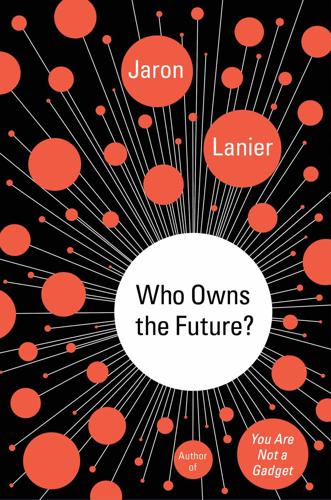
Who Owns the Future?
by
Jaron Lanier
Published 6 May 2013
If everyone were getting better options, wouldn’t everyone be doing better as well? *This isn’t quite the famous “tragedy of the commons.” That model of tragedy is based on the long-term futility of rational self-interest in certain poorly designed circumstances, and so bears a similarity to the problem of Siren Servers. The Sirenic Age is more a tragedy of the commotion, more mania than myopia. Information technology can cause things to move so fast that there’s a rush, a thrill that distracts. Garrett Hardin’s classic 1968 paper “The Tragedy of the Commons” explained how cows were allowed to overgraze on common property, while private property was well maintained.
…
M., 129–30, 261, 328 “Forum,” 214 Foucault, Michel, 308n 4chan, 335 4′33″ (Cage), 212 fractional reserve system, 33 Franco, Francisco, 159–60 freedom, 13–15, 32–33, 90–92, 277–78, 336 freelancing, 253–54 Free Print Shop, 228 “free rise,” 182–89, 355 free speech, 223, 225 free will, 166–68 “friction,” 179, 225, 230, 235, 354 Friendster, 180, 181 Fukuyama, Francis, 165, 189 fundamentalism, 131, 193–94 future: chaos in, 165–66, 273n, 331 economic analysis of, 1–3, 15, 22, 37, 38, 40–41, 42, 67, 122, 143, 148–52, 153, 155–56, 204, 208, 209, 236, 259, 274, 288, 298–99, 311, 362n, 363 humanistic economy for, 194, 209, 233–351 361–367 “humors” of, 124–40, 230 modern conception of, 123–40, 193–94, 255 natural basis of, 125, 127, 128–29 optimism about, 32–35, 45, 130, 138–40, 218, 230n, 295 politics of, 13–18, 22–25, 85, 122, 124–26, 128, 134–37, 199–234, 295–96, 342 technological trends in, 7–18, 21, 53–54, 60–61, 66–67, 85–86, 87, 97–98, 129–38, 157–58, 182, 188–90, 193–96, 217 utopian conception of, 13–18, 21, 30, 31, 37–38, 45–46, 96, 128, 130, 167, 205, 207, 265, 267, 270, 283, 290, 291, 308–9, 316 future-oriented money, 32–34, 35 Gadget, 186 Gallant, Jack, 111–12 games, 362, 363 Gates, Bill, 93 Gattaca, 130 Gawker, 118n Gelernter, David, 313 “general” machines, 158 General Motors, 56–57 general relativity theory, 167n Generation X, 346 genetic engineering, 130 genetics, 109–10, 130, 131, 146–47, 329, 366 genomics, 109–10, 146–47, 366 Germany, 45 Ghostery, 109 ghost suburbs, 296 Gibson, William, 137, 309 Gizmodo, 117–18 Global Business Network (GBN), 214–15 global climate change, 17, 32, 53, 132, 133, 134, 203, 266, 295, 296–97, 301–2, 331 global economy, 33n, 153–56, 173, 201, 214–15, 280 global village, 201 God, 29, 30–31, 139 Golden Goblet, 121, 121, 175, 328 golden rule, 335–36 gold standard, 34 Google, 14, 15, 19, 69, 74, 75–76, 90, 94, 106, 110, 120, 128, 153, 154, 170, 171, 174, 176, 180, 181–82, 188, 191, 192, 193, 199–200, 201, 209, 210, 217, 225, 227, 246, 249, 265, 267, 272, 278, 280, 286, 305n, 307, 309–10, 322, 325, 330, 344, 348, 352 Google Goggles, 309–10 Googleplex, 199–200 goops, 85–89, 99 Gore, Al, 80n Graeber, David, 30n granularity, 277 graph-shaped networks, 241, 242–43 Great Britain, 200 Great Depression, 69–70, 75, 135, 299 Great Recession, 31, 54, 60, 76–77, 204, 311, 336–37 Greece, 22–25, 45, 125 Grigorov, Mario, 267 guitars, 154 guns, 310–11 Gurdjieff, George, 215, 216 gurus, 211–13 hackers, 14, 82, 265, 306–7, 345–46 Hardin, Garrett, 66n Hartmann, Thom, 33n Hayek, Friedrich, 204 health care, 66–67, 95, 98–99, 100, 132–33, 153–54, 249, 253, 258, 337, 346 health insurance, 66–67, 95, 98–99, 100, 153–54 Hearts and Minds, 353n heart surgery, 11–13, 17, 18, 157–58 heat, 56 hedge funds, 69, 106, 137 Hephaestus, 22, 23 high-dimensional problems, 145 high-frequency trading, 56, 76–78, 154 highways, 79–80, 345 Hinduism, 214 Hippocrates, 124n Hiroshima bombing (1945), 127 Hollywood, 204, 206, 242 holographic radiation, 11 Homebrew Club, 228 homelessness, 151 homeopathy, 131–32 Homer, 23, 55 Honan, Mat, 82 housing market, 33, 46, 49–52, 61, 78, 95–96, 99, 193, 224, 227, 239, 245, 255, 274n, 289n, 296, 298, 300, 301 HTML, 227, 230 Huffington Post, 176, 180, 189 human agency, 8–21, 50–52, 85, 88, 91, 124–40, 144, 165–66, 175–78, 191–92, 193, 217, 253–64, 274–75, 283–85, 305–6, 328, 341–51, 358–60, 361, 362, 365–67 humanistic information economy, 194, 209, 233–351 361–367 human reproduction, 131 humors (tropes), 124–40, 157, 170, 230 hunter-gatherer societies, 131, 261–62 hyperefficient markets, 39, 42–43 hypermedia, 224–30, 245 hyper-unemployment, 7–8 hypotheses, 113, 128, 151 IBM, 191 identity, 14–15, 82, 124, 173–74, 175, 248–51, 283–90, 305, 306, 307, 315–16, 319–21 identity theft, 82, 315–16 illusions, 55, 110n, 120–21, 135, 154–56, 195, 257 immigration, 91, 97, 346 immortality, 193, 218, 253, 263–64, 325–31, 367 imports, 70 income levels, 10, 46–47, 50–54, 152, 178, 270–71, 287–88, 291–94, 338–39, 365 incrementalism, 239–40 indentured servitude, 33n, 158 India, 54, 211–13 industrialization, 49, 83, 85–89, 123, 132, 154, 343 infant mortality rates, 17, 134 infinity, 55–56 inflation, 32, 33–34 information: age of, 15–17, 42, 166, 241 ambiguity of, 41, 53–54, 155–56 asymmetry of, 54–55, 61–66, 118, 188, 203, 246–48, 285–88, 291–92, 310 behavior influenced by, 32, 121, 131, 173–74, 286–87 collection of, 61–62, 108–9 context of, 143–44, 178, 188–89, 223–24, 225, 245–46, 247, 248–51, 338, 356–57, 360 correlations in, 75–76, 114–15, 192, 274–75 for decision-making, 63–64, 184, 266, 269–75, 284n digital networks for, see digital networks duplication of, 50–52, 61, 74, 78, 88, 223–30, 239–40, 253–64, 277, 317–24, 335, 349 economic impact of, 1–3, 8–9, 15–17, 18, 19–20, 21, 35, 60–61, 92–97, 118, 185, 188, 201, 207, 209, 241–43, 245–46, 246–48, 256–58, 263, 283–87, 291–303, 331, 361–67 in education, 92–97 encrypted, 14–15, 175, 239–40, 305–8, 345 false, 119–21, 186, 275n, 287–88, 299–300 filters for, 119–20, 200, 225, 356–57 free, 7–9, 15–16, 50–52, 61, 74, 78, 88, 214, 223–30, 239–40, 246, 253–64, 277, 317–24, 335, 349 history of, 29–31 human agency in, 22–25, 69–70, 120–21, 122, 190–91 interpretation of, 29n, 114–15, 116, 120–21, 129–32, 154, 158, 178, 183, 184, 188–89 investment, 59–60, 179–85 life cycle of, 175–76 patterns in, 178, 183, 184, 188–89 privacy of, see privacy provenance of, 245–46, 247, 338 sampling of, 71–72, 191, 221, 224–26, 259 shared, 50–52, 61, 74, 78, 88, 100, 223–30, 239–40, 253–64, 277, 317–24, 335, 349 signals in, 76–78, 148, 293–94 storage of, 29, 167n, 184–85; see also cloud processors and storage; servers superior, 61–66, 114, 128, 143, 171, 246–48 technology of, 7, 32–35, 49, 66n, 71–72, 109, 110, 116, 120, 125n, 126, 135, 136, 254, 312–16, 317 transparency of, 63–66, 74–78, 118, 190–91, 306–7 two-way links in, 1–2, 227, 245, 289 value of, 1–3, 15–16, 20, 210, 235–43, 257–58, 259, 261–63, 271–75, 321–24, 358–60 see also big data; data infrastructure, 79–80, 87, 179, 201, 290, 345 initial public offerings (IPOs), 103 ink, 87, 331 Inner Directeds, 215 Instagram, 2, 53 instant prices, 272, 275, 288, 320 insurance industry, 44, 56, 60, 66–67, 95, 98–99, 100, 153–54, 203, 306 intellectual property, 44, 47, 49, 60, 61, 96, 102, 183, 204, 205–10, 223, 224–26, 236, 239–40, 246, 253–64 intelligence agencies, 56, 61, 199–200, 291, 346 intelligence tests, 39, 40 interest rates, 81 Internet: advertising on, 14, 20, 24, 42, 66, 81, 107, 109, 114, 129, 154, 169–74, 177, 182, 207, 227, 242, 266–67, 275, 286, 291, 322–24, 347–48, 354, 355 anonymity of, 172, 248–51, 283–90 culture of, 13–15, 25 development of, 69, 74, 79–80, 89, 129–30, 159, 162, 190–96, 223, 228 economic impact of, 1–2, 18, 19–20, 24, 31, 43, 60–66, 79–82, 117, 136–37, 169–74, 181, 186 employment and, 2, 7–8, 56–57, 60, 71–74, 79, 117, 123, 135, 149, 178, 201, 257–58 file sharing on, 50–52, 61, 74, 78, 88, 100, 223–30, 239–40, 253–64, 277, 317–24, 335, 349 free products and services of, 7n, 10, 60–61, 73, 81, 82, 90, 94–96, 97, 128, 154, 176, 183, 187, 201, 205–10, 234, 246–48, 253–64, 283–88, 289, 308–9, 317–24, 337–38, 348–50, 366 human contributions to, 19–21, 128, 129–30, 191–92, 253–64 identity in, 14–15, 82, 173–74, 175, 283–90, 315–16 investment in, 117–20, 181 legal issues in, 63, 79–82, 204, 206, 318–19 licensing agreements for, 79–82 as network, 2–3, 9, 11, 12, 14, 15, 16, 17, 19–21, 31, 49, 50–51, 53, 54–55, 56, 57, 75, 92, 129–30, 143–48, 228–29, 259, 286–87, 308–9 political aspect of, 13–15, 205–10 search engines for, 51, 60, 70, 81, 120, 191, 267, 289, 293; see also Google security of, 14–15, 175, 239–40, 305–8, 345 surveillance of, 1–2, 11, 14, 50–51, 64, 71–72, 99, 108–9, 114–15, 120–21, 152, 177n, 199–200, 201, 206–7, 234–35, 246, 272, 291, 305, 309–11, 315, 316, 317, 319–24 transparency of, 63–66, 176, 205–6, 278, 291, 308–9, 316, 336 websites on, 80, 170, 200, 201, 343 Internet2, 69 Internet service providers (ISPs), 171–72 Interstate Highway System, 79–80, 345 “In-valid,” 130 inventors, 117–20 investment, financial, 45, 50, 59–67, 74–80, 115, 116–20, 155, 179–85, 208, 218, 257, 258, 277–78, 298, 301, 348, 350 Invisible Hand humor, 126, 128 IP addresses, 248 iPads, 267 Iran, 199, 200 irony, 130 Islam, 184 Italy, 133 Jacquard programmable looms, 23n “jailbreaking,” 103–4 Japan, 85, 97, 98, 133 Jeopardy, 191 Jeremijenko, Natalie, 302 jingles, 267 jobs, see employment Jobs, Steve, 93, 166n, 192, 358 JOBS Act (2012), 117n journalism, 92, 94 Kapital, Das (Marx), 136 Keynesianism, 38, 151–52, 204, 209, 274, 288 Khan Academy, 94 Kickstarter, 117–20, 186–87, 343 Kindle, 352 Kinect, 89n, 265 “Kirk’s Wager,” 139 Klout, 365 Kodak, 2, 53 Kottke, Dan, 211 KPFA, 136 Kurzweil, Ray, 127, 325, 327 Kushner, Tony, 165, 189 LaBerge, Stephen, 162 labor, human, 85, 86, 87, 88, 99–100, 257–58, 292 labor unions, 44, 47–48, 49, 96, 239, 240 Laffer curve, 149–51, 150, 152 Las Vegas, Nev., 296, 298 lawyers, 98–99, 100, 136, 184, 318–19 leadership, 341–51 legacy prices, 272–75, 288 legal issues, 49, 63, 74–82, 98–99, 100, 104–5, 108, 136, 184, 204, 206, 318–19 Lehman Brothers, 188 lemonade stands, 79–82 “lemons,” 118–19 Lennon, John, 211, 213 levees, economic, 43–45, 46, 47, 48, 49–50, 52, 92, 94, 96, 98, 108, 171, 176n, 224–25, 239–43, 253–54, 263, 345 leveraged mortgages, 49–50, 61, 227, 245, 289n, 296 liberal arts, 97 liberalism, 135–36, 148, 152, 202, 204, 208, 235, 236, 251, 253, 256, 265, 293, 350 libertarianism, 14, 34, 80, 202, 208, 210, 262, 321 liberty, 13–15, 32–33, 90–92, 277–78, 336 licensing agreements, 79–82 “Lifestreams” (Gelernter), 313 Lights in the Tunnel, The (Ford), 56n Linux, 206, 253, 291, 344 litigation, 98–99, 100, 104–5, 108, 184 loans, 32–33, 42, 43, 74, 151–52, 306 local advantages, 64, 94–95, 143–44, 153–56, 173, 203, 280 Local/Global Flip, 153–56, 173, 280 locked-in software, 172–73, 182, 273–74 logical copies, 223 Long-Term Capital Management, 49, 74–75 looms, 22, 23n, 24 loopholes, tax, 77 lotteries, 338–39 lucid dreaming, 162 Luddites, 135, 136 lyres, 22, 23n, 24 machines, 19–20, 86, 92, 123, 129–30, 158, 261, 309–11, 328 see also computers “Machine Stops, The” (Forster), 129–30, 261, 328 machine translations, 19–20 machine vision, 309–11 McMillen, Keith, 117 magic, 110, 115, 151, 178, 216, 338 Malthus, Thomas, 132, 134 Malthusian humor, 125, 127, 132–33 management, 49 manufacturing sector, 49, 85–89, 99, 123, 154, 343 market economies, see economies, market marketing, 211–13, 266–67, 306, 346 “Markets for Lemons” problem, 118–19 Markoff, John, 213 marriage, 167–68, 274–75, 286 Marxism, 15, 22, 37–38, 48, 136–37, 262 as humor, 126 mash-ups, 191, 221, 224–26, 259 Maslow, Abraham, 260, 315 Massachusetts Institute of Technology (MIT), 75, 93, 94, 96–97, 157–58, 184 mass media, 7, 66, 86, 109, 120, 135, 136, 185–86, 191, 216, 267 material extinction, 125 materialism, 125n, 195 mathematics, 11, 20, 40–41, 70, 71–72, 75–78, 116, 148, 155, 161, 189n, 273n see also statistics Matrix, The, 130, 137, 155 Maxwell, James Clerk, 55 Maxwell’s Demon, 55–56 mechanicals, 49, 51n Mechanical Turk, 177–78, 185, 187, 349 Medicaid, 99 medicine, 11–13, 17, 18, 54, 66–67, 97–106, 131, 132–33, 134, 150, 157–58, 325, 346, 363, 366–67 Meetings with Remarkable Men (Gurdjieff), 215 mega-dossiers, 60 memes, 124 Memex, 221n memories, 131, 312–13, 314 meta-analysis, 112 metaphysics, 12, 127, 139, 193–95 Metcalf’s Law, 169n, 350 Mexico City, 159–62 microfilm, 221n microorganisms, 162 micropayments, 20, 226, 274–75, 286–87, 317, 337–38, 365 Microsoft, 19, 89, 265 Middle Ages, 190 middle class, 2, 3, 9, 11, 16–17, 37–38, 40, 42–45, 47, 48, 49, 50, 51, 60, 74, 79, 91, 92, 95, 98, 171, 205, 208, 210, 224–25, 239–43, 246, 253–54, 259, 262, 263, 280, 291–94, 331, 341n, 344, 345, 347, 354 milling machines, 86 mind reading, 111 Minority Report, 130, 310 Minsky, Marvin, 94, 157–58, 217, 326, 330–31 mission statements, 154–55 Mixed (Augmented) Reality, 312–13, 314, 315 mobile phones, 34n, 39, 85, 87, 162, 172, 182n, 192, 229, 269n, 273, 314, 315, 331 models, economic, 40–41, 148–52, 153, 155–56 modernity, 123–40, 193–94, 255 molds, 86 monetization, 172, 176n, 185, 186, 207, 210, 241–43, 255–56, 258, 260–61, 263, 298, 331, 338, 344–45 money, 3, 21, 29–35, 86, 108, 124, 148, 152, 154, 155, 158, 172, 185, 241–43, 278–79, 284–85, 289, 364 monocultures, 94 monopolies, 60, 65–66, 169–74, 181–82, 187–88, 190, 202, 326, 350 Moondust, 362n Moore’s Law, 9–18, 20, 153, 274–75, 288 morality, 29–34, 35, 42, 50–52, 54, 71–74, 188, 194–95, 252–64, 335–36 Morlocks, 137 morning-after pill, 104 morphing, 162 mortality, 193, 218, 253, 263–64, 325–31, 367 mortgages, 33, 46, 49–52, 61, 78, 95–96, 99, 224, 227, 239, 245, 255, 274n, 289n, 296, 300 motivation, 7–18, 85–86, 97–98, 216 motivational speakers, 216 movies, 111–12, 130, 137, 165, 192, 193, 204, 206, 256, 261–62, 277–78, 310 Mozart, Wolfgang Amadeus, 23n MRI, 111n music industry, 11, 18, 22, 23–24, 42, 47–51, 54, 61, 66, 74, 78, 86, 88, 89, 92, 94, 95–96, 97, 129, 132, 134–35, 154, 157, 159–62, 186–87, 192, 206–7, 224, 227, 239, 253, 266–67, 281, 318, 347, 353, 354, 355, 357 Myspace, 180 Nancarrow, Conlon, 159–62 Nancarrow, Yoko, 161 nanopayments, 20, 226, 274–75, 286–87, 317, 337–38, 365 nanorobots, 11, 12, 17 nanotechnology, 11, 12, 17, 87, 162 Napster, 92 narcissism, 153–56, 188, 201 narratives, 165–66, 199 National Security Agency (NSA), 199–200 natural medicine, 131 Nelson, Ted, 128, 221, 228, 245, 349–50 Nelsonian systems, 221–30, 335 Nelson’s humor, 128 Netflix, 192, 223 “net neutrality,” 172 networked cameras, 309–11, 319 networks, see digital networks neutrinos, 110n New Age, 211–17 Newmark, Craig, 177n New Mexico, 159, 203 newspapers, 109, 135, 177n, 225, 284, 285n New York, N.Y., 75, 91, 266–67 New York Times, 109 Nobel Prize, 40, 118, 143n nodes, network, 156, 227, 230, 241–43, 350 “no free lunch” principle, 55–56, 59–60 nondeterministic music, 23n nonlinear solutions, 149–50 nonprofit share sites, 59n, 94–95 nostalgia, 129–32 NRO, 199–200 nuclear power, 133 nuclear weapons, 127, 296 nursing, 97–100, 123, 296n nursing homes, 97–100, 269 Obama, Barack, 79, 100 “Obamacare,” 100n obsolescence, 89, 95 oil resources, 43, 133 online stores, 171 Ono, Yoko, 212 ontologies, 124n, 196 open-source applications, 206, 207, 272, 310–11 optical illusions, 121 optimism, 32–35, 45, 130, 138–40, 218, 230n, 295 optimization, 144–47, 148, 153, 154–55, 167, 202, 203 Oracle, 265 Orbitz, 63, 64, 65 organ donors, 190, 191 ouroboros, 154 outcomes, economic, 40–41, 144–45 outsourcing, 177–78, 185 Owens, Buck, 256 packet switching, 228–29 Palmer, Amanda, 186–87 Pandora, 192 panopticons, 308 papacy, 190 paper money, 34n parallel computers, 147–48, 149, 151 paranoia, 309 Parrish, Maxfield, 214 particle interactions, 196 party machines, 202 Pascal, Blaise, 132, 139 Pascal’s Wager, 139 passwords, 307, 309 “past-oriented money,” 29–31, 35, 284–85 patterns, information, 178, 183, 184, 188–89 Paul, Ron, 33n Pauli exclusion principle, 181, 202 PayPal, 60, 93, 326 peasants, 565 pensions, 95, 99 Perestroika (Kushner), 165 “perfect investments,” 59–67, 77–78 performances, musical, 47–48, 51, 186–87, 253 perpetual motion, 55 Persian Gulf, 86 personal computers (PCs), 158, 182n, 214, 223, 229 personal information systems, 110, 312–16, 317 Pfizer, 265 pharmaceuticals industry, 66–67, 100–106, 123, 136, 203 philanthropy, 117 photography, 53, 89n, 92, 94, 309–11, 318, 319, 321 photo-sharing services, 53 physical trades, 292 physicians, 66–67 physics, 88, 153n, 167n Picasso, Pablo, 108 Pinterest, 180–81, 183 Pirate Party, 49, 199, 206, 226, 253, 284, 318 placebos, 112 placement fees, 184 player pianos, 160–61 plutocracy, 48, 291–94, 355 police, 246, 310, 311, 319–21, 335 politics, 13–18, 21, 22–25, 47–48, 85, 122, 124–26, 128, 134–37, 149–51, 155, 167, 199–234, 295–96, 342 see also conservatism; liberalism; libertarianism Ponzi schemes, 48 Popper, Karl, 189n popular culture, 111–12, 130, 137–38, 139, 159 “populating the stack,” 273 population, 17, 34n, 86, 97–100, 123, 125, 132, 133, 269, 296n, 325–26, 346 poverty, 37–38, 42, 44, 53–54, 93–94, 137, 148, 167, 190, 194, 253, 256, 263, 290, 291–92 power, personal, 13–15, 53, 60, 62–63, 86, 114, 116, 120, 122, 158, 166, 172–73, 175, 190, 199, 204, 207, 208, 278–79, 290, 291, 302–3, 308–9, 314, 319, 326, 344, 360 Presley, Elvis, 211 Priceline, 65 pricing strategies, 1–2, 43, 60–66, 72–74, 145, 147–48, 158, 169–74, 226, 261, 272–75, 289, 317–24, 331, 337–38 printers, 90, 99, 154, 162, 212, 269, 310–11, 316, 331, 347, 348, 349 privacy, 1–2, 11, 13–15, 25, 50–51, 64, 99, 108–9, 114–15, 120–21, 152, 177n, 199–200, 201, 204, 206–7, 234–35, 246, 272, 291, 305, 309–13, 314, 315–16, 317, 319–24 privacy rights, 13–15, 25, 204, 305, 312–13, 314, 315–16, 321–22 product design and development, 85–89, 117–20, 128, 136–37, 145, 154, 236 productivity, 7, 56–57, 134–35 profit margins, 59n, 71–72, 76–78, 94–95, 116, 177n, 178, 179, 207, 258, 274–75, 321–22 progress, 9–18, 20, 21, 37, 43, 48, 57, 88, 98, 123, 124–40, 130–37, 256–57, 267, 325–31, 341–42 promotions, 62 property values, 52 proprietary hardware, 172 provenance, 245–46, 247, 338 pseudo-asceticism, 211–12 public libraries, 293 public roads, 79–80 publishers, 62n, 92, 182, 277–78, 281, 347, 352–60 punishing vs. rewarding network effects, 169–74, 182, 183 quants, 75–76 quantum field theory, 167n, 195 QuNeo, 117, 118, 119 Rabois, Keith, 185 “race to the bottom,” 178 radiant risk, 61–63, 118–19, 120, 156, 183–84 Ragnarok, 30 railroads, 43, 172 Rand, Ayn, 167, 204 randomness, 143 rationality, 144 Reagan, Ronald, 149 real estate, 33, 46, 49–52, 61, 78, 95–96, 99, 193, 224, 227, 239, 245, 255, 274n, 289n, 296, 298, 300, 301 reality, 55–56, 59–60, 124n, 127–28, 154–56, 161, 165–68, 194–95, 203–4, 216–17, 295–303, 364–65 see also Virtual Reality (VR) reason, 195–96 recessions, economic, 31, 54, 60, 76–77, 79, 151–52, 167, 204, 311, 336–37 record labels, 347 recycling, 88, 89 Reddit, 118n, 186, 254 reductionism, 184 regulation, economic, 37–38, 44, 45–46, 49–50, 54, 56, 69–70, 77–78, 266n, 274, 299–300, 311, 321–22, 350–51 relativity theory, 167n religion, 124–25, 126, 131, 139, 190, 193–95, 211–17, 293, 300n, 326 remote computers, 11–12 rents, 144 Republican Party, 79, 202 research and development, 40–45, 85–89, 117–20, 128, 136–37, 145, 154, 215, 229–30, 236 retail sector, 69, 70–74, 95–96, 169–74, 272, 349–51, 355–56 retirement, 49, 150 revenue growth plans, 173n revenues, 149, 149, 150, 151, 173n, 225, 234–35, 242, 347–48 reversible computers, 143n revolutions, 199, 291, 331 rhythm, 159–62 Rich Dad, Poor Dad (Kiyosaki), 46 risk, 54, 55, 57, 59–63, 71–72, 85, 117, 118–19, 120, 156, 170–71, 179, 183–84, 188, 242, 277–81, 284, 337, 350 externalization of, 59n, 117, 277–81 risk aversion, 188 risk pools, 277–81, 284 risk radiation, 61–63, 118–19, 120, 156, 183–84 robo call centers, 177n robotic cars, 90–92 robotics, robots, 11, 12, 17, 23, 42, 55, 85–86, 90–92, 97–100, 111, 129, 135–36, 155, 157, 162, 260, 261, 269, 296n, 342, 359–60 Roman Empire, 24–25 root nodes, 241 Rousseau, Jean-Jacques, 129 Rousseau humor, 126, 129, 130–31 routers, 171–72 royalties, 47, 240, 254, 263–64, 323, 338 Rubin, Edgar, 121 rupture, 66–67 salaries, 10, 46–47, 50–54, 152, 178, 270–71, 287–88, 291–94, 338–39, 365 sampling, 71–72, 191, 221, 224–26, 259 San Francisco, University of, 190 satellites, 110 savings, 49, 72–74 scalable solutions, 47 scams, 119–21, 186, 275n, 287–88, 299–300 scanned books, 192, 193 SceneTap, 108n Schmidt, Eric, 305n, 352 Schwartz, Peter, 214 science fiction, 18, 126–27, 136, 137–38, 139, 193, 230n, 309, 356n search engines, 51, 60, 70, 81, 120, 191, 267, 289, 293 Second Life, 270, 343 Secret, The (Byrne), 216 securitization, 76–78, 99, 289n security, 14–15, 175, 239–40, 305–8, 345 self-actualization, 211–17 self-driving vehicles, 90–92, 98, 311, 343, 367 servants, 22 servers, 12n, 15, 31, 53–57, 71–72, 95–96, 143–44, 171, 180, 183, 206, 245, 358 see also Siren Servers “Sexy Sadie,” 213 Shakur, Tupac, 329 Shelley, Mary, 327 Short History of Progress, A (Wright), 132 “shrinking markets,” 66–67 shuttles, 22, 23n, 24 signal-processing algorithms, 76–78, 148 silicon chips, 10, 86–87 Silicon Valley, 12, 13, 14, 21, 34n, 56, 59, 60, 66–67, 70, 71, 75–76, 80, 93, 96–97, 100, 102, 108n, 125n, 132, 136, 154, 157, 162, 170, 179–89, 192, 193, 200, 207, 210, 211–18, 228, 230, 233, 258, 275n, 294, 299–300, 325–31, 345, 349, 352, 354–58 singularity, 22–25, 125, 215, 217, 327–28, 366, 367 Singularity University, 193, 325, 327–28 Sirenic Age, 66n, 354 Siren Servers, 53–57, 59, 61–64, 65, 66n, 69–78, 82, 91–99, 114–19, 143–48, 154–56, 166–89, 191, 200, 201, 203, 210n, 216, 235, 246–50, 258, 259, 269, 271, 272, 280, 285, 289, 293–94, 298, 301, 302–3, 307–10, 314–23, 326, 336–51, 354, 365, 366 Siri, 95 skilled labor, 99–100 Skout, 280n Skype, 95, 129 slavery, 22, 23, 33n Sleeper, 130 small businesses, 173 smartphones, 34n, 39, 162, 172, 192, 269n, 273 Smith, Adam, 121, 126 Smolin, Lee, 148n social contract, 20, 49, 247, 284, 288, 335, 336 social engineering, 112–13, 190–91 socialism, 14, 128, 254, 257, 341n social mobility, 66, 97, 292–94 social networks, 18, 51, 56, 60, 70, 81, 89, 107–9, 113, 114, 129, 167–68, 172–73, 179, 180, 190, 199, 200–201, 202, 204, 227, 241, 242–43, 259, 267, 269n, 274–75, 280n, 286, 307–8, 317, 336, 337, 343, 349, 358, 365–66 see also Facebook social safety nets, 10, 44, 54, 202, 251, 293 Social Security, 251, 345 software, 7, 9, 11, 14, 17, 68, 86, 99, 100–101, 128, 129, 147, 154, 155, 165, 172–73, 177–78, 182, 192, 234, 236, 241–42, 258, 262, 273–74, 283, 331, 347, 357 software-mediated technology, 7, 11, 14, 86, 100–101, 165, 234, 236, 258, 347 South Korea, 133 Soviet Union, 70 “space elevator pitch,” 233, 342, 361 space travel, 233, 266 Spain, 159–60 spam, 178, 275n spending levels, 287–88 spirituality, 126, 211–17, 325–31, 364 spreadsheet programs, 230 “spy data tax,” 234–35 Square, 185 Stalin, Joseph, 125n Stanford Research Institute (SRI), 215 Stanford University, 60, 75, 90, 95, 97, 101, 102, 103, 162, 325 Starr, Ringo, 256 Star Trek, 138, 139, 230n startup companies, 39, 60, 69, 93–94, 108n, 124n, 136, 179–89, 265, 274n, 279–80, 309–10, 326, 341, 343–45, 348, 352, 355 starvation, 123 Star Wars, 137 star (winner-take-all) system, 38–43, 50, 54–55, 204, 243, 256–57, 263, 329–30 statistics, 11, 20, 71–72, 75–78, 90–91, 93, 110n, 114–15, 186, 192 “stickiness,” 170, 171 stimulus, economic, 151–52 stoplights, 90 Strangelove humor, 127 student debt, 92, 95 “Study 27,” 160 “Study 36,” 160 Sumer, 29 supergoop, 85–89 supernatural phenomena, 55, 124–25, 127, 132, 192, 194–95, 300 supply chain, 70–72, 174, 187 Supreme Court, U.S., 104–5 surgery, 11–13, 17, 18, 98, 157–58, 363 surveillance, 1–2, 11, 14, 50–51, 64, 71–72, 99, 108–9, 114–15, 120–21, 152, 177n, 199–200, 201, 206–7, 234–35, 246, 272, 291, 305, 309–11, 315, 316, 317, 319–24 Surviving Progress, 132 sustainable economies, 235–37, 285–87 Sutherland, Ivan, 221 swarms, 99, 109 synthesizers, 160 synthetic biology, 162 tablets, 85, 86, 87, 88, 113, 162, 229 Tahrir Square, 95 Tamagotchis, 98 target ads, 170 taxation, 44, 45, 49, 52, 60, 74–75, 77, 82, 149, 149, 150, 151, 202, 210, 234–35, 263, 273, 289–90 taxis, 44, 91–92, 239, 240, 266–67, 269, 273, 311 Teamsters, 91 TechCrunch, 189 tech fixes, 295–96 technical schools, 96–97 technologists (“techies”), 9–10, 15–16, 45, 47–48, 66–67, 88, 122, 124, 131–32, 134, 139–40, 157–62, 165–66, 178, 193–94, 295–98, 307, 309, 325–31, 341, 342, 356n technology: author’s experience in, 47–48, 62n, 69–72, 93–94, 114, 130, 131–32, 153, 158–62, 178, 206–7, 228, 265, 266–67, 309–10, 325, 328, 343, 352–53, 362n, 364, 365n, 366 bio-, 11–13, 17, 18, 109–10, 162, 330–31 chaos and, 165–66, 273n, 331 collusion in, 65–66, 72, 169–74, 255, 350–51 complexity of, 53–54 costs of, 8, 18, 72–74, 87n, 136–37, 170–71, 176–77, 184–85 creepiness of, 305–24 cultural impact of, 8–9, 21, 23–25, 53, 130, 135–40 development and emergence of, 7–18, 21, 53–54, 60–61, 66–67, 85–86, 87, 97–98, 129–38, 157–58, 182, 188–90, 193–96, 217 digital, 2–3, 7–8, 15–16, 18, 31, 40, 43, 50–51, 132, 208 economic impact of, 1–3, 15–18, 29–30, 37, 40, 53–54, 60–66, 71–74, 79–110, 124, 134–37, 161, 162, 169–77, 181–82, 183, 184–85, 218, 254, 277–78, 298, 335–39, 341–51, 357–58 educational, 92–97 efficiency of, 90, 118, 191 employment in, 56–57, 60, 71–74, 79, 123, 135, 178 engineering for, 113–14, 123–24, 192, 194, 217, 218, 326 essential vs. worthless, 11–12 failure of, 188–89 fear of (technophobia), 129–32, 134–38 freedom as issue in, 32–33, 90–92, 277–78, 336 government influence in, 158, 199, 205–6, 234–35, 240, 246, 248–51, 307, 317, 341, 345–46, 350–51 human agency and, 8–21, 50–52, 85, 88, 91, 124–40, 144, 165–66, 175–78, 191–92, 193, 217, 253–64, 274–75, 283–85, 305–6, 328, 341–51, 358–60, 361, 362, 365–67 ideas for, 123, 124, 158, 188–89, 225, 245–46, 286–87, 299, 358–60 industrial, 49, 83, 85–89, 123, 132, 154, 343 information, 7, 32–35, 49, 66n, 71–72, 109, 110, 116, 120, 125n, 126, 135, 136, 254, 312–16, 317 investment in, 66, 181, 183, 184, 218, 277–78, 298, 348 limitations of, 157–62, 196, 222 monopolies for, 60, 65–66, 169–74, 181–82, 187–88, 190, 202, 326, 350 morality and, 50–51, 72, 73–74, 188, 194–95, 262, 335–36 motivation and, 7–18, 85–86, 97–98, 216 nano-, 11, 12, 17, 162 new vs. old, 20–21 obsolescence of, 89, 97 political impact of, 13–18, 22–25, 85, 122, 124–26, 128, 134–37, 199–234, 295–96, 342 progress in, 9–18, 20, 21, 37, 43, 48, 57, 88, 98, 123, 124–40, 130–37, 256–57, 267, 325–31, 341–42 resources for, 55–56, 157–58 rupture as concept in, 66–67 scams in, 119–21, 186, 275n, 287–88, 299–300 singularity of, 22–25, 125, 215, 217, 327–28, 366, 367 social impact of, 9–21, 124–40, 167n, 187, 280–81, 310–11 software-mediated, 7, 11, 14, 86, 100–101, 165, 234, 236, 258, 347 startup companies in, 39, 60, 69, 93–94, 108n, 124n, 136, 179–89, 265, 274n, 279–80, 309–10, 326, 341, 343–45, 348, 352, 355 utopian, 13–18, 21, 31, 37–38, 45–46, 96, 128, 130, 167, 205, 207, 265, 267, 270, 283, 290, 291, 308–9, 316 see also specific technologies technophobia, 129–32, 134–38 television, 86, 185–86, 191, 216, 267 temperature, 56, 145 Ten Commandments, 300n Terminator, The, 137 terrorism, 133, 200 Tesla, Nikola, 327 Texas, 203 text, 162, 352–60 textile industry, 22, 23n, 24, 135 theocracy, 194–95 Theocracy humor, 124–25 thermodynamics, 88, 143n Thiel, Peter, 60, 93, 326 thought experiments, 55, 139 thought schemas, 13 3D printers, 7, 85–89, 90, 99, 154, 162, 212, 269, 310–11, 316, 331, 347, 348, 349 Thrun, Sebastian, 94 Tibet, 214 Time Machine, The (Wells), 127, 137, 261, 331 topology, network, 241–43, 246 touchscreens, 86 tourism, 79 Toyota Prius, 302 tracking services, 109, 120–21, 122 trade, 29 traffic, 90–92, 314 “tragedy of the commons,” 66n Transformers, 98 translation services, 19–20, 182, 191, 195, 261, 262, 284, 338 transparency, 63–66, 74–78, 118, 176, 190–91, 205–6, 278, 291, 306–9, 316, 336 transportation, 79–80, 87, 90–92, 123, 258 travel agents, 64 Travelocity, 65 travel sites, 63, 64, 65, 181, 279–80 tree-shaped networks, 241–42, 243, 246 tribal dramas, 126 trickle-down effect, 148–49, 204 triumphalism, 128, 157–62 tropes (humors), 124–40, 157, 170, 230 trust, 32–34, 35, 42, 51–52 Turing, Alan, 127–28, 134 Turing’s humor, 127–28, 191–94 Turing Test, 330 Twitter, 128, 173n, 180, 182, 188, 199, 200n, 201, 204, 245, 258, 259, 349, 365n 2001: A Space Odyssey, 137 two-way links, 1–2, 227, 245, 289 underemployment, 257–58 unemployment, 7–8, 22, 79, 85–106, 117, 151–52, 234, 257–58, 321–22, 331, 343 “unintentional manipulation,” 144 United States, 25, 45, 54, 79–80, 86, 138, 199–204 universities, 92–97 upper class, 45, 48 used car market, 118–19 user interface, 362–63, 364 utopianism, 13–18, 21, 30, 31, 37–38, 45–46, 96, 128, 130, 167, 205, 207, 265, 267, 270, 283, 290, 291, 308–9, 316 value, economic, 21, 33–35, 52, 61, 64–67, 73n, 108, 283–90, 299–300, 321–22, 364 value, information, 1–3, 15–16, 20, 210, 235–43, 257–58, 259, 261–63, 271–75, 321–24, 358–60 Values, Attitudes, and Lifestyles (VALS), 215 variables, 149–50 vendors, 71–74 venture capital, 66, 181, 218, 277–78, 298, 348 videos, 60, 100, 162, 185–86, 204, 223, 225, 226, 239, 240, 242, 245, 277, 287, 329, 335–36, 349, 354, 356 Vietnam War, 353n vinyl records, 89 viral videos, 185–86 Virtual Reality (VR), 12, 47–48, 127, 129, 132, 158, 162, 214, 283–85, 312–13, 314, 315, 325, 343, 356, 362n viruses, 132–33 visibility, 184, 185–86, 234, 355 visual cognition, 111–12 VitaBop, 100–106, 284n vitamins, 100–106 Voice, The, 185–86 “voodoo economics,” 149 voting, 122, 202–4, 249 Wachowski, Lana, 165 Wall Street, 49, 70, 76–77, 181, 184, 234, 317, 331, 350 Wal-Mart, 69, 70–74, 89, 174, 187, 201 Warhol, Andy, 108 War of the Worlds, The (Wells), 137 water supplies, 17, 18 Watts, Alan, 211–12 Wave, 189 wealth: aggregate or concentration of, 9, 42–43, 53, 60, 61, 74–75, 96, 97, 108, 115, 148, 157–58, 166, 175, 201, 202, 208, 234, 278–79, 298, 305, 335, 355, 360 creation of, 32, 33–34, 46–47, 50–51, 57, 62–63, 79, 92, 96, 120, 148–49, 210, 241–43, 270–75, 291–94, 338–39, 349 inequalities and redistribution of, 20, 37–45, 65–66, 92, 97, 144, 254, 256–57, 274–75, 286–87, 290–94, 298, 299–300 see also income levels weather forecasting, 110, 120, 150 weaving, 22, 23n, 24 webcams, 99, 245 websites, 80, 170, 200, 201, 343 Wells, H.
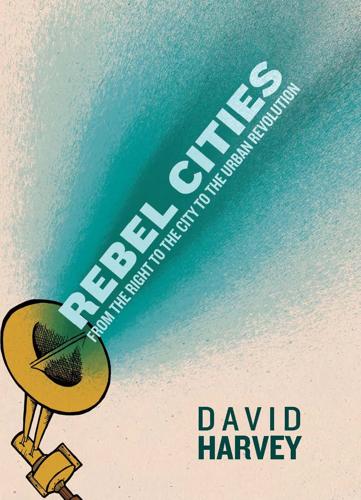
Rebel Cities: From the Right to the City to the Urban Revolution
by
David Harvey
Published 3 Apr 2012
L ike the right to the city, the idea sounds catchy and intriguing, but what could it possibly mean? And how does this relate to the long history of 68 R E B E L C I T I ES arguments and debates concerning the creation and utilization of common property resources? I h ave lost count of the number of times I have seen G arrett Hardin's classic article on "The Tragedy of the Commons" c ited as an irrefuta ble argument for the superior efficiency of private property rights with respect to land and resource uses, and therefore an irrefutable justifi cation for privatization. 1 Th is m istaken reading in part derives from Hardin's appeal to the metaphor of cattle, under the private ownership of several individuals concerned to m aximize their individual utility, pas tured on a piece of common land.
…
See also Occupy Wall Street movement Thomas, Brinley, 42-43, 44 Watts, Los Angeles, 5 1 Thompson, E. P. , 1 32 Webber, Jeffrey, 1 4 1 -43, 1 5 1 Tiananmen Square, 1 1 7 West Bank, Palestine, 1 1 7 Tiebout, Charles, 82 Williamsburg, New York City, 78 Tokyo, 88 Wine Advocate, 98 Works Progress Admin istration Toronto, 1 37 Toxteth, Liverpool, 1 56 "lhe Tragedy of the Commons" ( Hardin), 68 Troubled Asset Relief Program (TARP), 58 (WPA), 52 World Bank, 75, 1 1 9, 1 37 Wo rld Developm ent Report (2009), 28-29, 34, 46, 50, 1 69n4 World Social Forum , xii, I l l , 1 1 9 I N D EX World Urban Forum (20 10), 1 37 Young, I ris, 1 52 World War I I , 9, 49, 50 Yunus, Muham mad, 2 1 World Wide Fund for Nature, 70 WPA.
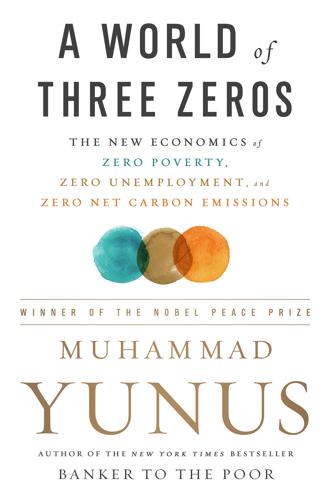
A World of Three Zeros: The New Economics of Zero Poverty, Zero Unemployment, and Zero Carbon Emissions
by
Muhammad Yunus
Published 25 Sep 2017
Another important role for good governance lies in the area of environmental protection. Free, fair markets alone cannot prevent businesses and other organizations—including government agencies themselves—from polluting the air and water, wasting natural resources, and making the catastrophic problem of global climate change even worse. The well-known dilemma called the tragedy of the commons explains why. Environmental protection is a case in which individual interests and group interests sharply diverge. Any single person or organization—a for-profit company, let’s say—may benefit from hurting the environment: by cutting corners on carbon emission rules, for example, or by catching an excessive supply of an endangered fish, using plastic in packaging and other consumer products like straws and water bottles, and so on.
…
George Valley Organic Farm, 135 startups, 30, 161 Sundarbans, 99 sustainability climate change and, 125 consumption and, 128 deforestation and, 126 development with, 125 fishing and, 126 human society and, 127 meaning of, 125 sustainable development, 124–132 Sustainable Development Goals (SDGs) breakthrough of, 124 development of, 124 goals of, 127–129 new civilization and, 178 new economy and, 132–141 NGOs and, 131 targets of, 129 United Nations and, 131 See also SDG Advocates Syngenta Foundation for Sustainable Agriculture, 191 Tachibana, Taro, 73 tax laws, 240, 241 technology, 148 ACRE and, 192 agriculture and, 190 Dalio, M., and, 179 Doctor in a Box and, 197 elections and, 202 entrepreneurs and, 40 environmental problems and, 96 globalization and, 176 good governance and, 212 Grameen Phone and, 175 human creativity and, 266 Internet of Things and, 156 marketplace gap of, 177 Mrittikā and, 194 new civilization and, 173 poor people and, 177, 190–198 privet sector and, 212 renewable energy sources and, 99 social change and, 174, 190 social direction for, 178 voting and, 203 See also automation; data usage terrestrial ecosystem, 129 The Theory of Moral Sentiments (Smith), 260–261, 262 TI. See Transparency International tragedy of the commons, 218–219 Transparency International (TI), 208 travel, 241, 242 Trump, Donald, 20, 21, 84 trust-based banks, 13, 233, 235 Udruzene, 134, 135 Uganda, 117 entrepreneurs and, 36 environmental problems and, 109–115 GEM and, 35 Golden Bees and, 37 pollution and, 110 ultrapriviledged class, 5–6 unemployment automation and, 72 in Bosnia, 133 in economic system, 70–71 entrepreneurs and, 91–92 inequality and, 68 myths of, 71 Nobin Udyokta program and, 73–81 poverty and, 68 problems of, 69–71 share transfer fee and, 82 solution for, 73–74 UNFCCC.
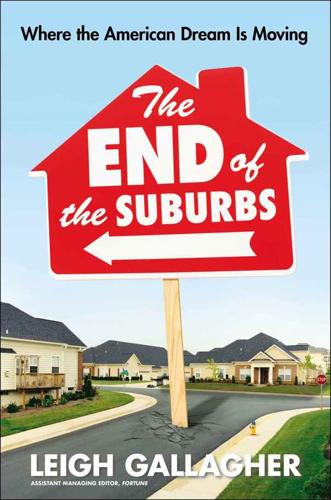
The End of the Suburbs: Where the American Dream Is Moving
by
Leigh Gallagher
Published 26 Jun 2013
“This is like pennies compared to the dollars we’ve spent on the way we’ve arranged ourselves across the landscape.” Marohn and his friends are not the only ones warning about the fix we’ve put ourselves in. In 2010 the financial analyst Meredith Whitney wrote a now-famous report called The Tragedy of the Commons, whose title was taken from the economic principle that individuals will act on their own self-interest and deplete a shared resource for their own benefit, even if that goes against the long-term common good. In her report, Whitney said states and municipalities were on the verge of collapse thanks in part to irresponsible spending on growth.
…
See New Urbanism; Walkable communities varieties of, 9, 13, 15–16 Suburbs, The (album), 51, 79 Suburgatory (TV series), 91 Susanka, Sarah, 137, 139–140 Swank, Larry, 7 Target, 18, 172 Taxation mortgage interest deduction, 35, 61, 74–75 property, limitations for community, 58–59 Taylor, Kate, 51 Thompson, Boyce, 6 Tinyhouseblog.com, 138 Tiny House movement, 138 Toll, Bob, 68–70 Toll Brothers future projects, 198, 207–8 outer suburban development by, 68–69 urban developments by, 6, 18, 23, 163–66, 172, 190 walkable community by, 129 Top Tier Towns, 204 Touraine, New York City, 164–65 Tragedy of the Commons, The (Whitney), 59 Transit-oriented development, 19 Transportation automobile dependence. See Automobiles; Commuting costs, and household budget, 100–101 mode split, 82 and suburban development, 29–34, 62 Treehugger.com, 139 Tribeca, New York City, 17, 151, 169 Tucker, Raymond, 48 Tumlin, Jeffrey, 93 Twitter, 51 Unleashed (store), 18 Ur (Mesopotamia), 27 Urbanized suburbs.
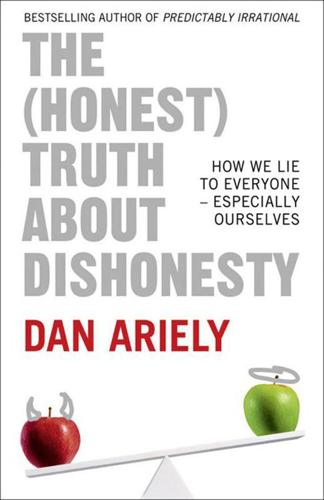
The (Honest) Truth About Dishonesty: How We Lie to Everyone, Especially Ourselves
by
Dan Ariely
Published 27 Jun 2012
She told me about a problem she’d had in her house and how a little ethical reminder helped her solve it. She was living near campus with several other people—none of whom knew one another. When the cleaning people came each weekend, they left several rolls of toilet paper in each of the two bathrooms. However, by Monday all the toilet paper would be gone. It was a classic tragedy-of-the-commons situation: because some people hoarded the toilet paper and took more than their fair share, the public resource was destroyed for everyone else. After reading about the Ten Commandments experiment on my blog, Rhonda put a note in one of the bathrooms asking people not to remove toilet paper, as it was a shared commodity.
…
Kennedy Center for the Performing Arts, Washington, D.C., 6–7 Kirk, Ulrich, 75 Kreisler, Jeff, 13–14 Kubrick, Stanley, 150–51 Landis, Floyd, 155 Larez, Thomas, 152 law firms, overstating of billable hours in, 35–37 lawyers, conflicts of interest and, 93 Lay, Kenneth, 2 left brain, 164–65 Legend of Bagger Vance, The, 55–56 Less Stress, More Success (Jones), 136 Levav, Jonathan, 102 lobbyists, governmental, 77–78, 94 locks, as protection from mostly honest people, 38 Loewenstein, George, 89 Logic of Life, The (Harford), 3–4 long-term relationships with service providers, 228–31 Lord of the Rings, The (Tolkien), 223 loyalty, in illegal businesses, 138–39 Luce, Mary Frances, 229, 259–60 lying: acceptable rate of, 28–29 dressing above one’s station as, 120–21 to ourselves, 141–61; see also self-deception pathological, brain structure and, 168–70 publicly, capacity for self-deception and, 153–54 white lies and, 159–61 Madoff, Bernie, 173, 192 Maharabani, Eynav, 21, 24–26, 258 Marvel, William, 152 Marx, Groucho, 1 matrix task, 15–23 aggressive cheaters and, 239 cheating one step removed from money in (token condition), 33–34 with close supervision, 226–27 with collaborative element, 225–28 concerns about standing out and, 22–23 control and shredder conditions in, 17–18 cultural differences and, 240–43 ego depletion and, 106 fake products and, 125–26 honor codes and, 41–44 infectious nature of cheating and, 197–204 with moral reminders, 39–44, 46–47 self-paying condition in, 20, 21 sign-at-the-top vs. sign-at-the-bottom conditions in, 46–47 task in, 15–16 tax reporting and, 45–47 varying amount of money in, 18–20 varying probability of getting caught in, 20–22 Mazar, Nina, 15, 18, 31–32, 39, 45, 194, 261 McGwire, Mark, 156 McKenzie, Scott, 57, 263 Mead, Nicole, 104, 261 medical device reps, 80 medical schools, pharmaceutical companies’ influence in, 82 medicine, conflicts of interest in, 71–74, 78–82, 92–94 see also pharma reps memento mori, 247 Middle Tennessee State University, 44–45 MIT: Charm School at, 153 honor code study at, 41–42, 43 matrix task study at, 15–21 money: directly stealing, 32–33 distance between our actions and, 34–37 monitoring or watching, as disincentive to cheating, 223–25, 227–28, 234–35 Montague, Read, 75 Moore, Don, 89 moral considerations, 4, 13, 14 amount of cheating and, 23, 27 cognitive flexibility and, 27–28, 186–87, 242 moral reminders, 39–52, 238, 248, 249–50 decline in effectiveness of, over time, 44n honor codes and, 41–45 infectious nature of cheating and, 203–4 signing forms at top and, 46–51 Ten Commandments and, 39–40, 41, 44, 250 mortgage-backed securities, 83–85 Mulligan, David, 60 mulligans, 60–61, 63–64 “Myth of the King of Gyges” (Plato), 223 Nettle, Daniel, 224 New York Times, 82, 150 Nisbett, Richard, 163–64 nonmonetary objects, dishonesty in presence of, 32–34 stealing Coca-Cola vs. money and, 32–33 token condition and, 33–34 Norton, Michael, 123, 127, 131, 145, 260–61 not-for-profits, 232n Odysseus, 98 Opus Dei, 250–52 Ozdenoren, Emre, 114–15 Palmer, Arnold, 62 parking tickets, 4 parole hearings, judges’ exhaustion and, 102–3 pharmaceutical companies, 93 impact in academia of, 82 pharma reps, 78–82 “dine-and-dash” strategy of, 79 doctors’ lectures and, 81 small gifts and free drug samples from, 78 Picasso, Pablo, 184 Pizarro, David, 250, 258 plagiarism, 213 cultural differences and, 242–43 Plato, 223 Pogue, David, 178–80 political action committees (PACs), 208–10 political organizations, 232n politicians, cheating among bankers vs., 243 postal service, U.S., 188 Prada bags: fake, 119, 122 real, given to author, 118–19, 122, 140 Predictably Irrational (Ariely), illegal downloads of, 137–39 preferences, creating logical-sounding reasons for, 163–64 prefrontal cortex, 169–70 Princeton University, honor code study at, 42–44 probabilistic discounting, 194 prostitutes, external signaling of, 120 prudence, principle of, 220n punishment, 13, 52 cost-benefit analysis and, 5, 13, 14 self-cleansing, in resetting rituals, 250–52 Rather, Dan, 152 rationalization of selfish desires: of Austen characters, 154–55 fake products and, 134–35 fudge factor and, 27–28, 53, 237 link between creativity and dishonesty and, 172 revenge and, 177–84 tax returns and, 27–28 see also self-justification reason vs. desire, 97–106 cognitive load and, 99–100 ego depletion and, 100–106 exhaustion and, 97–98 “Recollections of the Swindle Family” (Cary), 246 religion: reminders of moral obligations and, 45, 249–50; see also Ten Commandments resetting rituals and, 249, 250–52 reminders: of made-up achievements, 153–54, 238 see also moral reminders resetting rituals, 249, 250–54 to change views on stealing, 252–53 self-inflicted pain and, 249, 250–52 Truth and Reconciliation Commission in South Africa and, 253–54 résumés, fake credentials in, 135–36, 153 revenge, 177–84 annoyance at bad service and, 177–80 author’s tale of, during European travels, 180–84 Rich, Frank, 150 right brain, 164–65 Roberts, Gilbert, 224 Rogers, Will, 55, 57 Rome, ancient: memento mori reminders in, 247 sumptuary laws in, 120 Romeo and Juliet, 98 Rowley, Coleen, 215 Salant, Steve, 115 Salling, John, 152 Sarbanes-Oxley Act, 234 Schrödinger’s cat, 62–63 Schwartz, Janet, 80, 229, 259 Schweitzer, Maurice, 104, 260 scorekeeping, dishonesty in, 61–64 self-deception, 141–61 author’s personal experience of, 143–44 cheating on IQ-like tests and, 145–49, 151, 153–54, 156–57 “I knew it all along” feeling and, 149 Kubrick imitator and, 150–51 negative aspects of, 158–59 people with higher tendency for, 151 positive aspects of, 158 reducing tendency for, 156–57 reminders of made-up achievements and, 153–54, 238 repeating lies over and over and, 142–43 selfishness of Austen characters and, 154–55 in sports, 155–56 veterans’ false claims and, 152 white lies and, 159–61 self-flagellation, 250–52 self-image: amount of cheating and, 23, 27 fudge factor and, 27–29 self-indulgence, rational, 115–16 selfishness, see rationalization of selfish desires self-justification: creation of logical-sounding explanations and, 163–65 link between creativity and dishonesty and, 172 mulligans and, 60–61 repositioning golf ball and, 61 see also rationalization of selfish desires self-signaling, 122–26 basic idea of, 122 charitable acts and, 122–23 fake products and, 123–26, 135 what-the-hell effect and, 127–31 Sense and Sensibility (Austen), 154–55 service providers, long-term relationships with, 228–31 service records, exaggerated, 152–53 Sessions, Pete, 209 Sex and the City, 103–4 Shakespeare, William, 184 shareholder value, maximizing of, 208n Shiv, Baba, 99–100 shopping malls, susceptibility to temptation in, 113 Shu, Lisa, 45, 259 signing forms at top vs. bottom, 46–51 insurance claims and, 49–51 tax reporting and, 46–49 Silverman, Dan, 114–15 Simple Model of Rational Crime (SMORC), 4–6, 11–29, 53, 201, 238, 248 author’s alternative theory to, 27–28; see also fudge factor theory guest lecturer’s satirical presentation on, 11–14 life in hypothetical world based on, 5–6 matrix task and, 15–23 tested in real-life situations, 23–26 sincerity, principle of, 220n Skilling, Jeffrey, 2 social norms, infectious nature of cheating and, 195, 201–3, 205–7, 209 social utility, collaborative cheating and, 222–23 South Africa, Truth and Reconciliation Commission in, 253–54 split-brain patients, 164 sports, self-deception in, 155–56 stealing: Coca-Cola vs. money, 32–33 joke about, 31 resetting mechanisms and, 252–53 from workplace, 31, 33, 193 steroids, in sports, 155–56 storytelling: creation of logical-sounding explanations and, 163–65 reinterpreting information in self-serving way in, 187–88 self-deception and, 142–43 Stroop task, 109–12 opportunity to cheat on, 111–12 Suckers, Swindlers, and an Ambivalent State (Balleisen), 188 sumptuary laws, 120 sunshine policies, 88, 91–92 suspiciousness of others: fake products and, 131–34 self-deception and, 158–59 Tali (research assistant), 21, 24–26 Taliban, 152 Talmud, 45 Tang, Thomas, 44 tax returns, 45–49 IRS reaction to author’s findings on, 47–49 rationalization of exaggerated deductions in, 27–28 signing at top vs. bottom, 46–49 technological frontiers, potential for dishonesty and, 188 temptation, resisting of: cognitive load and, 99–100 dieting and, 98, 109, 112–13, 114–15 ego depletion and, 100–116 evenings as difficult time for, 102 physical exhaustion and, 97–98 removing oneself from tempting situations and, 108–11, 115–16 in shopping malls, 113 Ten Commandments, 39–40, 41, 44, 204, 250 This American Life, 6–7 Three Men in a Boat (to Say Nothing of the Dog) (Jerome), 28 Time, 215 token experiment, 33–34 Tolkien, J. R. R., 223 Tour de France, 155 tragedy-of-the-commons situations, 40–41 travel reimbursements, 46, 47 Truth and Reconciliation Commission, 253–54 Turkey, cheating in, 242 University of California, Los Angeles (UCLA), 39–40 University of Newcastle, 224 University of Pittsburgh, 204–7 University of Waterloo, Canada, 155 Upside of Irrationality, The (Ariely), 177 U.S.
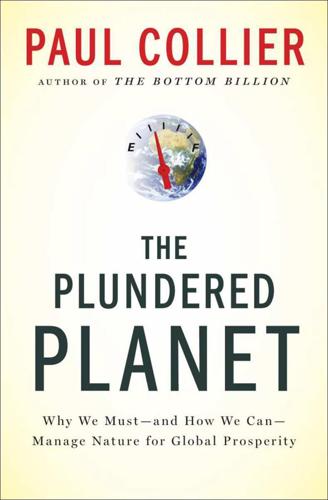
The Plundered Planet: Why We Must--And How We Can--Manage Nature for Global Prosperity
by
Paul Collier
Published 10 May 2010
By the time that the stock of fish is reduced to the point at which mankind cannot find any more, the fish cannot find each other: reproduction ceases. Until recently the wild forests of the Amazon had natural protection because the wood and the land were not sufficiently valuable to warrant being cut down. No more. The government opened up the land for private farming. Economists refer to this as the “common pool” problem, or the “tragedy of the commons.” In the absence of private property rights all natural assets are liable to be plundered unless defended by local social conventions, and such conventions do not usually survive rapid social change. The plunder of renewable assets is even more of a disaster than that of nonrenewables. When a renewable asset becomes extinct not just some future generation, but every future generation is deprived of its rights.
…
See also specific assets, including coal and oil Sudan, 122, 218 sustainability and economic growth, 98 and extinction, 154, 161 and fisheries, 154, 161, 164, 168–71 of nonrenewable natural assets, 98, 100–102, 154 and Permanent Income, 103 and preservation of nature, 98 of renewable natural assets, 154, 155, 156, 161 Tanzania, 166 taxation and asymmetric information, 88–90 of carbon emissions, 185–88, 192, 198, 199, 241 and corruption, 51–52, 88 in decision chain, 127 excess-profits tax, 88–89 and extraction revenues, 84 of fisheries, 169–70 in low-income countries, 100 low-tax commitments, 85–87, 117 pan-European tax, 27 redistributive taxation, 24, 27, 28, 168 and rents and rent-seeking, 52, 88–89, 127, 143 and time-inconsistency, 85 and volatility in revenues, 117 technology and bottom billion countries, 5 and democratic power, 235 and discovery process, 68 fickleness of, 5 and fishing, 164–65 and modern agriculture, 216–17 and nature, 4 and ocean floors, 167 and oil demand, 106, 194 and prosperity, 4 and resource scarcity, 229 territorial waters, 162, 167 terrorism, 129–30 “Testing the Neo-con Agenda” (Collier and Hoeffer), 49 Thailand, 135 threshold effects, 60 tidal power, 181, 182 timber in Thailand, 135 time-inconsistency, 71–74, 85 Toxic Assets Recovery Program, 176 trade trade negotiations, 237 trade restrictions, 193, 194 trade wars, 237 tragedy of the commons, 161 transparency, 80–82, 94, 122–25, 129–30 Transparency International, 129 trees and custody principle, 157–59 of Eritrea, 158–59 of Haiti, 19 as natural assets, 160 See also forests Ukraine, 218 uncertainty, 18–19 unilateralism, 238 United Arab Emirates, 218 United Nations, 168–71, 218, 238, 240 United Nations Food and Agriculture Organization (FAO), 215, 216 United Nations Industrial Development Organization, 184 United Nations Security Council, 238 United States anti-Americanism, 220, 225 and carbon emissions, 189–90, 195 and finders-keepers rule of assets, 46 and social cost of energy, 183 United States Congress, 176–77, 193 universalism, 24, 26, 27–28, 29, 31 urbanization, 209, 211, 217–18 Utilitarianism about, 23–25 and climate change, 200–201 and custody principle, 112 as ethical framework, 10, 25, 26 limitations of, 27 and Permanent Income, 102–3 and universalism, 24, 26, 27–28, 29, 31 value of natural assets, 83–84 vehicles, 182–83 Venables, Tony, xiv, 59, 111, 139 veto points, 135–36 violence and food crises, 211 Wall Street Journal, 128–29 Warnholz, Jean-Louis, 132 Welsh National Party, 30 West, American, 19, 21 West Africa, 94 wind power, 181, 182 worker productivity, 139 World Bank and Cameron, 81 Doing Business survey, 145 and ethanol subsidies, 224 evaluation of development projects, 141–42 and prospecting aid, 76 and subsoil assets, 20, 54, 65, 66 and Zambia, 87 world financial markets, 117, 128 World Food Programme, 170–71, 210–11 world interest rate, 104, 155 World Trade Organization, 164, 193, 219, 237 Wrong, Michaela, 159 Yamani, Ahmed Zaki, 106 Zambia and agriculture, 209 and copper mining, 5, 32, 64, 143 and private investment, 143 prospecting in, 76 and state-owned copper company, 93 and taxation, 86–87, 89 Zedillo, Ernesto, 6, 233–34 Zeufack, Albert, 81, 82 Zimbabwe, 199, 218
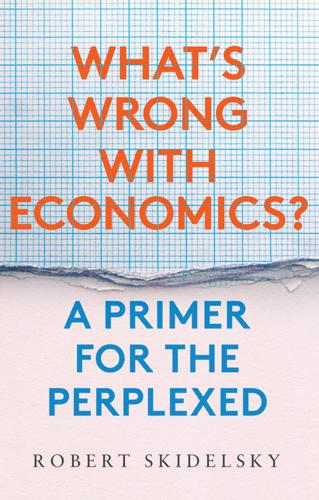
What's Wrong With Economics: A Primer for the Perplexed
by
Robert Skidelsky
Published 3 Mar 2020
Polanyi’s thesis, in a nutshell, is that in pre-modern societies markets could only exist on the edges of the economy, since the ‘factors’ of production – labour, land, and capital – were not marketable. Their transformation into ‘fictitious commodities’, as much subject to buying and selling as food, clothes, and furniture, was the result of state power. It was essential to establish ‘national’ economies, so that rulers could mobilise their resources for wars. The ‘tragedy of the commons’ – the private enclosure of previously shared land in seventeenth- and eighteenth-century England – was a notable signpost on the road to creating the first national market. However, the attempt to create a ‘market society’ produced a reaction, as society resisted incorporation into the market economy.
…
North then goes on to explain how the modernisation of property rights in Britain set it on its growth path, by making it profitable for ‘improving’ landlords to capture the profits of their improvements, thus equalising the private and social rates of return. While British social historians lament the ‘tragedy of the commons’ – privatisation through ‘enclosure’ of common lands on which agricultural workers grazed their sheep and cattle – North commends it as providing for ‘easier transfer of property and protection of the peasant’.6 By contrast, in Spain, the Crown failed to curtail the right of the Mesta (the shepherds’ guild) to drive their sheep across the land wherever they wanted.

Who Owns England?: How We Lost Our Green and Pleasant Land, and How to Take It Back
by
Guy Shrubsole
Published 1 May 2019
Three of the largest For a discussion of some of the complexities around common land registration and the New Forest, see the website of the New Forest Verderers (commoners), http://www.verderers.org.uk/rights.html A fascinating survey https://data.gov.uk/dataset/05c61ecc-efa9-4b7f-8fe6-9911afb44e1a/database-of-registered-common-land-in-england – see spreadsheet labelled ‘Commons register England, 2000’, from which I have drawn the examples cited, including that of Worms Heath common at Tandridge in Surrey, part-owned by the Worms Heath Gravel Company. appears to have been Aitchison et al., ‘The Common Lands of England’. This slander Garrett Hardin, ‘The Tragedy of the Commons’, Science 162: 3859 (13 December 1968), pp. 1243–8. One of the many critiques of Hardin’s ‘tragedy of the commons’ is Simon Fairlie, ‘A Short History of Enclosure in Britain’, The Land 7 (Summer 2009), http://www.thelandmagazine.org.uk/articles/short-history-enclosure-britain Piecemaster of Atherstone The commons officials listed here all appear in the ownership column in the Common Register of England (2000), https://data.gov.uk/dataset/05c61ecc-efa9-4b7f-8fe6-9911afb44e1a/database-of-registered-common-land-in-england.
…
Appallingly, some commons have fallen into the hands of banks, chemical manufacturers and mining companies: one common in Surrey, for instance, is part-owned by the Worms Heath Gravel Company, and the site ‘appears to have been used partially as landfill’. The pillage of the commons by private owners and corporations gives the lie to the modern myth about the ‘tragedy of the commons’. This slander, that common land was a free-for-all where self-interested commoners depleted a shared resource, was propagated by the right-wing ecologist Garrett Hardin as a reason for extending private property rights. It couldn’t be further from the truth. Commons were closely regulated by local communities – a fact that can still be glimpsed in the modern registers of ownership, where occasional references to archaic commons officials open windows onto a forgotten world.
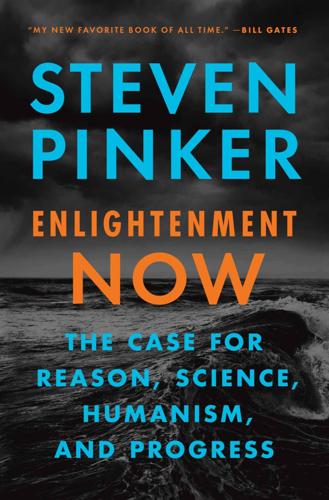
Enlightenment Now: The Case for Reason, Science, Humanism, and Progress
by
Steven Pinker
Published 13 Feb 2018
Even in modern societies—according to studies I’ve done with the psychologists Jason Nemirow, Max Krasnow, and Rhea Howard—people esteem others according to how much time or money they forfeit in their altruistic acts rather than by how much good they accomplish.59 Much of the public chatter about mitigating climate change involves voluntary sacrifices like recycling, reducing food miles, unplugging chargers, and so on. (I myself have posed for posters in several of these campaigns led by Harvard students.)60 But however virtuous these displays may feel, they are a distraction from the gargantuan challenge facing us. The problem is that carbon emissions are a classic public goods game, also known as a Tragedy of the Commons. People benefit from everyone else’s sacrifices and suffer from their own, so everyone has an incentive to be a free rider and let everyone else make the sacrifice, and everyone suffers. A standard remedy for public goods dilemmas is a coercive authority that can punish free riders. But any government with the totalitarian power to abolish artistic pottery is unlikely to restrict that power to maximizing the common good.
…
Economists across the political spectrum endorse carbon pricing because it combines the unique advantages of governments and markets.74 No one owns the atmosphere, so people (and companies) have no reason to stint on emissions that allow each of them to enjoy their energy while harming everyone else, a perverse outcome that economists call a negative externality (another name for the collective costs in a public goods game, or the damage to the commons in the Tragedy of the Commons). A carbon tax, which only governments can impose, “internalizes” the public costs, forcing people to factor the harm into every carbon-emitting decision they make. Having billions of people decide how best to conserve, given their values and the information conveyed by prices, is bound to be more efficient and humane than having government analysts try to divine the optimal mixture from their desks.
…
See coal; energy; petroleum Foucault, Michel, 39–40, 397, 406, 446, 447 fracking, 143 France calories available per person, 70, 70 emancipative values in, 225–7, 226, 227 famine in, 69 nuclear power and, 147, 148 nuclear weapons and, 317, 318, 320 populism and, 338–9, 341 poverty and, 79 rights, declaration of, 411 Second French War of Religion, 484n77 secularization and, 436, 437 social spending in, 108, 109 suicide and, 278 terrorism and, 219 Francis, Pope, 97, 122, 129, 142 Frankfurt, Harry, 98–9 Franklin, Benjamin, 359 Frank, Robert, 124 freedom anxiety and, 285 happiness in relation to, 265–6, 271 hierarchy of needs and, 224 of modernity, 284–5 negative vs. positive, 265 to screw up your life, 344 See also democracy; emancipative values freedom of religion, 417 freedom of speech bioethics violating, 402 education and appreciation for, 235 as emancipative value, 224 populism and devaluing of, 333 as remedy for cognitive biases, 28, 202, 353, 390 utilitarianism and, 417 wealth of countries and, 96 freedom of the press, 336 Friedman, Milton, 119 Friends of the Earth, 465n76 Fukushima accident (2011), 146 Fukuyama, Francis, 201, 203 Furman, Jason, 117 Gaddafi, Muammar, 447 Galbraith, John Kenneth, 206 Galileo, 24 Galton, Francis, 399 Galtung, John, 41 game theory, 164, 386 See also Hobbesian trap (security dilemma); pacifist’s dilemma; Tragedy of the Commons Gandhi, Indira, 131 Gandhi, Mohandas, 405, 418. See also nonviolent resistance Gapminder (Web site), xviii, 52 Gates, Bill, 66, 67, 330, 481n16 gay rights. See homosexuality and homophobia GDP (Gross Domestic Product), 85, 95–6, 461n7 carbon emissions per dollar of, 143, 143 emancipative values as correlated with, 228 Flynn effect as increasing, 242, 244–5 and global well-being, 245–6, 246, 473n45 happiness as increasing with, 269–71, 269, 272 information technology invisible in, 332–3 misleading, potentially.
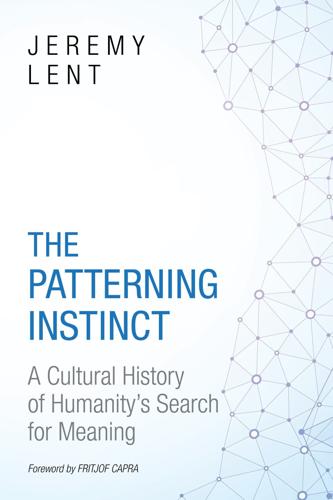
The Patterning Instinct: A Cultural History of Humanity's Search for Meaning
by
Jeremy Lent
Published 22 May 2017
It is as though we live in a world of not one but many sorcerers’ apprentices, each competing with the others, so that even if each of them knew the spell to stop his own runaway broom, he would immediately be outcompeted by the others, so each therefore continues in the group folly.66 This self-defeating collective dynamic, known in economics as the “tragedy of the commons,” highlights a crucial flaw in capitalist ideology: the notion that it is inevitably beneficial for society when each person seeks to maximize his own gain. Underlying this notion is an even more fundamental defect of classical economic theory: the assumption that nature is inexhaustible.
…
(Carbon Tracker Initiative, 2012), http://www.carbontracker.org/wp-content/uploads/2014/09/Unburnable-Carbon-Full-rev2-1.pdf (accessed February 5, 2017); McKibben, “Global Warming's Terrifying New Math.” 66. Boyd, “Economic Growth”; Peter Victor, “Questioning Economic Growth,” Nature 468 (2010): 370–71. 67. See Garrett Hardin, “The Tragedy of the Commons,” Science 162 (1968): 1243–48; Ponting, New Green History, 132–33; Boyd, “Economic Growth”; Royal Society, People and the Planet, 73; Boulding's quote cited in Mark Bittman, “A Banker Bets on Organic Farming,” New York Times, August 28, 2012. 68. McNeill, Something New, locs. 4910–19. The assumption of inexhaustible natural resources is only one of the fundamental problems with classical economics that drive our civilization on an unsustainable path.
…
Additionally, the rise in B Corporations (where “B” stands for “Benefit”), which aim to benefit all stakeholders, not just shareholders, demonstrates that it's possible for companies to succeed commercially within the current capitalist system while maintaining values consistent with the Great Transformation. See https://www.bcorporation.net/. 87. Jeremy Rifkin, “The Rise of Anti-Capitalism,” New York Times, March 15, 2014. It's worth noting that the internet also offers the opportunity for humanity to overcome the “Tragedy of the Commons,” the collective dynamic that causes people to maximize their own profit at the expense of the larger community. A study of this dilemma around the world has shown that groups of people who can personally identify one another tend to rely on trust, reciprocity, and reputation to overcome this dynamic and make decisions that prioritize the community over individuals.
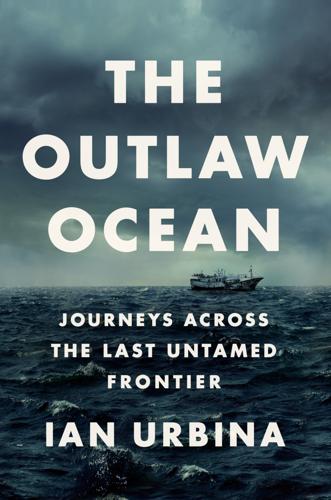
The Outlaw Ocean: Journeys Across the Last Untamed Frontier
by
Ian Urbina
Published 19 Aug 2019
Lloyd’s lecture inspired the phrase “tragedy of the commons,” which was popularized by the ecologist Garrett Hardin in 1968 and came to refer to the notion that when everyone owns something, no one does, resulting in misuse and neglect. International law identifies four global commons: the High Seas; the Atmosphere; Antarctica; and Outer Space. Historically, access to the resources found within the global commons has been difficult. The advancement of science and technology in recent decades, however, has changed that. See Garrett Hardin, “The Tragedy of the Commons,” Science, Dec. 13, 1968. But in practice, flags: There are thirty-five countries that the International Transport Workers’ Federation deems “flags of convenience.”
…
“Why would they take on this headache and cost when no one even requested their help?” the South Africans asked. In failing to force the Thunder to return to port for inspection, and declining to request help from the Australian military, Nigeria released what loose grip it might have had on the scofflaw ship. It was the clearest example I could find of the so-called tragedy of the commons, or the idea that something owned by everyone is more likely to be neglected than it is to be protected. That Nigeria so readily relinquished its duty as a flag registry is an example of all that is flawed with the modern way that ships are flagged. For centuries, the world’s merchant and fishing fleets flew the flag of the country of their home port.
…
Celia Robelo, the woman who told Eril Andrade about the job on the Taiwanese tuna long-liner ship, where he died under suspicious circumstances, sits in a rural prison called the Aklan Rehabilitation Center in the Philippines. Her nine-year-old son, Xavier, stands in the background. The failure to prosecute anyone other than Robelo was a powerful reminder of the so-called tragedy of the commons, the idea that we neglect what we don’t own individually. Because the high seas belong to everyone and no one, governments fail to cooperate in protecting marine workers or investigating abuses. International waters are a margin for error, a frontier to pass through at your own peril. This place lends itself to a bystander’s syndrome: a pathological and unshakable assumption that someone else will police those crimes or fix those wrongdoings.
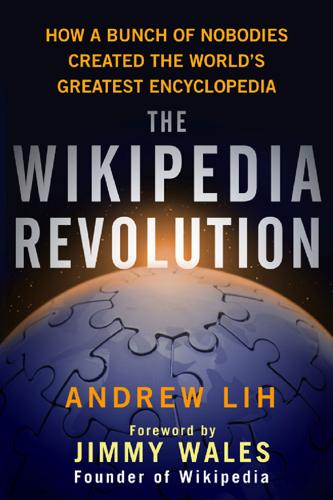
The Wikipedia Revolution: How a Bunch of Nobodies Created the World's Greatest Encyclopedia
by
Andrew Lih
Published 5 Jul 2010
How these communities interact and how well they avoid claiming ownership over groups of articles (and what happens when they don’t avoid it) are key factors in how the community goes forward. Wikipedia’s shift toward a partitioned community risks stifling some of its revolutionary features and inevitably changes the dynamic of the community, though this “tragedy of the commons” is not unique to Wikipedia. The problem of scaling up is one many online communities have had to deal with, from Usenet to DMOZ. But it’s especially acute with a massive project where maintenance of articles (more than 2.5 million in the case of English Wikipedia) is paramount, and deterioration in quality shows quite quickly.
…
L., 169 211 Merel, Peter, 62 editorial process of, 37–41, 43, 63, 64 meta-moderation, 68–69 GNUpedia and, 79 metaphors, 46–47 rules of, 36–37 242_Index Nupedia ( continued ) radio, amateur ham, 45–46 structure of, 37–38 Ramsey, Derek (Ram-man), 99–104, 108, Wikipedia and, 64–65, 88, 136, 109, 111, 177 171, 172 Rand, Ayn, 32 wiki software and, 61–65 Raul654 (Mark Pellegrini), 180–81 Nupedia Advisory Board, 37, 38, 64 Raymond, Eric S., 43, 85, 172–73, 175 Nupedia-L, 63 Reagle, Joseph, 82, 96, 112 Nupedia Open Content License, 35, 72 Rec.food.chocolate, 84–85 RickK, 120, 185–88 rings, Web site, 23, 31 objectivism, 32, 36–37 robots, software, 88, 99–106, 145, 147, OCR (optical character recognition), 35 177, 179 Open Directory Project (ODP), 30–31, Rosenfeld, Jeremy, 45 33, 35 Rousseau, Jean-Jacques, 15 Ota, Takashi, 146 Russell, Bertrand, 13, 81 Oxford English Dictionary (OED), 70–72 Russian language, 152 peer production, 108–9 Sandbox, 97, 115 Pellegrini, Mark (Raul654), 180–81 Sanger, Larry, 6–7, 32–34, 36–38, Perl, 56, 67, 101, 140 40–41, 43–45, 61–65, 67, 88, 89, Peul language, 158 115, 184, 202, 210–11 phantom authority, 175–76 boldness directive and, 91, 113 Philological Society, 70 Citizendium project of, 190, 211–12 PHP, 74, 101 Essjay and, 197 Pike, Rob, 144 memoir of, 174, 190, 225 piranha effect, 83, 106, 109, 113, 120 resignation from Wikipedia, 174–75, Plautus Satire, 181 210 Pliny the Elder, 15 on rules, 76, 112 Poe, Marshall, 171 Spanish Wikipedia and, 9, 136–38 Polish Wikipedia, 146, 147 trolls and, 170–75, 189–90 Popular Science, 126 Wikipedia license and, 72 Portland Pattern Repository, 59 Y2K bug and, 32–33 Portuguese language, 136 San Jose Mercury News, 126 PostScript, 52 Schechter, Danny, 8–9 “Potato chip” article, 136 Schiff, Stacy, 196 Professor and the Madman, The Schlossberg, Edwin, 46 (Winchester), 70, 71 schools, 177–78 Project Gutenberg, 35 Scott, Jason, 131, 189 public domain content, 26, 111 search engines, 11, 22, 34 Pupek, Dan, 58 Google, see Google Seigenthaler, John, 9–10, 191–94, 200, 220 Quickpolls, 126–27 Senegal, 158 Quiz Show, 13 Serbian Wikipedia, 155–56 Index_243 servers, 77–79, 191 Tagalog language, 160 Sethilys (Seth Anthony), 106–11 Taiwan, 150, 151, 154 Shah, Sunir, 59–60, 64 “Talossan language” article, 120 Shaw, George Bernard, 135 Tamil language, 160 Shell, Tim, 21–22, 32, 36, 66, 174, Tawker, 177, 179, 186 184 Tektronix, 46, 47, 50, 55, 56 sidewalks, 96–97 termites, 82 Sieradski, Daniel, 204 Thompson, Ken, 143–44 Signpost, 200 Time, 9, 13 Silsor, 186 Torvalds, Linus, 28–29, 30, 173, 175 Sinitic languages, 159 Tower of Babel, 133–34 see also China tragedy of the commons, 223 Skrenta, Rich, 23, 30 Trench, Chenevix, 70 Slashdot, 67–69, 73, 76, 88, 205, trolls, 170–76, 179, 186, 187, 189–90 207, 216 Truel, Bob, 23, 30 Sanger’s memoir for, 174, 190, 225 2channel, 145 Sneakernet, 50 Snow, Michael, 206–7 Socialtext, 207 “U,” article on, 64 sock puppets, 128, 178–79 Unicode, 142, 144 software, open-source, 5, 23–28, 30, 35, UTF-8, 144–45 62, 67, 79, 216 UTF-32, 142, 143 design patterns and, 55, 59 UNIX, 27, 30–31, 54, 56, 143 Linux, 28–30, 56, 108, 140, 143, 173, Unregistered Words Committee, 70 216, 228 urban planning, 96–97 software robots, 88, 99–106, 145, 147, URL (Uniform Resource Locator), 53, 54 177, 179 USA Today, 9, 191, 220 Souren, Kasper, 158 UseModWiki, 61–63, 66, 73–74, 140–41 South Africa, 157–58 Usenet, 35, 83–88, 114, 170, 190, 223 spam, 11, 87, 220 Usenet Moderation Project (Usemod), 62 Spanish Wikipedia, 9, 136–39, 175, 183, USWeb, 211 215, 226 squid servers, 77–79 Stallman, Richard, 23–32, 74, 86, 217 vandalism: GNU Free Documentation License of, on LA Times Wikitorial, 207–8 72–73, 211–12 on Wikipedia, 6, 93, 95, 125, 128, GNU General Public License of, 27, 72 176–79, 181, 184–88, 194, 195, GNU Manifesto of, 26 202, 220, 227 GNUpedia of, 79 Van Doren, Charles, 13–14 Steele, Guy, 86 verein, 147 Stevertigo, 184 VeryVerily, 128 stigmergy, 82, 89, 92, 109 Vibber, Brion, 76 Sun Microsystems, 23, 27, 29–30, 56 Viola, 54 Sun Tzu, 169 ViolaWWW, 54–55 Swedish language, 140, 152 Voltaire, 15 244_Index WAIS, 34, 53 Wik, 123–25, 170, 180 Wales, Christine, 20–21, 22, 139 Wikia, 196, 197 Wales, Doris, 18, 19 Wiki Base, 62 Wales, Jimmy, 1, 8, 9, 18–22, 44, 76, Wikibooks, 216 88, 115, 131, 184, 196, 213, 215, Wikimania, 1–3, 8, 146, 147–48 220 WikiMarkup, 90 administrators and, 94, 185 Wikimedia Commons, 216 background of, 18–19 Wikimedia Foundation, 146, 157, 183–84, at Chicago Options Associates, 20, 196, 199, 213–15, 225–26, 227 21, 22 Wikipedia: Cunctator essay and, 172 administrators of, 67, 93–96, 119, 121, and deletion of articles, 120 125, 127, 148, 178, 185–86, dispute resolution and, 179–80, 181, 195–96, 224–25 223 advertising and, 9, 11, 136–38, 215, Essjay and, 197, 199 226 languages and, 139, 140, 157–58 amateurs and professionals in, 225 neutrality policy and, 6, 7, 113 Arbitration Committee of, 180–81, 184, objectivism and, 32, 36–37 197, 223 Nupedia and, 32–35, 41, 43–45, “assume good faith” policy in, 114, 187, 61–63 195, 200 on piranha effect, 83 blocking of people from, 93 role of, in Wikipedia community, 174–76, boldness directive in, 8, 91, 102, 179–80, 223 113–14, 115, 122, 221 Seigenthaler incident and, 192, 194 categories in, 97–98, 221 Spanish Wikipedia and, 137, 175 “checkuser” privilege in, 179, 196, 199 Stallman and, 30–32 database for, 73–74, 77, 78, 94 three revert rule and, 127–28 discussions in, 7–8, 65–66, 75–76, 89, Wikimania and, 146 121–22 Wikipedia license and, 72 DMOZ as inspiration for, 23 Wikitorials and, 206–7 five pillars of, 113, 216 Wales, Jimmy, Sr., 18 future of, 213–17, 219–29 Wall Street Journal, 126 growth of, 4, 9, 10, 77, 88–89, 95–97, “War and Consequences” Wikitorial, 99–100, 126, 184, 215, 219, 220 206–7 how it works, 90–96 wasps, 82 influence of, 201–212 Weatherly, Keith, 106 launch of, 64, 69, 139, 171 Web browsers, 51–55 legal issues and, 94, 111, 186, 191–92, Weblogs Inc., 215 227; see also copyright; libel WebShare, 209 linking in, 66–67, 73 Webster, Noah, 70, 133 mailing list for, 89, 95 Web 2.0, 68, 111, 114, 201 main community namespace in, 76 Wei, Pei-Yan, 54–55 main page of, 95 Weinstock, Steven, 202–3 MeatballWiki and, 60, 114, 119, 187–88 “Why Wikipedia Must Jettison Its mediation of disputes in, 180, 181, 195 Anti-Elitism” (Sanger), 189–90 meta pages in, 91 Index_245 name of, 45 “diff” function and, 74, 75, 93, 99 namespaces in, 75–76 edit histories of, 64–65, 71, 82, 91–93 number of editors in, 95–96 editing of, 3–4, 6, 38, 64–66, 69, 73, Nupedia and, 64–65, 88, 136, 171, 172 88, 114–15, 131, 194 openness of, 5–6, 9 edit wars and, 95, 122–31, 136, 146 origins of, 43–60 eventualism and, 120–21, 129, 159 policies and rules of, 76, 112–14, first written, 64 127–28, 170, 171, 192, 221, flagged revisions of, 148–49, 215–16, 224–25 227 popularity of, 4 inclusion of, 115–21 Quickpolls in, 126–27 inverted pyramid formula for, 90 Recent Changes page in, 64–65, 82, license covering content of, 72–73, 98, 104, 109, 176–77 211–12 schools and, 177–78 locking of, 95 servers for, 77–79, 191 maps in, 107, 109–11 Slashdot and, 69, 73, 76, 88 neutral point of view in, 6–7, 82, 89, 111, sock puppets and, 128, 178–79 112–13, 117, 140, 174, 203–4, 217, SOFIXIT directive in, 114–15, 122, 221 228 software robots and, 88, 99–106, 145, news and, 7 147, 177, 179 original research and, 112–13, 117, 174 spam and self-promotion on, 11, 220 protection and semi-protection of, 194, talk pages in, 75–76, 89, 93, 98 216 templates in, 97–98, 113, 221 reverts and, 125, 127–28 trolls and, 170–76, 179, 186, 187, single versions of, 6 189–90 spelling mistakes in, 104–5 user pages in, 76, 89 stability of, 227–28 vandalism and, 6, 93, 95, 125, 128, stub, 92, 97, 101, 104, 148 176–79, 181, 184–88, 194, 195, talk pages for, 75–76, 89, 93, 98 202, 220, 227 test edits of, 176 watchlists in, 74, 82, 98–99, 109 “undo” function and, 93 wiki markup language for, 221–22 uneven development of, 220 wiki software for, 64–67, 73, 77, 90, 93, unusual, 92, 117–18 140–41, 216 verifiability and, 112–13, 117 Wikipedia articles: watchlists for, 74, 82, 98–99, 109 accuracy of, 10, 72, 188–89, 194, 208 Wikipedia community, 7–8, 81–132, 174, attempts to influence, 11–12 175, 183–200, 215–17, 222–23 biographies of living persons, 192, Essjay controversy and, 194–200 220–21 Missing Wikipedians page and, 184–85, census data in, 100–104, 106 188 citations in, 113 partitioning of, 223 consensus and, 7, 94, 95, 119–20, 122, Seigenthaler incident and, 9–10, 222–23 191–94, 220 consistency among, 213 stress in, 184 creation of, 90–93, 130–31, 188–89 trolls and, 170 deletion of, 93–94, 96, 119–21, 174 Wales’s role in, 174–76, 179–80, 223 246_Index Wikipedia international editions, 12, 77, Wikitorials, 205–8 100, 131–32, 133–67 Wikiversity, 216 African, 157–58 WikiWikiWeb, 44–45, 58–60, 61, 62 Chinese, 10, 141–44, 146, 150–55 Willy on Wheels (WoW), 178–79 encoding languages for, 140–45 Winchester, Simon, 70, 71 French, 83, 139, 146, 147 Wizards of OS conference, 211 German, 11, 139, 140, 147–49, 215, Wolof language, 158 220, 227 Wool, Danny, 3, 158, 199 Japanese, 139, 140, 141–42, 144, World Book, 16–19 145–47 World Is Flat, The (Friedman), 11 Kazakh, 155–57 World Wide Web, 34, 35, 47, 51–55 links to, 134–35, 140 Web 2.0, 68, 111, 114, 201 list of languages by size, 160–67 WYSIWYG, 222 Serbian, 155–56 Spanish, 9, 136–39, 175, 183, 215, 226 Yahoo, 4, 22, 23, 30, 191, 214 Wikipedia Watch, 192 “Year zero” article, 117 Wikipedia Weekly, 225 Yeats, William Butler, 183 wikis, 44, 51 Yongle encyclopedia, 15 Cunningham’s creation of, 2, 4, 56–60, “You have two cows” article, 118 62, 65–66, 90 YouTube, 58 MeatballWiki, 59–60, 114, 119, 175, Y2K bug, 32–33 187–88 Nupedia and, 61–65 Wikisource, 216 ZhengZhu, 152–57 About the Author Andrew Lih was an academic for ten years at Columbia University and Hong Kong University in new media and journalism.
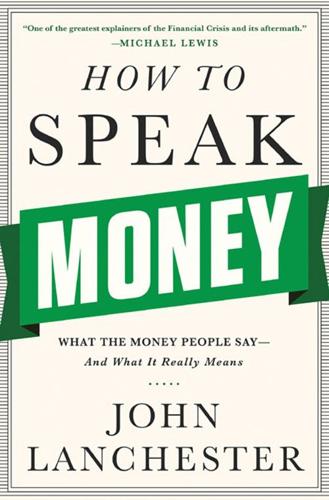
How to Speak Money: What the Money People Say--And What It Really Means
by
John Lanchester
Published 5 Oct 2014
The stereotypes would be that traders are aggressive and testosterone fueled, analysts are earnest, mergers and acquisitions types are smooth and corporate, and quants are nerdy mathematicians with no social skills. The divisions and mutual incomprehension between the different tribes and their different activities is one of the things that make the big banks resemble, in the words of the Manchester anthropologist Karel Williams, “loose federations of money-making franchises.” 76 “The Tragedy of the Commons” A highly influential 1968 essay by the economist Garrett Hardin, on the subject of how to share common land, when it’s in everybody’s interest to maximize his or her own use of the land at the expense of everybody else. His central insight was that when a resouce is communally shared, individuals have no reason to protect other people’s interests in the resource, and every reason to maximize their own use of it.
…
His central insight was that when a resouce is communally shared, individuals have no reason to protect other people’s interests in the resource, and every reason to maximize their own use of it. If something is owned collectively, it makes sense for you to grab as much as you can for yourself. As a result, the communally owned resource is certain to be exploited to the point of ruin: hence, the tragedy of the commons. Hardin’s ideas had a big impact in the study of how people use scarce or finite resources. They haven’t gone unchallenged, though, and the anthropologically minded economist Lin Ostrom won a Nobel Prize for her 1999 work “Revisiting the Commons: Local Lessons, Global Challenges,” which extensively studied the reality that, in practice, human beings often do a very good job of collectively managing collective resources.
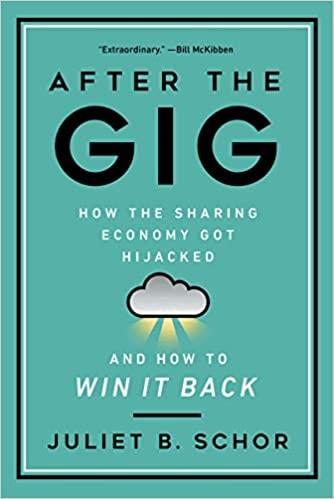
After the Gig: How the Sharing Economy Got Hijacked and How to Win It Back
by
Juliet Schor
,
William Attwood-Charles
and
Mehmet Cansoy
Published 15 Mar 2020
Eleanor Ostrom’s work on ecosystems showed that holding ownership “in common” (i.e., sharing) could lead to efficient use and long-term sustainability.64 Surveying research on irrigation systems, forests, fisheries, and other natural resources, Ostrom’s analysis put the lie to the claim that any arrangements other than private property or state ownership led to a “tragedy of the commons,” in which the resource would necessarily be degraded by overuse. This research earned Ostrom a Nobel Prize in Economics—an impressive feat given that she was a political scientist and the first woman to be selected for this award. She identified the conditions under which shared ownership and governance work well—the most important of which was democratic, community control at the smallest feasible scale.
…
See also digital technology: algorithms, 31, 66–70, 169; and counterculture, 22–23; faith in, 21; and idealist discourse, 162; and social change, 23–24, 162, 174; and social connection, 112; and values, 174–75 tech sector, 150–51 Telecommunications Act of 1996, 23 Telles, Rudy, Jr., 192 Thelen, Kathleen, 153 ThredUp, 112 Tim, 168–69 time banks, 125–27, 134–36, 144–46 TimeBanksUSA, 127 TimeRepublik, 8 tips, 65 traffic accidents, 118 tragedy of the commons, 163 trust, 24, 32 Turner, Fred, 21 Turo, 20, 45–46, 107; car owner incomes, 104; environment benefits, 54; income, 73; racial bias, 88–89; renter experience, 53–54 two-sided markets, 31 Tyler, 8, 45, 50, 112 Uber, 2, 9–11, 38, 151; business model, 35–37; decreased earnings, 75–76; education levels, 97; employee classification, 47, 161; European regulation, 152–53; gender discrimination, 87; labor competitor, 59; lobbying, 156–57; network effect, 32; origin story, 25; quiet mode, 114; as sharing economy platform, 193; taking (advantage), 159; traffic congestion, 117; transaction fees, 86; UberPool, 108, 118; worker experience, 58, 62, 76 Uberland, 13 Uber of x, 26, 125 UberPop, 153 Uberworked and Underpaid, 12 unemployment, 3 Union Square Ventures, 171 Up and Go, 170 Upwork, 41 urban sharing, 172 UrbanSitter, 27 used book market, 120 Val, 139 Valeria, 98 value proposition, 124, 143–47 values, 174–75 vehicle miles traveled (VMT), 116 Vinni, 31 Wang, Charley, 38 wealth inequality, 95 Wealth of Networks, The, 163 Wells, Katie, 76 Wengronowitz, Robert, 14, 181–82 Werbach, Adam, 27 Wettlaufer, Brianna, 148–49 What’s Mine Is Yours, 12 What’s Yours Is Mine, 13 “When Your Boss Is an Algorithm,” 66 Whole Earth Catalog, 22 Wikipedia, 164 Will, 53–54 women: discrimination, 87; platform participation, 190; ratings, 92 Wonolo, 110 Wood, Alex, 77 work: and capitalism, 3–4; and corporate culture, 3, 6, 12–13; and digital technology, 1, 6–7; employment classification, 47, 71; and for-profit platforms, 2, 6–11, 13; and labor control, 80; and person-to-person economy, 2; precarious, 70–71 workforce, sharing, 43–45, 77, 190 Woz, 139 xenophobia, 89 Yerdle, 27, 34 Zaarly, 35, 99 Zack, 98 Zelizer, Viviana, 193 Zimmer, John, 25 Zimride, 25 Zipcar, 26, 192 Zysman, John, 194 Founded in 1893, UNIVERSITY OF CALIFORNIA PRESS publishes bold, progressive books and journals on topics in the arts, humanities, social sciences, and natural sciences—with a focus on social justice issues—that inspire thought and action among readers worldwide.
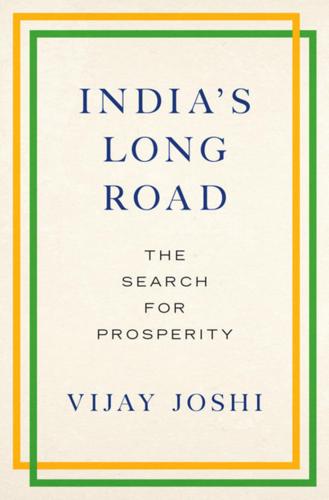
India's Long Road
by
Vijay Joshi
Published 21 Feb 2017
It follows that there is a case for a state subsidy for labour training.12 There are many such examples of positive and negative externalities.13 Another related case of market failure can arise when markets attempt to allocate resources that have ownership rights that are undefined or held in common. Relevant examples are minerals under the ground, fish in the sea, the earth’s atmosphere, and telecom spectrum. Here, the state may have to act to prevent a ‘tragedy of the commons’.14 Unfettered markets are likely to lead to chaotic over-use, even exhaustion, of scarce resources that are un-owned or under common ownership. One solution is for the state to allocate private property rights (though it may quite properly appropriate the rents created thereby, for example by auctioning the resources).
…
Kumar (2009), ‘Big Reforms but Small Payoffs: Explaining the Weak Record of Growth in Indian Manufacturing’, India Policy Forum 2008/ 9, Vol. 5, 59–124. Gupta, P., and A. Panagariya (2014), ‘Growth and Election Outcomes in a Developing Country’, Economics and Politics, 26(2), 332–354. Hardin, G. (1968), ‘The Tragedy of the Commons’, Science, Vol. 162(3859), 1243–1248. Hart, O. (2003), ‘Incomplete Contracts and Public Ownership’, Economic Journal, Vol. 113(486), C69–76. Hasan R., and K. Jandoc (2013), ‘Labour Regulations and Firm Size Distribution in Indian Manufacturing’, in J. Bhagwati and A. Panagariya (eds.), Reforms and Economic Transformation in India, 15–48.
…
References [ 335 ] 336 ╇ 337 INDEX Aadhar card, 206, 207, 214, 304 and Aadhar-╉linked bank accounts, 207, 214, 287, 304 administration, see government administration advanced countries (ACs), 53, 65, 97, 129, 132, 141, 145, 188, 202, 255, 257, 262, 263–╉4, 266–╉8, 277, 298 Agreement on Government Procurement (GPA), 269, 298 agriculture, 55, 67–╉70, 93, 100–╉4, 121, 126, 141–╉2, 163, 229, 248, 267, 292–╉3, 296, 309 exports, 103 marketing, 101, 293, 309 price controls in, 102 public investment in, 102, 293, 296, 309 reform in, 100–╉4, 292–╉3 share in GDP, 67–╉8 subsidies in, 102–╉3, 293, 296, 309 surplus labour from, 70 trade liberalization in, 103, 267 workers in, 66–╉7 Agricultural Produce Marketing Committees (APMCs), 101 air quality, 124–╉6 ASEAN, 265 Asia Pacific Economic Cooperation (APEC), 266, 298 backward states, 29 balance of payments, 22, 139–╉40, 155–╉9, 248–╉50, 254, 259, 299 Bangladesh, 28, 176, 186, 187 Bank Investment Company (BIC), 118, 295 bankruptcy, 7, 97–╉9, 154–╉5, 291, 294 Basel committee on Bank Regulation (BCBR), 258 Basel III standards, 258 basic income, 197, 210–╉15, 216–╉19, 285–╉8, 293, 303–╉4 cost of providing, 216–╉19 recommended magnitude of, 212, 214, 216–╉19 universal, 211, 212, 214–╉15, 216–╉19 Bharatiya Janata Party (BJP), 22–╉3, 24–╉5, 227–╉8, 278, 311–╉12 -╉led NDA government, 117 see also Modi Government black money, 237–╉8 Board of Industrial and Financial Restructuring (BIFR), 97–╉8 business houses, 61, 62 capital, 26, 52–╉3, 69–╉70, 72, 105, 248, 258, 291 accumulation of, 52–╉3, 58–╉60, 312; see also investment -╉intensive sectors, 69, 80 markets, 97–╉9 movements, 155, 159, 252, 262, 267 of banks, 154, 258, 284, 295 per worker, 52, 52 physical capital, 52–╉3 reform of capital markets, 97–╉9, 291 see also human capital; investment; environment capital capital account convertibility (CAC), 155, 159, 253, 262 capital controls, 155–╉6, 262–╉3 capital flows, 157, 250, 254, 282 volatility of, 262 338 capital-output ratio, 19 capitalism, 60–2 carbon tax, 130 cash transfers, 91, 164, 206–14, 288, 296 objections to, 208 technology of, 206–10 universal, 214–15 see also basic income Central Government Public sector enterprises (CPSEs), 113–23 Central Vigilance commission (CVC), 115, 234 Centre and States, 161, 228, 313–15 child/infant mortality, 20, 72, 125, 186 nutrition, 28, 186, 189 China, 6, 8–10, 25, 28, 29, 55, 70, 72, 73, 124, 125, 130, 131, 132, 163, 176, 179, 185, 186, 249–50, 252, 254, 255, 256–7 Churchill, Winston, 3 civil servants, 43, 151, 233, 308 climate change, 128–33 and India, 129–33, 256–7 and low-carbon strategies, 131 and Paris Conference, 131-2 coal, 88, 89, 114, 122, 130, 132, 214, 285 collective action, 42, 97, 226, 229, 306 companies, 26, 52, 61, 72, 78, 79–80, 97–8, 114–16, 148, 153–4, 284 competition, 26, 42–3, 61, 92–4, 115–17, 120–2, 181, 183–5, 290, 303, 268, 313–14 Competition Commission, 93, 283, 290 concentration, 61 conditional cash transfers (CCTs), 209–10 Congress Party, 18, 22–3, 24, 24, 25, 114, 227–8, 229, 235, 278, 295, 301 contracts, 41–3, 119–21, 123, 230, 237, 308 contract labour, 67, 79, 290 Contract Labour Act (CLA), 79, 81, 82 contract teachers, 179, 182, 301–2 controls, 18, 19, 43, 44, 87–91 coordination, 37, 39, 43, 92, 104, 120, 152, 256, 264, 292 [ 338 ] Index corporate: investment, 23, 26–7, 56, 59–61, 145–8, 285 savings, 26, 27 sector, 58, 61–2, 154, 284 corruption, 22, 44, 74, 79, 96, 105, 185, 207–8, 235–43, 307–10 courts, 234–5 credit, 19, 25, 27, 74, 76, 99, 118, 188, 280–1, 284 access to, 75–6, 253 bank, 153–4, 276 directed, 75 for small firms, 75, 295 short-term, 22 wilful defaulters and, 99 criminal politicians, 238 crisis, 22, 23, 30, 157–9, 259, 260, 280, 315 of 1991, 26 crony capitalism, 7, 8, 62, 105, 235–43, 277, 283, 306–7, 310, 313 crop insurance, 296, 309 cross-border outsourcing, 70, 250, 263 crowding out, 151, 160 current account deficit, 23, 27, 59, 139, 155, 156, 156–7, 248–9, 253, 280–1 debt overhang, 148, 153–5, 284 decentralization, 179, 185, 232–3, 306, 308, 314–15 ‘deep fiscal adjustment’, 165, 279, 285–8, 290, 300, 309–10, 314 and economic reform, 91–2, 163–5, 212–14, 285–8 and universal basic income 285–7 Modi government and, 287–8 democracy, 3–4, 9, 10, 18, 35, 36, 141, 225–6, 229, 232–3, 306, 311–12, 315–17 demographic transition, 52, 59, 72–3 deprivation, 27–30, 35, 201 devaluation, 18, 23, 252, 254 developing countries (DCs), 15, 27, 44, 53–4, 130, 132, 141, 176, 252, 256, 263–4 diesel, 88–9, 126, 164, 287, 288 disadvantaged: castes, 306 groups, 28–9, 204, 226, 228, 339 Doha Development Agenda, 300 Draft National Health Policy, 305 droughts, 17–18, 22, 104, 130, 139, 141, 316 Ease of Doing Business, 60, 74, 75, 77, 94, 105, 284, 289–90, 308 see also World Bank East Asia, 55, 68, 70, 71, 105, 155, 157, 247, 253, 265 East Asian crisis, 157, 253, 262 economic development, 8, 16, 35, 44, 67, 72, 101, 225, 230, 243, 277–8 economic reform/reforms, 54, 77–82, 87–91, 92–4, 94–7, 101–4, 104–5, 117, 119–23, 126–7, 130–1, 151–3, 154, 159, 162–5, 182–5, 188–91, 195–7, 210–15, 233, 240–3, 263–9, 275–308 in 1980s, 22, 24, 26 in 1991, 4, 26, 27 education, 19–20, 37, 42–3, 53–5, 175–85, 212–13, 229–32, 300–2, 304–5, 310 enrolment in, 28–9, 176, 184 ‘free and compulsory’, 181, 231–2 government schools and, 42, 179–83, 229, 232, 301–2 higher, 29, 184–6, 302 pedagogic practices in, 179, 301 primary, 28–9, 42, 176–83, 185, 300, 305 private providers in, 234 private schools in, 177, 172–7, 301–2 private universities in, 184, 185 quality of, 53, 179, 183, 301, 312 reform, 181–5, 301–2, 305 secondary, 29, 53, 71, 176–83, 185, 300, 305 teacher accountability in, 179, 301–2, 305 teacher effort in, 179 universal free, 304 vocational, 185 vouchers, 181 see also Right to Education Act election expenditures, 238, 241, 307–8 electricity, 89–90, 117, 121–2, 214, 309 Electricity Act of 2003, 122 Emergency, 18 see also Gandhi, Indira employment, 19, 51, 65–8, 71, 73, 77, 79–82, 94, 203–4, 288–90, 300–1 formal and informal, 67, 69 in organized and unorganized sectors, 66–7 problem, 54, 65–70, 77, 87, 288–90, 297 sectoral shares, 68 see also labour ends of economic policy, 35–6 energy, 88, 113, 128–31, 254, 296 entrepreneurship, 40, 61, 62, 75, 313; see also corporate sector environment, 123–33 capital, 123–8 degradation of, 124, 126–7, 312 Modi government and, 296 pollution, 124–6, 296, 309 property rights and, 123–4 protection of, 102, 113, 165, 229, 293 reform, 124–8, 130–3, 293, 296 exchange rate, 155–6 and external payments regime, 155 policy, 155–9, 282 reform of policy framework, 159 regime, 155, 282 exports, 23, 55, 69–70, 72, 92, 103, 153, 159, 248–9, 255, 281–2, 297 external economic engagement, 257–69, 297–300 Modi Government and, 299–300 external: balance, 140, 155–9, 279, 282 liberalization, 253, 297 payments regime, 155–9 see also balance of payments external effects/externalities, 38, 39, 43, 124, 130, 191–2, 286 factor markets: capital, 97–9 finance 99–100 labour, 77–82, 94 land, 94–7 Modi government and, 294 reform of, 94–102, 291 Index [ 339 ] 340 farmers, 89–91, 101–3, 126–7, 143–5, 202, 228, 238, 293 and pricing of fertilizers, 90 and subsidies, 90 self-sufficient, 103 see also agriculture federalism: competitive, 314 cooperative, 214, 314 see also Centre and States female labour force participation rate, 73 fertilizers, 90, 103, 164, 206, 212, 285, 290 Finance Commission, 161, 228, 281, 308, 313, 314–15 financial: inclusion, 99–100, 291, 309 institutions, 76, 100, 140, 258 repression, 152, 162, 282 sector reform, 99–100, 294 firms: in unorganized sector, 76, 77 size-distribution of, 71 see also small firms; companies fiscal: adjustment, 162, 165 balance, 159–65 consolidation, 30, 59, 159, 161–3, 281, 282, 309 crackdown, 18 deficits, 30, 139, 143, 148, 156, 157, 159–65, 213, 280, 287 policy/policies, 25–6, 30, 142, 145, 151–2, 159–65, 281, 282 problem, 159, 280 reform, 92–3, 159–65, 282 sustainability, 160, 280 see also ‘deep fiscal adjustment’; subsidies Fiscal Responsibility Act ( 2003), 162 food: articles, 141, 143, 144 market, 142–3, 144 security, 41, 203, 267 subsidies, 91, 143, 164, 202–3, 205–6, 212–13, 288 see also public distribution system; issue prices; procurement prices Food Security Act (FSA), 164, 202, 231 [ 340 ] Index foreign: aid, 18, 256 borrowing, 23, 26, 30, 156 capital, 247 investment, 24, 247–50, 255, 258–9, 297–8, 299–300 relations, 8, 9 foreign direct investment (FDI), 93, 151, 250–1, 253, 268, 284, 299 from China, 254 Indian diaspora’s role in, 254–5 liberalization of, 229, 299 policy regime, 250 reform, 93, 299 foreign exchange: intervention, 156 reserves, 156, 157, 158, 249, 260; see also global reserve system forests, 127–8 free capital mobility, 157; see also capital account convertibility Gandhi, Indira, 17–18, 22, 26, 227, 229, 233, 237 Gandhi, Rajiv, 22–3, 26 Gandhi, Sonia, 24 Gini Coefficient, 29, 30 global: ambition 8–10 credit crisis, 25, 58–9, 139, 160, 253, 258–9, 277 economic issues, 257–9 engagement, 247–69 exchange rate system, 259 imbalances, 259–60 manufacturing networks, 250 reserve system, 261–2 slowdown, 25, 151; see also recession supply chains, 264 global credit/financial crisis (GFC), 25, 27, 58–9, 139, 253, 257–9, 262, 277 global warming, see climate change globalization, 247, 254; see also global engagement goods and services, 41–3, 92, 94, 113, 163, 206, 210, 247–8, 257, 290–1, 293 carbon-intensive, 130 reform of markets in, 87–91, 92–4, 290 341 goods and services tax (GST), 92–3, 291, 293–4 government administration, 230–5, 307, 308 consumption, 59 corruption in, 235–43 debt, 160–1 employees, 43, 239 expenditure, 163–5 failures, 7, 39–40, 44, 187–8, 191–2, 276, 304 interest payments, 165 intervention, 19, 40, 87, 91, 104, 144, 236 procurement, 236–7, 241 services, 44 spending, 88, 102, 131, 148, 163, 203, 302 subsidies, 44, 87–92, 102, 180 see also state gross fixed capital formation (GFCF), 145 growth acceleration, 15, 16, 27, 55, 61 accounting, 54–8 fast, 5–6 high-quality, 5, 8, 276, 279, 315–17 Hindu rate of, 15, 100 of output per head/per worker, 51–4 rate of, 4, 5–6, 15–16, 19, 23, 26, 30, 36, 51, 53–7, 101, 144, 151 rapid, 17, 19, 35, 51, 52, 54, 60, 65, 70, 73, 87, 93, 104, 119, 153, 230, 236, 240, 279, 297, 300, 302, 309 slow, 19–20, 144, 275 slowdown, 25, 56, 144, 145, 153–4, 281, 317 sources of, 51–8 ‘super-fast’, 6, 28, 139, 157, 297 sustainable, 35, 113, 123–33, 279 health/health care, 7, 19, 37, 43, 175, 186–8, 188–97, 300, 302–3, 304–5, 310, 312, 313 future of, 195–7 money follows patient scheme, 303 primary care, 19, 187, 191–4, 195–6, 302–3, 305 public health and, 72, 186–8, 302 quality of, 189, 191–7 reform of, 195–7, 305 secondary care, 187, 189–91, 195–6, 302–3, 304–5 state intervention in, 187 universal, 195 health insurance, 39, 190, 205, 210, 303 high-income countries, 4–5, 51, 276, 316 Hinduism, extremist version of, 311–12 Hirschman, A. 42 household savings, 58–9 human capital, 21, 53, 66, 189, 254, 287, 289, 302 inclusion, 6, 30, 35, 91, 99, 113, 135, 175, 215, 293, 300 see also financial inclusion income: agricultural, 163 distribution, 29, 36–7, 44, 256–7 redistribution, 43, 88, 91–2, 201–19, 253 ‘India shining, ’ 24 Indian capitalism, 60–2 Indian university system, 184; see also education, higher India’s global engagement evolution and extent, 247–52 impact on India, 252–5 impact on the world, 255–7 India’s stance on global economic issues, 257–69 Indradhanush initiative, 295 industry/industries, 26, 55, 61, 67–70, 88, 94, 97, 100, 101, 104–5, 113–14, 153, 158, 267 Industrial Disputes Act (IDA), 78–82, 256 industrial policy, 104–5, 284 reform of, 104–5 industrialization, 105, 202, 253 inequality, 4, 29–30, 226 regional, 29 inflation, 18, 23, 25, 27, 59, 139–45, 151–3, 157–8, 162, 166–8, 208, 279–80 and government debt ratio, 162 and Modi government, 152, 280–1 demand factors, 144–5 high, 36, 59, 140, 144–5, 148, 151, 162, 279 Index [ 341 ] 342 inflation (Cont.) supply-side factors, 142–4 targeting, 151, 166–8, 279–80 see also monetary policy information problems, 39 information technology (IT) sector, 61, 70, 233, 240, 249, 253, 298 infrastructure, 7, 24, 60, 113, 119–23 and the Modi government, 295–6 reform, 119–23, 292, 295–6 see also Public–Private Partnerships Insolvency and Bankruptcy Code, 97–8, 294; see also bankruptcy institutional decay, 226, 229, 230, 306–7 Integrated Child Development services(ICDS), 189 Intended Nationally Determined Contributions (INDCs), 132 international: liquidity, 260–1 migration, 252, 254–5 money, 258–63 reserves, 259, 299 International Monetary Fund (IMF), 18, 22, 23, 26, 253, 259–62 international monetary system, 259, 260–2 international trade, 18–19, 78, 92–4, 101, 103, 156–7, 247–8, 252–5, 255–7, 263–9, 276–7, 297–300, 310 and ‘behind-the-border’ items, 264 between India and EU, 300 liberalization of, 18, 24, 38, 93, 103, 117, 163, 248, 253, 263, 290, 298 policies, 92–3, 248, 256, 262–3, 297 policy reform, 93, 263–9, 297–300 investment, 19–20, 26–7, 39–40, 52–3, 56, 60, 93-5, 102, 145, 148, 153-5, 250–2, 282–5 and Modi Government, 282–5 climate, 60, 282–5 corporate, 26, 59, 145–8 household, 59 in infrastructure, 59, 95, 119, 120–1, 163 in 1980s, 23 private, 59, 89–91, 103, 119, 120, 123, 148, 162, 280–1, 283, 287 public, 17, 22, 23, 59, 91, 102, 104, 119, 123, 213–14, 292–3, 296, 309 [ 342 ] Index reforms in climate for, 74–6, 282–5 revival, 284 risk-premium on, 148 see also public–private partnerships issue prices, 91, 143, 164, 202 Jan Dhan, 207 Janata party coalition government, 18 Judicial Appointments Bill, 235 justice, administration of, 43 Kashmir, 8, 227 kerosene, 88–9, 164, 285, 288 labour, 7, 19, 39, 52, 54–5, 65, 69–74, 76–8, 79–80, 94, 104–5, 176, 229, 257, 288–91 as resource, 52, 55, 69 bias against use of, 69–72 -demanding growth, 76 -intensive industries, 80, 253 -intensive manufacturing, 70, 72, 250, 266, 298 -intensive products, 70, 72, 73, 77, 80, 290 low-skilled, 70–2, 77, 254 reallocation of, 54 skilled, 77 shift from agriculture, 69, 70 training, 38, 185 see also contract labour; labour laws; labour market labour force participation rate, 73 labour laws/regulations, 65, 77–82, 94, 97, 253, 289–90, 294, 299, 309 reform of, 77–82, 294 studies on impact of, 80 labour market, 7, 39, 77–82, 94, 290, 310 reform of, 81–2, 294 labour productivity, 52, 54, 66–9, 69, 72, 73, 76, 104, 288–9 growth of, 55 in organized industry, 69 see also output per worker land, 55, 74, 76, 94–7, 120, 211, 213, 236, 291, 294, 309–10 Land Acquisition, Rehabilitation and Resettlement Act (LARR), 95–6, 294 343 land market 94 price-discovery in, 96, 291 land law: reform, 95–7, 294 liberal democracy, 35–6, 279, 311–12, 315–16 liberalization, 7, 18, 22–4, 26, 54, 61–2, 104, 159, 215, 252–5, 262 of foreign direct investment (FDI), 299 license raj, 27, 184, 307 licenses, 19, 40, 100, 122, 230, 235, 237–9, 283 life expectancy, 20, 186 literacy, 28 adult, 20 female, 29 local government, 314–15 low-income countries, 28, 186, 256, 300, 302 macroeconomic stability, 7, 35, 37, 43, 53, 59, 139–65, 279–82 and external balance, 155–9 and fiscal balance, 159–65 and internal balance, 141–55, 281–2 Modi Government and, 280–2 Mahatma Gandhi National Rural Employment Guarantee Scheme (NREGS) 203–5, 210, 213, 215, 239 arguments for and against, 204–5 description of, 203–4 ‘Make in India’, 105, 310 managed floating, 155–6, 280–1; see also exchange rate policy Mandal commission, 22, 226–7; see also reservations manufacturing, 68, 71–2, 250, 310 share of employment in, 68 market/markets, 7, 19–20, 35–41, 43–4, 102–4, 123–4, 154, 187–8, 276–7, 288–93 failures of, 37–9, 40–1, 44, 75, 94, 187–8, 190, 191–2, 276, 303–4 for factors of production, 65–72, 77–82, 94–102, 289, 291, 294 for goods and services, 87–94, 290–1, 293–4 liberalization of, 36, 229 prices, 37, 41, 90–1, 95, 143, 164, 202, 288 reform of, 77–82, 87–105, 290–6 virtues of, 37 see also competition; natural monopoly Mayawati, 227 mega-regional agreements, 297, 309 merit goods, 38, 213 Mid-Day Meals scheme, 177, 206 middle class, 313 mobile banking, 207 Modi, Narendra, 25 foreign tours, 299 pan-Indian electoral support for, 312 as RSS pracharak, 312 Modi government, 82, 96, 100, 105, 278, 280–1, 299–300, 304–6, 307–8, 310–12 Monetary Framework Committee, 151, 281 monetary policy, 142, 144–5, 151–2, 166–8, 281–2 transmission of, 152, 281–2 reform of policy framework, 151–2, 166–8, 281–2 monopolistic exploitation, 39, 117 multi-currency system, 261–2 multilateral negotiations, 264 Narasimha Rao, P.V., 23, 26 National Rural Employment Guarantee, Act, 232; see also Mahatma Gandhi National Rural Employment Guarantee Scheme nationalization, 40, 41 natural capital, 123–8 natural monopoly, 38–9, 117 Nayak, P.J., 118, 285, 295 Nehru, Jawaharlal, 4, 17–18 non-tradable goods, 117 nuclear agreement with US, 24 nutrition, 186, 189 oil prices, 18, 22, 89, 144, 152, 159, 288 oil-related products, 88, 285 ‘Old India Model’, 275–5 organized industry, 69–70 Index [ 343 ] 344 organized sector, 65–7, 69–70, 73–4, 76–7, 79–80, 94, 283, 288–9 bias against labour in, 69–72 definition of, 66 and demand for labour, 69–72, 73–82 labour productivity in, 69 output per worker, 52, 57, 69, 87, 288 ownership, 43–4, 113–18, 123, 211, 279, 288–96, 299, 310 Pakistan, 8–9, 17, 18 Paris conference on climate change, 131–2 Partial Reform Model, 22–7, 276 Patel, U., 151, 281 payments regime, see external payments regime per capita: growth, 5–6, 306, 317 income, 4–5, 6, 30, 51, 75, 240, 256, 276, 316 planning, 17, 39, 40 plurilateral agreements, 267, 269, 298 police, 234 political: awakening, 226, 228, 306 economy, 8, 30, 209, 225–30, 278, 315, 317 political parties, 92, 227, 229, 237, 238, 241–2, 306–7, 308 financing of, 241, 307 pollution, 38, 124, 125–6, 189, 235–6, 293 population, 21, 27–8, 52–3, 72–3, 77, 101, 105, 123, 163–4, 210–12, 215 age-distribution of, 72 poverty, 4, 15, 21, 27–30, 44, 53, 65, 66, 77, 88, 201, 210–11 among disadvantaged groups, 28 extreme, 4, 28, 211, 215, 277, 286–7, 300, 309 in states, 28 programmes, 205 power, 8–10; see also electricity Pratham, 177, 180 preferential trade agreements (PTAs), 264–7 price/prices/price system, 19, 42–4, 87–91, 96, 103, 122, 126, 128, 130, 141, 202–3, 212, 214, 237, 285, 293 [ 344 ] Index price and output stability 141–55 price controls, 7, 87–91, 102, 236, 285 price stabilization, 203 price subsidies, 90, 206, 285, 300 reform, 87–91, 92–7, 101–3, 121–2, 125–6, 130–1, 285, 290, 292, 293, 294, 296 see also inflation; monetary policy; issue prices; procurement prices priority sector lending, 99 private: companies, 7, 61, 94, 95, 102, 114–16, 119, 291 health insurance markets, 190–1 ownership, 36, 101, 116 partners, 42, 119 providers, 43, 175, 190–3, 234, 303–4 sector, 17, 37, 41–4, 62, 101, 191–2, 194–6, 232–6, 292–3, 302–3, 306 privatization, 24, 41–2, 92, 113–18, 121, 165, 213, 287, 291, 295 and efficiency, 116 fiscal case for, 116 procurement prices, 91, 143, 145, 152 production, pattern of, 69 productivity, 23, 26, 27, 52, 53–4, 60–2, 66, 70, 87, 94, 233, 288–9 growth of, 62, 87, 113, 116, 247, 253, 288, 290–2, 297, 310, 312 see also labour productivity; total factor productivity promoter/promoters, 62, 98, 128, 154, 308 prosperity, 4, 276 public and private providers, 43, 193, 303–4 public distribution system (PDS), 41, 91, 143, 164, 202–3, 209, 239, 253 reform of, 202–3 public goods/public services, 7–8, 37–8, 41–3, 92, 175, 181, 201, 210, 228, 230, 242, 277, 313–14 public health, see ‘traditional public health’; see also health/health care public interest litigation, 125–6 public–private partnerships, 42, 59, 95, 119–23, 292, 296, 309 reform of, 119–20, 295–6 Public Procurement Bill, 241 345 public sector, 7, 19–20, 42–3, 58, 66, 115, 119–21, 180, 193, 196 public sector banks (PSBs), 118, 154–5, 284, 295, 309 reform of, 118, 154, 295 public sector enterprises (PSEs), 19–20, 24, 41, 93, 113–18, 164–5, 180, 213, 287, 291, 295, 309 and the Modi government, 294 reform of, 115–18, 291, 295 public telecom companies, 114 Punjab, 30, 102, 127, 226, 227 separatist movement in, 22 purchasing power parity (PPP), 5, 276 pure public goods, 37–8, 43, 102, 140, 164, 188, 191, 210, 212, 277, 285–6 quantitative easing, 158, 262 Radical Reform Model, 276 -308 Ram, K., 227 rail services, 90, 285 Rajan, R., 99, 152, 159 Rangarajan, C., 28, 210 Rashtriya Swasthya Bima Yojana (RSBY), 191, 195–6, 205, 303, 305 Rashtriya Swayamsevak Sangh (RSS), 311–12 real effective exchange rate (RER), 158, 281 recapitalization, 118, 154, 162, 285 recession, 18, 23, 36, 160; see also slowdown Reddy, Y.V., 157 reform/reforms, see economic reform/ reforms Regional Comprehensive Economic Partnership (RCEP), 265, 266, 297 regulation, 7, 43–4, 77–8, 117–18, 125, 240–2, 258–9, 276–7, 288–93, 303–4, 307 remittances, 249, 254 reservations, 22, 72, 234, 276 Reserve Bank of India (RBI), 100, 145, 151–2, 154, 156–9, 162, 258, 279, 281–2, 284, 295 resource/resources allocation, 7, 36, 44, 87, 91–3 degradation of, 124, 127 scarcity of, 38, 40, 236–7, 260 Right to Education Act (RTEA), 181–3, 231, 301; see also education Right to Information Act (RTIA), 240 rights, 18, 36, 38, 40, 43, 76, 95, 96, 98, 123–4, 231–2, 236–7, 268, 293, 307, 311, 313, 315 sanitation, 28, 76, 126, 188–9, 196, 201, 203, 302, 312 Sarva Shiksha Abhiyan, 177 savings, 19, 26–7, 52–3, 58–9, 70, 73, 92, 152, 213, 282, 286–7 domestic, 56, 156 household, 27, 58–9 public, 58–9, 148 scandals and scams, 25, 27, 62, 151, 191, 203, 237 security, 9–10 services, 41–3, 55, 67–8, 70, 71, 72, 93–4, 100, 104–5, 247–50, 266–8, 290–2, 298 shadow banks, 258 Shanta Kumar committee, 203 Shastri, Lal Bahadur, 17 Sick Industrial companies Act (SICA), 97–8 Singh, Manmohan, 23–5, 206 Singh, V.P. 22–3; see also Mandal Commission; reservations skill/skills, 77, 252, 310; see also human capital; vocational and technical education and training skill-intensive sectors, 69–70, 104–5 small firms, 71, 72, 73–7, 283, 295 small-scale industry reservations, 72 social: awakening, 226, 306 democracy, 36, 201–2, 300 security benefits, 66–7 social enablement 163, 165, 201, 202, 300-6 Modi government and, 304–6 social protection, 163, 201–22, 279, 300, 304 framework for, 202, 203, 210, 300–4 Modi government and, 304 reform, 208-15 schemes, 202, 206, 210, 300 social safety net, 201–22, 239, 277 Index [ 345 ] 346 South Korea, 5, 6, 20, 68, 70, 157, 262, 265, 316 Special Drawing Rights (SDRs), 261–2 state: accountability, 230–5 capacity, 231–5, 254 intervention, 7, 19, 36, 37-44, 142, 187–90, 192, 226, 228, 300, 302 and market relationship, 8, 36–44 ownership, 18, 36, 40, 41, 113-18, 163 political economy of, 225–30 reform of, 233–5, 241–3, 247 state electricity boards (SEBs), 89–90, 122, 309; see also UDAY state public sector enterprises (SPSEs), 114, 115, 116 states: deprivation in, 28 growth in, 27 inequality between, 29–30 poverty in, 28 see also Centre and States sterilized intervention, 156 stressed assets, 122, 154, 284 subsidies, 30, 38, 43–4, 87–92, 101–4, 163–4, 205–8, 212–13, 230, 285–8, 293–4 elimination of, 214–15, 230 explicit, 163–4 hidden, 87, 92, 123, 164, 212, 285 problems in unwinding, 214 Subbarao, D., 158–9 Subramanian, T.S.R., 127 Swachh Bharat, 306, 310 Targeted Public Distribution System (TPDS), see Public Distribution System tax/taxes/tax system, 35, 38, 40, 44, 89, 92–3, 124–5, 128, 131, 163, 286–7, 290–1 exemptions, 93, 163, 213, 284 indirect tax, 92–3, 163, 290–1 on international trade, 93, 247; see also trade liberalization minimum alternate tax, 299 reform, 92-3, 162–3, 291, 293 retrospective, 151, 299 and revenue, 35, 37, 51, 163 [ 346 ] Index see also government expenditure; subsidies teachers, 179–83 telecom spectrum, 38, 236 Tendulkar, S., 28, 210–11, 216 total factor productivity (TFP), 52, 53–7, 72, 80, 87, 104; see also productivity tradable goods, 88, 117, 291 trade, see international trade Trade Facilitation Agreement (TFA), 264–5 Trade in Services Agreement (TISA), 269, 298 trade unions, 66, 79, 82 and political parties, 82 teachers’ unions, 179, 183, 229 ‘traditional public health’ (TPH), 188–9, 196, 303 tragedy of the commons, 38 Transatlantic Trade and Investment Partnership (TTIP), 265 Trans-Pacific Partnership (TPP), 265–6, 298 transparency, 44, 240 UDAY, 296 unemployment, 65 United Progressive Alliance (UPA), 24–5, 95, 97, 117, 143, 164, 202, 283, 307–8 United States, 8, 252, 255 and China rivalry, 10 gilded age, 240, 243 as ‘hyper-power’, 9 and India, civil nuclear agreement, 9 University Grants Commission (UGC), 184–5 unorganized sector, 66–7, 69–70, 76–7, 78, 99, 288–9 definition of, 66 low-labour-productivity in, 66 low-quality jobs in, 73 output of, 67, 69 as ‘own account enterprises’, 76 workers in, 65 urban: infrastructure, 97, 120, 123, 292 land, 96, 131 urbanization, 96 347 Vajpayee, Atal Behari, 24 value-added tax (VAT), 92–3 vocational and technical education and training (VTET), 185 water, 75, 90–1, 101–3, 125–7, 206, 212, 285, 290, 293, 309 over-extraction of, 126 pricing, 126–7 women, 29, 72, 73, 204, 205, 210, 233, 304, 311; see also female labour force participation rate; literacy, female workforce, 66–7, 77, 80, 94, 292 income of organized, 145 informal, 67, 69 mal-distributed, 66 non-farm, 67 poor, 100 in unorganized sector, 66–7 see also labour/labour force World Bank, 28, 186 ‘Ease of Doing Business’ reports of, 74, 283 and foreign aid, 18 survey of Indian firms, 74 World Trade Organization (WTO), 263–4, 267–8 Yadav, Lalu Prasad, 227 Yadav, Mulayam Singh, 227 zamindari, abolition of, 226 Index [ 347 ] 348
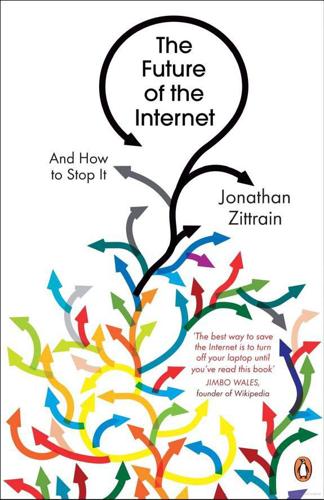
The Future of the Internet: And How to Stop It
by
Jonathan Zittrain
Published 27 May 2009
In either case, the owner of the PC can choose what to do with that last slice of bandwidth, realizing that watching full screen video might, say, slow down a file transfer in the background. (To be sure, on many broadband networks this final link is shared among several unrelated subscribers, causing miniature tragedies of the commons as a file-sharing neighbor slows down the Internet performance for someone nearby trying to watch on-demand video.) The ability to tinker and experiment without watching a meter provides an important impetus to innovate; yesterday’s playful webcams on aquariums and cubicles have given rise to Internet-facilitated warehouse monitoring, citizen-journalist reporting from remote locations, and, as explained later in this book, even controversial experiments in a distributed neighborhood watch system where anyone can watch video streamed from a national border and report people who look like they are trying to cross it illegally7 However, an absence of measurement is starting to have generative drawbacks.
…
See Harvard University, Berkman Center Berners-Lee, Tim, 95 Bessen, James, 190 Bidder’s Edge, 224, 225 biometric readers, 228 BitTorrent, 90, 121, 287n113 BlackBerries, 57, 101, 118, 176 Black Hat Europe hacker convention (2006), 56–57 blogs: from automated robots, 207–8; captcha boxes of, 207–8; censorship of, 113; Libertarian model in, 131; power of, 88, 95; spread of, 148, 151; of teens, 231 Blossom, 195–96 Bomis search engine, 133, 289n19 bookmarks, 58 books.google.com (Web site), 224–25, 242 Bork, Robert, 202 Bostic, Keith, 38 Boston College, data loss by, 204 botnets, 45–47 Boyle, James, 113 Bricklin, Dan, 2 Brin, David, 209 broadband: PC accessibility via, 4; remote updates of, 53; tragedies of the commons in, 158 Brother, “smart” typewriters, 19, 20, 34 browsers, development of, 29 Burning Man festival, 34 business, “long tail” of, 214 “Bus Uncle” of Hong Kong, 211 cable television, 181–82, 183 Camp, Jean, 160 Cap’n Crunch whistle, 40, 42 captcha boxes, 207–8, 227 cars. See motor vehicles Carter, Tom, 22 Carterfone, 22, 25, 26, 81, 121, 182 CB simulator, 23 censorship, 105, 113–17; amplification of, 114–17; circumventing, 180; by commercial filtering programs, 114–15; and endpoint control, 125; Mill on, 98–99, 100; post hoc scrubs, 116; retroactive, 109 CERT/CC (Computer Emergency Response Team Coordination Center), 39, 147–48 chaos, in absence of law, 128 Chapman v.
…
See also AT&T Texas Instruments TI-99/4A, 13 theories of the commons, 78–79 Ticketmaster.com, 207 Timex/Sinclair Z-1000, 13 TiVo, 59, 64, 71, 77, 101, 123, 162, 184; and preemption, 108; and regulator control, 107; and surveillance, 109 TiVo v. EchoStar, 103–4, 107, 108 tolerated uses, 119–22, 190–91 traffic lights: cameras at, 116–17; and verkeersbordvrij, 127–28 tragedies of the commons, 158 transclusion, use of term, 226–27 transferability, 73 transmission speed, irregularity of, 32 trial and error, learning by, 236 Trumpet Winsock, 29 trust: assumptions of, 20–21, 30–32, 39–40, 134, 135, 147; trade-offs with, 33 trusted systems, 105 Tushman, Michael, 24 Twain, Mark (Samuel Clemens), 212, 213 two-factor authentication, 53 typewriters, “smart,” 15, 19, 20, 34 unitary rights holder, 189 United States v.
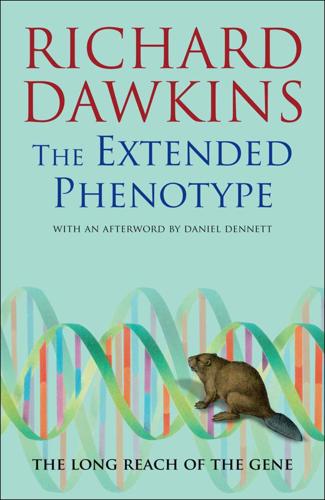
The Extended Phenotype: The Long Reach of the Gene
by
Richard Dawkins
Published 1 Jan 1982
Entities that pay the costs of furthering the wellbeing of the ecosystem as a whole will tend to reproduce themselves less successfully than rivals that exploit their public-spirited colleagues, and contribute nothing to the general welfare. Hardin (1968) summed the problem up in his memorable phrase ‘The tragedy of the commons’, and more recently (Hardin 1978) in the aphorism, ‘Nice guys finish last’. I have dealt with the BBC Theorem and the Gaia hypothesis, because of the danger that my own language of the extended phenotype and action at a distance may sound like some of the more exuberantly extended networks and webs of the TV ‘ecologists’.
…
& May R. M. (1977). Dispersal in stable habitats. Nature 269, 578–581. Hamilton, W. J. & Orians, G. H. (1965). Evolution of brood parasitism in altricial birds. Condor 67, 361–382. Hansell M. H. (1984). Animal architecture and building behaviour. London: Longman. Hardin, G. (1968). The tragedy of the commons. Science 162, 1243–1248. Hardin, G. (1978). Nice guys finish last. In Sociobiology and Human Nature (eds M. S. Gregory et al.). pp. 183–194. San Francisco: Jossey-Bass. Hardy, A. C. (1954). Escape from specialization. In Evolution as a Process (eds J. S. Huxley, A. C. Hardy & E. B. Ford), pp. 122–140.
…
‘walking stick’), 97 stigmergie, 204 strategy, 118 conditional, 121, 131 mixed, 121–122 strawberry runners, 259–262 Streptocarpus, 84 strike, slave ants on, 72–73 subroutines, 122, 129–132 Sunday Times, The (newspaper), 101, 165, 171 supergenes, 241, 244 supernormal stimulus, 68–69 survival of the fittest, 179–180 suture lines, 34, 37 swallow, and distant extended phenotype, 233–234 sweat bee, 150 Swiss Army Knife, 56 symphylic substances, 71 tadpoles, 150 tapeworm, 215 tautology, 42, 180–183, 193 team of genes, 239 teleonomy, 81, 113, 132 temperature, 98–99 termites, 144, 200–206 tetraploid extended genetics, 202–203 thought experiments, 3–4 black pigment, 196–197 chimpanzee green beard, 154 lily pad, 256–258 lupin, 244 strawberry, 259–262 swallow, 233–234 time as resource, 128–129 time lags, 35, 55 tinkering, 39 tissue parasites, 226 tits, 109 tonic signals, 63 trade union spirit, 221–222 trade-off, 210–211 ‘tragedy of the commons’, 237 train velocity analogy, 182 transcription vs translation, 168 transformations, D’Arcy Thompson’s, 2 travel bug, 220 Tribolium, 215, 220 Trypoxylon politum, 78–80 unfalsifiability, 35, 42, 74, 172, 180 uniqueness of the individual, 250 unit of selection, 81, 82, 89 use and disuse, 167, 170 uterus, 184 vehicle, 82, 112, 133, 134, 153, 170, 196, 257, 260 defined, 114 group as, 114–115 reproduction of, 114 venereal diseases, 220 viruses, 220, 226 Waddington Effect, 44 ‘war of attrition’, 49 wasps daughterless, 140–141 digger, 43, 48–50, 118, 121–132 mud-daubing, 78–80 Weismannism, 112, 164, 166, 172 whales, 106–107 wings costly, 42 evolution in bats and birds, 44–45 woodlouse, 150 Wright’s Rule, 104–108 xenophobia, 19 Y-chromosome inertness, 35 yellow-fever mosquito, 138, 139 Zygiella-x-notata, 198–199
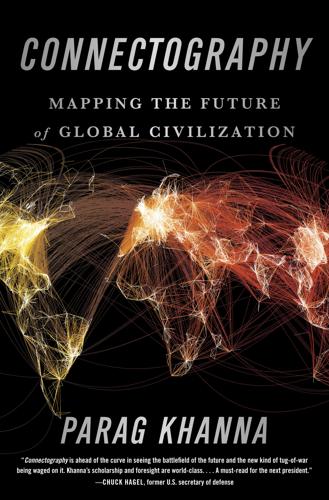
Connectography: Mapping the Future of Global Civilization
by
Parag Khanna
Published 18 Apr 2016
Bachman, adapted for ebook Cover design: Pete Garceau Cover illustration: Michael Markieta/Moment/Getty Images v4.1_r1 a CONTENTS Cover Title Page Copyright Prologue A Note About Maps PART ONE: CONNECTIVITY AS DESTINY CHAPTER 1 FROM BORDERS TO BRIDGES A Journey Around the World Bridges to Everywhere Seeing Is Believing From Political to Functional Geography Supply Chain World Balancing Flow and Friction CHAPTER 2 NEW MAPS FOR A NEW WORLD From Globalization to Hyper-Globalization The Measure of Things A New Map Legend BOX: From Diplomacy to “Diplomacity” PART TWO: DEVOLUTION AS DESTINY CHAPTER 3 THE GREAT DEVOLUTION Let the Tribes Win Growing Apart to Stay Together From Nations to Federations CHAPTER 4 FROM DEVOLUTION TO AGGREGATION Geopolitical Dialectics The New Grand Trunk Road to Pax Indica From Sphere of Influence to Pax Aseana From “Scramble for Africa” to Pax Africana From Sykes-Picot to Pax Arabia BOX: The Israeli Exception? CHAPTER 5 THE NEW MANIFEST DESTINY United States or Tragedy of the Commons? The Devolution Within Pacific Flows Oil and Water Across the World’s Longest Border The North American Union BOX: A South American Union PART THREE: COMPETITIVE CONNECTIVITY CHAPTER 6 WORLD WAR III—OR TUG-OF-WAR? An Ancient Metaphor for Postmodern Times Was Orwell Right? The Calm Before the Storm?
…
*12 Iran is promoting the development of a new gas pipeline across Iraq and Syria to the Mediterranean Sea to supply European markets. Some call this project the “Islamic pipeline” and view it as a competitor to the planned Nabucco pipeline that would carry gas from Azerbaijan to Austria. CHAPTER 5 THE NEW MANIFEST DESTINY UNITED STATES OR TRAGEDY OF THE COMMONS? Here are some startling facts about how Americans relate to their own country: Sixty percent believe the American Dream is out of reach for themselves and their children, and 40 percent of Americans aged eighteen to twenty-four believe they will need to migrate abroad in search for work.
…
Does the energy boom in Texas and the Dakotas mean that wealth is shared with depressed states? Does a thriving technology sector mean that enough Americans are qualified for the best jobs? The answers to these questions will reveal whether America rises as a whole or whether it degenerates into a tragedy of the commons, whether it merely continues as a great but crumbling empire or restores itself as a truly United States. One thing is for sure: In the hypercompetitive supply chain world, just being American is no longer enough. The 2013 bankruptcy of Detroit, once America’s richest city, was not merely an event but a symptom of the reality that residing in a world-class competitive country doesn’t assure the competitiveness of the city.
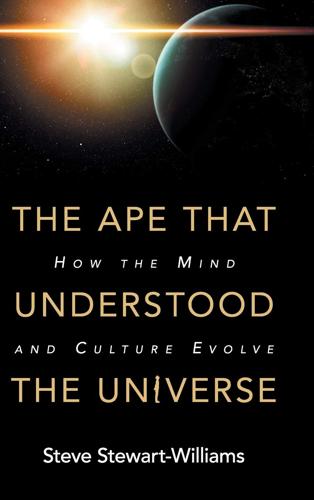
The Ape That Understood the Universe: How the Mind and Culture Evolve
by
Steve Stewart-Williams
Published 12 Sep 2018
The tragedy is that both players would do better if they both cooperated: They’d get three points each instead of the one point they end up with when they both defect. Ironically, then, in a one-shot game, the rational pursuit of self-interest makes both parties worse off. This is a hypothetical example of a real-world phenomenon – a phenomenon the ecologist Garrett Hardin called the tragedy of the commons.43 But what if the virtual animals get to encounter each other again and again, like real animals often do? In that case, the best course of action is no longer quite so obvious. And that’s why we need the computer simulations. Back to the main story. After issuing his invitation for programs to compete in his tournament, Axelrod soon had a diverse collection of contestants, each reflecting its creator’s best guess about which strategy would rack up the most points.
…
Journal of Theoretical Biology, 7, 1–52. Hamilton, W. D. (1996). Narrow roads of gene land: The collected papers of W. D. Hamilton. Oxford, UK: Freeman/Spektrum. Hamilton, W. D., & Zuk, M. (1982). Heritable true fitness and bright birds: A role for parasites? Science, 218, 384–387. Hardin, G. (1968). The tragedy of the commons. Science, 162, 1243–1248. Hardy, K., Brand-Miller, J., Brown, K. D., Thomas, M. G., & Copeland, L. (2015). The importance of dietary carbohydrate in human evolution. Quarterly Review of Biology, 90, 251–268. Harford, T. (2016). How to be a happier man. Men’s Health. Retrieved March 21, 2017, from www.menshealth.co.uk/healthy/stress/how-to-be-a-happier-man Harpending, H. (2013).
…
F. 10, 225 Smith, Adam, 235 smoking, 5, 45, 51, 53, 242, 252, 253, 296, 297, 303 snow monkeys, 66, 91 social psychology, 130, 133, 134, 177–178, 240, see also psychology Social Role Theory, 99–100, 106–107, 113, 116, 313n117 social sciences, 39, 42, 62, 64–65, 112, 114, 117, 123, 192, 283, 289–290, 294, see also Standard Social Science Model (SSSM) sociobiology, 40, 65, 68, 77, 289, 293, 310n8 Sociobiology: The New Synthesis, 157 Sommers, Christina Hoff, 102, 117 spandrels, 57, see also by-product hypothesis speciation in cultural evolution, 227 Spencer, Herbert, 20 Sperber, Dan, 298–299 sperm competition, 169–170, 291 spiders, 4, 11, 37, 51, 53, 54, 66, 73, 90, 110, 185, 188 sports, 62, 106, 202, 242, 255 stabilizing selection, 278 Standard Social Science Model (SSSM), 40, 308n32, see also blank slate view of human nature Star Trek, 122 Steinem, Gloria, 56 Stendhal, 139 Stephens, William, 146 stepparental care, 157–161evolution of, 160–161 stink fights, 67 Story of the Human Body, The, 55 strawberry cheesecake hypothesis, 60, see also by-product hypothesis Streep, Meryl, 148 strong reciprocity, 206, 207, 208–209 suicide, 6, 55, 103, 137–138, 142, 143, 176, 185, 192, 213, see also copycat suicide supernormal stimuli, 52, 60 survival of, the fittest, 20 the fittest genes, 31 the fittest memes, 253, 269 the fittest theories, 229 the prettiest, 120–129 the species, 7, 18–20, 141, 156 the weakest, 278–279 swans, 148, 149 Symons, Donald, 58, 78, 81–82, 83, 89 Tallis, Frank, 138 Taylor, Timothy, 279 technology, 13, 49, 234, 236–237, 244, 272–273, 275, 278–279, 294 teddy bears, 13, 227–228, 261 Tennov, Dorothy, 138–139 termites, 13, 132, 176, 231, 232233 testicle size, see sperm competition testosterone, 128, 170–171, see also sex differences theory of mind, 233, 298–299 Thomas, Andrew G. 72, 76 Thought Contagion, 257 throwing, 273 thumb-sucking, 57–58, 61 tigers, 16, 68, 170, 270271 Tit-for-Tat, 198–200, 201 tolerated theft, 204 Tomasello, Michael, 234 Tooby, John, 40, 46, 47, 50 Top Ten sex differences in nonhuman animals, 66–68, 74, 77 toy boys, 94 tragedy of the commons, 197–198 Trivers, Robert, 68, 69, 70, 72, 193, 194, 196, 197, 198–199 Tucker, Philip, 228–229 Tutankhamun, 136 twins, 25, 69, 182–183, 184, 248, 286 Tylor, E. B. 229 unfalsifiability, see criticisms of evolutionary psychology universal Darwinism, 250 Universal Declaration of Human Rights, 59 universal gravitation, 137, 234, 250 university, 63, 266 vampire bats, 201, 203, 317n23 van den Berghe, Pierre, 84 van Schaik, Carel, 231–232 Vassilyev, Valentina, 69 vervet monkeys, 175, 201 violence, see aggression visual sexual stimuli, 59, 92, see also pornography WEIRD (Western, Educated, Industrialized, Rich, and Democratic), 289, 290, 322n11 Westermarck effect, 132–134, 136, see also incest avoidance Westermarck, Edvard, 133, 134 whales, 193194, 209, 232 what does natural selection select?

More Joel on Software
by
Joel Spolsky
Published 25 Jun 2008
With social interface engineering, you have to look at sociology and anthropology. In societies, there are freeloaders, scammers, and other miscreants. In social software, there will be people who try to abuse the software for their own profit at the expense of the rest of the society. Unchecked, this leads to something economists call the tragedy of the commons. Whereas the goal of user interface design is to help the user succeed, the goal of social interface design is to help the society succeed, even if it means one user has to fail. So a good social interface designer might say, “Let’s not display an error message. Let’s just pretend that the post about Viagra was accepted.
…
See recruiting developers Software Development Engineers in Test (SDETs), 64 solutions to problems, offering, 151–154 Soul of a New Machine (book), 97 source code, access to, 227–230 specifications, and quality, 6, 63–65 specificity, in design, 96 stamps, 96 standards, web, 125–137, 139–141 Structure and Interpretation of Computer Programs (book), 54 style, 218 subpixel rendering, 85–87 sunk costs, 266 Switch User option, 100 Symphony, Lotus, 171 systems creation, 44–45 Systems Hungarian, 196 T Taleb, Nassim, 286 talented software developers, 216–220 tasks creating, 158–159 prioritizing, 292–293 Index 305 teams agendas of, 35 problems of designing as, 95 small, benefits of, 216–217 tech conferences, 11 tech support. See customer service technical beta. See beta testing terminals, smart, 174 testing automated, 61, 63–65 beta, 241–243 text messaging, 106 time estimates. See Evidence-Based Scheduling (EBS) time functions, 4–6 time tracking in schedules, 159–160 Torvalds, Linus, 74 Toyoda, Sakichi, 286 tragedy of the commons, 108 training, vs. bribing, 41–45 U UIs (user interfaces), 65, 89–92 universities. See college courses Unix-Windows cultural war, 65 unlimited licenses, 274 usability, 103, 105–110 Usenet, 106–107, 112–113 User Interface Design for Programmers (book), 103 user interfaces (UIs), 65, 89–92 UsRequest function, 190 V values, social, 29 Variants, 3 velocity, 160–161 versions of software, 272–273 Viacom, 68, 227 Visual Basic for Applications, 71 Visual Basic for Excel, 3 Visual C++, 229 W wages.
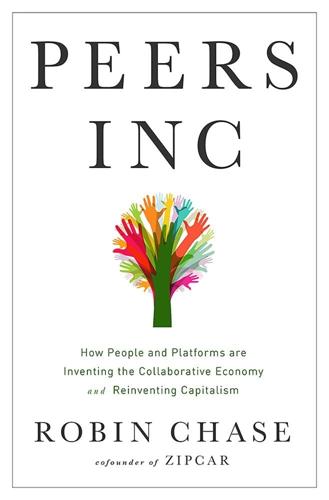
Peers Inc: How People and Platforms Are Inventing the Collaborative Economy and Reinventing Capitalism
by
Robin Chase
Published 14 May 2015
All of these ideas and practices are captured in a different framing by a hero of mine. Well, Elinor Ostrom is not just my hero, but one for others as well, since she won the Nobel Prize in economics in 2009 for her analysis of economic governance especially for commons. Lots of us have heard about the tragedy of the commons: When people share a resource but don’t own it, everything goes to hell because they don’t care. As you know, this was not my experience with Zipcar, which proved to be a shock to investors and business pundits. And it was this reality that led to the founding of dozens of other successful sharing-economy companies.
…
Drupal is not alone in this regard either, as other well-known FOSS projects, such as Linux and WordPress, have massive communities of peers and a flurry of annual events. Despite these many success stories, the technology landscape is littered with tales of FOSS that failed by not providing engineers with a way to organize and evolve productively, frequently suffering a tragedy of the commons and becoming mere footnotes in the history of the Web. The bigger and more successful the platform, the more it is perceived as a common pool resource, and the more its peers feel entitled to a say. I’ll talk more in Chapter 7 about how and when government might play a role in protecting the rights of peers.

The World's First Railway System: Enterprise, Competition, and Regulation on the Railway Network in Victorian Britain
by
Mark Casson
Published 14 Jul 2009
Case 1. h ¼ 1; sj1* ¼ 0: The mapping from relative size to market share in this case is indicated by the diagonal line O1O2. There is no minimum size for a Wrm’s network: each Wrm shares the market in direct proportion to its number of stations. This case is analogous to the well-known ‘tragedy of the commons’ (Hardin 1968). Indeed, the present model may be seen as a generalization of the ‘tragedy of the commons’ model to the case where sj1* > 0. The analogy with the tragedy of the commons arises because the rival Wrms are both ‘grazing’ to obtain customers in the same way that animals graze on pasture to obtain food. Each Wrm invades territory currently occupied by the other Wrm by building a new station.
…
Gourvish, Terry (1993) What kind of railway history did we get? Forty years of research, Journal of Transport History, 3rd series 14(2), 111–25. —— (ed.) (1996) Railways, Vol. II, Aldershot: Scolar Press. Haggett, Peter and Richard J. Chorley (1969) Network Analysis in Geography, London: Edward Arnold. Hardin, Garrett (1968) The tragedy of the commons, Science, 162, No. 3859, 1243–8. Harrison, David (2004) The Bridges of Medieval England: Transport and Society 400–1800, Oxford: Oxford University Press. Hatcher, John (1993) The History of the British Coal Industry, Volume 1: Before 1700: Towards the Age of Coal, Oxford: Clarendon Press.

Darwin's Dangerous Idea: Evolution and the Meanings of Life
by
Daniel C. Dennett
Published 15 Jan 1995
If only those redwoods could get together and agree on some sensible zoning restrictions and stop competing with each other for sunlight, they {255} could avoid the trouble of building those ridiculous and expensive trunks, stay low and thrifty shrubs, and get just as much sunlight as before! [Dennett 1990b, p. 132.] But they can't get together; under these circumstances, defection from any cooperative "agreement" is bound to pay off if ever or whenever it occurs, so trees would be stuck with the "tragedy of the commons" (Hardin 1968) if there weren't an essentially inexhaustible supply of sunshine. The tragedy of the commons occurs when there is a finite "public" or shared resource that individuals will be selfishly tempted to take more of than their fair share — such as the edible fish in the oceans. Unless very specific and enforceable agreements can be reached, the result will tend to be the destruction of the resource.
…
(Are they denied the vote? Why do they put up with it?) As the biologist David Sloan Wilson and the philosopher of biology Elliot Sober (Wilson and Sober 1994) have suggested, we can learn a lot about our social problems of defection (e.g., promising and then reneging on the promise) and Hardin's tragedy of the commons (see chapter 9) by considering how our ancestors, going back to the first eukaryotes, managed to achieve "harmony and coordination of their parts." The lessons to be learned are tricky, however, because the cells that compose us belong to two very different categories. An average human is normally host to billions of symbiotic organisms belonging to perhaps a thousand different species....
…
Particularly fascinating in the directions opened up by Kitcher's analysis is the emergence of groups in which the strong and the weak would tend to segregate themselves and prefer to cooperate with their own sort. Could this set the stage for something like the Nietzschean transvaluation of values? Stranger things have happened. Stephen White (unpublished) has begun to investigate the important further complexities of the multi-person Prisoner's Dilemma. (This is the game that leads to the tragedy of the commons, creating both depleted fish stocks in our oceans and forests of tall trees.) As Kitcher points out, the simple scenarios are analytically tractable — the equations of interaction and their expected yields can be solved directly by mathematical calculation — but as we add more realism, and hence complexity, the direct solution of the equations becomes unfeasible, so we have to turn to the indirect methods of computer simulation.
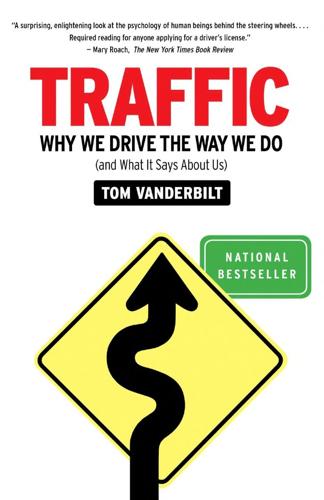
Traffic: Why We Drive the Way We Do (And What It Says About Us)
by
Tom Vanderbilt
Published 28 Jul 2008
Studies in Leeds, England, for example, found that economically disadvantaged areas had higher levels of nitrogen dioxide. See G. Parkhurst, G. Dudley, G. Lyons, E. Avineri, K. Chatterjee, and D. Holley, “Understanding the Distributional Impacts of Road Pricing,” Department of Transport, United Kingdom, 2006. by Garrett Hardin: See Garrett Hardin, The Tragedy of the Commons.” Science, December 13, 1968. oft-invoked “tragedy”: Shi-Ling Hsu, “What Is a Tragedy of the Commons? Overfishing and the Campaign Spending Problem,” February 21, 2005, bepress Legal Series, Working Paper 463; http://law.bepress.com/expresso/eps/463. any traffic engineer: Gary Toth, a planner with the New Jersey Department of Transportation, told me in a conversation in early 2007: “We ran a calculation this week for the twenty congestion-related projects that I have in my division.
…
In economics, a “public good” is something that a person can consume without reducing someone else’s ability to consume that same thing or exclude them from doing so—sunlight, for example. An empty road late at night might be thought of as a public good, but a road with any kind of congestion on it quickly becomes “subtractable”—the more people who use it, the worse it performs. This is the famous “tragedy of the commons,” as described by Garret Hardin, in which a pasture open to all is quickly filled up by herders who want to graze as many cattle as possible. Every time a herder adds a cow, he gains. The pasture eventually begins to suffer from overgrazing, but a herder still adds animals because he alone benefits from his gain, even if the returns are diminishing (and they ultimately vanish), while everyone shares the costs of that new animal.
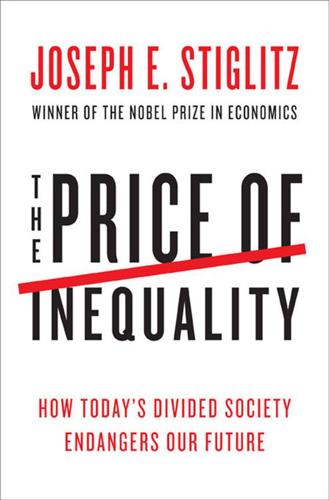
The Price of Inequality: How Today's Divided Society Endangers Our Future
by
Joseph E. Stiglitz
Published 10 Jun 2012
Some economists have argued that this was desirable, because it avoided the problem of overgrazing, a problem that was called the “tragedy of the commons.” But far larger than the efficiency effect were the distributive effects: large numbers lost their livelihood and became impoverished. As the Nobel Prize–winning economist/political scientist Elinor Ostrom has pointed out, there are other ways to avoid the tragedy of the commons and to ensure that the resources are well managed—such as simply regulating the number of sheep that can graze. These can do just as well in attaining efficiency, but with far better social consequences. The true tragedy of the commons was that with the privatization of the commons by the lords, thousands became destitute and had to migrate either to the cities of Britain or abroad.
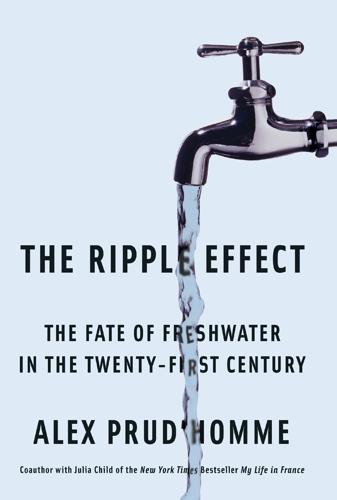
The Ripple Effect: The Fate of Fresh Water in the Twenty-First Century
by
Alex Prud'Homme
Published 6 Jun 2011
THE AGE OF RESTORATION The greatest threat to freshwater supplies is human indifference. It has allowed disease, poverty, conflict, and environmental destruction to proliferate. Some fear that humans have already passed the world’s hydrologic tipping point. In an influential 1968 article in Science, titled “The Tragedy of the Commons,” Garrett Hardin, a leading American ecologist, wrote of “the damage that innocent actions by individuals can inflict on the environment” and described the pattern by which people acting in their own self-interest destroy shared resources. The hypothetical example he used focused on medieval farmers who shared a field, “the commons,” and allowed their cattle to graze indiscriminately.
…
See also Campana, “The Human Right to Water.” 357 240,000 water pipes burst every year: “Aging Water Infrastructure,” US Environmental Protection Agency: http://www.epa.gov/nrmrl/pubs /600f07015/600f07015.pdf. 357 650 water mains break every day: “ITT’s Value of Water Survey Reveals That Americans Are Ready to Fix Our Nation’s Crumbling Water Infrastructure,” October 27, 2010. 357 made of wood: Michael Cooper, “Aging of Water Mains Is Becoming Hard to Ignore,” New York Times, April 17, 2009. 357 “dawn of the replacement era”: “Water infrastructure at a turning point,” American Water Works Association, 2010. 357 America’s water systems cost $1 trillion a year: “FAQ,” American Water.com. 357 will require a $334 billion investment: Mae Wu, “More money to improve drinking water,” Natural Resources Defense Council, May 12, 2010. 357 the US Conference of Mayors: Bob Herbert, “The Corrosion of America,” New York Times, October 26, 2010. 358 Garrett Hardin: Garrett Hardin, “The Tragedy of the Commons,” Science, December 13, 1968. 358 Bob Hirsch: http://water.usgs.gov/dispatch/2008/podcast/wolman-lecture-transcript.html. 358 Stephen Ambrose’s writings: Stephen Ambrose, Undaunted Courage: Meriwether Lewis, Thomas Jefferson, and the Opening of the American West (New York: Simon & Schuster, 1996). 359 “The Nation’s Rivers”: M.
…
Paul, Minn., 108 Salazar, Ken, 148, 323, 360 salmon, 350 Atlantic, 318 copper as neurotoxin for, 310 farm-raised, 319 salmon, Pacific, 318–19 in Bristol Bay fishery, 306, 308, 309, 313–14, 317–18, 323 in Sacramento–San Joaquin Delta, 241, 246, 247, 248, 249 Salmon Trout River, 85 Salt Lake City, Utah, 303 Salton Sea, 154 Salt River Project, 326 Salt River Valley, 133 salt water, aquifers infiltrated by, 11–12, 22, 109, 126, 210, 240, 258 San Antonio, Tex., 262, 279 sandhogs, 118, 121, 122–24, 211 Sandia National Laboratories, 278, 279 San Diego, Calif., 71, 111–12, 113, 154, 165, 180 San Diego Coastkeeper, 112 San Diego County, Calif., 335 San Diego County Water Authority, 337 San Diego Regional Water Quality Board, 336, 337 San Diego Tribune, 111 San Fernando Valley, 152–54 San Francisco, Calif., 60, 181, 241, 242, 303 municipal water quality in, 301 1989 earthquake in, 128 San Francisco Bay, 60, 243 San Francisco Chronicle, 193 Sangre de Cristo Mountains, 146, 150 sanitation, 127, 349 San Joaquin River, 189, 248–49 see also Sacramento–San Joaquin Delta San Joaquin Valley, 249 San Juan Mountains, 146 San Lorenzo Valley Water District, 273 San Luis Valley, 145–46 aquifers of, 143–44, 146, 256, 258 farmers in, 146 pipeline projects for, 146–50 San Luis Valley Ecosystem Council, 150 San Pellegrino, 301–2 Santa Barbara, Calif., 331, 356 Saratoga, Battle of, 217 Satterfield, Bill, 82 Saudi Arabia, 288, 329, 332 Saur, 266 Savannah River, 75–76 Sawtooth Valley, 319 Schaefer, Vincent, 328 Schuylkill River, 62 Schwarzenegger, Arnold, 179, 185–86, 188, 192–93, 242, 246, 249, 252, 253, 337, 345 Science, 357, 359 Science Daily, 209 ScienceNow, 67 Scientific American, 259 Scripps Institution of Oceanography, 162–63 Seagar, Richard, 134, 206 sea grasses, 88 sea levels, rising, 203, 210, 211, 212, 231 Seattle, Wash., 128 Seed, Raymond, 224–25, 253 Segerfeldt, Fredrik, 277 Seggos, Basil, 25–26 SEMAPA, 274–76 Semenya, Caster, 77–78 Senate, US, 138, 177 September 11, 2001 terrorist attacks, 4, 26 Serageldin, Ismail, 12, 198 sewage, 54, 56, 82, 208, 357 cholera and, 107 population growth and, 110 sewage treatment, sewage treatment plants, 51, 52–54, 76, 205 activated sludge process in, 59 biosolids from, 67 CSOs and, 54–56, 59–61 digesters in, 58–59, 62 energy use by, 279 flooding of, 205, 207–8 outfalls of, 53, 54, 59, 60 privatization of, 266, 269 recycled water from, see recycled wastewater three stages in, 57–58, 111 sewer systems, 9–10, 51, 60, 212, 357 combined, 52–57, 61 separate-pipe, 55 sexual differentiation, 78 Seychelles, 210 shale, 279, 282–83, 284, 287, 350 oil extraction from, 287–89 Shanghai, China, 273 sharp-tooth catfish, 75 Sheffield, Bill, 313 Sheldon, Karin, 289 Shenandoah River, 79, 84–86 fish kills in, 85–86 intersex fish in, 75, 85 Shenandoah Riverkeeper, 85–86 Shenandoah Valley, 79 poultry industry in, 80–81 Shimshack, Jay, 101 Shively, John, 305, 312–17, 320, 322, 323, 324 Shoaiba Desalination Plant, 332 shovelnose sturgeon, 75 shrimp, 95 Sierra Club, 181, 209, 264 Sierra Nevada Mountains, 151, 162, 167, 244 as early-warning system for climate change, 191–92 snowpack of, 130, 189–92, 241, 244, 249 Silent Spring (Carson), 184 Silt, Colo., 284–85 Silva, Peter, 101 Silver Bow Creek, 41 silver iodide, 328–29 Silver Lake, PCBs in, 34, 39 Singapore, 110 water management in, 353–54 Sites Reservoir, 186, 193 sludge, from sewage, 59 slurry, 102 smallmouth bass, 74–75, 76, 85–86 smelt, 241, 245, 247, 248, 350 Smith, Adam, 13, 343 Smith, Jim, 285 Smith, Roxanne, 68 Snake Valley, 161–62, 169–70, 171, 173 Snow, John, 107 Snow, Lester, 179, 186, 187–88, 192, 193 snow geese, 41 snowmelt, 144, 162, 169, 191, 198, 218, 241, 244, 249 snowpack: extreme fluctuations in, 190 shrinking of, 129, 130, 174, 189–92, 290 snow water equivalent (SWE), 190–91 Sny levee, 214 soft engineering, 233–35 Soft Path water management, 348–49 solar power, 348 water use by, 278, 279 Solomon, Steven, 353 Somalia, 128 Sonoran Desert, 131–32, 167, 325, 339 Sorensen, Kathryn, 327 South Africa, 75, 124, 274, 309 South America, 93 South Carolina, 128 South Dakota, 258, 357 Southeast, US: drought in, 205–7, 235 flooding in, 207–8 Southeast Asia, 197, 198 Southern Nevada Water Authority (SNWA), 68, 161, 163 “third straw” outtake pipe of, 175 water-conservation programs of, 163–65 Southern Nevada Water Authority (SNWA), pipeline proposal of, 159, 161–74 environmental impact of, 169–70 legal challenges to, 173–74 Utah and, 171, 173 South Florida Water Management District, 47 South Korea, 42, 197 Southwest, US: climate change and, 134 droughts in, 133–34, 160–61 population growth in, 278 see also West, US soybean production, 95 Spain, 267 droughts in, 10, 124 Sparks, Nev., 141, 159 Spath, David, 112 Special Assistant for Natural Resources, 320 Spitzer, Eliot, 26 spottail shiners, 75 Spring Valley, 169, 172 springwater, 296 Spruce No. 1 Mine, 104 Stagg, Tom, 17 Stahl, Glen, 44–45, 46, 48, 50 Standard Oil Company, 21, 26 Stanley Electric Company, 34 Staples, Todd, 262 State Water Project (SWP), 241, 244–46 Statue of Liberty, 217 Steamboat Slough, Calif., 234 Steinbeck, John, 117 Stewart, Jon, 247 Stockman’s Water Company, 147–48 stomach cancer, 17 Stone and Webster, 332 Stony Brook Storm Surge Research Group, 212 storm surges, 210 storm-water runoff, 43–44, 51, 64, 126, 207 in combined sewer systems, 52–57 “green street” programs and, 212, 348 see also agricultural runoff streamgages, 207 striped bass (rockfish), 88, 89 Strong, Hanne, 143, 145–46, 147 Strong, Maurice, 143–47, 256 Stupak, Bart, 196 suburban sprawl, 153–54 Sudan, 197, 198 Suez Canal, 270 Suez Lyonnaise des Eaux, 2, 265, 266, 270–72, 273, 274, 276 sugar pines, 192 Suisun Bay, 243 sulfur hexafluoride, 93–94 Sunday Telegraph (UK), 71 Superfund National Priorities List, 38 Superfund sites, 20, 28–29, 39, 103, 338, 339 Superior, Lake, 196 Supreme Court, US, 40, 147, 280 Kensington mine decision of, 316–17 Rapanos decision of, 100–101, 216, 344 water competition and, 195–96 surface storage, see reservoirs surface water, 17–18, 125, 257, 359 Surfrider Foundation, 336 Susquehanna River, 73 sustainability, 325–26 Sweden, 286 Sweetwater Creek, 207 synthetic crude oil, 288, 289 Syria, 130, 196–97 tailings, 307, 315 Taiwan, 33 Taliban, 198 Tampa, Fla., 332–34 Tampa Bay Water (TBW), 332–34 Tappening, 303 tar sands, oil extraction from, 289–90 Taylor, Tracy, 172, 173–74 Teck Alaska Inc., 313 Teck Cominco, 311 Temperance Flat dam project, 186, 193, 249, 250, 252 temperature, water quality and, 18 Tennessee, 219 Tennessee Valley Authority (TVA), 102 Ternes, Thomas, 69 testicular oocytes (TO), 75, 85 Teton Dam, 184 Texans for Public Justice, 263 Texas, 12, 196, 240, 280 droughts in, 128, 208, 256, 257, 261–62, 264–65, 279 floods in, 208, 219 Ogallala Aquifer in, 258, 260 population growth in, 256, 257 water rights in, 257, 298 water use in, 125, 257 Texas City, Tex., 227, 231 Texas Panhandle, 255, 260 Texoma, Lake, 261 Thames River, 71, 212 There Will Be Blood (film), 255 “Think Outside the Bottle” campaign, 301 Thompson, Doug, 245 Three Gorges Dam, 307, 354 Threemile Canyon Farms, 48 Three Mile Island nuclear plant, 184 three-spine stickleback, 75 Tibet, 198 tidal surges, 208 Tigris-Euphrates basin, 199 Tigris River, 130, 196, 197 Time, 19, 256 Tinajas Altas, 131 Tocqueville, Alexis de, 325 Tolba, Mostafa, 12 toluene, 287 Tosco, 143 total maximum daily loads (TMDLs), 96–97 Totowa, N.J., 1 toxins, toxic waste, 20, 86 bioaccumulation of, 33 from hydrofracking, 284, 286–87 from mining, 307, 308, 310, 313–14 Tracy, Calif., 244–45 Tracy Pumping Plant, 245 “Tragedy of the Commons, The” (Hardin), 357–58 trans-Alaska oil pipeline, 313 Transocean, 228–29 Treasure Island (casino), 164–65 trees, climate change and, 130 Treml, Judy, 44–46, 48, 50 Treml, Samantha, 44–46, 48 Treml, Scott, 44–46, 48 Tribe, Laurence, 39 trichlorobenzene, 32–33 trichloroethylene (TCE), 16, 339 triclocarban, 5, 67, 351 Trinity Dam, 183 Trinity River, 261 Trout Unlimited, 319 Truckee Canal, 216 tsunamis, 208, 354 Tucson, Ariz., 67 Tucson Citizen, 133 tule elk, 244 Tule Queen II, 233 tules, 234–35 tunnel-boring machines (moles), 123 Tuolumne River, 181 Turkey, 130, 196–97 Twain, Mark, 198 Tyonek, Alaska, 322 typhoid fever, 18 Tyson Foods Inc., 81 Uganda, 197 ultrapure water, 113, 339 ultraviolet (UV) disinfection, 111 Umma, 199 Unconfined Aquifer, 144 United Kingdom (UK), 75, 76, 267 floods in, 200, 204, 212 United Nations (UN), 93, 124, 145, 268, 276, 352 Development Goals of, 199 Food and Agriculture Organization of, 352n water crisis warnings of, 12, 127, 194, 196, 199 United States: annual wastage of water in, 120 assumptions about drinking water in, 9–10, 126 desalination plants in, 331 droughts in, 12, 128, 133, 361–62 energy demand in, 280 flood control in, 210–13 floods in, 12, 95–96, 128, 204, 207–8, 209–10, 326, 354–55 natural gas use in, 286 need for national water policy in, 354 population growth in, 280 water use in, 125–26, 186–87 see also specific regions and states United Water, 2, 271–72 United Water Resources, 2 Unquenchable (Glennon), 341–42 Upper Clark Fork River, 41 Upper Talarik Creek, 305 Upper Yellowstone River, 85 uranium, 20 urban heat-island effect, 132–33 urbanization: global, 124, 204 see also cities urban sprawl, 154, 206 usufructuary rights, 137 Utah, 169–70, 171, 174, 288 Vaca Partners, 147, 149 Valencia, Pablo, 131–32 value: paradox of (diamond-water paradox), 13, 343 of water, 13, 166, 167, 176–77, 240, 250, 266–67, 343–45, 355–56 Van Cortlandt Park Valve Chamber, 121–22, 124 Vanity Fair, 276, 286 Venice, Italy, 212 Veolia, 265, 266, 268, 269–70, 272, 273, 276 Vermont, 299 Verrado, Ariz., 327 Vibrio cholerae, 107 Vidler Water Company, 159 Vietnam War, 220 Villaraigosa, Antonio, 157, 158 vintners, viniculture, 137 Virginia, 83 water-quality standards of, 79 Virginia Institute of Marine Science, 90 Virginia Poultry Federation, 86 Virgin River, 160, 175 “virtual water,” 137 VISTA, 312 Vivendi, 270, 274 Volta River, 130, 196 Vonnegut, Bernard, 328 Wade, Michael, 193, 251–52 Waldrop, Bob, 320 Wall Street Journal, 101, 265, 273, 320, 333, 337 Wanger, Oliver, 246 Warm Springs Dam, 185 War of 1812, 217 Wasatch Mountains, 167 Washington, 318, 319, 357 Washington, DC, 55, 67, 71, 83 Washington Post, 91, 99 Waste Management Healthcare Solutions, 68 wastewater treatment, see recycled wastewater; sewage treatment, sewage treatment plants water: as axis resource, 4–5, 13, 14, 239, 265, 343, 355 bottled, see bottled water commodification of, 260–66, 268, 277 as defining resource of twenty-first century, 343 energy used by treatment, conveyance, and heating of, 278, 279 fixed supply of, 12, 129, 166, 235, 239, 343–44 global distribution of, 129 as human right, 266, 267–68, 277 power generation use of, 125–26, 278–91 rationing of, 240 as renewable resource, 343–44 valuation of, 13, 166, 167, 176–77, 240, 250, 266–67, 343–45, 355–56 “wet” vs.
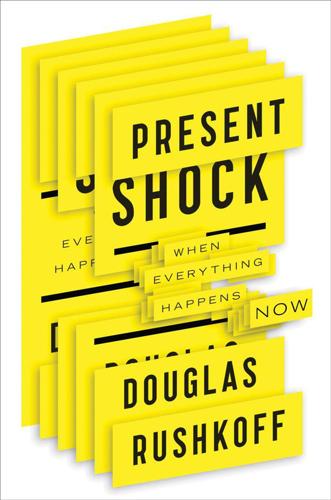
Present Shock: When Everything Happens Now
by
Douglas Rushkoff
Published 21 Mar 2013
Customers must see themselves as beneficiaries of their own investment in alpha- and beta-level software, competitors must see themselves as participants in the overall value creation unleashed by the project, and the initial developers must trust in their ongoing ability to innovate even after what they have shared is copied by others. It requires some underlying commons for it to work, because only the commons has a stake in the long-term repercussions of our actions. So far, most of us seem incapable of thinking this way. That’s what is meant by the tragedy of the commons. A bunch of individuals, acting independently and out of self-interest, may deplete a shared resource even though it hurts everyone in the long run. It applies to corporations that externalize costs such as pollution, but it’s what happens when net users illegally download music and movies, expecting others to pick up the tab.
…
See also calendars; clocks; specific topic time binding, 137–40, 194, 261 Time Dollars, 149 timescales: multiple, 131–37, 140–49; overwinding and, 7, 131–37, 140–49, 190; temporal diversity and, 133–34 Timewave Zero, McKenna’s, 252 Toffler, Alvin, 4, 9, 14–15, 16 trade, international, 80, 175 trading, investment. See financial markets tragedy of the commons, 192–93 transparency, 64, 216, 222, 223 TripTik, Rushkoff’s experience with, 109 trucking industry, 127–28 Trump, Donald, 36 trust/distrust, 39, 53, 80–81, 171, 213, 233 truth, 50–51 Turner, Mark, 13 Turner, Ted, 46 28 Days Later (movie), 249–50 28 Weeks Later (movie), 249–50 Twitter: apocalypto and, 265; digiphrenia and, 72, 74, 99, 119; fractalnoia and, 203, 205, 210, 211; narrative collapse and, 47, 51, 64; new “now” and, 2, 3, 6; overwinding and, 142, 143; real-time news and, 47 Unabomber, 256 University of Southern California (USC), Institute for Creative Technologies at, 65–66 U.S.
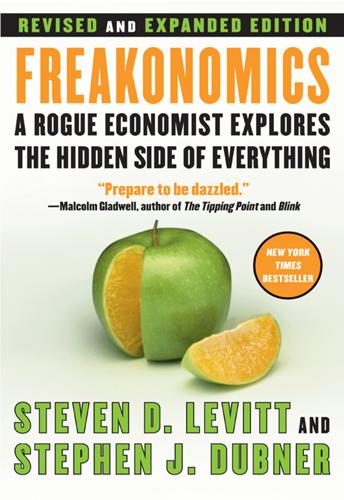
Freakonomics: A Rogue Economist Explores the Hidden Side of Everything
by
Steven D. Levitt
and
Stephen J. Dubner
Published 11 Apr 2005
For someone who thinks strategically, or would like to think strategically, the basic tools of game theory are essential. The beauty of Schelling’s class was how easy the math was and how readily it applied to real world settings. The topics of the course were basic: the Prisoner’s Dilemma in lecture 1; Schelling’s own “tipping point” model in lectures 2 and 3; the tragedy of the commons and public-goods games after that; then commitment devices, credible and non-credible threats, and the strategy and tactics of controlling one’s own behavior. (For those who are unaware, Schelling coined the term “tipping point” thirty years before Malcolm Gladwell made it popular.) Any economist could have taught the subjects in the class, but no one would have taught it as Schelling did.
…
SUVs swimming pools, drowning in Switzerland Szilagyi, John taxes cheating on evasion of “sin” withholding of tax gap teachers bonuses for cheating to meet testing standards by firing of incentives of male vs. female proficiency of television Temple, Shirley terrorism deterrence of fear of money raising for threats of see also Ku Klux Klan; September 11 terrorist attacks testing: of adopted children of black vs. white children data of family factors and of girls vs. boys high-stakes multiple-choice repeat teacher cheating to meet high standards of Texas, University of Texas, University of, at Arlington Southwestern Medical Center at Thaler, Richard Theory of Moral Sentiments, The (Smith) Thomas, Clarence Thurmond, Strom Time tipping point tips, pooling of Tokhtakhounov, Alimzhan Tour de France tragedy of the commons Trilby (Levitt’s friend) Tuskegee Institute twin studies Twitchell, James B. “Understanding the Black-White Test Score Gap in the First Two Years of School” (Fryer) “Understanding Why Crime Fell in the 1990’s: Four Factors That Explain the Decline and Seven That Do Not” (Levitt) Undis, David union busting United Network for Organ Sharing University Press of Florida utility maximization Venkatesh, Sudhir Vienna voting Wade, Henry Waksal, Sam Walk, Hunter Wall Street Journal Wal-Mart Washington Merry-Go-Round Weakest Link, The weapons of mass destruction weather weight loss West Palm Beach airport When Bad Things Happen to Good People Wikipedia William Morris Agency William Morrow/HarperCollins Wilson, James Q.
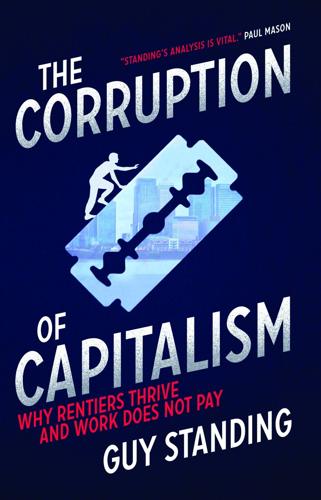
The Corruption of Capitalism: Why Rentiers Thrive and Work Does Not Pay
by
Guy Standing
Published 13 Jul 2016
And all are more important for the precariat than for those above them in the class spectrum. For that reason, as suggested later, the precariat has the most interest in recovering the commons from rent seekers. Ironically, the neo-liberal era has brought about the realisation of Garrett Hardin’s ‘tragedy of the commons’. In a famous article in 1968, Hardin claimed that the commons was doomed to depletion because every user had an incentive to maximise what they could take out of it. Although the argument had been made before, it was seized upon by neo-liberal economists to justify privatisation. Yet the claim was always contested.
…
W. 1 Phillips curve 1 ‘pig cycle’ effects 1 Piketty, Thomas 1, 2 Pinochet, Augusto 1, 2, 3 platform debt 1 Plato 1 plutocracy 1, 2, 3, 4, 5, 6, 7, 8, 9, 10, 11, 12, 13 Polanyi, Karl 1 policing 1 political consultancy 1 Politico magazine 1 Ponzi schemes 1 Poor Law Amendment Act (1834) 1 POPS (privately owned public spaces) 1 Portfolio Recovery Associates 1 ‘postcapitalism’ 1 poverty traps 1, 2, 3 precariat and commons 1, 2, 3, 4, 5 and debt 1, 2 and democracy 1, 2 emergence of 1 growth of 1, 2 and rentier platforms 1, 2, 3 revolt of see revolt of precariat predatory creditors 1 ‘primitive rebel’ phase 1 Private Landlords Survey (2010) 1 privatisation and commons 1, 2, 3, 4, 5, 6, 7, 8, 9 and debt 1, 2 and democracy 1 and neo-liberalism 1 and rentier platforms 1 and revolt of precariat 1 and shaping of rentier capitalism 1, 2, 3, 4, 5, 6, 7 professionalism 1 ‘profit shifting’ 1 Property Law Act (1925) 1 Proudhon, Pierre-Joseph 1 Public and Commercial Services Union 1 PricewaterhouseCoopers (PwC) 1, 2, 3. 4, 5, 6 QE (quantitative easing) 1, 2, 3, 4, 5, 6 Quayle, Dan 1 QuickQuid 1 Reagan, Ronald 1, 2 reCAPTCHA security system 1 ‘recognition’ phase 1 ‘redistribution’ phase 1 Regeneron Pharmaceuticals 1 rentier platforms and automation 1 and cloud labour 1 and commodification 1 and ‘concierge’ economy 1 ecological and safety costs 1 and occupational dismantling 1 and on-call employees 1 and precariat 1, 2, 3 and revolt of precariat 1, 2 and ‘sharing economy’ 1, 2, 3, 4 and underpaid labour 1 and venture capital 1 rentiers ascendency of 1, 2 and British Disease 1 classical images of 1 and commons see commons and debt 1, 2, 3, 4, 5, 6, 7 and democracy 1, 2, 3, 4, 5, 6, 7 digital/tasking platforms see rentier platforms ‘euthanasia’ of 1, 2, 3, 4, 5, 6, 7 lies of rentier capitalism 1, 2, 3 revolt of precariat see revolt of precariat shaping of see shaping of rentier capitalism subsidies for 1, 2, 3, 4, 5, 6, 7, 8, 9, 10 ‘representation’ phase 1 ‘repression effect’ 1 Research of Gartner 1 revolt of precariat and basic income systems 1 and commons 1, 2, 3, 4, 5 ‘euthanasia’ of rentiers 1, 2, 3, 4, 5 inequality of rentier capitalism 1, 2, 3 and intellectual property 1, 2, 3 and neo-liberalism 1, 2, 3, 4, 5, 6 organisational forms 1 potential growth of movement 1 progressive political reengagement 1, 2 and rentier platforms 1, 2 rights as demands 1 sovereign wealth funds 1 wage and labour regulation 1, 2 ‘right to buy’ schemes 1, 2, 3, 4 Robbins, Lionel 1 Rockefeller, David 1 Rockefeller, John D. 1 Rolling Stone 1 Romney, Mitt 1 Roosevelt, Franklin D. 1 Ross, Andrew 1 Ross, Michael 1 Rothermere, Viscount 1, 2 Royal Bank of Scotland 1, 2 Royal Mail 1 Royal Parks 1 Rubin, Robert 1, 2 Rudd, Amber 1 Ruralec 1 Ryan, Conor 1 Sainsbury, Lord 1 Samsung 1, 2, 3 Sanders, Bernie 1, 2, 3 Sassen, Saskia 1 school–business partnerships 1 Schröder, Gerhard 1 Schwab Holdings 1 Schwarz, Dieter 1 Scottish Water 1 Second Gilded Age 1, 2, 3 Securitas 1 securitisation 1, 2, 3 selective tax rates 1 Selma 1 shaping of rentier capitalism branding 1 Bretton Woods system 1, 2, 3 and copyright 1 and ‘crony capitalism’ 1, 2, 3 dispute settlement systems 1, 2, 3 global architecture of rentier capitalism 1 lies of rentier capitalism 1 and neo-liberalism 1, 2 patents 1 and privatisation 1, 2, 3, 4, 5, 6, 7 and ‘shock therapy’ 1, 2 trade and investment treaties 1 ‘sharing economy’ 1, 2, 3, 4, 5, 6 Shelter 1 ‘shock therapy’ 1, 2, 3, 4 Shore Capital 1 Sierakowski, Slawomir 1, 2, 3, 4 silicon revolution 1 Simon, Herbert 1 Sirius Minerals 1 Skoll Centre for Social Entrepreneurship 1 Sky UK 1, 2 SLABS (student loan asset-backed securities) 1, 2 Slim, Carlos 1, 2 Smith, Adam 1 Snow, John 1 Social Care Act (2012) 1 social commons 1, 2, 3 social dividend systems 1, 2 social housing 1 ‘social income’ 1, 2, 3, 4, 5, 6, 7, 8 social strike 1 SoFi (Social Finance) 1 Solidarność (Solidarity) movement 1 South West Water 1 sovereign wealth funds 1 spatial commons 1, 2 Speenhamland system 1, 2, 3 Spielberg, Steven 1 Springer 1 ‘squeezed state’ 1 Statute of Anne (1710) 1 Statute of Monopolies (1624) 1 StepChange 1 Stevens, Simon 1 ‘strategic’ debt 1 strike action/demonstrations 1, 2, 3 student debt 1, 2 subsidies 1 and austerity 1, 2 and bank ‘bailouts’ 1 and charities 1 and ‘competitiveness’ 1 direct subsidies 1 and moral hazards 1 and ‘non-dom’ status 1 and quantitative easing 1, 2 for rentiers 1, 2, 3, 4, 5, 6, 7, 8, 9, 10 selective tax rates 1 and sovereign wealth funds 1 subsidised landlordism 1 tax avoidance and evasion 1 tax breaks 1, 2, 3, 4, 5 tax credits 1 Summers, Larry 1, 2 Sun, The 1, 2 Sunday Telegraph 1 Sunday Times 1 Sutton Trust 1 ‘sweetheart deals’ 1 tasking platforms see rentier platforms TaskRabbit 1, 2, 3, 4, 5 Tatler magazine 1 tax avoidance/evasion 1 tax breaks 1, 2, 3, 4, 5 tax credits 1, 2, 3 Tax Justice Network 1 Tax Research UK 1 Taylor & Francis 1 Tennessee Valley Authority 1 ‘tertiary time’ regime 1 Tesco 1 Texas Permanent School Fund 1 Textor, Mark 1 Thames Water 1 Thatcher, Margaret 1, 2, 3, 4, 5, 6, 7, 8, 9, 10 The Bonfire of the Vanities 1 The Constitution of Liberty 1 The General Theory of Employment, Interest and Money 1 The Innovator’s Dilemma 1 think tanks 1 ‘thinner’ democracy 1 ‘Third-Way’ thinking 1, 2, 3 Times, The 1 TISA (Trade in Services Agreement) 1 Tottenham Court Road underground station 1 TPP (Trans-Pacific Partnership) 1, 2, 3 Trades Union Congress 1, 2 ‘tragedy of the commons’ 1 ‘tranching’ of loans 1 Treaty of Detroit (1950) 1, 2 Treuhand 1 TRIPS (Agreement on Trade-Related Aspects of Intellectual Property Rights) 1, 2, 3, 4 trolling (of patents) 1 Trump, Donald 1, 2 TTIP (Trans-Atlantic Trade and Investment Partnership) 1, 2, 3, 4 Turnbull, Malcolm 1 Turner, Adair 1 Twain, Mark 1 Uber 1, 2, 3, 4, 5, 6, 7 ‘ultra-loose’ monetary policy 1 underpaid labour 1 UNESCO (UN Educational, Scientific and Cultural Organization) 1 UNHCR (UN refugee agency) 1 Unison 1 Unite 1 UnitedHealth Group 1 universal credit scheme 1 universal justice 1 UpCounsel 1 Upwork 1, 2 Uruguay Round 1, 2, 3 USPTO (US Patent and Trademark Office) 1 Vattenfall 1 Veblen, Thorstein 1 venture capital 1 Veolia 1 Vero Group 1 Victoria, Queen 1 Villeroy de Galhau, François 1 Vlieghe, Gertjan 1 Warner Chappell Music 1 Watt, James 1 welfare abuse/fraud 1 Wilde, Oscar 1 Wilson, Fergus 1 Wilson, Judith 1 WIPO (World Intellectual Property Organization) 1, 2, 3, 4, 5, 6 Wolf, Martin 1, 2 Wolfe, Tom 1 Wonga 1, 2 Work Capability Assessment 1 Work Programme 1 World Bank 1, 2, 3, 4, 5, 6, 7, 8, 9, 10 World Economic Forum 1 world heritage sites 1 Wriglesworth Consultancy 1 WTO (World Trade Organization) 1, 2, 3, 4, 5, 6 Y Combinator 1 Yanukovych, Viktor 1 Yukos 1 de Zayas, Alfred-Maurice 1 van Zeeland, Marcel 1 Zell, Sam 1 zero-hours contracts 1, 2, 3 Zipcar 1 Copyright First published in Great Britain in 2016 by Biteback Publishing Ltd Westminster Tower 3 Albert Embankment London SE1 7SP Copyright © Guy Standing 2016 Guy Standing has asserted his right under the Copyright, Designs and Patents Act 1988 to be identified as the author of this work.

Roads and Bridges
by
Nadia Eghbal
Fundamentally, digital infrastructure has a free rider problem. Resources are offered for free, and everybody (whether individual developer or large software company) uses them, so nobody is incentivized to contribute back, figuring that somebody else will step in. Left unchecked, this will lead to a tragedy of the commons. In addition to the macroeconomic challenge of the commons, there are several reasons why supporting digital infrastructure is particularly complicated. Although they have been touched upon throughout this report, they are summarized here: There is a misperception that this is a “solved problem.”
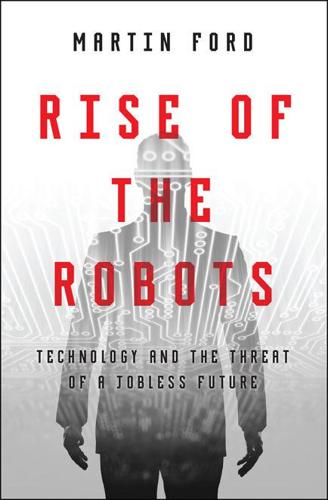
Rise of the Robots: Technology and the Threat of a Jobless Future
by
Martin Ford
Published 4 May 2015
Increasing inequality will result in a small number of very large fish, but from the point of view of most mass-market industries these aren’t worth a whole lot more than normal-sized fish. (The billionaire is not going to buy a thousand smart phones, cars, or restaurant meals.) This is what’s known as a classic “tragedy of the commons” problem. The vast majority of economists would likely agree that a situation like this calls for some kind of government intervention. In the absence of this, there is no individual incentive to do anything except catch as many fish as possible. Real-world fishermen may understand fully that their lake or ocean is being over-fished and that their livelihoods will soon be threatened, but they will nonetheless go out every day and maximize their catch because they know their competitors will do the same.
…
See also Artificial General Intelligence (AGI) 3D printing, 176, 177–181 three-dimensional chips, 70, 70n Thrun, Sebastian, 132, 133, 134, 135, 139, 182, 256 Time (magazine), 111, 160, 191, 235 Tokyo University entrance exam, creating artificial intelligence system to pass, 127–128 Toys “R” Us, 17 tragedy of the commons problem, 265 Transcend: Nine Steps to Living Well Forever (Kurzweil & Grossmann), 235 Transits—Into an Abyss (Iamus), 111 translation tools, 89–90, 120–121, 130 Triple Revolution report, 30–31, 250 trucks, automated, 190–191 Tunisia, 46 Turing, Alan, 80, 230 TurtleBot, 7 “21st Century Nanotechnology Research and Development Act,” 242 Twitter, 114 2001: A Space Odyssey (film), 157n Uber, 191, 209n Udacity, 133, 134–135, 142 underemployment, xvi, 49, 126 unemployment consumer behavior and, 211 education/job retraining and, 249–250 environmental effects of fear of, 283–284 long-term, ix, xvi, 45–46, 211, 280 machines and, ix–x rates of, 33, 41, 44–45, 172, 211–212, 249, 250, 276 youth, 221 unions, decline in power of, 57–58 United Auto Workers, 193 United States college graduates overqualified for occupations in, 251 consumer spending in, 54 economic stagnation in, 65 elder care in, 155 health care as precent of economy, 146 immigration policy and automated agriculture in, 26 income inequality in, 46–48 job-market polarization in, 49–51 taxpayer funding of basic information technology research in, 80–81 textile industry, 8–9 universal health coverage, 279 universal translator, offshoring and, 121 University of Akron, 141 University of Alabama, 141 University of California system, 140 University of California, Berkeley, Labor Center 14 University of Michigan, MOOCs and, 133, 137 University of Missouri, 141 University of Pennsylvania, MOOCs and, 133–134 University of Wisconsin, 138, 142 Urban Institute, 46 Urmson, Chris, 183–184 U-Systems, Inc., 152 value-added tax (VAT), 272–273 Vardakostas, Alexandros, 12–13 VAT.
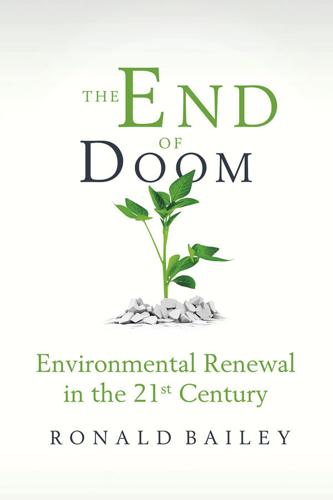
The End of Doom: Environmental Renewal in the Twenty-First Century
by
Ronald Bailey
Published 20 Jul 2015
Famines, greater than any in history, will ravage the undeveloped nations. A swelling population is blotting up the earth’s food.” They confidently added, “Our technology will be unable to increase food production in time to avert the deaths of tens of millions people by starvation.” In his famous 1968 essay “The Tragedy of the Commons,” published in the journal Science, ecologist Garrett Hardin flatly declared, “The freedom to breed is intolerable.” To illustrate the harms of the freedom to breed, he conjures up the arresting example of a pasture open to all people in a village. Each herdsman, seeking to maximize his individual gain, puts as many cattle on the pasture as possible, leading eventually to its destruction from overgrazing.
…
Japan is now experiencing a fall in its population due largely to reduced fertility, as are Germany, Russia, Italy, Poland, and some 20 other countries and territories. And as we have seen, the global total fertility rate is rapidly decelerating. Of the 231 countries and territories listed in the 2013 CIA World Factbook, 122 are at or below replacement fertility rates. Norton persuasively argues that Hardin’s fears of a population tragedy of the commons are actually realized when the invisible hand of economic freedom is shackled. Many poor countries have weakly specified and enforced property rights. Poor property rights means that many resources are effectively left in open-access commons where the incentive is to grab what one can before another individual gets it.
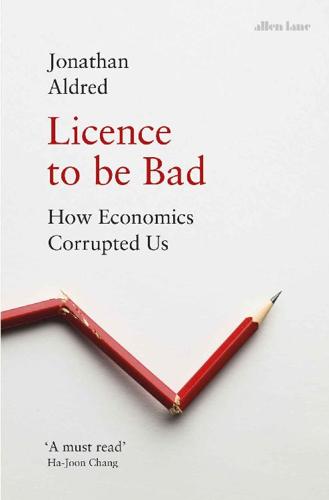
Licence to be Bad
by
Jonathan Aldred
Published 5 Jun 2019
It elegantly expresses the conflict between private and collective interest in thousands of real-world contexts. Firms producing similar products – OPEC oil producers or Coke versus Pepsi – cut prices to gain market share, but because their rivals do the same all firms suffer a fall in profit. The Prisoner’s Dilemma describes this and many other ‘races to the bottom’. Likewise, the so-called Tragedy of the Commons describes a Prisoner’s Dilemma: given free access to a common resource, everyone will consume it regardless of what others do, leading to damage or destruction of the resource and making everyone worse off. The challenge posed by climate change is, too, widely agreed to be a Prisoner’s Dilemma: everyone is better off if global carbon emissions are reduced, but every country is reluctant to reduce emissions, regardless of what other countries do.
…
objection, 107, 119–20 Friedman, Milton, 4–5, 56, 69, 84, 88, 126, 189 awarded Nobel Prize, 132 and business responsibility, 2, 152 debate with Coase at Director’s house, 50, 132 as dominant Chicago thinker, 50, 132 on fairness and justice, 60 flawed arguments of, 132–3 influence on modern economics, 131–2 and monetarism, 87, 132, 232 at Mont Pèlerin, 5, 132 rejects need for realistic assumptions, 132–3 Sheraton Hall address (December 1967), 132 ‘The Methodology of Positive Economics’ (essay, 1953), 132–3 ‘The Social Responsibility of Business is to Increase Its Profits’ (article, 1970), 2, 152 Frost, Gerald, Antony Fisher: Champion of Liberty (2002), 7* Galbraith, John Kenneth, 242–3 game theory assumptions of ‘rational behaviour’, 18, 28, 29–32, 35–8, 41–3, 70, 124 Axelrod’s law of the instrument, 41 backward induction procedure, 36–7, 38 and Cold War nuclear strategy, 18, 20, 21–2, 24, 27, 33–4, 35, 70, 73, 198 focus on consequences alone, 43 as form of zombie science, 41 and human awareness, 21–3, 24–32 and interdependence, 23 limitations of, 32, 33–4, 37–40, 41–3 minimax solution, 22 multiplicity problem, 33–4, 35–7, 38 Nash equilibrium, 22–3, 24, 25, 27–8, 33–4, 41–2 the Nash program, 25 and nature of trust, 28–31, 41 the Prisoner’s Dilemma, 26–8, 29–32, 42–3 real world as problem for, 21–2, 24–5, 29, 31–2, 37–8, 39–40, 41–3 rise of in economics, 40–41 and Russell’s Chicken, 33–4 and Schelling, 138–9 and spectrum auctions, 39–40 theory of repeated games, 29–30, 35 tit-for-tat, 30–31 and trust, 29, 30–31, 32, 41 uses of, 23–4, 34, 38–9 view of humanity as non-cooperative/distrustful, 18, 21–2, 25–32, 36–8, 41–3 Von Neumann as father of, 18, 19, 20–22, 25, 26, 28, 30, 34, 41 zero-sum games, 21–2 Gates, Bill, 221–2 Geithner, Tim, 105 gender, 127–8, 130–31, 133, 156 General Electric, 159 General Motors (GM), 215–16 George, Prince of Cambridge, 98 Glass–Steagall Act, repeal of, 194 globalization, 215, 220 Goldman Sachs, 182, 184, 192 Google, 105 Gore, Al, 39 Great Reform Act (1832), 120 greed, 1–2, 196, 197, 204, 229, 238 Greenspan, Alan, 57, 203 Gruber, Jonathan, 245 Haifa, Israel, 158, 161 Harper, ‘Baldy’, 7 Harsanyi, John, 34–5, 40 Harvard Business Review, 153 Hayek, Friedrich and Arrow’s framework, 78–9 economics as all of life, 8 and Antony Fisher, 6–7 influence on Thatcher, 6, 7 and Keynesian economics, 5–6 and legal frameworks, 7* at LSE, 4 at Mont Pèlerin, 4, 5, 6, 15 and Olson’s analysis, 104 and public choice theory, 89 rejection of incentive schemes, 156 ‘spontaneous order’ idea, 30 The Road to Serfdom (1944), 4, 5, 6, 78–9, 94 healthcare, 91–2, 93, 178, 230, 236 hedge funds, 201, 219, 243–4 Heilbroner, Robert, The Worldly Philosophers, 252 Heller, Joseph, Catch-22, 98, 107, 243–4 Helmsley, Leona, 105 hero myths, 221–3, 224 Hewlett-Packard, 159 hippie countercultural, 100 Hoffman, Abbie, Steal This Book, 100 Holmström, Bengt, 229–30 homo economicus, 9, 10, 12, 140, 156–7 and Gary Becker, 126, 129, 133, 136 and behaviour of real people, 15, 136, 144–5, 171, 172, 173, 250–51 and behavioural economics, 170, 171, 172, 255 long shadow cast by, 248 and Nudge economists, 13, 172, 173, 174–5, 177 Hooke, Robert, 223 housing market, 128–9, 196, 240–41 separate doors for poor people, 243 Hume, David, 111 Huxley, Thomas, 114 IBM, 181, 222 identity, 32, 165–6, 168, 180 Illinois, state of, 46–7 immigration, 125, 146 Impossibility Theorem, 72, 73–4, 75, 89, 97 Arrow’s assumptions, 80, 81, 82 and Duncan Black, 77–8 and free marketeers, 78–9, 82 as misunderstood and misrepresented, 76–7, 79–82 ‘paradox of voting’, 75–7 as readily solved, 76–7, 79–80 Sen’s mathematical framework, 80–81 incentives adverse effect on autonomy, 164, 165–6, 168, 169–70, 180 authority figure–autonomy contradiction, 180 and behavioural economics, 171, 175, 176–7 cash and non-cash gifts, 161–2 context and culture, 175–6 contrast with rewards and punishments, 176–7 ‘crowding in’, 176 crowding out of prior motives, 160–61, 162–3, 164, 165–6, 171, 176 impact of economists’ ideas, 156–7, 178–80 and intrinsic motivations, 158–60, 161–3, 164, 165–6, 176 and moral disengagement, 162, 163, 164, 166 morally wrong/corrupting, 168–9 origins in behaviourism, 154 and orthodox theory of motivation, 157–8, 164, 166–7, 168–70, 178–9 payments to blood donors, 162–3, 164, 169, 176 as pervasive in modern era, 155–6 respectful use of, 175, 177–8 successful, 159–60 as tools of control/power, 155–7, 158–60, 161, 164, 167, 178 Indecent Proposal (film, 1993), 168 India, 123, 175 individualism, 82, 117 and Becker, 134, 135–8 see also freedom, individual Industrial Revolution, 223 inequality and access to lifeboats, 150–51 and climate change, 207–9 correlation with low social mobility, 227–8, 243 and demand for positional goods, 239–41 and economic imperialism, 145–7, 148, 151, 207 and efficiency wages, 237–8 entrenched self-deluding justifications for, 242–3 and executive pay, 215–16, 219, 224, 228–30, 234, 238 as falling in 1940–80 period, 215, 216 Great Gatsby Curve, 227–8, 243 hero myths, 221–3, 224 increases in as self-perpetuating, 227–8, 230–31, 243 as increasing since 1970s, 2–3, 215–16, 220–21 and lower growth levels, 239 mainstream political consensus on, 216, 217, 218, 219–21 marginal productivity theory, 223–4, 228 new doctrine on taxation since 1970s, 232–5 and Pareto, 217, 218–19, 220 poverty as waste of productive capacity, 238–9 public attitudes to, 221, 226–8 rises in as not inevitable, 220, 221, 242 role of luck downplayed, 222, 224–6, 243 scale-invariant nature of, 219, 220 ‘socialism for the rich’, 230 Thatcher’s praise of, 216 and top-rate tax cuts, 231, 233–5, 239 trickle-down economics, 232–3 US and European attitudes to, 226–7 ‘you deserve what you get’ belief, 223–6, 227–8, 236, 243 innovation, 222–3, 242 Inside Job (documentary, 2010), 88 Institute of Economic Affairs, 7–8, 15, 162–3 intellectual property law, 57, 68, 236 Ishiguro, Kazuo, Never Let Me Go, 148 Jensen, Michael, 229 Journal of Law and Economics, 49 justice, 1, 55, 57–62, 125, 137 Kahn, Herman, 18, 33 Kahneman, Daniel, 170–72, 173, 179, 202–3, 212, 226 Kennedy, President John, 139–40 Keynes, John Maynard, 11, 21, 162, 186, 204 and Buchanan’s ideology, 87 dentistry comparison, 258–9, 261 on economics as moral science, 252–3 Friedman’s challenge to orthodoxy of, 132 Hayek’s view of, 5–6 massive influence of, 3–4, 5–6 on power of economic ideas, 15 and probability, 185, 186–7, 188–9, 190, 210 vision of the ideal economist, 20 General Theory (1936), 15, 188–9 Khomeini, Ayatollah, 128 Khrushchev, Nikita, 139–40, 181 Kilburn Grammar School, 48 Kildall, Gary, 222 Kissinger, Henry, 184 Knight, Frank, 185–6, 212 Krugman, Paul, 248 Kubrick, Stanley, 35*, 139 labour child labour, 124, 146 and efficiency wages, 237–8 labour-intensive services, 90, 92–3 lumpenproletariat, 237 Olson’s hostility to unions, 104 Adam Smith’s ‘division of labour’ concept, 128 Laffer, Arthur, 232–3, 234 Lancet (medical journal), 257 Larkin, Philip, 67 law and economics movement, 40, 55, 56–63, 64–7 Lazear, Edward, ‘Economic Imperialism’, 246 legal system, 7* and blame for accidents, 55, 60–61 and Chicago School, 49, 50–52, 55 and Coase Theorem, 47, 49, 50–55, 63–6 criminal responsibility, 111, 137, 152 economic imperialist view of, 137 law and economics movement, 40, 55, 56–63, 64–7 ‘mimic the market’ approach, 61–3, 65 Posner’s wealth-maximization principle, 57–63, 64–7, 137 precautionary principle, 211–12, 214 transaction costs, 51–3, 54–5, 61, 62, 63–4, 68 Lehmann Brothers, 194 Lexecon, 58, 68 Linda Problem, 202–3 LineStanding.com, 123 Little Zheng, 123, 124 Lloyd Webber, Andrew, 234–5, 236 lobbying, 7, 8, 88, 115, 123, 125, 146, 230, 231, 238 loft-insulation schemes, 172–3 logic, mathematical, 74–5 The Logic of Life (Tim Harford, 2008), 130 London School of Economics (LSE), 4, 48 Long-Term Capital Management (LTCM), 201, 257 Machiavelli, Niccoló, 89, 94 Mafia, 30 malaria treatments, 125, 149 management science, 153–4, 155 Mandelbrot, Benoît, 195, 196, 201 Mankiw, Greg, 11 marginal productivity theory, 223–4 Markowitz, Harry, 196–7, 201, 213 Marx, Karl, 11, 101, 102, 104, 111, 223 lumpenproletariat, 237 mathematics, 9–10, 17–18, 19, 21–4, 26, 247, 248, 255, 259 of 2007 financial crash, 194, 195–6 and Ken Arrow, 71, 72, 73–5, 76–7, 82–3, 97 axioms (abstract assumptions), 198 fractals (scale-invariance), 194, 195–6, 201, 219 and orthodox decision theory, 190–91, 214 Ramsey Rule on discounting, 208–9, 212 and Savage, 189–90, 193, 197, 198, 199, 205 and Schelling, 139 Sen’s framework on voting systems, 80–81 standard deviation, 182, 192, 194 and stock market statistics, 190–91, 195–6 use of for military ends, 71–2 maximizing behaviour and Becker, 129–31, 133–4, 147 and catastrophe, 211 and Coase, 47, 55, 59, 61, 63–9 economic imperialism, 124–5, 129–31, 133–4, 147, 148–9 Posner’s wealth-maximization principle, 57–63, 64–7, 137 profit-maximizing firms, 228 see also wealth-maximization principle; welfare maximization McCluskey, Kirsty, 194 McNamara, Robert, 138 median voter theorem, 77, 95–6 Merton, Robert, 201 Meucci, Antonio, 222 microeconomics, 9, 232, 259 Microsoft, 222 Miles, David, 258 Mill, John Stuart, 102, 111, 243 minimum wage, national, 96 mobility, economic and social correlation with inequality, 226–8, 243 as low in UK, 227 as low in USA, 226–7 US–Europe comparisons, 226–7 Modern Times (Chaplin film, 1936), 154 modernism, 67 Moivre, Abraham de, 193 monetarism, 87, 89, 132, 232 monopolies and cartels, 101, 102, 103–4 public sector, 48–9, 50–51, 93–4 Mont Pèlerin Society, 3–9, 13, 15, 132 Morgenstern, Oskar, 20–22, 24–5, 28, 35, 124, 129, 189, 190 Mozart, Wolfgang Amadeus, 91, 92–3 Murphy, Kevin, 229 Mussolini, Benito, 216, 219 Nash equilibrium, 22–3, 24, 25, 27–8, 33–4, 41–2 Nash, John, 17–18, 22–3, 24, 25–6, 27–8, 33–4, 41–2 awarded Nobel Prize, 34–5, 38, 39, 40 mental health problems, 25, 26, 34 National Health Service, 106, 162 ‘neoliberalism’, avoidance of term, 3* Neumann, John von ambition to make economics a science, 20–21, 24–5, 26, 35, 125, 151, 189 as Cold War warrior, 20, 26, 138 and expansion of scope of economics, 124–5 as father of game theory, 18, 19, 20–22, 25, 26, 28, 30, 34, 41 final illness and death of, 19, 34, 35, 43–4 genius of, 19–20 as inspiration for Dr Strangelove, 19 and Nash’s equilibrium, 22–3, 25, 38* simplistic view of humanity, 28 theory of decision-making, 189, 190, 203 neuroscience, 14 New Deal, US, 4, 194, 231 Newton, Isaac, 223 Newtonian mechanics, 21, 24–5 Nixon, Richard, 56, 184, 200 NORAD, Colorado Springs, 181 nuclear weapons, 18–19, 20, 22, 27, 181 and Ellsberg, 200 and game theory, 18, 20, 21–2, 24, 27, 33–4, 35, 70, 73, 198 MAD (Mutually Assured Destruction), 35, 138 and Russell’s Chicken, 33–4 and Schelling, 138, 139 Nudge economists, 13, 171–5, 177–8, 179, 180, 251 Oaten, Mark, 121 Obama, Barack, 110, 121, 157, 172, 180 Olson, Mancur, 103, 108, 109, 119–20, 122 The Logic of Collective Action (1965), 103–4 On the Waterfront (Kazan film, 1954), 165 online invisibility, 100* organs, human, trade in, 65, 123, 124, 145, 147–8 Orwell, George, Nineteen Eighty-Four, 42–3 Osborne, George, 233–4 Packard, David, 159 Paine, Tom, 243 Pareto, Vilfredo 80/20 rule’ 218 and inequality, 217, 218–19, 220 life and background of, 216–17 Pareto efficiency, 217–18, 256* Paul the octopus (World Cup predictor, 2010), 133 pensions, workplace, 172, 174 physics envy, 9, 20–21, 41, 116, 175–6, 212, 247 Piketty, Thomas, 234, 235 plastic shopping bag tax, 159–60 Plato’s Republic, 100–101, 122 political scientists and Duncan Black, 78, 95–6 Black’s median voter theorem, 95–6 Buchanan’s ideology, 84–5 crises of the 1970s, 85–6 influence of Arrow, 72, 81–2, 83 see also public choice theory; social choice theory Posner, Richard, 54, 56–63, 137 ‘mimic the market’ approach, 61–3, 65 ‘The Economics of the Baby Shortage’ (1978), 61 precautionary principle, 211–12, 214 price-fixing, 101, 102, 103–4 Princeton University, 17, 19–20 Prisoner’s Dilemma, 26–8, 29–32, 42–3 prisons, cell upgrades in, 123 privatization, 50, 54, 88, 93–4 probability, 182–4 and Keynes, 185, 186–7, 188–9, 210 Linda Problem, 202–3 modern ideas of, 184–5 Ramsey’s personal probabilities (beliefs as probabilities), 187–8, 190, 197, 198, 199, 204–5 and Savage, 190, 193, 197, 198, 199, 203, 205 ‘Truth and Probability’ (Ramsey paper), 186–8, 189, 190 see also risk and uncertainty Proceedings of the National Academy of Sciences, 22 productivity Baumol’s cost disease, 90–92, 93, 94 and efficiency wages, 237–8 improvement in labour-intensive services, 92–3 labour input, 92 protectionism, 246, 255 psychology availability heuristic, 226 behaviourism, 154–8, 237 and behavioural economics, 12, 170–71 cognitive dissonance, 113–14 and financial incentives, 156–7, 158–60, 163–4, 171 framing effects, 170–71, 259 of free-riding, 113–14, 115 intrinsic motivations, 158–60, 161–3, 164, 165–6, 176 irrational behaviour, 12, 15, 171 learning of social behaviour, 163–4 moral disengagement, 162, 163, 164, 166 motivated beliefs, 227 ‘self-command’ strategies, 140 view of in game theory, 26–31 view of in public choice theory, 85–6 and welfare maximization, 149 ‘you deserve what you get’ belief, 223–6, 227–8, 236, 243 public choice theory as consensus view, 84–5 and crises of the 1970s, 85–6 foolish voter assumption, 86–8 ‘paradox of voter turnout’, 88–9, 95–6, 115–16 partial/self-contradictory application of, 86, 87–9 ‘political overload’ argument, 85, 86–7 ‘public bad, private good’ mantra, 93–4, 97 and resistance to tax rises, 94, 241 self-fulfilling prophecies, 95–7 and selfishness, 85–6, 87–8, 89, 94, 95–7 as time-bomb waiting to explode, 85 public expenditure in 1970s and ’80s, 89 Baumol’s cost disease, 90–92, 93, 94 and Keynesian economics, 4 and public choice theory, 85–8, 89, 241 and tax rises, 241–2 public-sector monopolies, 48–9, 50–51, 93–4 Puzzle of the Harmless Torturers, 118–19 queue-jumping, 123, 124 QWERTY layout, 42 racial discrimination, 126–7, 133, 136, 140 Ramsey, Frank, 186–8, 189, 190, 205, 208 Ramsey Rule, 208–9, 212 RAND Corporation, 17, 41, 103, 138, 139 and Ken Arrow, 70–71, 72–3, 74, 75–6, 77, 78 and behaviourism, 154 and Cold War military strategy, 18, 20, 21–2, 24, 27, 33–4, 70, 73, 75–6, 141, 200, 213 and Ellsberg, 182–4, 187, 197–8, 200 and Russell’s Chicken, 33 Santa Monica offices of, 18 self-image as defender of freedom, 78 rational behaviour assumptions in game theory, 18, 28, 29–32, 35–8, 41–3, 70, 124 axioms (abstract mathematical assumptions), 198 Becker’s version of, 128–9, 135, 140, 151 behavioural economics/Nudge view of, 173, 174–5 distinction between values and tastes, 136–8 economic imperialist view of, 135, 136–8, 140, 151 and free-riding theory, 100–101, 102, 103–4, 107–8, 109–10, 115–16 and orthodox decision theory, 198, 199 public choice theory relates selfishness to, 86 term as scientific-sounding cover, 12 see also homo economicus Reader’s Digest, 5, 6 Reagan, Ronald, 2, 87–8, 89, 104, 132 election of as turning point, 6, 216, 220–21 and top-rate tax cuts, 231, 233 regulators, 1–2 Chicago view of, 40 Reinhart, Carmen, 258 religion, decline of in modern societies, 15, 185 renewable energy, 116 rent-seeking, 230, 238 ‘right to recline’, 63–4 risk and uncertainty bell curve distribution, 191–4, 195, 196–7, 201, 203–4, 257 catastrophes, 181–2, 191, 192, 201, 203–4, 211–12 delusions of quantitative ‘risk management’, 196, 213 Ellsberg’s experiment (1961), 182–4, 187, 197, 198–200 errors in conventional thinking about, 191–2, 193–4, 195–7, 204–5, 213 financial orthodoxy on risk, 196–7, 201–2 and First World War, 185 and fractals (scale-invariance), 194, 195–6, 201 hasard and fortuit, 185* ‘making sense’ of through stories, 202–3 ‘measurable’ and ‘unmeasurable’ distinction, 185–6, 187–9, 190, 210–11, 212–13 measurement in numerical terms, 181–4, 187, 189, 190–94, 196–7, 201–2, 203–5, 212–13 orthodox decision theory, 183–4, 185–6, 189–91, 193–4, 201–2, 203–5, 211, 212–14 our contemporary orthodoxy, 189–91 personal probabilities (beliefs as probabilities), 187–8, 190, 197, 198, 199, 204–5 precautionary principle, 211–12, 214 pure uncertainty, 182–3, 185–6, 187–9, 190, 197, 198–9, 210, 211, 212, 214, 251 redefined as ‘volatility’, 197, 213 the Savage orthodoxy, 190–91, 197, 198–200, 203, 205 scenario planning as crucial, 251 Taleb’s black swans, 192, 194, 201, 203–4 ‘Truth and Probability’ (Ramsey paper), 186–8, 189, 190 urge to actuarial alchemy, 190–91, 197, 201 value of human life (‘statistical lives’), 141–5, 207 see also probability Robertson, Dennis, 13–14 Robinson, Joan, 260 Rodrik, Dani, 255, 260–61 Rogoff, Ken, 258 Rothko, Mark, 4–5 Rumsfeld, Donald, 232–3 Russell, Bertrand, 33–4, 74, 97, 186, 188 Ryanair, 106 Sachs, Jeffrey, 257 Santa Monica, California, 18 Sargent, Tom, 257–8 Savage, Leonard ‘Jimmie’, 189–90, 193, 203, 205scale-invariance, 194, 195–6, 201, 219 Scandinavian countries, 103, 149 Schelling, Thomas, 35* on access to lifeboats, 150–51 awarded Nobel Prize, 138–9 and Cold War nuclear strategy, 138, 139–40 and economic imperialism, 141–5 and game theory, 138–9 and Washington–Moscow hotline, 139–40 work on value of human life, 141–5, 207 ‘The Intimate Contest for Self-command’ (essay, 1980), 140, 145 ‘The Life You Save May be Your Own’ (essay, 1968), 142–5, 207 Schiphol Airport, Amsterdam, 172 Schmidt, Eric, 105 Scholes, Myron, 201 Schwarzman, Stephen, 235 Second World War, 3, 189, 210 selfishness, 41–3, 178–9 and Becker, 129–30 and defence of inequality, 242–3 as free marketeers’ starting point, 10–12, 13–14, 41, 86, 178–9 and game theory, 18 and public choice theory, 85–6, 87–8, 89, 94, 95–7 Selten, Reinhard, 34–5, 36, 38, 40 Sen, Amartya, 29, 80–81 service sector, 90–93, 94 Shakespeare, William, Measure for Measure, 169 Shaw, George Bernard, 101 Shiller, Robert, 247 Simon, Herbert, 223 Skinner, Burrhus, 154–5, 158 Smith, Adam, 101, 111, 122 The Wealth of Nations (1776), 10–11, 188–9 snowflakes, 195 social choice theory, 72 and Ken Arrow, 71–83, 89, 95, 97, 124–5, 129 and Duncan Black, 78, 95 and free marketeers, 79, 82 Sen’s mathematical framework, 80–81 social media, 100* solar panels, 116 Solow, Bob, 163, 223 Sorites paradox, 117–18, 119 sovereign fantasy, 116–17 Soviet Union, 20, 22, 70, 73, 82, 101, 104, 167, 237 spectrum auctions, 39–40, 47, 49 Stalin, Joseph, 70, 73, 101 the state anti-government attitudes in USA, 83–5 antitrust regulation, 56–8 dismissal of almost any role for, 94, 135, 235–6, 241 duty over full employment, 5 economic imperialist arguments for ‘small government’, 135 increased economic role from 1940s, 3–4, 5 interventions over ‘inefficient’ outcomes, 53 and monetarism, 87, 89 and Mont Pèlerin Society, 3, 4, 5 and privatization, 50, 54, 88, 93–4 public-sector monopolies, 48–50, 93–4 replacing of with markets, 79 vital role of, 236 statistical lives, 141–5, 207 Stern, Nick, 206, 209–10 Stigler, George, 50, 51, 56, 69, 88 De Gustibus Non Est Disputandum (with Becker, 1977), 135–6 Stiglitz, Joseph, 237 stock markets ‘Black Monday’ (1987), 192 and fractals (scale-invariance), 194, 195–6, 201 orthodox decision theory, 190–91, 193–4, 201 Strittmatter, Father, 43–4 Summers, Larry, 10, 14 Sunstein, Cass, 173 Nudge (with Richard Thaler, 2008), 171–2, 175 Taleb, Nassim, 192 Tarski, Alfred, 74–5 taxation and Baumol’s cost disease, 94 and demand for positional goods, 239–41 as good thing, 231, 241–2, 243 Laffer curve, 232–3, 234 new doctrine of since 1970s, 232–4 property rights as interdependent with, 235–6 public resistance to tax rises, 94, 239, 241–2 and public spending, 241–2 revenue-maximizing top tax rate, 233–4, 235 tax avoidance and evasion, 99, 105–6, 112–13, 175, 215 ‘tax revolt’ campaigns (1970s USA), 87 ‘tax as theft’ culture, 235–6 top-rate cuts and inequality, 231, 233–5, 239 whines from the super-rich, 234–5, 243 Taylor, Frederick Winslow, 153–4, 155, 167, 178, 237 Thaler, Richard, 13 Nudge (with Cass Sunstein, 2008), 171–2, 175 Thatcher, Margaret, 2, 88, 89, 104, 132 election of as turning point, 6, 216, 220–21 and Hayek, 6, 7 and inequality, 216, 227 privatization programme, 93–4 and top-rate tax cuts, 231 Theory of Games and Economic Behavior (Von Neumann and Morgenstern, 1944), 20, 21, 25, 189 Titanic, sinking of (1912), 150 Titmuss, Richard, The Gift Relationship, 162–3 tobacco-industry lobbyists, 8 totalitarian regimes, 4, 82, 167–8, 216, 219 see also Soviet Union trade union movement, 104 Tragedy of the Commons, 27 Truman, Harry, 20, 237 Trump, Donald, 233 Tucker, Albert, 26–7 Tversky, Amos, 170–72, 173, 202–3, 212, 226 Twitter, 100* Uber, 257 uncertainty see risk and uncertainty The Undercover Economist (Tim Harford, 2005), 130 unemployment and Coase Theorem, 45–7, 64 during Great Depression, 3–4 and Keynesian economics, 4, 5 United Nations, 96 universities auctioning of places, 124, 149–50 incentivization as pervasive, 156 Vietnam War, 56, 198, 200, 249 Villari, Pasquale, 30 Vinci, Leonardo da, 186 Viniar, David, 182, 192 Volkswagen scandal (2016), 2, 151–2 Vonnegut, Kurt, 243–4 voting systems, 72–4, 77, 80, 97 Arrow’s ‘Independence of Irrelevant Alternatives’, 81, 82 Arrow’s ‘Universal Domain’, 81, 82 and free marketeers, 79 ‘hanging chads’ in Florida (2000), 121 recount process in UK, 121 Sen’s mathematical framework, 80–81 Waldfogel, Joel, 161* Wanniski, Jude, 232 Watertown Arsenal, Massachusetts, 153–4 Watson Jr, Thomas J., 181 wealth-maximization principle, 57–63 and Coase, 47, 55, 59, 63–9 as core principle of current economics, 253 created markets, 65–7 extension of scope of, 124–5 and justice, 55, 57–62, 137 and knee space on planes, 63–4 practical problems with negotiations, 62–3 and values more important than efficiency, 64–5, 66–7 welfare maximization, 124–5, 129–31, 133–4, 148–9, 176 behavioural economics/Nudge view of, 173 and vulnerable/powerless people, 146–7, 150 welfare state, 4, 162 Wilson, Charlie, 215 Wittgenstein, Ludwig, 186, 188 Wolfenschiessen (Swiss village), 158, 166–7 Woolf, Virginia, 67 World Bank, 96 World Cup football tournament (2010), 133 World Health Organization, 207 Yale Saturday Evening Pest, 4–5 Yellen, Janet, 237 THE BEGINNING Let the conversation begin … Follow the Penguin twitter.com/penguinukbooks Keep up-to-date with all our stories youtube.com/penguinbooks Pin ‘Penguin Books’ to your pinterest.com/penguinukbooks Like ‘Penguin Books’ on facebook.com/penguinbooks Listen to Penguin at soundcloud.com/penguin-books Find out more about the author and discover more stories like this at penguin.co.uk ALLEN LANE UK | USA | Canada | Ireland | Australia India | New Zealand | South Africa Allen Lane is part of the Penguin Random House group of companies whose addresses can be found at global.penguinrandomhouse.com First published 2019 Copyright © Jonathan Aldred, 2019 The moral right of the author has been asserted Jacket photograph © Getty Images ISBN: 978-0-241-32544-5 This ebook is copyright material and must not be copied, reproduced, transferred, distributed, leased, licensed or publicly performed or used in any way except as specifically permitted in writing by the publishers, as allowed under the terms and conditions under which it was purchased or as strictly permitted by applicable copyright law.
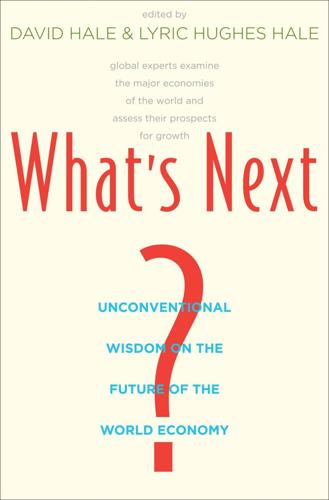
What's Next?: Unconventional Wisdom on the Future of the World Economy
by
David Hale
and
Lyric Hughes Hale
Published 23 May 2011
The tax collected could be credited to a global fund, with a formula that would allow national governments to use part of the proceeds to resolve domestic crisis problems. A global turnover tax can fund noncontroversial global public goods, including international initiatives that promote education, before moving on to confront more controversial matters, such as funding to tackle climate change. Global problems are global tragedies of the commons. We cannot build a global fiscal system to tackle global problems overnight, but we must begin the debate. Notes 1. James Tobin, “A Proposal for International Monetary Reform.” The Eastern Economic Journal, Vol. 4 (1978): 153–159. 19 FISCAL IMBALANCES, ECONOMIC GROWTH, AND TAX POLICY: PLUCKING MORE FEATHERS FROM THE GOLDEN GOOSE Jack Mintz Burgeoning public deficits and debt will require significant fiscal correction in many countries in the coming years.
…
SUBSISTENCE AGRICULTURE: Farming in which the bulk of a farmer’s output is devoted to the feeding of himself and his family, with little excess available to be sold to third parties. TECHNOCRAT: A bureaucrat who is intensively trained in engineering, economics, or a form of technology. TOTAL FACTOR PRODUCTIVITY: The portion of output that is not explained by the amount of input used in production. TRAGEDY OF THE COMMONS: A metaphor that illustrates that it is hard to coordinate and pay for public goods. Individuals have no incentive to limit consumption of a public good, and thus the public good is overwhelmed with demand. TRANCHE: A division or portion of something. TRANSSHIPMENT: The movement of cargo between ships or between two different modes of transport.
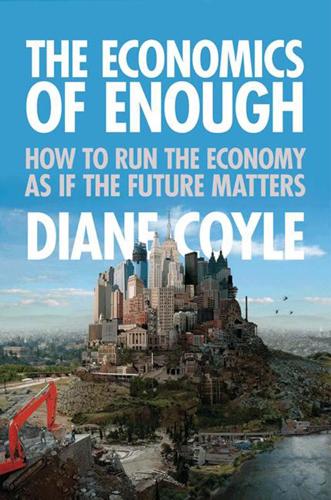
The Economics of Enough: How to Run the Economy as if the Future Matters
by
Diane Coyle
Published 21 Feb 2011
What does it mean to leave at least as much capital as we inherited? How can natural capital be measured? There are no easy ways to calculate natural wealth because markets undervalue many natural assets—there are many externalities that make property rights over natural resources hard to enforce and the “tragedy of the commons” ensues. This means that resources owned in common—such as fish in the ocean or clean air—are overused and therefore depleted. No individual owner takes responsibility for their stewardship, in the absence of any successful collective agreement to limit their depletion. The price we pay (essentially free) is lower than the price that would reflect the true cost of our use of them.
…
See also gross domestic product (GDP); measurement Stein, Herbert, 104 Stern, Nicholas, 29, 60–61, 68, 72–74, 82 Stevenson, Betsey, 41 stewardship, 78, 80, 275 Stiglitz, Joseph, 37, 82, 202, 274 stimulus packages, 91, 100–103, 111 Strumpf, Koleman, 197 suicide, 44, 51, 279 superstar effect, 134 sustainability: Brundtlandt Report and, 77; cradle-to-grave social systems and, 104; defining, 24, 77–78, 80; economic, 8, 85–86, 89–90, 98, 100, 102, 104–5, 108, 111, 113, 136, 177, 183–85, 203, 233–34, 240, 244, 248, 261, 293; environmental, 38, 56, 59, 62, 65, 69, 71, 76, 112–13, 233; fairness and, 115; government debt and, 102, 104–12; growth and, 53, 57, 80–86, 89–90, 98, 100; Index of Sustainable Economic Welfare (ISEW) and, 36; kinds of, 25; social, 54, 71, 79, 114–16, 143, 151, 233, 237 Sweden, 141, 143, 172, 251 Switzerland, 125 Tabellini, Guido, 136 tacit knowledge, 166 taxes, 3, 12, 15; business investment and, 295; fairness and, 123, 127–28, 131, 135–36, 144; Golden Rule for, 93; increased future, 286–87; happiness and, 22–25, 40, 43; inequality and, 115–16, 123, 127–28, 131, 135–36; infrastructure spending and, 93; luxury goods and, 23; Medicare and, 93–94; nature and, 62, 71; pension burden and, 92–95; policy recommendations for, 279, 282–86, 289–90, 293–97; posterity and, 85–91, 94, 99, 103–5, 111–13; Social Security and, 93–94; thrift education and, 294–95; trust and, 171–76, 182, 191, 203; values and, 229, 235, 245, 248, 258; wasteful spending and, 23; welfare burden and, 92–95 technology: access to, 36; Boskin Commission and, 37; call centers and, 131, 133, 161; cities and, 165–70; computers and, 156; consumer electronics and, 36–37; cultural suspicion of growth and, 26–29; data explosion and, 205, 291; decreased cost of, 254; electrification and, 155–56; electronic monitoring, 252–53; e-mail, 252; Enlightenment and, 7; fairness and, 116, 131–34, 137; faxes, 252; fractal character of, 134; general purpose, 157; globalization and, 7, 160–65; governance and, 173–77; growth and, 268, 270–77, 287–93, 297; Gutenberg press, 7; happiness and, 24–25, 35–37, 44, 53–54; impact of, 7–8, 24–25, 35, 37, 252–54; Industrial Revolution and, 27, 149, 290, 297; innovation and, 6–8 (see also innovation); institutions and, 244–46, 251–54, 257–63; Internet, 155, 195, 245, 260, 273, 287–89, 291, 296; labor and, 132; measurement and, 181–85, 188–91, 194–201, 204–6; Moore’s Law and, 156; music industry and, 194–98; nature and, 69–72, 76–77, 80, 84; new energy, 6; online empowerment and, 287–88, 296; policy recommendations for, 268, 270, 273–77, 287–93, 297; politics and, 7–8, 16–17, 288–89; posterity and, 107; productivity and, 107–8, 157–59, 268; public domain and, 196; reinvention and, 14; Renaissance and, 7; smart cards, 252–53; software, 253; steam power, 155–57; structural change and, 268; superstar effect and, 134; telephony, 252; trust and, 7–8, 151, 155–61, 165, 170, 173–77; values and, 212–13, 216, 218, 233–34, 237–38; voters and, 288–89 Thatcher, Margaret, 93, 121, 211, 240, 245, 247–48 Theory of Justice (Rawls), 31 Theory of Moral Sentiments, A (Smith), 120 Theory of the Leisure Class, The (Veblen), 22–23 Thomson, William (Lord Kelvin), 187 time: shortage of, 204–7; Slow Movement and, 27–28, 205 tragedy of the commons, 80 transparency, 83, 164, 288, 296 Treatise on Human Nature (Hume), 120 trilemmas, 13–14, 230–36, 275 Trivers, Robert, 118 Trollope, Anthony, 33 trust: bankers and, 88–89, 145–50, 158, 161–64, 174, 176, 257; causality and, 154; challenge of building, 170–73; cities and, 165–70; civic cooperation and, 154; decline in, 5, 139–44; democracy and, 175; diversity and, 170–73; doctors and, 247; economic importance of, 152–57; efficiency and, 158–59; face-to-face contact and, 7, 147, 165–68; fraud and, 146–47, 150, 248; General Social Survey and, 140; globalization and, 149–51, 157, 160–70; goodwill and, 150; governance and, 151, 162–65, 173–77, 255–58; government and, 150, 157, 162, 172, 175–76, 247; gross domestic product (GDP) and, 157, 160; growth and, 152–56, 160, 174; health issues and, 172; innovation and, 157; intangible assets and, 149–52, 157, 161; measurement of, 152–57; morals and, 149, 174; paradox of prosperity and, 174; Pew surveys and, 140; politics and, 154, 162–64, 173–77, 285–87; productivity and, 156–59, 162, 166–67, 170, 174; Putnam on, 140–41, 152–54; reform and, 162–64, 176–77; social capital and, 5, 151–57, 168–74, 177; specialization and, 160–61; statistics and, 154; teachers and, 247; technology and, 7–8, 151, 155–61, 165, 170, 173–77; voter turnout and, 175; weightless activities and, 150 Tullock, Gordon, 242 Turner, Ted, 33 Twitter, 289 Uganda, 147 ultimatum game, 116–17 unemployment, 3, 10, 43, 51, 56, 89, 107, 169, 207, 212–13, 243 unions, 15, 51, 224, 249 United Kingdom, 1, 4, 10, 66; bailouts and, 91; British Social Attitudes and, 140–41; Brown and, 93; debt of, 103–4; diversity and, 172; fairness and, 115–16, 122, 125–26, 130, 139–43; Glastonbury Festival and, 197; inequality in, 122, 125–30; institutions and, 240, 258, 260; measurement and, 198, 203, 206–7; National Health Service and, 285; National Statistics and, 203; negative savings rate in, 105; policy recommendations and, 280–88; posterity and, 93, 95, 103, 105, 111; public deliberation and, 258–59; public sector and, 248; retirement age and, 107; savings rate in, 280–82; Thatcher and, 93, 121, 211, 240, 245, 247–48; time surveys and, 206–8; trust and, 140–41, 146, 163, 168, 172; values and, 211, 223; Victorian Britain and, 28 United Nations, 297, 304n7; Brundtland Report and, 77; climate change and, 59, 62, 66, 77–78, 82–83; happiness and, 38; sustainable development and, 77; TEEB and, 78; trust and, 163–64, 176; values and, 219 United States, 4, 10, 16; additional growth in, 12; bifurcation of social norms and, 231–32; Boskin Commission and, 37; Bush and, 127–28; Cold War and, 93, 112, 147, 209, 213, 239; convergence and, 122; credibility and, 101; debt of, 101; defense budget of, 93; diversity and, 172; Easterlin Paradox and, 39–44; fairness and, 115–16, 121–22, 125–35, 140–43; Founding Fathers of, 31; happiness and, 37, 41–44; inequality in, 122, 125–31, 135, 276; institutions and, 240, 243, 251, 256, 258, 260; Kyoto Protocol and, 62; measurement and, 184, 191, 203, 206; nature and, 55, 62–63, 66; Obama and, 62, 87, 173, 260, 285, 288; policy recommendations and, 276–77, 280–88, 291; posterity and, 91–93, 97, 101, 105, 109; public deliberation and, 258–59; Reagan and, 93, 121, 127, 211, 240, 243, 247–48; savings rate in, 105, 280–82; small public sector of, 243; stimulus packages and, 91; time surveys and, 206–8; trust and, 140, 149, 171–75; values and, 209, 211, 223, 226; voter turnout and, 175; wage penalties and, 133 University of California, Berkeley, 205 University of East Anglia, 67 University of Sheffield, 224 Unto This Last (Ruskin), 27–28 U.S.
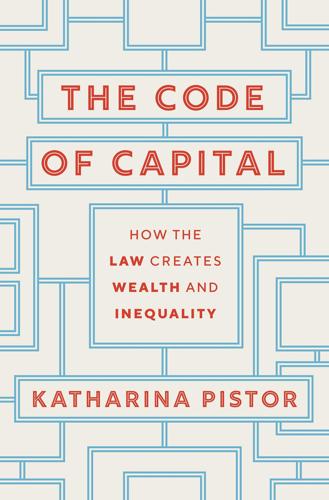
The Code of Capital: How the Law Creates Wealth and Inequality
by
Katharina Pistor
Published 27 May 2019
In 1918, Justice Brandeis could still claim that “[t]he general rule of law is, that the noblest of human productions—knowledge, truths ascertained, conceptions, and ideas—become, after voluntary communication to others, free as the air to common use.”4 Indeed, why should anyone have exclusive rights, even if only temporarily, over goods that remain undiminished even after some have made use of them? Knowledge, after all is a “non-rivalrous good,” for which there cannot be a “tragedy of the commons”; instead, everyone should be able to share the knowledge that has been accumulated over centuries. Nonetheless, less than a century after Justice Brandeis wrote these wise words, legal enclosure has reduced the “knowledge commons” much further than he could have imagined.5 Legal enclosure battles have always pushed the limits of existing boundaries as we have seen with respect to the enclosure battles over land in England and its colonies.
…
See common law entitlements, 44–46, 212, 217, 219, 222–24, 260n8 entrepreneurs, 7, 59–60, 93, 114, 163, 179, 206–7 equity rule, 31–32 Ethereum, 195–97, 201, 272n29 European Central Bank, 79, 260n12 European Commission, 79, 148 European Court of Justice, 70, 156 European Union (EU), 224; bilateral investment treaties (BITs) and, 264n67; capital adequacy and, 73–74; Comprehensive Economic and Trade Agreement (CETA) and, 156–57, 264n69; corporations and, 72, 249n51; debt and, 106; global code and, 134, 137, 140, 156, 263n48, 264n67; International Swaps and Derivatives Association (ISDA) and, 148 eviction, 41, 233 exclusive use rights, 35, 209 exogenous shocks, 118, 188 Facebook, 130 Fannie Mae, 84–85, 94 Federal Home Bank of Chicago, 85 feudal calculus, 5–6, 129, 223 feudalism: capital rule and, 5–6, 205, 211, 223, 276n24; France and, 276n24; legal code and, 5–6, 10, 30, 36, 128–29, 158, 205, 211, 218, 223, 276n24; property and, 30, 36, 128–29, 158, 218 fidelity, 85 Fifth Amendment, 241n9 Financial Stability Board (FSB), 150–51 Financial Times journal, 223 First Amendment, 87 Flemish Weavers, 118 Florence, Italy, 56–58 FMC Corporation, 124 Ford, 247n17 foreclosure, 39, 95–98, 253n44 Fourteenth Amendment, 25 France: Banque de France and, 104; bills of exchange and, 252n31; civil law and, 168, 171–72; Code de Commerce and, 252n31; D’Estaing and, 240n64; exporting law and, 133; feudalism and, 276n24; International Swaps and Derivatives Association (ISDA) and, 151; lawyers and, 170–71, 178; legal profession requirements and, 170–72; minting debt and, 85, 93, 102–4; Napoleon and, 133, 242n27; Péreire brothers and, 102–3; property rights and, 218, 242n27; skyrocketing lawyer fees and, 173; Société General and, 85; top global law firms and, 178–79 Freddie Mac, 94 Frederick the Great, 3 free market, 4, 19, 106–7, 128–29 free trade, 38, 121, 123–24, 138 Fuld, Richard, 62–63 General Agreement on Tariffs and Trade (GATT), 123 General Electric, 124 General Estates of the Netherlands, 65–66, 276n24 General Motors, 124, 247n17 genetics: BRCA and, 111–14, 116, 127, 130, 214; cease and desist orders and, 113; courts and, 109–16, 127, 211, 214; Crick and, 108–10; enclosure and, 109–12, 115; Human Genome Project and, 109–10; inheritance and, 109; intellectual property and, 107–16, 127–29, 214; legal code and, 108, 110, 114, 116; Mendel and, 108; monopolies and, 109–12, 115; Myriad Genetics and, 112–16, 127–29, 214; National Institutes of Health (NIH) and, 109, 112; nature’s code and, 109–12, 115; patents and, 109–16, 230; privatizing, 111–12; risk and, 111–14, 116, 127, 130, 214; sequencing and, 109–13, 127–28; US Supreme Court and, 109–13, 116, 127, 211, 214; Watson and, 108–10; Wilkins and, 109 Germany, 13, 209, 246n7; Bayerische Landesbank and, 85; bills of exchange and, 252n31; civil law and, 168, 238n48; Constitution of, 241n10; credit cooperatives and, 93–94; exporting law and, 133; frustration of contracts and, 271n13; Herstatt bank and, 137; International Swaps and Derivatives Association (ISDA) and, 151; Law on Judges and, 268n42; lawyers and, 172–73, 178–79; Lehman Brothers and, 49; Loan Market Association (LMA) and, 262n32; private money and, 101; seat theory and, 70; state power and, 107; subjective rights and, 275n10; top global law firms and, 178; unification of, 267n38 Getzler, Joshua, 40 Gilson, Ronald, 163 Ginnie Mae, 92 global code: arbitration and, 136, 139–43, 146, 152, 154–57, 261n27; assets and, 132, 135–38, 142–50, 154; autonomy and, 134–35; Bank for International Settlement (BIS) and, 149–50; bankruptcy and, 137, 144–53, 262n42; Belize and, 261n21; bilateral trade and, 122, 132, 136, 140, 154–56, 256n23; Canada and, 138–43, 156–57, 261n17, 261n18, 263n57, 264n69; capitalism and, 132–33; capital rule and, 152–57; central banks and, 151; coercive power and, 132, 154; collateral and, 144, 148, 263n48; common law and, 133, 264n65; Comprehensive Economic and Trade Agreement (CETA) and, 156–57; conflict of law and, 134–35; contracts and, 135–37, 139, 145–53; corporate law and, 135–36, 155; courts and, 133, 136, 138–46, 150, 152–56, 261n18, 261n21, 262n45; creditors and, 144, 147–50, 262n41, 262n45; debt and, 144, 147, 149–50, 262n41; derivatives and, 143–53, 262n36, 263n49; elitism and, 133; enforcement and, 134, 139–40, 147, 152, 154; expanding private choice and, 134–37; exporting law and, 132–34; intellectual property and, 136, 138, 140, 143; International Center for Settlement of Investment Disputes (ICSID) and, 154–55; International Swaps and Derivatives Association (ISDA) and, 145–53, 261n31, 271n18; investment and, 132, 134–42, 154–57; lawyers and, 135–36, 142–45, 154, 176–79, 261n27; legal code and, 132–33, 143; legal structures and, 134; Lehman Brothers and, 135, 149; Marxism and, 154; NC2 and, 135; New York Arbitration Convention and, 154; patents and, 122, 136–43, 152; priority rights and, 149, 156; private law and, 133, 136, 154; property and, 135–40, 143, 262n45; regulation and, 132, 135, 137, 141, 143, 145, 148, 151–54, 264n58, 264n67; risk and, 146, 262n45; shareholders and, 135; sovereignty and, 135–44, 148, 152, 155, 157, 277n51; state money and, 147; state power and, 138, 141, 154; treaty law and, 136–42, 154–57; United Kingdom and, 151 globalization: capital rule and, 219–23, 277n51; code masters and, 176–79, 270n71; empire of law and, 2; nature’s code and, 121–22 global law, 8–9, 145, 166–67, 176, 178–79 gold coins, 254n55 Goldman Sachs, 49, 100, 175, 203, 248, 255n70, 271n19, 274n57 Google, 129–31, 259n80 government-sponsored entity (GSE), 84, 94, 253n39 Great Depression, 49, 106 Great Financial Crisis, ix–x; bailouts and, 55, 62, 64, 104–5, 151, 226, 247n17; car manufacturers and, 55; Lehman Brothers and, 48–58, 61–65, 70–75, 80, 85, 96, 101, 103–4, 106, 135, 149, 175, 190, 245n4, 246n6, 248n33; misleading information and, 161; put option and, 55; US Consumer Financial Protection Bureau and, 182 Greece, 255n66 Greenspan, Alan, 105 growth: capital rule and, 220; code masters and, 166, 175, 267n26, 270n71; elephant curve and, 1, 8; empire of law and, 1, 4, 8, 20, 235n10; minting debt and, 102, 106; nature’s code and, 117; property and, 4 guilds, 128–29, 170, 206, 258n61, 259n70 Guinness brewery, 38 Hague Conference on International Private Law, 136 Harvard Law School, 175, 268n47 Haskel, Jonathan, 115–16 hedge funds, 64, 102, 105–6, 151, 251n5 Herstatt bank, 137 Hewlett-Packard, 124 Hindu law, 177 Hirschman, Albert, 221, 248n42 Hodgson, Geoffrey, 10 homeowners, 59, 80–84, 86, 88, 94–98, 100, 106 House of Lords, 38, 158 housing market, 5, 61, 94 Human Genome Project, 109–10 human rights, 29, 139, 228, 261n21 Ibanez, Antonio, 95–97 IBM, 124 immortality, 50, 55, 65–67 immutable ledgers, 188–90 imperialism, 17, 133 incorporation theory, 69–70, 74, 136, 246n10 India, 122 Indian Removal Act, 34 industrial policy, 118–21 inequality: capital rule and, 223; code masters and, 167; coding land and, 46; empire of law and, 1–3, 6, 21–22, 235n9, 240n69, 240n70 inflation, 15, 101, 106–7, 254n56 inheritance law, 238n48 initial coin offerings (ICOs), 195–96 Inns of Court, 32, 169, 242n29 insurance, 3, 100, 157, 178, 190–91, 271n17 intangible capital, 8; capital rule and, 212, 216; empire of law and, 13; enclosure and, 117; intellectual property and, 13, 24, 115–18, 120–21, 143, 212, 216; patents and, 143, 212 (see also patents); shareholders and, 117 intellectual property: abstract ideas and, 110; Austro-Hungarian Empire and, 120; big data and, 126–31; Canada and, 138–43, 152–55, 261n17, 261n19; capital rule and, 212–13; coding land and, 24, 241n10; copyright and, 11, 115, 256n23; digital code and, 186, 203–4; empire of law and, 3, 5, 11, 19; genetics and, 107–16, 127–29, 214; global code and, 136, 138, 140, 143; intangible capital and, 13, 24, 115–18, 120–21, 143, 212, 216; monopolies and, 109, 115, 120–24; Myriad and, 112–16, 127, 129, 214; nature’s code and, 108–9, 115, 120–30; Netherlands and, 120; patents and, 11, 109–23, 126–30, 136–43, 152, 203–4, 211–15, 230, 256n3, 256n18, 257n24, 257n42, 274n54, 274n57; pharmaceutical industry and, 121–22, 124, 129, 138–42, 152–55, 261n17, 261n19; shareholders and, 114–15; Trade Act and, 121; trademarks and, 11, 115–16, 215; trade secrets and, 126–31; tragedy of the commons and, 109; TRIPS and, 123–25, 136, 138; United Kingdom and, 117–21; United States and, 109, 112, 115, 121–24, 256n23; US Constitution and, 241n10 Intellectual Property Committee (IPC), 123–24 Interamerican Commission on Human Rights (IACHR), 29, 261n21 interest rates, 80, 90, 190 International Capital Market Association, 262n32 International Center for Settlement of Investment Disputes (ICSID), 154–55 International Court of Justice, 125, 146 International Monetary Fund (IMF), 64, 79 international private law, 68–69, 136 International Swaps and Derivatives Association (ISDA), 145–53, 261n31, 271n18 International Trade Organization, 123 investment: capital rule and, 225–26; cloning legal persons and, 48–53, 60–65, 67, 72, 75, 248n39; code masters and, 160–61, 165, 167–68; coding land and, 25, 37, 45, 241n13; digital code and, 195–97, 200–2, 272n33; empire of law and, 12, 14, 16, 112; entrepreneurs and, 7, 59–60, 93, 114, 163, 179, 206–7; global code and, 132, 134–42, 154–57; intangible capital and, 116–17; minting debt and, 77–86, 91–107, 251n12; nature’s code and, 114; rate of return and, 4–5, 147 invisible hand, 6–9, 225, 236n18 Ireland, 72, 104, 233, 250n57 ISDS (investor-state-dispute-settlement), 136–38, 140, 155–56, 261n22 Islamic law, 177 Japan, 51, 124, 133, 260n3 jingle rule, 247n24 Johnson & Johnson, 124 Johnson v.
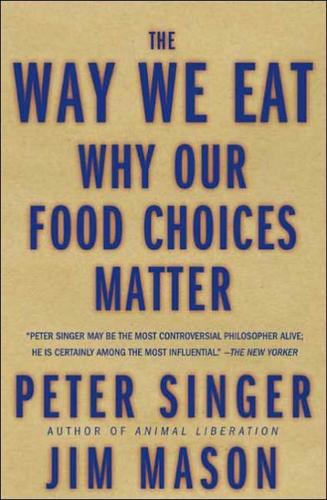
The Way We Eat: Why Our Food Choices Matter
by
Peter Singer
and
Jim Mason
Published 1 May 2006
Mary Ann Masarech's seafood purchases were Norwegian Salmon fillets, Maryland crab cakes, and shrimp kebobs, all bought online from Horizon Foods and delivered to her door. These different purchases involve very different kinds of sea creatures coming from very different waters. They raise many different ethical issues, but we can group them into two broad kinds: environmental issues, and concern about animal suffering. THE TRAGEDY OF THE COMMONS AND THE STORY OF COD Our love for fish is wiping many of them out. World consumption of fish and fishery products-the "products" include fish meal for animal feed and fertilizer-has more than tripled since 1960. A quarter of the world's commercially important ocean fish populations are depleted or slowly recovering from past over-exploitation; another 47 percent are fished to the full extent of their capacity, so that increasing the number of fish caught would risk causing a population collapse.
…
The 17 billion estimate is from www.fishinghurts.com/fishingl01.asp, calculated by dividing the total weight of seafood consumed by an estimated average weight per creature. 2 "Challenge to Fishing: Keep Unwanted Species Out of Its Huge Nets," Otto Pohl, The New York Times, July 29, 2003 www.nytimes.com/2003/07/29/science/29BYCA.html. 3 Garrett Hardin, "The Tragedy of the Commons," Science, 162 (1968) pp. 1243-48. 4 "A Run on the Banks: How 'Factory Fishing' Decimated Newfoundland Cod," Colin Woodward, E Magazine, March/April, 2001. www.emagazine.com/view/?507. 5 Information from Tim Fitzgerald, Environmental Defense Trust, Oceans Program, 257 Park Avenue South, New York, NY 10010, and James lanelli, Alaska Fish.

The Tangled Web: A Guide to Securing Modern Web Applications
by
Michal Zalewski
Published 26 Nov 2011
The interests of users, system owners, data providers, business process owners, and software and hardware vendors tend to differ significantly and shift rapidly—when the stakeholders are capable and willing to clearly and honestly disclose their interests to begin with. To add insult to injury, sociology and game theory suggest that computing a simple sum of these particular interests may not actually result in a beneficial outcome. This dilemma, known as “the tragedy of the commons,” is central to many disputes over the future of the Internet. Wishful thinking does not automatically map to formal constraints. Even if we can reach a perfect, high-level agreement about how the system should behave in a subset of cases, it is nearly impossible to formalize such expectations as a set of permissible inputs, program states, and state transitions, which is a prerequisite for almost every type of formal analysis.
…
.> tag (HTML), HTTP/HTML Integration Semantics, Life Outside Same-Origin Rules taxonomy, Enlightenment Through Taxonomy TCP (Transmission Control Protocol), Hypertext Transfer Protocol, Cross-Domain Policy Files, Access to Internal Networks connections via XMLSocket, Cross-Domain Policy Files list of prohibited ports, Access to Internal Networks TCP/IP, HTTP and, Hypertext Transfer Protocol Temporary Redirect status code (307), 300-399: Redirection and Other Status Messages testing, for Internet Explorer use, Access to Other Documents text message, sending to window with valid JavaScript handle, document.domain TEXT token, Header Character Set and Encoding Schemes text/css document type, Plaintext Files text/csv document type, Content Recognition Mechanisms text/html document type, RSS and Atom Feeds text/plain document type, Plaintext Files, Cross-Domain Policy Files, Special Content-Type Values, Defensive Uses of Content-Disposition, Detection for Non-HTTP Files third-party applications, protocols claimed by, Common URL Schemes and Their Function third-party cookies, limitations, Prohibited Ports threat evolution, The Evolution of a Threat, The Evolution of a Threat, The User as a Security Flaw, The User as a Security Flaw cloud, The User as a Security Flaw nonconvergence of visions, The User as a Security Flaw user as security flaw, The Evolution of a Threat Threats Against and Protection of Microsoft’s Internal Network (Microsoft), Enter Risk Management three-step TCP handshake, Keepalive Sessions TIFF file format, Type-Specific Content Inclusion timer, in JavaScript, Execution Ordering Control timing attacks, on user interfaces, Window-Positioning and Appearance Problems TLS (Transport Layer Security), Protocol-Level Encryption and Client Certificates top-level domains, Problems with Domain Restrictions toSource() method (JavaScript), Execution Ordering Control toStaticHTML() API, Other Developments, XSS Filtering toString() method (JavaScript), Execution Ordering Control TRACE method (HTTP), HEAD tracking, unscrupulous online, Limitations on Third-Party Cookies tragedy of the commons dilemma, Flirting with Formal Solutions Transfer-Encoding: chunked scheme, Chunked Data Transfers Transmission Control Protocol (TCP). See TCP (Transmission Control Protocol), Protocol-Level Encryption and Client Certificates Transport Layer Security (TLS), Protocol-Level Encryption and Client Certificates Trident parsing engine, Hypertext Markup Language Trusted sites zone, for Internet Explorer, Form-Based Password Managers Turing, Alan, Flirting with Formal Solutions type parameter, for plug-in tag, Content Rendering with Browser Plug-ins U UI spoofing attacks, and Flash, Adobe Flash unauthenticated requests, by browser, HTTP Cookie Semantics Unauthorized status error (401), 300-399: Redirection and Other Status Messages, HTTP Cookie Semantics unhandled exception, in JavaScript, Code Execution Unicode, Handling of Non-US-ASCII Text, Understanding HTML Parser Behavior, Entity Encoding, Access to Other Documents, Script Character Encoding decimal &#number; notation for, Entity Encoding escaping method based on, Script Character Encoding JavaScript support, Access to Other Documents whitespace, Understanding HTML Parser Behavior Uniform Messaging Policy, XDomainRequest Uniform Resource Locators (URLs), It Starts with a URL, It Starts with a URL, It Starts with a URL, Uniform Resource Locator Structure, Scheme Name, Indicator of a Hierarchical URL, Indicator of a Hierarchical URL, Server Address, Server Address, Hierarchical File Path, Hierarchical File Path, Fragment ID, Putting It All Together Again, Common URL Schemes and Their Function, Encapsulating Pseudo-Protocols, Encapsulating Pseudo-Protocols, Resolution of Relative URLs, document.domain, Navigation to Sensitive Schemes browser processing, Fragment ID common schemes, Common URL Schemes and Their Function constructing based on user input, Resolution of Relative URLs encoding, Putting It All Together Again encoding data in fragment identifiers, document.domain fully qualified absolute, It Starts with a URL hiding with encapsulating protocols, Encapsulating Pseudo-Protocols navigation based on tiers of schemes, Navigation to Sensitive Schemes resolution of relative, Encapsulating Pseudo-Protocols structure, It Starts with a URL, Uniform Resource Locator Structure, Scheme Name, Indicator of a Hierarchical URL, Indicator of a Hierarchical URL, Server Address, Server Address, Hierarchical File Path, Hierarchical File Path credentials, Indicator of a Hierarchical URL fragment ID, Hierarchical File Path hierarchical file path, Server Address indicator of hierarchical URLs, Scheme Name query string, Hierarchical File Path scheme name, It Starts with a URL server address, Indicator of a Hierarchical URL server port, Server Address UniformRequest API, XDomainRequest University of Illinois, Tales of the Stone Age: 1945 to 1994 Unix services, listener process, Execution Time and Memory Use Restrictions unreserved characters, in HTML, Reserved Characters and Percent Encoding unrestricted URL scheme, Navigation to Sensitive Schemes url(...) pseudo-functions (CSS), Basic CSS Syntax URL-handling APIs, Properties of ActionScript URL-level proposals, URL- and Protocol-Level Proposals URLs (Uniform Resource Locators).
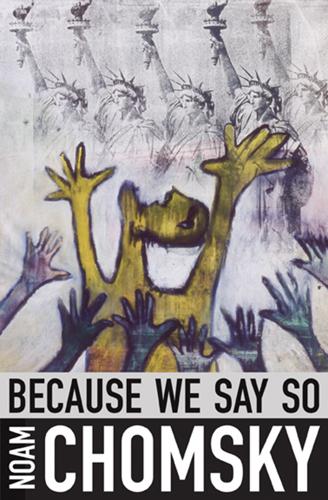
Because We Say So
by
Noam Chomsky
This is only one example of struggles under way over much of the world, some with extreme violence, as in resource-rich eastern Congo, where millions have been killed in recent years to ensure an ample supply of minerals for cellphones and other uses, and of course ample profits. The dismantling of the Charter of the Forest brought with it a radical revision of how the commons are conceived, captured by Garrett Hardin’s influential thesis in 1968 that “Freedom in a commons brings ruin to us all,” the famous “tragedy of the commons”: What is not privately owned will be destroyed by individual avarice. The doctrine is not without challenge. Elinor Olstrom won the Nobel Memorial Prize in Economic Sciences in 2009 for her work showing the superiority of user-managed commons. But the doctrine has force if we accept its unstated premise: that humans are blindly driven by what American workers, at the dawn of the industrial revolution, called “the New Spirit of the Age, Gain Wealth forgetting all but Self”—a doctrine they bitterly condemned as demeaning and destructive, an assault on the very nature of free people.
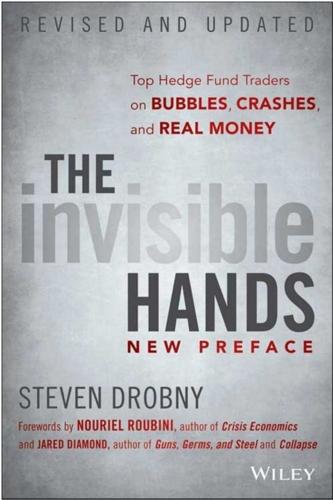
The Invisible Hands: Top Hedge Fund Traders on Bubbles, Crashes, and Real Money
by
Steven Drobny
Published 18 Mar 2010
In economics, the illiquidity risk premium is called a negative externality: an economic transaction that has a negative impact on another party not directly involved in the transaction. If negative externalities are not centrally managed there is a resulting phenomenon of over investment, which is known as the “tragedy of the commons.” In extension to a risk budget, managers must be given a liquidity limit or else the plan will, in aggregate, find itself participating in this “tragedy.” If illiquidity is not measured, controlled, and managed, it will be overinvested in. How do you hedge the illiquidity risk? The only certain way to hedge it is to avoid it completely.
…
See Risk premia payment Price/earnings (P/E) multiples, exchange rate valuation (relationship) Primary Dealer Credit Facility, placement Prime broker risk Princeton University (endowment) Private equity cash flow production tax shield/operational efficiency arguments Private sector debt, presence Private-to-public sector risk Probability, Bayesian interpretation Professor, The bubble predication capital loss, avoidance capital management cataclysms, analysis crowding factor process diversification efficient markets, disbelief fiat money, cessation global macro fund manager hedge fund space historical events, examination idea generation inflation/deflation debate interview investment process lessons LIBOR futures ownership liquidity conditions, change importance market entry money management, quality opportunities personal background, importance portfolio construction management positioning process real macro success, personality traits/characteristics (usage) returns, generation risk aversion rules risk management process setback stocks, purchase stop losses time horizon Titanic scenario threshold trades attractiveness, measurement process expression, options (usage) personal capital, usage quality unlevered portfolio Property/asset boom Prop shop trading, preference Prop trader, hedge fund manager (contrast) Protectionism danger hedge process Public college football coach salary, public pension manager salary (contrast) Public debt, problems Public pensions average wages to returns endowments impact Q ratio (Tobin) Qualitative screening, importance Quantitative easing (QE) impact usage Quantitative filtering Random walk, investment Real annual return Real assets Commodity Hedger perspective equity-like exposure Real estate, spread trade Real interest rates, increase (1931) Real macro involvement success, personality traits/characteristics (usage) Real money beta-plus domination denotation evolution flaws hedge funds, differentiation impacts, protection importance investors commodity exposure diversification, impact macro principles management, change weaknesses Real money accounts importance long-only investment focus losses (2008) Real money funds Commodity Hedger operation Equity Trader management flexibility frontier, efficiency illiquid asset avoidance importance leverage example usage management managerial reserve optimal portfolio construction failure portfolio management problems size Real money managers Commodity Investor scenario liquidity, importance long-term investor misguidance poor performance, usage (excuse) portfolio construction valuation approach, usage Real money portfolios downside volatility, mitigation leverage, amount management flaws Rear view mirror investment process Redemptions absence problems Reflexivity Rehypothecation Reichsmarks, foreign holders (1922-1923) Relative performance, inadequacy Reminiscences of a Stock Operator (Lefèvre) Renminbi (2005-2009) Repossession property levels Republic of Turkey examination investment rates+equities (1999-2000) Reserve currency, question Resource nationalism Returns forecast generation maximization momentum models targets, replacement Return-to-worst-drawdown, ratios (improvement) Reward-to-variability ratio Riksbank (Sweden) Risk amount, decision aversion rules capital, reduction collars function positive convexity framework, transition function global macro manager approach increase, leverage (usage) measurement techniques, importance parameters Pensioner management pricing reduction system, necessity Risk-adjusted return targets, usage Risk assets, decrease Risk-free arbitrage opportunities Risk management Commodity Hedger process example game importance learning lessons portfolio level process P&L, impact tactic techniques, importance Risk premia annualization earning level, decrease specification Risk/reward trades Risk-versus-return, Pensioner approach Risk-versus-reward characteristics opportunities Roll yield R-squared (correlation) Russia crisis Russia Index (RTSI$) (1995-2002) Russia problems Savings ratio, increase Scholes, Myron Sector risk, limits Securities, legal lists Self-reinforcing cycles (Soros) Sentiment prediction swings Seven Sisters Sharpe ratio increase return/risk Short-dated assets Short selling, ban Siegel’s Paradox example Single point volatility 60-40 equity-bond policy portfolio 60-40 model 60-40 portfolio standardization Smither, Andrew Socialism, Equity Trader concern Society, functioning public funds, impact real money funds, impact Softbank (2006) Soros, George self-reinforcing cycles success Sovereign wealth fund Equity Trader operation operation Soybeans (1970-2009) Special drawing rights (SDR) Spot price, forward price (contrast) Spot shortages/outages, impact Standard deviation (volatility) Standard & Poor’s 500 (S&P500) (2009) decrease Index (1986-1995) Index (2000-2009) Index (2008) shorting U.S. government bonds, performance (contrast) Standard & Poor’s (S&P) shorts, coverage Stanford University (endowment) State pension fund Equity Trader operation operation Stochastic volatility Stock index total returns (1974-2009) Stock market increase, Predator nervousness Stocks hedge funds, contrast holders, understanding pickers, equity index futures usage shorting/ownership, contrast Stops, setting Stress tests, conducting Subprime Index (2007-2009) Sunnies, bidding Super Major Survivorship bias Sweden AP pension funds government bond market Swensen, David equity-centric portfolio Swiss National Bank (SNB) independence Systemic banking crisis Tactical asset allocation function models, usage Tactical expertise Tail hedging, impact Tail risk Take-private LBO Taleb, Nassim Tax cut sunset provisions Taxes, hedge Ten-year U.S. government bonds (2008-2009) Theta, limits Thundering Herd (Merrill Lynch) Time horizons decrease defining determination shortening Titanic funnel, usage Titanic loss number Titanic scenario threshold Topix Index (1969-2000) Top-line inflation Total credit market, GDP percentage Total dependency ratio Trade ideas experience/awareness, impact generation process importance origination Traders ability Bond Trader hiring characteristics success, personality characteristics Trades attractiveness, measurement process hurdle money makers, percentage one-year time horizon selection, Commodity Super Cycle (impact) time horizon, defining Trading decisions, policy makers (impact) floor knowledge noise level ideas, origination Tragedy of the commons Transparency International, Corruption Perceptions Index Treasury Inflation-Protected Securities (TIPS) trade Triangulated conviction Troubled Asset Relief Program (TARP) Turkey economy inflation/equities (1990-2009) investment rates+equities (1999-2000) stock market index (ISE 100) Unconventional Success (Swensen) Underperformance, impact Undervaluation zones, examination United Kingdom (UK), two-year UK swap rates (2008) United States bonds pricing debt (1991-2008) debt (2000-2008) home prices (2000-2009) hyperinflation listed equities, asset investment long bonds, market pricing savings, increase stocks tax policy (1922-1936) trade deficit, narrowing yield curves (2004-2006) University endowments losses impact unlevered portfolio U.S.
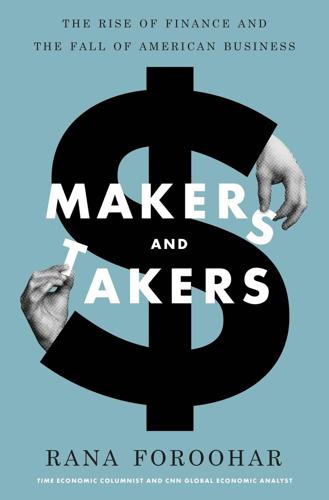
Makers and Takers: The Rise of Finance and the Fall of American Business
by
Rana Foroohar
Published 16 May 2016
Companies have higher profit margins—and thus higher stock prices—not because the economy is booming and they are selling more stuff, but because they have cut costs, kept salaries flat, and avoided investing in new factories and R&D. Basically, American firms are acting like low-wage companies in a high-wage economy, which gives them a temporary boost but ultimately results in a tragedy of the commons—once everyone runs a low-wage company, no one will make much money at all. As the OFR report puts it, “Although this financial engineering has contributed to higher stock prices in the short run, it detracts from opportunities to invest capital to support longer-term organic growth.”48 Indeed, it’s already having that effect.
…
Because there are European Union tax agreements in place that allow money to move freely between EU countries, American firms can set up Dutch subsidiaries and transfer more money from more countries into Irish subsidiaries. The whole thing creates a global race to the bottom, which underscores one of the key problems of tax avoidance: the so-called “tragedy of the commons” where, in the end, everyone loses. This is a key reason that the G8, the OECD, and other international bodies are making global tax reform a big priority. (Ireland in particular, under pressure from other countries like the United States, is now reconsidering some of its dicey exceptions.)13 There are plenty of crazy exemptions and rules that enrich the takers by encouraging debt in the consumer sphere, too.
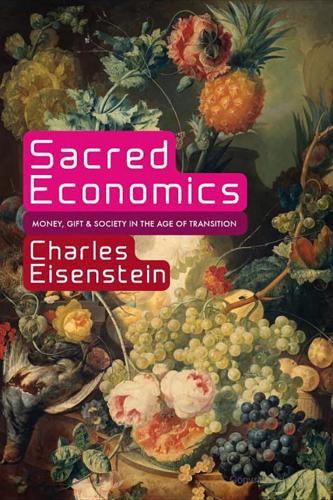
Sacred Economics: Money, Gift, and Society in the Age of Transition
by
Charles Eisenstein
Published 11 Jul 2011
Such a decision is something new on the face of the earth. To be sure, governments today use regulations and taxes to halt or slow the consumption of certain parts of the commons, but never yet have we gotten together to ask, “How much is enough?” Ancient villages protected their commons through tradition, custom, and social pressure (the “tragedy of the commons” is largely a myth2), but on the scale of society today, we need to engage a political process to reach and implement a consensus. This process would consider the scientific consensus about what use of the commons is sustainable, as well as the social consensus about the relative importance of, say, the labor-saving convenience of internal combustion engines versus the pleasures of a quiet autumn day.
…
Is it possible to reverse the mechanism of interest, which, like the expropriation of the commons, allows those who own it to profit by its mere ownership? It is to this crucial matter we turn next. 1. I should acknowledge here that pure Marxist theory does not see state ownership as the final stage of communism, but says that the state will eventually wither away, and, presumably, the concept of property along with it. 2. The tragedy of the commons is a pseudo-historical story meant to illustrate the free-rider problem. In it, the meadow in a village commons was stripped bare of vegetation, because it was to each villager’s advantage to graze as many sheep there as possible. When everyone pursued their own advantage, the result was overgrazing and losses for all. 3.
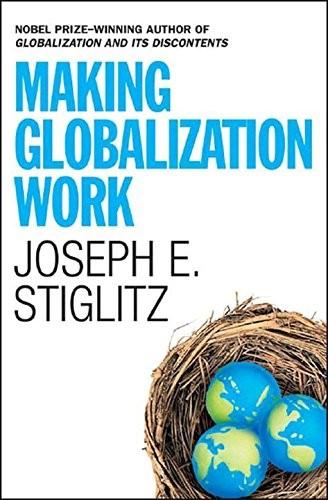
Making Globalization Work
by
Joseph E. Stiglitz
Published 16 Sep 2006
In this chapter, I explain both why it has proven so difficult and what can be done: how we can take the economic forces of globalization—which have so far been injurious to the environment—and make them work to preserve it. The Underlying Problem: The Tragedy of the Commons In chapter 4 we talked about enclosure of the commons, and what happens when something that should be owned by all in common becomes sequestered as private property. But there is another aspect to common property—what is sometimes called the “tragedy of the commons.”1 When there is a common resource that can be used freely by all, each user fails to think about how his actions might harm others; each loses sight of the common good.
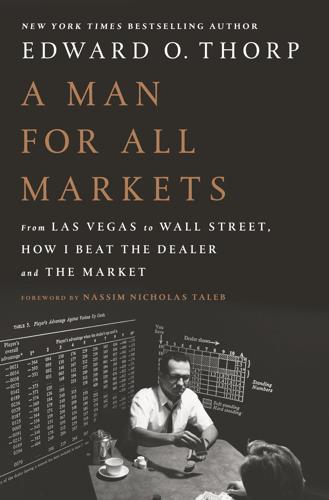
A Man for All Markets
by
Edward O. Thorp
Published 15 Nov 2016
Smith suggested that in an economy of many small buyers and sellers, each trying to increase his own profit, our collective benefit would be maximized as though guided by an “invisible hand.” The notion is of limited use, because most markets are not as Smith assumed. Take computer chips: 99.8 percent of them, worldwide, are made by just two US companies, and the smaller one is fighting to survive. An opposite concept to the magic of the invisible hand is “the tragedy of the commons,” as explained in 1968 by Garrett Hardin. Imagine a natural resource that anyone can freely use, such as—once upon a time—catching fish in the ocean. In the eighteenth century, schools of cod were so vast that Benjamin Franklin was amazed when his ship plowed through them for days at a time.
…
Wall Street Journal (as reprinted in The Orange County Register, May 11, 2014, Business, page 3) says a study by the Economic Policy Institute found that for the 350 companies with the largest sales, CEOs received 18 times the pay of their workers in 1965 but were compensated 201 times as much, on average, in 2012. as Moshe Adler Adler, Moshe, “Overthrowing the Overpaid,” Los Angeles Times Opinion, page A15, January 4, 2010. CHAPTER 30 Garrett Hardin Hardin, Garrett, “The Tragedy of the Commons,” Science, Vol. 162, No. 3859 December 13, 1968, pp. 1243–48. protects my neighbors Vaccination is a positive externality as it protects others from contracting a disease from the recipient. collection of insights Poor Charlie’s Almanack: The Wit and Wisdom of Charles T. Munger, Foreward by Warren Buffett, edited by Peter Kaufman.
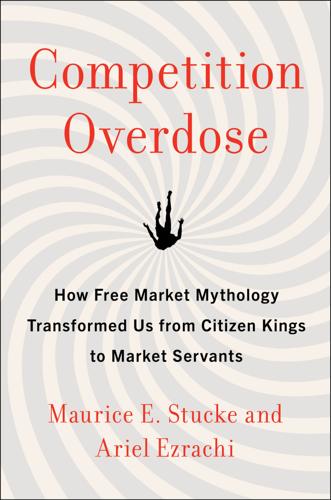
Competition Overdose: How Free Market Mythology Transformed Us From Citizen Kings to Market Servants
by
Maurice E. Stucke
and
Ariel Ezrachi
Published 14 May 2020
Instead, the cooperation will quickly devolve into a zero-sum race to see who can chop down the most trees the fastest. The result: The forest will soon be depleted, and they will all be collectively worse off. Sound familiar? It’s our First Overdose, where individual and collective interests diverge. This “tragedy of the commons” applies to overharvesting of fish, cattle overgrazing on public lands, etc.46 It’s why many companies, absent environmental safeguards, will pollute, or why our public roads are congested. But the First Overdose can be averted if communities effectively govern themselves and their shared resources.
…
id=10.1257/aer.90.4.980. 45.Devesh Rustagi, Stefanie Engel, and Michael Kosfeld, “Conditional Cooperation and Costly Monitoring Explain Success in Forest Commons Management,” Science 330, no. 6006 (November 12, 2010): 961, http://science.sciencemag.org/content/330/6006/961.full. 46.Garrett Hardin, “The Tragedy of the Commons,” Science 162, no. 3859 (December 13, 1968): 1243–48, https://science.sciencemag.org/content/162/3859/1243.full. 47.Forest user groups with a higher percentage of conditional cooperators had more potential crop trees per hectare. A 10 percent increase in the share of free-riders led to an average drop in the forest management outcome by almost seven potential crop trees per hectare. 48.See Michael E.
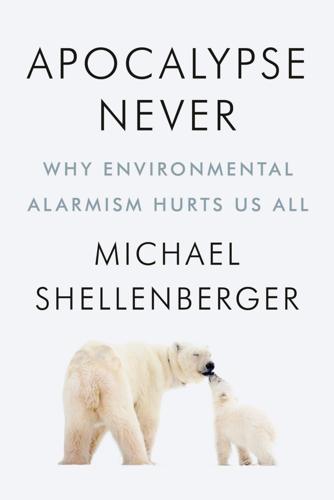
Apocalypse Never: Why Environmental Alarmism Hurts Us All
by
Michael Shellenberger
Published 28 Jun 2020
He called for “population control.”69 The New York Times scolded Johnson for not being Malthusian enough. After all, Johnson had suggested economic growth was still possible “in a world where the Malthusian specter, more terrible than Malthus ever conceived, is so near to being a reality,” editorialized the Times.70 That same year, the journal Science published an article, “Tragedy of the Commons,” by University of California at Santa Barbara biologist Garrett Hardin, which argued that environmental collapse was inevitable because of uncontrolled breeding, and that the only way to avoid the tragedy was “mutual coercion,” in which everybody agreed to similar sacrifices.71 Many conservation leaders embraced Malthusianism.
…
Germany, 151–53 learning curve of, 146 nuclear vs., 146, 151–54, 204–5 powering utopia, 185–88 Starbucks Rule, 199 subsidies for, 153, 207 unreliability of, 176–81 in Vermont, 154 waste and costs, 188–92 Solar homes, 186–87 Solaria, 205 Solar Impulse, 188 Solar panels, 146, 154, 176–77, 188–89, 190–91 Solyndra, 218, 361n South Korea GDP, 104 nuclear energy, 145, 169–71 Soviet Union, 114 Chernobyl nuclear disaster, 145, 147, 148–50, 168, 171 Cold War, 158–61, 172–73, 266 whaling, 108, 124 Soy farming, 35, 38–41 Species area model, 66–67, 263 Species extinction, 65–67 Stanford University, 4, 179, 219, 237, 243, 244 Starbucks Rule, 199 Statoil, 181 Steyer, Tom, 202–4, 209, 220–21 Stone, Robert, 171 Stop Funding Climate Death (banner), x Stotish, Ron, 122 Strontium-90, 161–62 Stryker, Pat, 218 Student Strike for the Climate, 283 Styles, Harry, 222 Sugar-based bioplastics, 60–61 Sugarcane ethanol, 193 Sundesert Nuclear Power Plant, 210–11 Sun Run, 205 Suparti, 88–89, 90, 92–93, 94, 96–100, 106, 247, 277 Sustainable development, 226, 227, 229, 238, 249 Sustainable fashion, 88 Sustainable Practices, 13 Sutherland, Kiefer, 17 Suzuki Maruti Alto, 98 Sweatshops, 87–88, 92–93 Sweden, forest cover, 32, 33 Systems analysis, 114 Taubes, Gary, 132–33, 139, 140 Teicholz, Nina, 131–33, 134, 140 Temperature and labor productivity, 34, 304n Tennessee Valley Authority (TVA), 233–34, 240 Tesla, 178, 218, 219 Tesla Powerwall, 176–77, 219 Texas A&M University, 47 Thermostat hypothesis, 262–63 This Morning (TV show), x–xii Thomas, Gerry, 147–50 Thomas, Philip, 169 Thoreau, Henry David, 186 Three Mile Island accident, 145, 146, 150, 165, 209 350.org, 118, 202, 204, 209, 220, 260, 284 Thunberg, Greta, 3, 32, 223–24, 250, 272–73, 283 Brazil lawsuit, 28 celebrity hypocrisy and, 223–24, 247 Davos speech, 270 nuclear energy opposition, 154–55 United Nations speech, 271 vegetarianism of, 127 Tillich, Paul, 261 “Tipping points,” 25–26 Tohoku tsunami of 2011, 145 Tol, Richard, 253–57 TomKat Charitable Trust, 202 Tortoiseshell, 52–53, 54–55, 61–62 Total SA, 82 Trader Joe’s, 122 “Tragedy of the Commons” (Hardin), 236–37 Trans fats, 132 Trieb, Franz, 195–96 Truman, Harry, 186–87 Trump, Donald, 200 Turner, Ted, 218 24 (TV show), 17 Tyndall Center, 11 Uganda, 7, 68, 73–74, 78, 89–90 Uninhabitable Earth, The (Wallace-Wells), 3, 24–25, 284 Union of Concerned Scientists, 162–63 United Nations Chernobyl nuclear disaster, 149 family planning, 241 Food and Agriculture Organization (FAO), xiii, 6, 13, 121, 129–30, 228 Intergovernmental Panel on Climate Change.
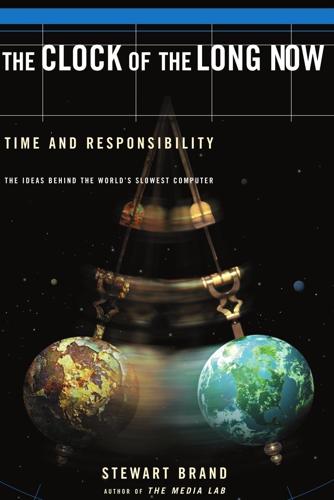
Clock of the Long Now
by
Stewart Brand
Published 1 Jan 1999
The feedback cycle is local and immediate, not routed through bureaucratic specialists or levels of hierarchy. In similar fashion, factories, farms, and cities that pollute rivers and water tables could be required to release their outflows upstream of their own water intake rather than downstream. The much-lamented “tragedy of the commons” is a classic case of pathological feedback—where each individual player is rewarded rather than punished for wasting the common resource. In fact, healthy self-governing commons systems are frequent in the world and in history, as examined in Elinor Ostrum’s Governing the Commons. The commons she dissects include communally held mountain meadows and forests in Switzerland, irrigation cooperatives in Japan and Spain, and jointly managed fisheries in Turkey, Sri Lanka, and Nova Scotia.
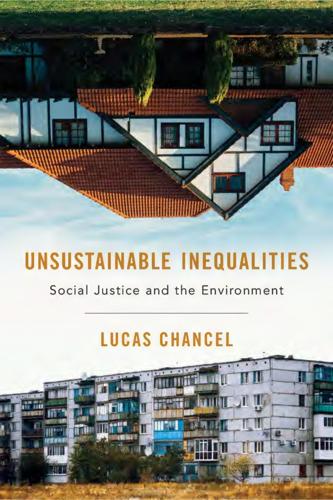
Unsustainable Inequalities: Social Justice and the Environment
by
Lucas Chancel
Published 15 Jan 2020
The municipal council, alert to the inegalitarian implications of such sales, defended the common lands on the ground that they benefitted the poorest (the “unhappiest,” as they were called at the time). Under pressure from the state, however, the council ended up agreeing to the sale of the lands. Such privatizations occurred in many other locations. Unfortunately, the tragedy of the commons illustrated by these historical examples is being reenacted in many parts of the world today. Much the same thing is happening with mangrove forests, the rich ecosystems that grow up around coastal marshes. In Central and South America and Southeast Asia, the privatization of public lands has allowed mangroves to be transformed into shrimp farming zones, typically with the justification that the new industry creates jobs and stimulates regional economic development.
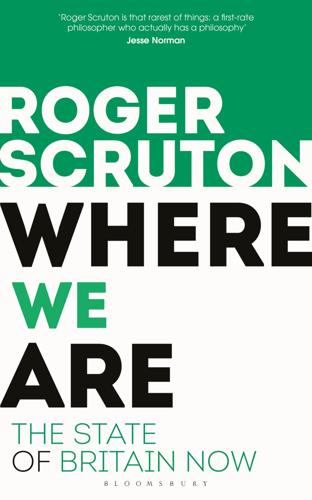
Where We Are: The State of Britain Now
by
Roger Scruton
Published 16 Nov 2017
Oikophilia is deep in all of us, and it is illustrated by the ongoing campaign in Britain to preserve the countryside, by the similar campaign in the United States to protect the unspoiled wilderness, and by all the small-scale local arrangements studied by Elinor Ostrom, in a celebrated proof that the ‘tragedy of the commons’ can be overcome at the local level, when people are conscious of sharing a place as their home.9 But because this topic is a vast one, and because my response to it has been published elsewhere, I leave readers to reflect on real-life examples. They might recall what happened to the well-managed offshore fisheries of our country, when the European Union took charge of them, or what happened to the American cities when zoning laws and government-imposed freeways tore them apart.
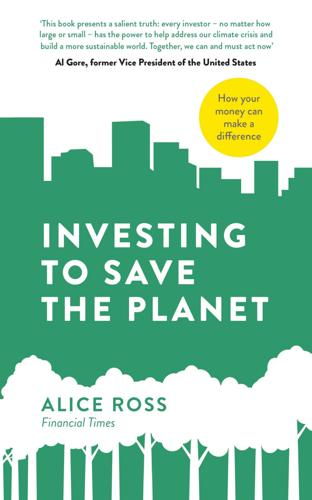
Investing to Save the Planet: How Your Money Can Make a Difference
by
Alice Ross
Published 19 Nov 2020
Carney – the former head of the Bank of England and now UN Special Envoy for Climate Action and Finance – has been one of the most vocal and prominent financiers on the need for financial markets to measure climate risk properly. In 2015, he gave a speech at Lloyd’s of London that is now famous in sustainable investment circles for introducing the concept of ‘the tragedy of the horizon’ – a play on the tragedy of the commons theory, whereby individuals spoil shared resources for everyone by only acting in their own interests. Under the tragedy of the horizon, Carney said, the impacts of climate change will be largely felt by future generations, so it is hard to incentivise the current generation to act. Normally the horizon for central bankers to consider financial stability, he said, is 10 years into the future – by which point it would be too late to act.
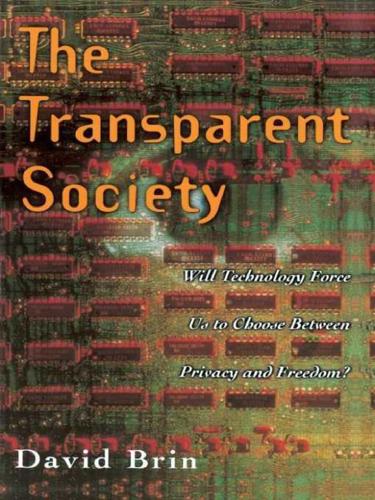
The Transparent Society: Will Technology Force Us to Choose Between Privacy and Freedom?
by
David Brin
Published 1 Jan 1998
A NEW “COMMONS” Back in the European Middle Ages, there existed in England tracts of common lands, fields no one owned that could be used by anyone in the neighboring community. Unwritten rules of sharing evolved, sometimes enforced by a feudal lord, but often mediated by consensus among the farmers and herdsmen themselves. Garrett Hardinʼs influential study The Tragedy of the Commons describes what happened when the medieval order began breaking down. Rising population, improved farm technology, and accelerating commerce put pressure on communal lands. Individuals saw personal benefit in grazing their herds on the commons till every scrap of greenery was eaten. Water was diverted, trees felled, and lumber taken without the earlier foresttending practice of coppicing.
…
So what if this independence, this precious sovereignty, is newer than the youngest Net user, a surprise gift few dreamed of as recently as ten years ago? It is a fact of life that any liberty, once enjoyed, swiftly becomes essential, a requisite as vital to happiness as food and air. Are we about to see another “tragedy of the commons”? Ask the dour pessimists who haunt many electronic discussion forums, unsurprised by any depths society might plumb, the way cynics from Molière to Kerouac used to mutter warily in smoky coffee houses. To them, Garrett Hardinʼs scenario is already unfolding, only this time over a span of months, rather than centuries.

Exploding the Phone: The Untold Story of the Teenagers and Outlaws Who Hacked Ma Bell
by
Phil Lapsley
Published 5 Feb 2013
For more details, listen to Evan Doorbell’s “A HiFi 914 Routing Tape, Part 1” (December 1975), at http://www.phonetrips.com. 245 Colby Street house, “kiss of death”: Condon, author interview, 2009. Additional details provided by John Gilbert and other members of the Colby Street gang. 245 “They explicitly excluded me”: Acker author interviews, 2008 and 2011. 246 The more people who knew: In the physical world economists call this the tragedy of the commons. The term describes situations in which a natural resource (e.g., fish in the sea, or trees, or grazing land) is overused because it does not belong to any one individual and, as a result of such overuse, disappears. I think of the electronic security equivalent as a sort of “tragedy of the informational commons.”
…
A version of this problem also appears in code breaking (if you break your enemy’s codes and then do something with the information you obtain, your enemy is likely to figure out that you’ve broken his codes and will change them, denying you further intelligence) and is explored in Neal Stephenson’s book Cryptonomicon (2002). See Garrett Hardin, “The Tragedy of the Commons,” Science, December 1968, p. 1243, at http://www.sciencemag.org/content/162/3859/1243.full.pdf. 246 One such phreak in New York: Author interview with a New York–area phone phreak who prefers to remain anonymous, 2012. Two of the books in question were the Distance Dialing Reference Guide and the Traffic Routing Guide, both of which described AT&T’s network routing in excruciating detail.
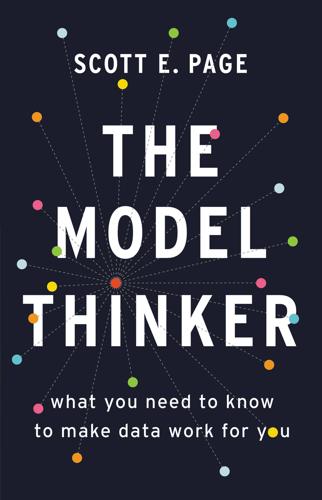
Model Thinker: What You Need to Know to Make Data Work for You
by
Scott E. Page
Published 27 Nov 2018
This type of agile management practice borrows ideas from Agile programming, which replaces the standard waterfall approach of sequential construction with simultaneous code writing, testing, and interactions with users. 17 Another strategy, Generous Tit for Tat, cooperates initially and punishes defections only part of the time. In one set of experiments with errors, this strategy outperforms both Tit for Tat and Win Stay, Lose Shift. See Rand et al. 2009 and Wu and Axelrod 1995. 18 See Axelrod, Axelrod, and Pienta 2006. Chapter 23: Collective Action Problems 1 See Hardin 1968 for an introduction to the tragedy of the commons. 2 See Diamond 2005. 3 See Ostrom 2005 and Ostrom, Janssen, and Anderies 2007. 4 To solve for the social optimum, suppose that each person spends X on the public good. The total utility for the population equals Taking the derivative with respect to X and setting it equal to zero gives Solving gives X = N.
…
Speech given at the Federal Reserve Bank of Kansas City’s 36th Economic Policy Symposium, Jackson Hole, WY. Haldene, Andrew. 2014. “The Dappled World.” Speech given at the University of Michigan Law School, Ann Arbor, October 23. Haldane, John B. S. 1928. “On Being the Right Size.” Online version available at http://irl.cs.ucla.edu/papers/right-size.html. Hardin, Garret. 1968. “The Tragedy of the Commons.” Science 162, no. 3859: 1243–1248. Harrell, Frank E. 2001. Regression Modeling Strategies with Applications to Linear Models, Logistic Regression, and Survival Analysis. New York: Springer. Harstad, Ronald M., and Reinhard Selten. 2013. “Bounded Rationality Models: Tasks to Become Intellectually Competitive.”
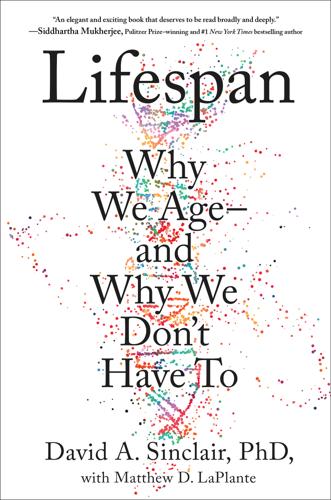
Lifespan: Why We Age—and Why We Don't Have To
by
David A. Sinclair
and
Matthew D. Laplante
Published 9 Sep 2019
But when most people imagine not being able to use a credit card, surf the web, sign up for school, travel by air, or use their phones and smart watches, they quickly conclude that the trade is tolerable. Will people trade a little more privacy to stop a global disease pandemic? Sadly, probably not. The tragedy of the commons is that humans are not very good at taking personal action to solve collective problems. The trick to revolutionary change is finding ways to make self-interest align with the common good. For people to accept widespread biometric tracking in a way that could help us get ahead of fast-moving deadly viruses, they’ll need to be offered something they have a hard time seeing themselves without.
…
It is for this reason that among scientists who subscribe to the idea that our planet has an absolute limit of people it can sustain, those who have offered a generous estimate of the Earth’s carrying capacity are those that assume that our species will be capable of making more from less, even, perhaps, as we increase the standard of living of billions of people. The more pessimistic predictors, meanwhile, generally assume a global “tragedy of the commons” in which we greedily consume ourselves to death at an all-you-can-eat buffet of natural resources. Generally, people will be people, so which way we head will largely be determined by politics and by technology. At least in one regard—the “stuff factor,” so to speak—technology is already driving a tremendous and positive change, a global process of “dematerialization” that has replaced billions of tons of goods with digital products and human services.

Public Places, Urban Spaces: The Dimensions of Urban Design
by
Matthew Carmona
,
Tim Heath
,
Steve Tiesdell
and
Taner Oc
Published 15 Feb 2010
Indeed, property lines are often entirely irrelevant to experiential sense of place – we experience urban places as wholes, with place identity deriving from multiple properties (and the spaces between them) developed, owned and managed by separate owners with differing interests. The buildings themselves were commissioned from disparately motivated architects, and designed and developed at widely varying times. Sense of place can thus be considered as a common or collective property resource and, as with all such resources, is vulnerable to a tragedy-of-the-commons (see Chapter 6). While urban designers cannot make places in any simplistic or deterministic manner, they can increase the ‘place potential’ – the likelihood that people will consider the space a significant and meaningful place. The social and functional dimensions of place are discussed in Chapter 6 and Chapter 8.
…
Although design strategies can be used both to enable and further the aim of exclusion or – at least in part – to promote and enable inclusion, that environments should increase choice and be inclusive is a central tenet of much urban design thinking. Public space is a collective asset or resource. Such assets are prone to a problem commonly referred to as the tragedy-of-the-commons. Writing about public space, Kohn (2004) refers to a tragedy-of-the-agora. This tragedy arises for two reasons. First, there is no incentive for self-restraint in one’s own use of the resource because others will not limit themselves in the same way. Second, there is no incentive to invest in improving the resource because the investor cannot appropriate the benefits of that investment.
…
Similar to chess – in which ‘the meaning of a move is dependent on the location of the other pieces and on the characteristics of the piece’ – it requires ‘… that individual products be designed to engage their built and natural contexts in order to deftly create larger forms.’ (2009: 135, 138). Civic concinnity attempts to address a collective action problem in which individual, independent and beneficial actions can produce a cumulative outcome that is detrimental to all (i.e. a version of the prisoners, dilemma, but also relating to the tragedy-of-the-commons, where individuals have no incentive to consider the impact of their action on the whole). Childs (2009: 140), for example, acknowledges the inevitability of tensions between the ‘civic view’ and the ‘building view’: ‘Meadows and other ecosystems are not composed solely of happy symbiotic relationships.
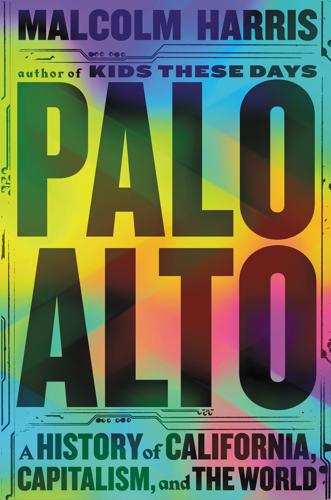
Palo Alto: A History of California, Capitalism, and the World
by
Malcolm Harris
Published 14 Feb 2023
Contractors and, crucially, universities could hold on to their intellectual property and flip it into high-growth start-ups that absorbed large amounts of venture capital, then large amounts of investment capital on the stock market. Counterintuitively, the Reagan administration’s Palo Alto brain trust argued, privatizing public knowledge ensured its best, fullest use for the public. This line of thought was in accordance with a fable that capitalists adopted from the Stanford eco-racist anti-population milieu: the “tragedy of the commons.” In six pages published in the journal Science in December of 1968, the Stanford-trained ecologist Garrett Hardin asserted that the public “commons” was by its nature subject to abuse by maximizing actors. A bigot and cofounder of the anti-immigrant group FAIR, Hardin was worried about population specifically.
…
At the end of the 1980s, after making many people in Palo Alto very rich, the company was majority-acquired by the Swiss multinational pharmaceuticals conglomerate Roche. By getting the government out of the way, the Bay Area’s capitalists and scientists turned a legally dubious piece of paper into a real company that made drugs that people used. It was their payout for rescuing recombinant DNA from the tragedy of the commons. Boosted by the OTL’s DNA IP, Stanford quickly became the top university in the country in terms of patent income.22 What the public gained or lost in the process is hard to calculate. It was an era of trade-offs, even for an institution like Stanford, which grew around finance capital like beans on a trellis, and the administration had to navigate between the opportunities opening up in the private sector and the reduction in public resources.
…
Herbert G. Ruffin, Uninvited Neighbors: African Americans in Silicon Valley, 1769–1990 (Norman, OK: University of Oklahoma Press, 2014), 216. 17. Joint Economic Committee Staff, U.S. Senate, “President Reagan’s Economic Legacy: The Great Expansion,” October 2000, 22. 18. Garrett Hardin, “The Tragedy of the Commons,” Science 162, no. 3859 (1968): 1246. 19. Diamond v. Chakrabarty, 447 U.S. 303 (1980). 20. Doogab Yi, The Recombinant University: Genetic Engineering and the Emergence of Stanford Biotechnology (Chicago: University of Chicago Press, 2015), 207. 21. Ibid., 171. 22. Audra J. Wolfe, Competing with the Soviets: Science, Technology, and the State in Cold War America (Baltimore: Johns Hopkins University Press, 2013), 126. 23.
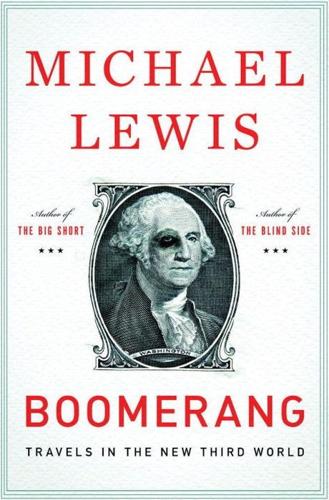
Boomerang: Travels in the New Third World
by
Michael Lewis
Published 2 Oct 2011
As more and more people grasped which places had serious financial problems and which did not, the problems would only increase. “Those who have money and can move do so,” Whitney wrote in her report to her Wall Street clients, “those without money and who cannot move do not, and ultimately rely more on state and local assistance. It becomes effectively a ‘tragedy of the commons.’” The point of Meredith Whitney’s investigation, in her mind, was not to predict defaults in the municipal bond market. It was to compare the states to each other so that they might be ranked. She wanted to get a sense of who in America was likely to play the role of the Greeks, and who the Germans.

Survival of the Richest: Escape Fantasies of the Tech Billionaires
by
Douglas Rushkoff
Published 7 Sep 2022
For this global oligarchy , green investing and the oxymoronically named “venture philanthropy” simply justify new forms of territorial or even interpersonal colonialism. Anything in nature can be improved or even conserved if we first convert it into a form of property, and then exploit its value in accordance with the market. Without real ownership and conscious exploitation, this logic goes, we end up with a “tragedy of the commons,” where peasants or other inferiors lay waste to something valuable. Bill Gates has employed this logic to become the biggest private owner of farmland in the United States. From an investment perspective, it allows him to meet carbon-neutral targets for sustainable portfolios, serving as a counterbalance to his many tech investments.

WTF?: What's the Future and Why It's Up to Us
by
Tim O'Reilly
Published 9 Oct 2017
It was also at the heart of a series of booms and busts in real estate and finance that decimated the economy while enormously enriching a tiny group of economic looters and lucky bystanders. It is the Bizarro World inverse of my maxim that companies must create more value than they capture. Instead, companies seek to capture more value than they create. This is the tragedy of the commons writ large. It is also the endgame of what Milton Friedman called for in 1970, a bad idea that took hold in the global mind, whose consequences took decades to unfold. There is an alternative view, which crystallized for me in 2012, even though I’d been living it all my life, when I heard a talk at the TED conference by technology investor Nick Hanauer.
…
abstraction vs. reality, 21–22 achievement aspiring to be better, 357–58 climate change scenario, 360–63 creating more value than you capture, 17, 104, 246, 249–50, 291–92, 296–97, 354–55 developing a robust strategy, 358–67 and disruptive technology, 351–52 rising to great challenges, 369–72 spotting opportunities, 367–69 taking the long view, 355–57 technology and the future scenario, 364–67 working on what matters to you, 352–54 Active/X, 10 advertising, 79–81, 161–62, 225 Afghanistan, 116–17 Agrarian Justice (Paine), 306 agricultural productivity, 326 AI (artificial intelligence), x, xx–xxi, xxiv, 232–36 and cybercrime, 208–9 expanding research, 231–32 human fears about, ix, xv–xvi, 300 machine learning, 155, 163–69, 235–36, 334–36 personal agents, xiii, xiv–xvi, 82, 232, 233 and power efficiency, 302 social purpose for, 353–54 system design leads to predictable outcomes, 238–41 Airbnb, x, 64, 75, 97–98, 293 Akerlof, George, 249 Albright, Jonathan, 207–8 algorithms, xx, xxiv, 68 filter bubble, 199–200 human judgment vs. fact checking with, 211 management by, 59–61, 68 minimum-wage mandate vs. market-based algorithms, 197–98 and regulations, 180–81 trust in algorithmic systems, 224–28 and whac-a-mole (fake news), 201–9, 211 See also AI Alibaba, 294 Allchin, Jim, 24 AlphaGo, 165, 167 Altman, Sam, 306, 307 Alvarez, José, 197 Amazon, xi, 9, 34, 52–53, 90, 95, 103 1-Click e-commerce patent, 71–75 accessibility of data leads to AWS, 110–13 Andon Cord, 117–18 continuous improvement, 120–21, 122 and DevOps, 121–23 and electricity, 121, 124 on Linux operating system, 24 long-term investment priority, 245 and machine learning, 166 as a platform, 111–13 promise theory, 114–17 superior data and search returns, 39–40 teams, 113–14 uses for automation, 91–92 Amazon Echo, 82 Amazon Flex delivery service, 94 Amazon Go app, 78, 79 “Amazon’s Stranglehold” (LaVecchia and Mitchell), 103 Amazon Way, The (Rossman), 117 Amazon Web Services (AWS), 110–11 Andon Cord, 117 Andreessen, Marc, 15 Android smartphones, 52, 101 AOL, 276–77 Apache server, 99 Apple, xiii, xiv, 32, 53, 78, 101, 128, 136, 313, 321–22 Application Program Interface (API), 26, 128 Arora, Ashish, 246 artificial general intelligence, 233–34 art market, 312–19 Art of the Long View, The (Schwartz), 359 asylum application, automated, 332 AT&T, 6–7 augmented reality, xviii–xix, 344–45 augmented workers, 320–21, 326–32 access to opportunities, 332–34 cognitive augmentation/cyborgs, 321–22 importance of learning, 334–36 neurotech interfaces, 328–32 at Uber or Lyft, 58–59, 69–70, 332 See also education/training; employees Autodesk, 327–28 Autor, David, 305–6 Avent, Ryan, 304, 348–49 Bad Samaritans (Chang), 134 Baer, Steve, 295–97 Baird, Zoë, 342 Baldwin, Laura, 262, 349 bankruptcy for profit, 249 Basecamp, 287 Battelle, John, 29, 161 Bayha, Carla, 10, 355 Beam, Inc., 48–49, 51 Behr, Kevin, 122 Belenzon, Sharon, 246 beliefs, truth, and fake news, 210–14, 220–24 benefit corporations “B corps,” 292, 293 Berkeley Unix project, 6–7, 16 Berners-Lee, Tim, 99 Bersin, Josh, 111 Bessen, James, 345–47 Bezos, Jeff, 44, 71–75, 110–13, 114–15, 124, 366–67 Bharat, Krishna, 215 big data, 155–56, 163, 325, 326–27, 335–36 Blecharczyk, Nathan, 97–98 Blyth, Mark, 239 Boston, Massachusetts, 138–40 Bostrom, Nick, 234 Bouganim, Ron, 140 Bowling Alone (Putnam), 218–19 Boyd, John, 209 Bregman, Rutger, 307 Brin, David, 177, 179 Brin, Sergey, 132, 157, 160, 289–90 Browder, Josh, 332 Brown, John Seely, 341 Brynjolfsson, Erik, 303 Bucheit, Paul, 306–7, 308, 309 Buffett, Warren, 225, 242–43, 265, 272 “Building Global Community” (Zuckerberg), 218 Burdick, Brad, 126 Burgess, Mark, 114, 115 businesses declining R&D, 245–46 economic impact reports, 290–95 fitness function, 226, 239–41, 274, 352 limiting CEO salaries, 247 management, xxi, 153–54, 247, 279–80 and media content, 226–28 social conscience squashed, 240–41 startups, 41, 186, 247, 275, 279, 282–85, 316 stock price vs. long-term investment, 242–50 and tragedy of the commons, 249–50 uncertain job opportunities, 301–2 See also financial markets Business Insider, 211–12 business model mapping, 48–51, 57–61, 62–70 Cabulous, 56 Cadwalladr, Carole, 202–3, 214 Camp, Garrett, 54, 75 Car2go, 85 Carlsen, Magnus, 330 Carr, Nicholas, 64 Casey, Liam, 66 “Cathedral and the Bazaar” (Raymond), 8–9 central banks, xxi–xxii centralization and decentralization, 105–8 Central Park, New York, 132–33 Cerf, Vint, 107 Chan, Priscilla, 302–3 Chase, Robin, 84–85 Chastanet, Vidal, 371 Chesky, Brian, 97–98 chess and AI, 330 Chinese companies, 53 Chrapaty, Debra, 121 Christensen, Clayton, 24–25, 33–34, 315, 331, 351 Church, George, 328 Clark, Dave, 107 climate change, 300, 302, 360–63 Climate Corporation, 326 Cline, Craig, 29 “Clothesline Paradox, The” (Baer), 295–97 cloud computing, 35, 41, 53, 78, 84, 110–11, 119 Coase, Ronald, 89 Code for America, 138–44, 147, 148–49, 187, 222 Cohen, Stephen, 134 Cohler, Matt, 54 Collins, Jim, 352 combinatorial effects, 96–98 Common Gateway Interface (CGI), 81 communication, 44–45, 84, 90, 114, 115–19, 117 community.
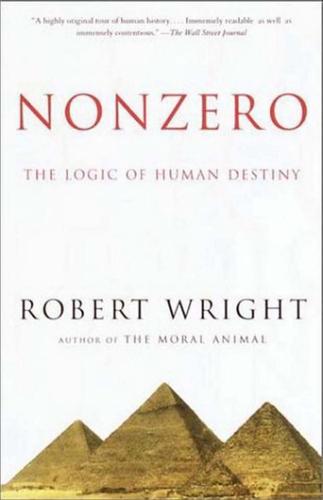
The Moral Animal: Evolutionary Psychology and Everyday Life
by
Robert Wright
Published 1 Jan 1994
The Northwest Coast Indians’ rudimentary “government” wasn’t only a stand-in for the market. It did things that governments do even in capitalist societies. For example, if fishermen were allowed to compete without restraint, they could deplete the salmon stock, hurting everyone. This is an instance of what the biologist Garrett Hardin famously called the “tragedy of the commons”—a textbook non-zero-sum problem, in which overgrazing of public land by privately owned herds would be ruinous, so all herd owners can benefit by mutual restraint. The Northwest Coast Indians solved the problem by deciding when fishing would begin and end, much as governments today enforce a hunting season so that deer and ducks will live to die another day.
…
Soni (Big Man) South American civilization South Asian Coalition on Child Servitude sovereignty, loss of Spencer, Herbert Stalin, Joseph standard of living Starr, Chester state-level societies core criteria of statehood writing and Stewart, Potter stock exchanges Strayer, Joseph subsidy power Sumerian writing Sun Tzu superempowered angry man supranational governance: see global governance supranational organizations Szathmáry, Eörs Tahitians Taliban organization Tareumiut Eskimos Tasaday people Tasmanians teaching technological determinism technology: agriculture’s origins and Chinese technological development redistributive effects social instability and technological revolution of Middle Ages warfare and see also specific technologies Teilhard de Chardin, Pierre on future of goodness on global consciousness scientific vision telecasting telegraph technology teleology telephone technology Tennyson, Alfred, Lord Tenochtitlán Teotihuacán textile technology theocracy thermodynamics, second law of “Tit for Tat” program Titus, Roman emperor Toba barbarian confederacy tolerance Toltec civilization tool use, in animals Toynbee, Arnold trade disputes tragedy of the commons transportation, economic development and tribalism benign forms of Jihad vs. McWorld conflict suppressed by forces of globalization trilobites Trobriand Islanders trust: cellular life and cultural evolution and global governance and prisoner’s dilemma and writing and Tsimshian Indians turbulence in world history Turkey Twain, Mark Tylor, Edward Burnett Ubaid culture Unicef United Nations (UN) United States unsocial sociability Uruk vampire bats video Vikings violence: see warfare viral view of culture Voltaire waging peace Wallerstein, Immanuel warfare: agriculture’s origins and chiefdoms and conquerers’ systems, survival of economic consequences global governance and hunter-gatherer societies and life’s meaning and negative-sum outcomes non-zero-sum interactions in obsolescence of political conglomeration and popular support for population growth/density and “push” and “pull” concept and social complexity and technology and waging peace and zero-sum interactions in wars of religion waterwheels Watson, Adam Watson, James Wealth and Poverty of Nations, The (Landes) Wealth of Nations, The (Smith) Weber, Max weightless economy Weinberg, Steven West African civilization whale-hunting technology What Is Life?
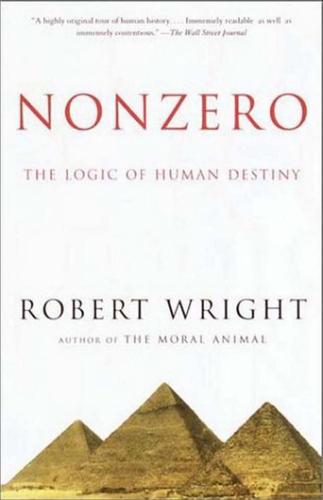
Nonzero: The Logic of Human Destiny
by
Robert Wright
Published 28 Dec 2010
The Northwest Coast Indians’ rudimentary “government” wasn’t only a stand-in for the market. It did things that governments do even in capitalist societies. For example, if fishermen were allowed to compete without restraint, they could deplete the salmon stock, hurting everyone. This is an instance of what the biologist Garrett Hardin famously called the “tragedy of the commons”—a textbook non-zero-sum problem, in which overgrazing of public land by privately owned herds would be ruinous, so all herd owners can benefit by mutual restraint. The Northwest Coast Indians solved the problem by deciding when fishing would begin and end, much as governments today enforce a hunting season so that deer and ducks will live to die another day.
…
Soni (Big Man) South American civilization South Asian Coalition on Child Servitude sovereignty, loss of Spencer, Herbert Stalin, Joseph standard of living Starr, Chester state-level societies core criteria of statehood writing and Stewart, Potter stock exchanges Strayer, Joseph subsidy power Sumerian writing Sun Tzu superempowered angry man supranational governance: see global governance supranational organizations Szathmáry, Eörs Tahitians Taliban organization Tareumiut Eskimos Tasaday people Tasmanians teaching technological determinism technology: agriculture’s origins and Chinese technological development redistributive effects social instability and technological revolution of Middle Ages warfare and see also specific technologies Teilhard de Chardin, Pierre on future of goodness on global consciousness scientific vision telecasting telegraph technology teleology telephone technology Tennyson, Alfred, Lord Tenochtitlán Teotihuacán textile technology theocracy thermodynamics, second law of “Tit for Tat” program Titus, Roman emperor Toba barbarian confederacy tolerance Toltec civilization tool use, in animals Toynbee, Arnold trade disputes tragedy of the commons transportation, economic development and tribalism benign forms of Jihad vs. McWorld conflict suppressed by forces of globalization trilobites Trobriand Islanders trust: cellular life and cultural evolution and global governance and prisoner’s dilemma and writing and Tsimshian Indians turbulence in world history Turkey Twain, Mark Tylor, Edward Burnett Ubaid culture Unicef United Nations (UN) United States unsocial sociability Uruk vampire bats video Vikings violence: see warfare viral view of culture Voltaire waging peace Wallerstein, Immanuel warfare: agriculture’s origins and chiefdoms and conquerers’ systems, survival of economic consequences global governance and hunter-gatherer societies and life’s meaning and negative-sum outcomes non-zero-sum interactions in obsolescence of political conglomeration and popular support for population growth/density and “push” and “pull” concept and social complexity and technology and waging peace and zero-sum interactions in wars of religion waterwheels Watson, Adam Watson, James Wealth and Poverty of Nations, The (Landes) Wealth of Nations, The (Smith) Weber, Max weightless economy Weinberg, Steven West African civilization whale-hunting technology What Is Life?
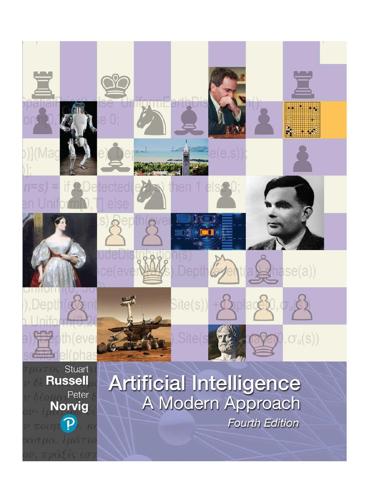
Artificial Intelligence: A Modern Approach
by
Stuart Russell
and
Peter Norvig
Published 14 Jul 2019
Clearly, the dominant strategy for each country is “continue to pollute,” but if there are 100 countries and each follows this policy, then each country gets a total utility of -104, whereas if every country reduced pollution, they would each have a utility of -10. This situation is called the tragedy of the commons: if nobody has to pay for using a common resource, then it may be exploited in a way that leads to a lower total utility for all agents. It is similar to the prisoner’s dilemma: there is another solution to the game that is better for all parties, but there appears to be no way for rational agents to arrive at that solution under the current game. One approach for dealing with the tragedy of the commons is to change the mechanism to one that charges each agent for using the commons. More generally, we need to ensure that all externalities—effects on global utility that are not recognized in the individual agents’ transactions—are made explicit.
…
Auctions and mechanism design have been mainstream topics in computer science and AI for several decades: see Nisan (2007) for a mainstream computer science perspective, Krishna (2002) for an introduction to the theory of auctions, and Cramton et al. (2006) for a collection of articles on computational aspects of auctions. The 2007 Nobel Memorial Prize in Economics went to Hurwicz, Maskin, and Myerson “for having laid the foundations of mechanism design theory” (Hurwicz, 1973). The tragedy of the commons, a motivating problem for the field, was analyzed by William Lloyd (1833) but named and brought to public attention by Garrett Hardin (1968). Ronald Coase presented a theorem that if resources are subject to private ownership and if transaction costs are low enough, then the resources will be managed efficiently (Coase, 1960).
…
Utility functions can go wrong due to externalities, the word used by economists for factors that are outside of what is measured and paid for. The world suffers when greenhouse gases are considered as externalities—companies and countries are not penalized for producing them, and as a result everyone suffers. Ecologist Garrett Hardin (1968) called the exploitation of shared resources the tragedy of the commons. We can mitigate the tragedy by internalizing the externalities—making them part of the utility function, for example with a carbon tax—or by using the design principles that economist Elinor Ostrom identified as being used by local people throughout the world for centuries (work that won her the Nobel Prize in Economics in 2009): •Clearly define the shared resource and who has access.
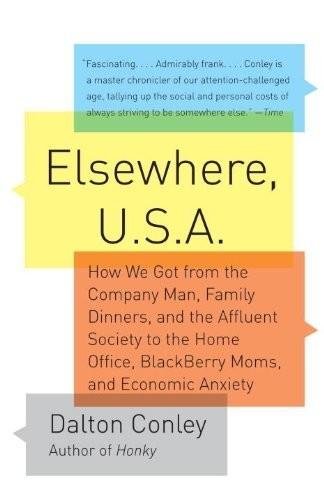
Elsewhere, U.S.A: How We Got From the Company Man, Family Dinners, and the Affluent Society to the Home Office, BlackBerry Moms,and Economic Anxiety
by
Dalton Conley
Published 27 Dec 2008
This is an age-old problem from the days when there was literally a “commons”— unowned land that was shared by the community for grazing livestock. The basic paradox back in this pastoral yesteryear was pretty much the same as it is today: Everyone acting in their own interest leads to failure, or “the tragedy of the commons,” since, without formal or informal restrictions, the land will become overgrazed to the point of desertification. The same is true for a wide range of common pool resources today: peace and quiet, a drive free from advertisements, clean air, spam-free Internet arteries, and even darkness so we can see the stars at night.
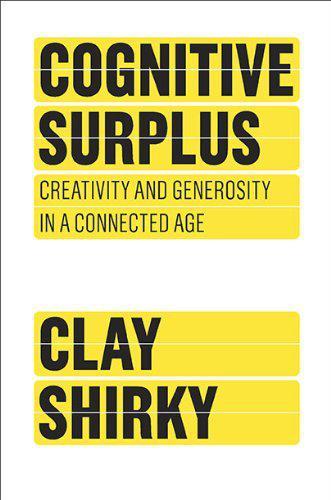
Cognitive Surplus: Creativity and Generosity in a Connected Age
by
Clay Shirky
Published 9 Jun 2010
Conversely, systems that assume people will act in ways that create public goods, and that give them opportunities and rewards for doing so, often let them work together better than neoclassical economics would predict. Ostrom has concentrated on how groups of people share the management of common property, such as groups of farmers who have to share water for irrigation, or fishermen who have to select locations for setting out their nets, a set of conditions usually called the tragedy of the commons. The condition of shared access to common resources is a tragedy because selfish actors can exhaust the resource they have access to, as with shepherds over-grazing sheep on a common green or farmers overirrigating from a shared source of water. Neoclassicial economics assumes that to prevent this outcome, a market has to be established where these resources can be privatized and then bought and sold, or that a state agency has to regulate the management of the common property.
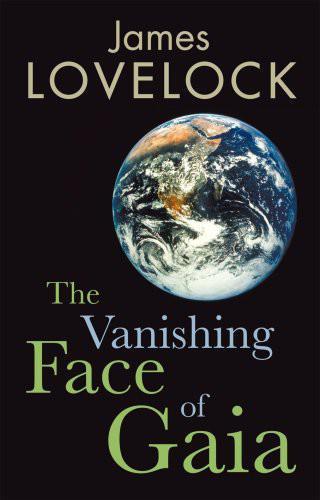
The Vanishing Face of Gaia: A Final Warning
by
James E. Lovelock
Published 1 Jan 2009
Ten years or so later the European Community decided to subsidize green behaviour and growing trees became marginally profitable. The Daniels and the other farming families of West Devon were living in fairly stable natural equilibrium as a part of an ecosystem. They had long ago avoided the tragedy of the commons by using hedgerows to establish clear and legal boundaries for their land. Otherwise they were pastoralists, keeping sheep and cattle on the rich grassland. In the days before Rachel Carson exploded her green bomb, being green was a joyous thing – it was to celebrate the beauty and seemliness of the natural world, and this feeling was surely why many joined or supported environmental movements.

Effective Programming: More Than Writing Code
by
Jeff Atwood
Published 3 Jul 2012
All it took was 5 super-connected people at Kickstarter (especially Andy Baio) to take a concept we worked hard to refine, tweak it with Amazon Payments, and then take credit. You could say that that’s capitalism, but I still think you should acknowledge people that you take inspiration from. I do. I owe the concept of Fundable to many things, including living in cooperative student housing and studying Political Science at Michigan. Rational choice theory, tragedy of the commons, and collective action are a few political science concepts that are relevant to Fundable. Yes, Fundable had some technical and customer service problems. That’s because we had no money to revise it. I had plans to scrap the entire CMS and start from scratch with a new design. We were just so burned out that motivation was hard to come by.
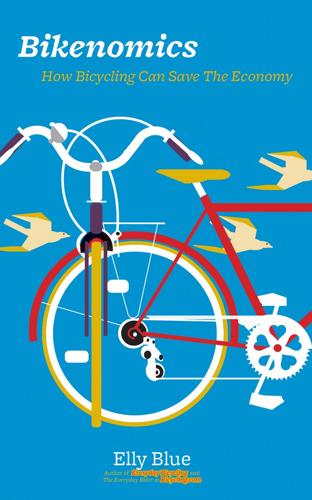
Bikenomics: How Bicycling Can Save the Economy (Bicycle)
by
Elly Blue
Published 29 Nov 2014
Except on a toll road, as long as you bring your own vehicle, the roads are “free.” The result is predictable: The demand for road space exceeds the supply. Just as predictably, this leads to the rapid deterioration of the common resource and perennial trouble figuring out how to pay to maintain it. It’s a classic example of the tragedy of the commons—when everybody wants to use something, it becomes less useful for everyone. If we were talking about a popular Christmas toy instead, we might predict rioting—and that assessment is not far off the daily reality of and general discourse about our roadways. The term for this phenomenon is “induced demand.”
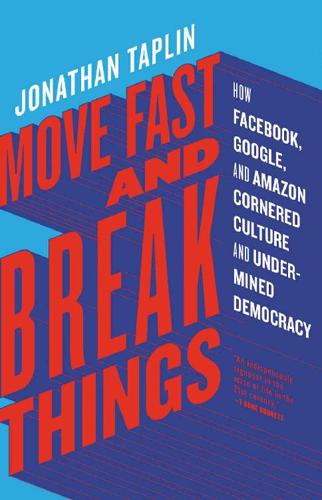
Move Fast and Break Things: How Facebook, Google, and Amazon Cornered Culture and Undermined Democracy
by
Jonathan Taplin
Published 17 Apr 2017
Equally important, we discovered in the age of information that “natural monopolies” are often rational ways to achieve efficient networks. This picture of what the streets of New York looked like in 1895 shows why sometimes natural monopolies make sense. Clearly the proliferation of telephone and telegraph networks, none of them interoperable, was a kind of tragedy of the commons. No one got any network effects—which made the networks themselves almost useless. The solution was for two companies, AT&T (then known as the Bell System) and Western Union, to consolidate the industries, buying up all the small operators and forming a natural monopoly. By the 1920s there was one phone company, one telegraph company, and only one communication wire into every home.

They Have a Word for It A Lighthearted Lexicon of Untranslatable Words & Phrases-Sarabande Books (2000)
by
Howard Rheingold
Published 10 Mar 2020
In the days when America was a land of small farmers, the spirit of the barnraising involved the kind of mutual cooperation the Indonesians refer to when they say "the villagers worked in rojongto build their new mosque." Perhaps we could use a word like this in the modern world, where the need for some focused spirit of community cooperation has grown so acute that some ecologists have characterized the primary global problem as a community problem-"the tragedy of the commons." The term goes back to the days when small farmers used a "common" area in the center of town to graze their cattle or sheep. As Human Family Affairs long as no members of the community grazed more cattle than their neighbors did, everybody got along. But when the town grew large enough so that people didn't relate to one another as members of a community, first one, then many, and finally too many individuals put their own welfare above that of the group and started grazing more cattle than the land could carry.
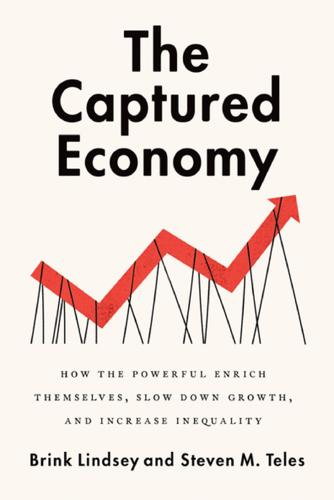
The Captured Economy: How the Powerful Enrich Themselves, Slow Down Growth, and Increase Inequality
by
Brink Lindsey
Published 12 Oct 2017
Such problems can become especially acute in fields of contemporary technological endeavor, such as biomedicine, semiconductors, and software, where promising innovations may conflict with a whole slew of patents by multiple patent holders. Such “patent thickets”12 can cause serious coordination and holdup problems that amount to a “tragedy of the anticommons.”13 In the familiar tragedy of the commons, lack of clear ownership rights creates perverse incentives that lead to resource depletion. Here, the mirror-image problem arises, as an excess of overlapping and perhaps conflicting property claims leads to underutilization of resources, especially underinvestment in incremental, sequential innovation.
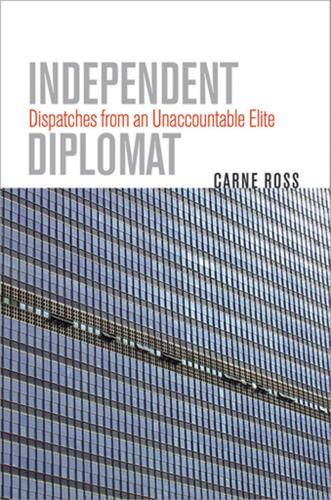
Independent Diplomat: Dispatches From an Unaccountable Elite
by
Carne Ross
Published 25 Apr 2007
In contrast to the eclecticism I advocate for the future of diplomacy, we badly need singular if not to say universalist ideas of how to treat one another and arbitrate our global existence: common norms, if not common rules. Such universalism is naturally perilous. Many of our shared problems are classic “tragedies of the commons” where corrective action implies costs for the actor (such as a carbon tax), and where “free riding” is rewarded. Invoking singular standards immediately draws an accusation of the very essentialism I have earlier attacked. Since Russia’s government bears no cost directly (in electoral terms) for brutality in Chechnya (even if New York City may), what motive does it have to change policy?
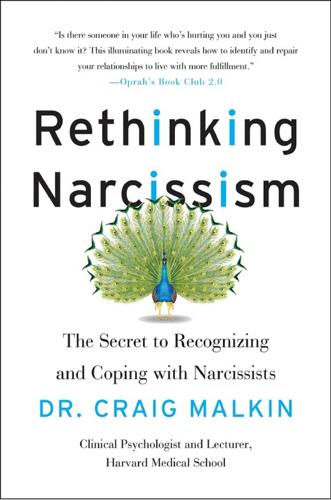
Rethinking Narcissism: The Bad---And Surprising Good---About Feeling Special
by
Dr. Craig Malkin
Published 6 Jul 2015
Kernis. Untangling the links between narcissism and self-esteem: A theoretical and empirical review. Social and Personality Psychology Compass, 2008, vol. 2(3), pp. 1415–39. Campbell, W. K., C. P. Bush, A. B. Brunell, and J. Shelton. Understanding the social costs of narcissism: The case of the tragedy of the commons. Personality and Social Psychology Bulletin, 2005, vol. 31(10), pp. 1358–68. Campbell, W. K., and J. D. Miller. The Handbook of Narcissism and Narcissistic Personality Disorder: Theoretical approaches, empirical findings, and treatments. John Wiley & Sons, 2011. Cater, T. E., V. Zeigler-Hill, and J.
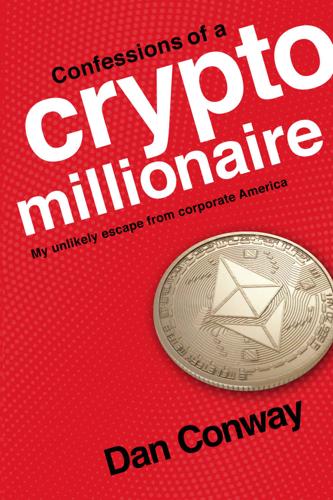
Confessions of a Crypto Millionaire: My Unlikely Escape From Corporate America
by
Dan Conway
Published 8 Sep 2019
For months, I’d seen these same people claiming, “I wish I’d heard about this a year ago. I would have bought a big stash!” Bullshit. Now that ETH was headed back down, their FOMO had turned to FUD. These run-of-the-mill conventional thinkers and cowards were bleeding us dry. Now more than ever, true believers needed to HODL. Anything else would cause a tragedy of the commons, when each individual’s supposedly rational action leads directly to total destruction for everyone, including them. By June 27, it was at $272, a forty percent decrease in five days. Sean sent me an email. ETH may go below $200 for a year or longer. I’m only saying this so that you and Eileen can make the best decision When I didn’t respond, he sent me another email asking if we could get together for a walk to tell each other about our recent family vacations.
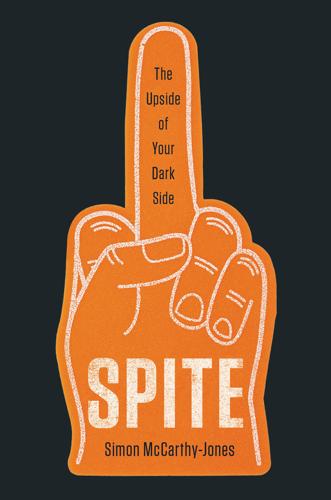
Spite: The Upside of Your Dark Side
by
Simon McCarthy-Jones
Published 12 Apr 2021
The more likely you are to conform to norms of niceness, the more likely you are to reject low offers in the Ultimatum Game.38 A tendency to conform to helpful norms, such as holding doors open for others, is a powerful social force. It encourages people to behave for the good of society in the face of selfish temptations. Conformity helps solve a problem known as the “tragedy of the commons.”39 If we have one large piece of common land and we all maximize our self-interest by letting our sheep gorge on it, we will destroy it. If, on the other hand, we each restrain ourselves, grazing our animals for only a few hours a day, the land will sustain us all. You don’t have to vest power in a central authority to do this.
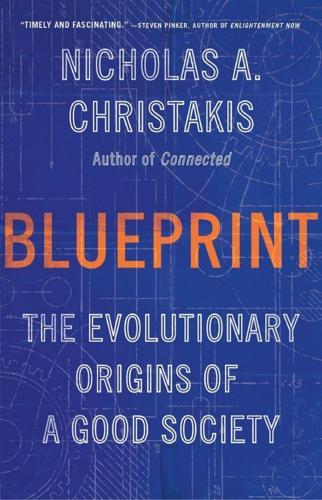
Blueprint: The Evolutionary Origins of a Good Society
by
Nicholas A. Christakis
Published 26 Mar 2019
How do people collaborate to protect shared meadows where their livestock roam? Classical models that assume all people are purely self-interested predict that lands will be overgrazed, seas overfished, and air polluted because individual incentives are contrary to what is best for the group. Ecologist Garrett Hardin famously called this the “tragedy of the commons.”76 Individuals act selfishly because the benefits of the acts accrue to them but the costs are divided across the whole group. These types of group-wide interactions and collective efforts cannot easily be addressed with the notions of reciprocity and cooperation we have been considering so far.
…
Apicella, “Hunter-Gatherers Maintain Assortativity in Cooperation Despite High Levels of Residential Change and Mixing,” Current Biology 28 (2018): 1–6. 74. R. Axelrod and W. D. Hamilton, “The Evolution of Cooperation,” Science 211 (1981): 1390–1396. 75. M. A. Nowak and K. Sigmund, “Evolution of Indirect Reciprocity,” Nature 437 (2005): 1291–1298. 76. G. Hardin, “The Tragedy of the Commons,” Science 162 (1968): 1243–1248. 77. V. Capraro and H. Barcelo, “Group Size Effect on Cooperation in One-Shot Social Dilemmas. II: Curvilinear Effect,” PLOS ONE 10 (2015): e0138744; R. M. Isaac and J. M. Walker, “Group Size Effects in Public Goods Provision: The Voluntary Contributions Mechanism,” Quarterly Journal of Economics 103 (1988): 179–199. 78.
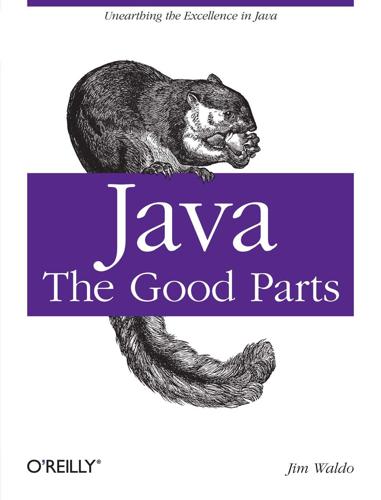
Java: The Good Parts
by
Jim Waldo
And it all started out so simply, and with such good intentions. ‡ Ted Goldstein, late of Sun Labs and then of Apple Computer, first described this particular example of the general problem of undifferentiated method names in interfaces to me. § This could actually lead to a notion of the tragedy of the common namespace. If no one uses names like this, it is fine for you to do it. But if anyone else does, you shouldn’t. But there are other reasons that you shouldn’t, so don’t. A Real Problem | 19 Java was originally the way to provide active content on the World Wide Web. Applets, a particular kind of Java object that was recognized by browsers, could be sent from one website to the browser to animate, compute, or otherwise enliven what until then had been static content from the Web.

Makers
by
Chris Anderson
Published 1 Oct 2012
It seemed clear that this social revolution was connected somehow to the industrial quarters that were increasingly dominating England’s fast-growing cities. But why mechanization led to population growth, to say nothing of the other booming quality of life measures, took longer to figure out. There was, of course, more to it than just factories. Improved farming methods, including the fencing in of pastures that avoided the “tragedy of the commons” problem, had a lot to do with it. And more children were living to adulthood, thanks to the invention of the smallpox vaccine and other medical advances. But industrialization helped even more. Although we think of factories as the “dark satanic mills” of William Blake’s phrase, poisoning their workers and the land, the main effect of industrialization was to improve health.
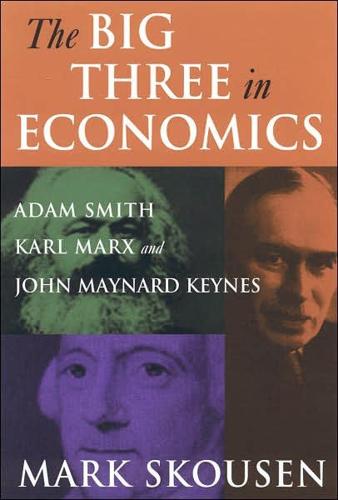
Big Three in Economics: Adam Smith, Karl Marx, and John Maynard Keynes
by
Mark Skousen
Published 22 Dec 2006
The debate goes back to Thomas Malthus (chapter 2) and is related to historical and present-day concerns over unlimited growth and limited resources. In this ecological debate, economists, while not alarmists, have made numerous contributions to minimizing pollution and other environmental problems. To solve the "tragedy of the commons," for example, market economists have emphasized the need to establish defensive resource rights in water, fishing, and forestland, so that owners have the proper incentives to preserve these resources in a balanced way. In the case of air pollution, economists have recommended pollution fees and marketable permits to pollute.
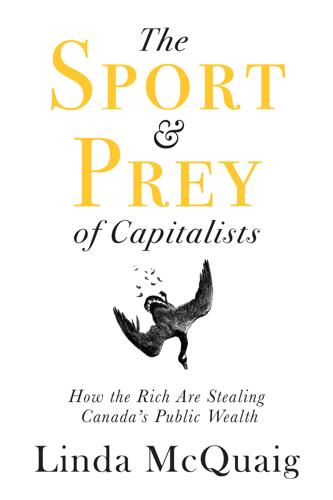
The Sport and Prey of Capitalists
by
Linda McQuaig
Published 30 Aug 2019
Nikiforuk has succinctly described Alberta’s situation today: “The low fruit has been picked and nobody saved anything for the future.”27 Surely, in any fair-minded contest between the merits of Alberta’s free-market model of oil development and Norway’s public ownership approach, Norway wins. It’s not even close. Eight The Triumph of the Commons In 1968 U.S. ecologist Garrett Hardin penned what became a highly influential academic article entitled “The Tragedy of the Commons.” He argued that, since humans are self-interested, they will inevitably take more than their share when resources are communally available. A similar argument had been expounded in an 1833 pamphlet by an English economist who speculated about the danger of cows overgrazing in the commonly shared fields.
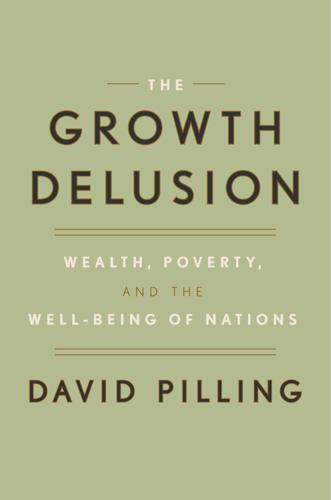
The Growth Delusion: Wealth, Poverty, and the Well-Being of Nations
by
David Pilling
Published 30 Jan 2018
Former Norwegian prime minister Gro Harlem Brundtland was given no less a task by the United Nations than convincing the world’s governments to commit to a form of growth that did not destroy the planet. In 1987 the commission released its report, “Our Common Future.” 8. The same law could be applied to other forms of capital, including infrastructure and even institutions. 9. See Helm, Natural Capital, pp. 99–118. 10. In practice such theories run into the problem of the “tragedy of the commons,” whereby everyone extracts as much as possible of a resource because the alternative is that someone else will. 11. Agnes Kalibata, president of the Alliance for a Green Revolution in Africa, says climate change is the single biggest challenge for Africa’s impoverished farmers, who are almost entirely dependent on rain-fed agriculture in an era when rainfall has never been so unpredictable.
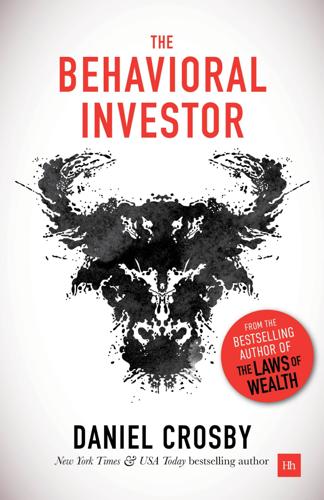
The Behavioral Investor
by
Daniel Crosby
Published 15 Feb 2018
Efficient prices lead investors to move from active to passive, which may create inefficiencies from which active managers can profit. So if everybody invests actively, you want to be passive.” In both bars and markets, it takes a diversity of opinions for everyone to have a good time. The tragedy of the commons is a system where individuals acting in their own self-interest harm the common good by spoiling a resource through their collective action. The most frequently cited example is allowing the cattle of individual farmers to graze on common ground owned by the government. Considered individually, it is in the best interest of every farmer to allow his cattle to graze on land that is kept up by the township.

The Hacker's Diet
by
John Walker
If, like most people, you order a variety of Chinese dishes and take some of each, and if the people at the table have widely differing appetites, there's almost no way you can know how much you've had. Chinese food, gobbled from a mound in the middle of the table, exhibits the “pizza/popcorn phenomenon,” the culinary equivalent of the tragedy of the commons. The essential difference between this kind of dining and normal meals is: The faster you eat, the more you get. This truth is burned deeply into the brain of anybody whose impecunious college days were fueled, in large part, by midnight pizza feeding frenzies. In other restaurants, or at the dinner table with cultured companions, poaching food from adjacent plates is frowned upon and may result in fork wounds.
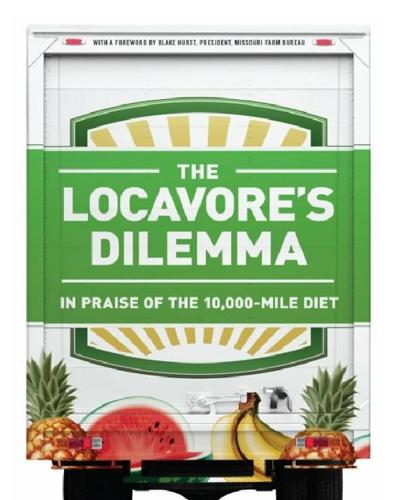
The Locavore's Dilemma
by
Pierre Desrochers
and
Hiroko Shimizu
Published 29 May 2012
“Revolution or Evolution? New Zealand Agriculture since 1984.” GeoJournal 59 (2): 107–118 for a somewhat more critical analysis. 45 Eutrophication is the process through which water bodies receive excess nutrients that stimulate excessive plant growth. 46 See, among others, Elinor Ostrom. 1999. “Coping with Tragedies of the Commons.” Annual Review of Political Science 2: 493-535; and Elinor Ostrom. 2000. “Private and Common Property Rights.” In Boudewijn Bouckaert and Gerrit De Geest (eds.). Encyclopedia of Law and Economics. Edward Elgar, pp. 332–379. 47 Peter M. Kjellingbro and Maria Skotte. 2005. Environmentally Harmful Subsidies.
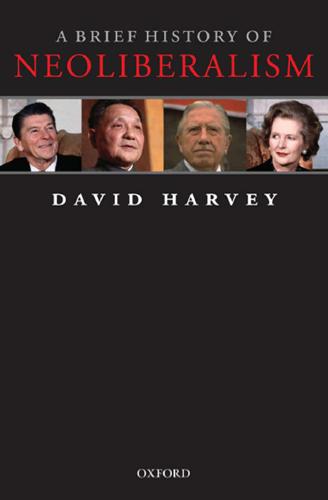
A Brief History of Neoliberalism
by
David Harvey
Published 2 Jan 1995
The absence of clear private property rights—as in many developing countries—is seen as one of the greatest of all institutional barriers to economic development and the improvement of human welfare. Enclosure and the assignment of private property rights is considered the best way to protect against the so-called ‘tragedy of the commons’ (the tendency for individuals to irresponsibly super-exploit common property resources such as land and water). Sectors formerly run or regulated by the state must be turned over to the private sphere and be deregulated (freed from any state interference). Competition—between individuals, between firms, between territorial entities (cities, regions, nations, regional groupings)—is held to be a primary virtue.
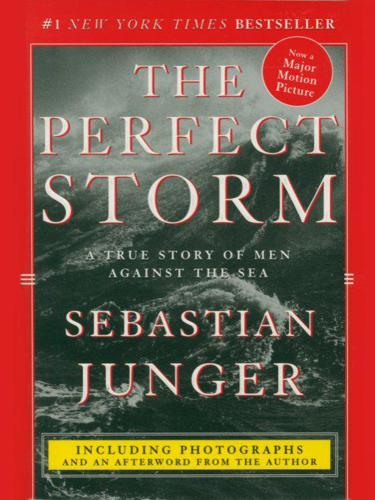
The Perfect Storm: A True Story of Men Against the Sea
by
Sebastian Junger
Published 30 Sep 1999
Boat owners who had never swordfished in their lives scrambled for permits just to keep their options open, and the number of boats nearly doubled while, by all indications, the swordfish stock continued to decline. From 1987 to 1991, the total North Atlantic swordfish catch went from 45 million pounds to 33 million pounds, and their average size dropped from 165 pounds to no. This was what resource management experts know as tragedy of the commons, a reference to overgrazing in eighteenth-century England. "In the case of common grazing areas," explained one fisheries-management pamphlet, "grass soon disappeared as citizens put more and more sheep on the land. There was little incentive to conserve or invest in the resource because others would then benefit without contributing."

The People's Platform: Taking Back Power and Culture in the Digital Age
by
Astra Taylor
Published 4 Mar 2014
The commons were neither completely open nor completely closed, but negotiated.41 “In one essay Ostrom and her coauthor, librarian Charlotte Hess, argue that this wisdom must be applied to Web-based “knowledge commons,” which, they warn, can produce outcomes that are “good or bad, sustainable or not.” New-media thinkers insist that the cultural commons, unlike their material counterpart, cannot be tragic because they cannot be depleted. Ostrom and Hess challenge this view. We are at risk, they argue, of a new kind of tragedy of the commons—a tragedy not of enclosure but of underinvestment. The issue is not simply control of culture but its creation. To put it another way, the problem of the production of the commons is just as urgent as the problem of access. It is true that copyright maximalists pose a grim threat, gobbling up our shared cultural heritage and exploiting it for commercial gain, enclosing it into private preserve.
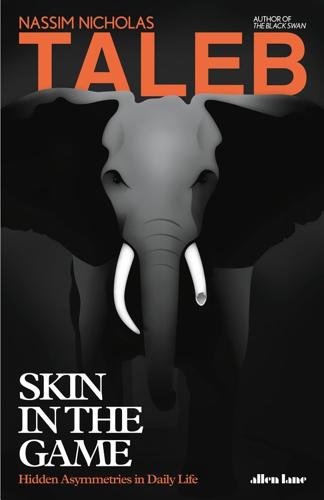
Skin in the Game: Hidden Asymmetries in Daily Life
by
Nassim Nicholas Taleb
Published 20 Feb 2018
Modernity put it in our heads that there are two units: the individual and the universal collective—in that sense, skin in the game for you would be just for you, as a unit. In reality, my skin lies in a broader set of people, one that includes a family, a community, a tribe, a fraternity. But it cannot possibly be the universal. NON MIHI NON TIBI, SED NOBIS (NEITHER MINE NOR YOURS, BUT OURS) Let us get into the gut of Ostrom’s idea. The “tragedy of the commons,” as exposed by economists, is as follows—the commons being a collective property, say, a forest or fishing waters or your local public park. Collectively, farmers as a community prefer to avoid overgrazing, and fishermen overfishing—the entire resource becomes thus degraded. But every single individual farmer would personally gain from his own overgrazing or overfishing under, of course, the condition that others don’t.

Superbloom: How Technologies of Connection Tear Us Apart
by
Nicholas Carr
Published 28 Jan 2025
Traditional economic theory is built on the unhappy assumption that in a world of friction and constraint, physical goods are inherently subject to scarcity. When too many people desire a product in limited supply, the market works to curb demand through price increases. Sometimes the state has to step in to prevent so-called tragedies of the commons, where people or businesses rush to consume, exploit, or hoard important resources, to the detriment of the general good. Officials establish laws and regulations—allocating radio spectrum through licensing, for instance—to control demand. When it comes to informational products, however, the internet seemed to herald a new economy of abundance.
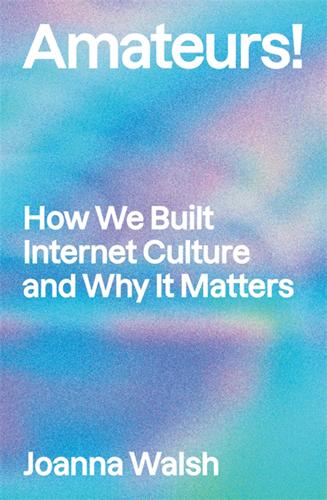
Amateurs!: How We Built Internet Culture and Why It Matters
by
Joanna Walsh
Published 22 Sep 2025
A version of the last section of ‘Selfies’ was published at maifeminism.com on 27 January 2020.226 is blank 227 Timeline 1790 Immanuel Kant, Critique of Judgment 1856 John Ruskin, Of the Turnerian Picturesque 1857 Karl Marx, Grundrisse 1896 Lumière brothers, L’arrivée d’un train à La Ciotat 1899 Sigmund Freud, Screen Memories 1929 Walter Benjamin, Folk Art (fragment) 1935 Walter Benjamin, The Work of Art in the Age of Mechanical Reproduction 1937 Herbert Marcuse, Art and Liberation 1944 Theodor Adorno and Max Horkheimer, The Culture Industry 1947 Henri Lefebvre, Critique of Everyday Life 1948 Truman Capote, Other Voices, Other Rooms 1950 Alan Turing, Computing, Machinery and Intelligence 1955 SHARE IBM-run user group for IBM mainframe computers 1960 Maurice Merleau-Ponty, Eye and Mind 1965 Yoko Ono, Cut Piece 1965 Julie Christie, Darling 1966 Susan Sontag, Against Interpretation 1969 Bob Taylor, ARPANET 1967 Roland Barthes, Death of the Author 1968 Henri Lefebvre, Everyday Life in the Modern World 1968 Garrett Hardin, The Tragedy of the Commons 1969 Michel Foucault, What Is an Author? 1970 Carol Hanisch, The Personal Is Political 1972 Deleuze and Guattari, Anti-Oedipus 2281974 Marina Abramović, Rhythm 0 1975 Martha Rosler, Semiotics of the Kitchen 1975 Stuart Hall, Resistance Through Rituals 1975 Chantal Akerman, Jeanne Dielman, 23 Quai du Commerce, 1080 Bruxelles 1976 Bill Gates, An Open Letter to Hobbyists 1979 Dick Hebdige, Subculture 1979 Pierre Bourdieu, Distinction: A Social Critique of the Judgement of Taste 1980 Julia Kristeva, Powers of Horror 1981 Julie Kristeva, Women’s Time 1983 Vaporware 1984 Jean-François Lyotard, “The Sublime and the Avant-Garde” 1991 Linus Torvalds, Linux 1993 Jean-Luc Nancy, The Sense of the World 1994 The Poetry Virgins, Sauce 1994 Rare, Killer Instinct 1996 Brewster Kahle, The Internet Archive (Archive.org) 1997 Dubravka Ugrešić, The Museum of Unconditional Surrender 1998 Nicholas Bourriaud, Relational Aesthetics 1999 Tracy Chevalier, The Girl with the Pearl Earring 1999 Pyra Labs, Blogger 1999 Giorgio Agamben, The Melancholy Angel 2000 Jacques Rancière, The Politics of Aesthetics 2000 Google AdWords 2000 Juliana Spahr, LIVE 2001 Internet Archive, The Wayback Machine (public access) 2001 William Basinski, The Disintegration Loops 2001 Percival Everett, Erasure 2002 Heath Bunting, Community Courier 2002 Julia Darling, Julia’s Diary 2002 Nicholas Bourriaud, Postproduction 2002 Brian Massumi, Parables for the Virtual 2003 Flarf 2003 Peter Webber, The Girl with the Pearl Earring 2292003 Greenspan, DeWolfe, Anderson, Berman, MySpace 2004 Mark Zuckerberg, Facebook 2004 Marisa Olson, American Idol Training Blog 2004 McKenzie Wark, A Hacker Manifesto 2005 Tim O’Reilly, What Is Web 2.0 2005 Sianne Ngai, Ugly Feelings 2005 4Chan, Caturday 2005 Chen, Hurley, Karim, YouTube 2005 Chris Neukirchen, Anarchia 2006 Marisa Olson et al., Nasty Nets Internet Surfing Club (2006–2012) 2006 Dorsey, Glass, Stone, Williams, Twitter 2007 David Karp, Tumblr 2007 Nakagawa, Unebasami, Icanhascheezburger 2007 Cheese, Rountree, Wilkinson, Baron, Know Your Meme 2008 Bernard Steigler, Amateur 2008 Gwyneth Paltrow, Goop 2008 Satoshi Nakamoto, bitcoin.org 2009 Ed Halter, ‘After the Amateur’ 2009 Hito Steyerl, In Defense of the Poor Image 2010 Systrom, Krieger, Instagram 2011 Macintosh Plus, Floral Shoppe 2011 Jacques Rancière, Aisthesis 2011 James Bridle, The New Aesthetic 2011 Lauren Berlant, Cruel Optimism 2011 Marisa Olson, What Is Postinternet?

The Willpower Instinct: How Self-Control Works, Why It Matters, and What You Can Doto Get More of It
by
Kelly McGonigal
Published 1 Dec 2011
Page 73—Motivation helps overcome exhaustion: Muraven, M., and E. Slessareva. “Mechanisms of Self-Control Failure: Motivation and Limited Resources.” Personality and Social Psychology Bulletin 29 (2003): 894–906. Page 76—“The Forest Game”: Crelley, D., S. Lea, and P. Fisher. “Ego Depletion and the Tragedy of the Commons: Self Regulation Fatigue in Public Goods Games.” Presented at the 2008 World Meeting of the International Association for Research in Economic Psychology and the Society for Advancement of Behavioral Economics, Rome. Page 77—For a dramatic telling of the Easter Island tragedy, see Diamond, J.
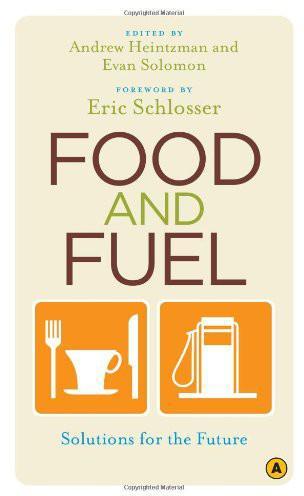
Food and Fuel: Solutions for the Future
by
Andrew Heintzman
,
Evan Solomon
and
Eric Schlosser
Published 2 Feb 2009
Throughout our economy, we almost never factor in the ecological costs into our goods and services. As a result of this gap in our calculus we never get a real understanding of the true cost of human activity. That blind spot only encourages a further degradation of our common resources. This is a phenomenon known as the Tragedy of the Commons. It was starkly illustrated by the collapse of the once great cod stocks off the Grand Banks. No one counted the cost of over-fishing to the natural environment. We counted only the cost of catching and selling the fish. So the question remains: Why do we insist on constantly updating our technologies, but refuse to update our systems of measurement?

The Weightless World: Strategies for Managing the Digital Economy
by
Diane Coyle
Published 29 Oct 1998
If they are so much in demand it is hard to see in what sense they are not useful, except to somebody who still thinks that we ought all to make things in factories or perhaps nurse or teach — pure romanticism. The third argument as to why superstar economies are bad relies on a separate argument about overcrowding into less socially useful areas. Frank and Cook argue that there is an analogy with the ‘tragedy of the commons’ whereby common land is overgrazed, or seas overfished, because individuals’ private benefits carry a social cost. So, they suggest, there is an overcrowding into the field of mergers and acquisitions law because successful candidates do not realise that their job with a prestigious Wall Street or London firm is gained only at the expense of a rival’s failure to get the job.
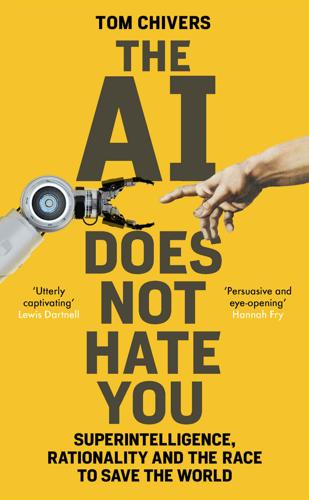
The Rationalist's Guide to the Galaxy: Superintelligent AI and the Geeks Who Are Trying to Save Humanity's Future
by
Tom Chivers
Published 12 Jun 2019
It has only just occurred to me now, as I’m writing this nearly eight months later, how clever this system is. Splitting a bill according to who had what is time-consuming, boring and socially awkward. But splitting it clean down the middle incentivises people to order more expensive meals; they get all the benefit of the nicer meal but only pay a fraction of the extra cost, in a classic tragedy of the commons. But this system was extremely quick – almost as quick as dividing the bill on a calculator – and people who ordered more expensive things were more likely to pay the whole bill: if you ordered lobster thermidor for $80, the chances would be much higher that the number would end up on your bit.
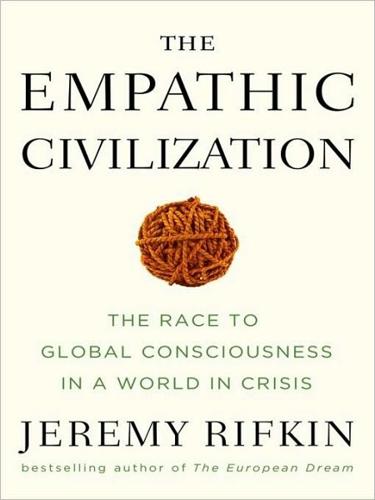
The Empathic Civilization: The Race to Global Consciousness in a World in Crisis
by
Jeremy Rifkin
Published 31 Dec 2009
The distributed model begins with the exact opposite assumption about human nature—that is, that when given a chance, it is human nature to want to collaborate with others, often freely, for the sheer joy of contributing to the common good. Moreover, by contributing to the well-being of the group, one is better able to optimize his or her own self- interest. In other words, champions of distributed collaboration celebrate what they call the “digital commons,” rather than lamenting the “tragedy of the commons.” It was ecologist Garret Hardin who wrote the famous essay that proposed the idea that self- interest leads to the fall of common economic enterprises—simply because it’s human nature to look out for number one. How then do we explain Linux and Wikipedia? With Linux, thousands of programmers willingly and freely give their expertise to help correct and improve software code used by millions of others.
…
Developmental Psychology 31, 1995. pp. 907-914. 74 Cohen, Patricia, and Jacob Cohen. Life Values and Adolescent Mental Health. Mahwah, NJ: Erlbaum. 1996. 75 Kasser. The High Price of Materialism. p. 32. 76 Ibid. p. 65. 77 Ibid. pp. 92-93. 78 Sheldon, K. M., and H. McGregor. “Extrinsic Value Orientation and the Tragedy of the Commons.” Journal of Personality 68, 2000. pp. 383-411. 79 In an endnote, Kasser explains that “one hectare actually equals 100 ares [sic] or 2.47 acres, but subjects in this study were mistakenly told that 1 hectare equals 100 acres.” 80 Kasser. The High Price of Materialism. p. 93. 81 Ibid. 93-95. 82 Schor, Juliet B.
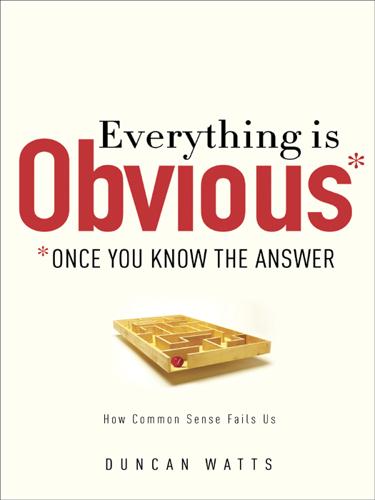
Everything Is Obvious: *Once You Know the Answer
by
Duncan J. Watts
Published 28 Mar 2011
Orrell, David. 2007. The Future of Everything: The Science of Prediction. New York: Basic Books. O’Toole, Randal. 2007. Best-Laid Plans: How Government Planning Harms Your Quality of Life, Your Pocketbook, and Your Future. Washington, D.C.: Cato Institute. Ostrom, Elinor. 1999. “Coping with Tragedies of the Commons.” Annual Review of Political Science 2 (1):493–535. Paolacci, Gabriele, Jess Chandler, and Panos G. Ipeirotis. 2010. “Running Experiments on Amazon Mechanical Turk.” Judgment and Decision Making 5 (5):411–19. Parish, James Robert. 2006. Fiasco: A History of Hollywood’s Iconic Flops. Hoboken, NJ: John Wiley.
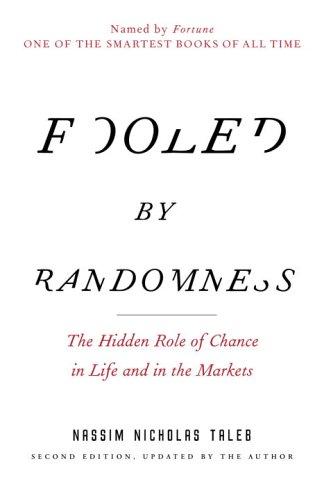
Fooled by Randomness: The Hidden Role of Chance in Life and in the Markets
by
Nassim Nicholas Taleb
Published 1 Jan 2001
The common understanding is instead the complete exploitation of information, sound reasoning, and so forth.” Perhaps the best way to see it for an economist is the maximization leading to a unique solution. Even then, it is not easy. Who is maximizing what? To begin, there is a conflict between collective and individual rationality (“tragedy of the commons” seen by Keynes in his parable of the stadium where one’s optimal strategy is to stand up, but collectively the optimal strategy is for everyone to remain seated). Another problem is seen in Arrow’s voter’s impossibility theorem. Consider also the following voter problem: People vote but the probability adjusted gains from voting can be less than the effort expended in going to the polling place.
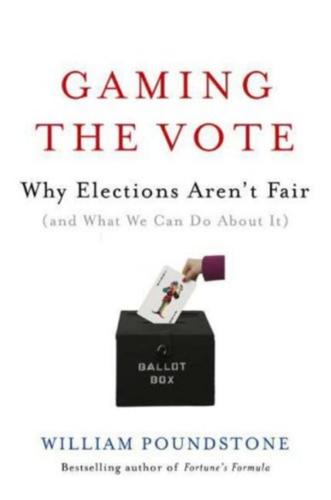
Gaming the Vote: Why Elections Aren't Fair (And What We Can Do About It)
by
William Poundstone
Published 5 Feb 2008
This puzzle has earned a name: the voter paradox (not to be confused with the "paradox of voting"). We need lots of people to vote in order to perpetuate the democratic process. Yet it's in no one's personal interest to do so. The voter paradox is similar to other problems studied by game theorists. They go by such names as the "tragedy of the commons," the "volunteer's dilemma," and the "free-rider dilemma:' These describe situations where everyone shares a benefit provided enough people volunteer to perform an altruistic act ... but the shirkers get the same benefit as the volunteers. More-or-Iess rational people vote for many reasons.
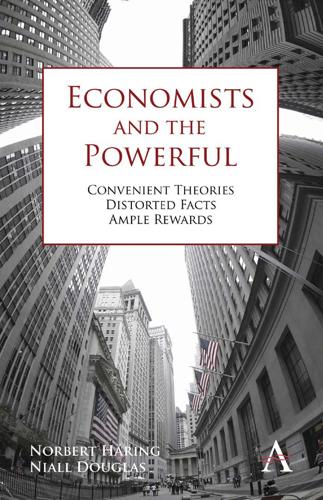
Economists and the Powerful
by
Norbert Haring
,
Norbert H. Ring
and
Niall Douglas
Published 30 Sep 2012
Stiglitz, Joseph E., Jean-Paul Fitoussi and Amartya Sen. 2009. “Report by the Commission on the Measurement of Economic Performance and Social Progress.” Available from www.stiglitz-sen-fitoussi.fr. Stone, Katherine V. W. 2011. “John R. Commons and the Origins of Legal Realism; or, the Other Tragedy of the Commons.” In Transformations in American Legal History, vol. 2, ed. D. Hamilton and A. A. Brophy. Cambridge, MA: Harvard University Press. Struve, Anja. 2005. “Berlin verspielt Kredit.” Die Welt, September 27. Syverson, Chad. 2004. “Market Structure and Productivity: A Concrete Example.” Journal of Political Economy 112: 1181–1222. . 2010.
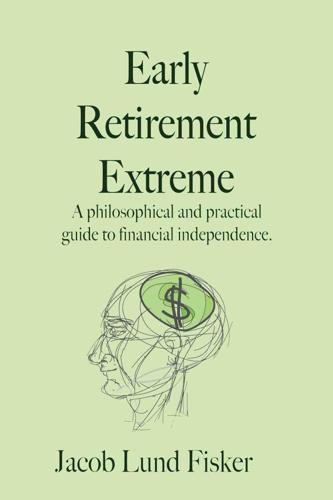
Early Retirement Extreme
by
Jacob Lund Fisker
Published 30 Sep 2010
Similarly, experts explain which questions are asked in a job interview, which responses to give for the best impression, and how to word a résumé so that it'll stand out amongst the hundreds of other résumés that follow exactly the same advice. While such advice appears to be helpful, it only serves to increase the competitive pressure. It's just like Hardin's Tragedy of the Commons. In turn, employers make a big deal out of finding employees with the right fit, people who either learn or are naturally talented at playing the games of the system. The nascent consumer should already have had practice at fitting in and being popular from high school. In fact, high school athletics is a good preparation for today's corporate world due to importance of "team play."

The God Species: Saving the Planet in the Age of Humans
by
Mark Lynas
Published 3 Oct 2011
Today the extinction of the bluefin tuna is an imminent threat: Quotas set at the time of writing by the sadly misnamed International Commission for the Conservation of Atlantic Tunas are high enough to permit fishing boats to catch every single adult bluefin during next year’s season.29 The fish don’t have much of a fighting chance: Illegal spotter planes guide industrial fleets to wherever the last few thousand individuals can be found.30 Nor have the economics changed much since the days of whaling: The trading conglomerate Mitsubishi was recently accused of stockpiling frozen bluefin in expectation of a post-extinction price bonanza.31 With individual fish worth up to $100,000 on the Tokyo sushi market, the tragedy of the commons plays out anew every time the tuna fleets set sail. The destruction of fish habitat is also routinely ignored in the interests of short-term profit. The North Sea off England’s east coast, for example, was not always the murky and uninviting body of water it is today: Once its waters were kept clean and sediment-free by rich oyster beds on the sea floor—but these have been plowed up by trawlers and the sea bottom reduced to a muddy, turgid wasteland.
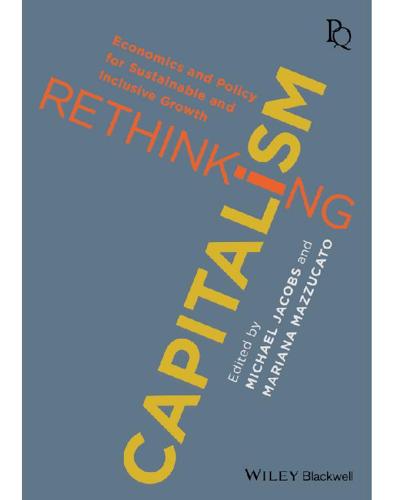
Rethinking Capitalism: Economics and Policy for Sustainable and Inclusive Growth
by
Michael Jacobs
and
Mariana Mazzucato
Published 31 Jul 2016
As Carlota Perez argues in her chapter in this volume, all this will add up to a technological revolution on a par with those which have disrupted and transformed economic systems in the past. Can this be done, and at the requisite speed? That is of course unknowable until it is attempted. It is not just a question of technological change. The political implications are far-reaching. Climate change is a collective action problem, a ‘tragedy of the commons’. To decarbonise economies, nation-states and the private sector need to build new and in most cases currently more expensive energy, transport, industrial, agricultural and urban systems. In doing so they will inevitably cause current assets and activities based on fossil energy to decline in value and profitability.
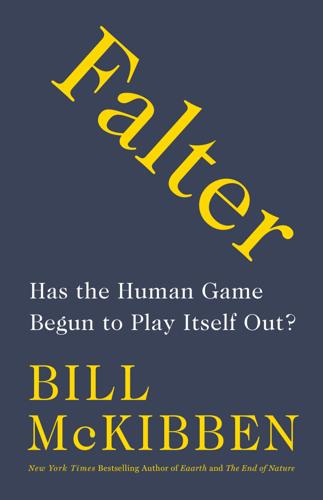
Falter: Has the Human Game Begun to Play Itself Out?
by
Bill McKibben
Published 15 Apr 2019
Indeed, the Nobel Prize for Economics, once awarded to James Buchanan for his theory that most of us are parasites, was more recently awarded to Elinor Ostrom, the great theorist of the commons. What she found, across societies and historical eras, was that communities were quite capable of commonsense cooperation—the “tragedy of the commons” was usually not a tragedy at all, as long as no one decided they had to have it all. From lobster fisheries in Maine to irrigation systems in Spain to forests in Nepal, Ostrom found that “the schemes were mutual and reciprocal and many had worked well for centuries.”7 * * * It’s not that the hyperindividualists are wrong.

We Are Electric: Inside the 200-Year Hunt for Our Body's Bioelectric Code, and What the Future Holds
by
Sally Adee
Published 27 Feb 2023
Because of course the more people adopt any particular enhancement, the more pressure they will exert on the people around them—and on themselves!—to keep up lest they get left behind, and the more unaugmented normalcy is transformed, by process of inertia, into a deficiency. The blame isn’t on any one individual—this is a classic tragedy of the commons. Particularly in sport, this conversation has been very germane. Discussing tDCS in sport with Outside magazine, Thomas Murray, president emeritus of the Hastings Centre bioethics research institute, told the reporter Alex Hutchinson that “once an effective technology gets adopted in a sport, it becomes tyrannical.
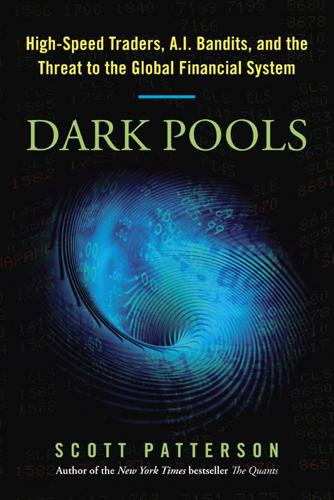
Dark Pools: The Rise of the Machine Traders and the Rigging of the U.S. Stock Market
by
Scott Patterson
Published 11 Jun 2012
One apparent consequence of this hypercompetitive market was its fragility. Because high-speed traders were now competing for wafer-thin profits, they’d grown incredibly pain-averse. The slightest loss was unacceptable. Better to cut and run and trade another day. The result, of course, was the Flash Crash. It was an algorithmic tragedy of the commons, in which all players, acting in their self-interest, had spawned a systemically dangerous market that could threaten the global economy. Bodek knew he’d made mistakes. He’d wasted months trying to hunt for a bug in the code of the Machine, when the problem was actually abusive order types.
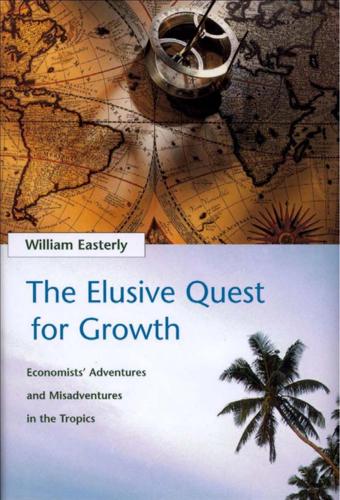
The Elusive Quest for Growth: Economists' Adventures and Misadventures in the Tropics
by
William R. Easterly
Published 1 Aug 2002
You and I engage in a scramble to get as much oil as possible before the other one gets it. The field yields less than its potential because we extract the oil so fast. Pundits will pontificate about our self-defeating greed as we are consuming too fast a nonrenewable resource, but we are acting perfectly rationally. This situation has been called ”the tragedy of the commons.” Contrast this with the case where the oil field lies below my property alone. I will carefully withdraw the oil at a rate that preserves the total potential of the field. It was the existence of multiple claimants to the field in the previous example that caused self-defeating behavior that left both of us worse off.
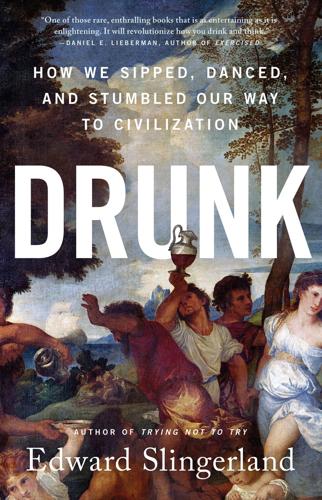
Drunk: How We Sipped, Danced, and Stumbled Our Way to Civilization
by
Edward Slingerland
Published 31 May 2021
The tension between our need to cooperate on a large scale and our individual, primate-driven selfishness appears clearly in the sort of dilemmas inherent to social cooperation. Any time tension arises between the public good and individual interests there is the danger of what economists call “defection,” a situation in which a selfish individual benefits from the public good while not contributing to it. This tension goes by many names, including the “tragedy of the commons” or the “free-rider problem.”44 Fish populations diminishing? It would be better if everyone agreed to fish less, but on the open seas how do you enforce this? No one wants to be the sucker who stayed home while her rivals went out and scarfed up the last of the bluefin tuna. So the bluefin tuna gets driven to extinction.
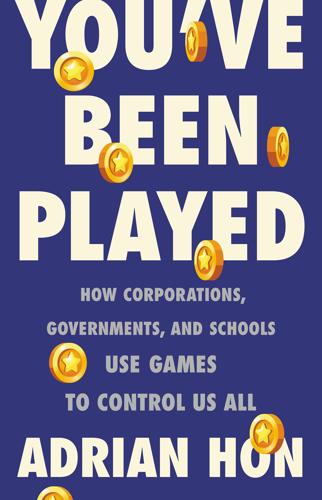
You've Been Played: How Corporations, Governments, and Schools Use Games to Control Us All
by
Adrian Hon
Published 14 Sep 2022
Technology writer Clive Thompson suggested to me that Minecraft is less interesting as a way to teach maths or programming than it is as a simulation for kids to invent miniconstitutions that stop each other from blowing up their creations on shared servers.6 Seth Frey, assistant professor at UC Davis, watched Minecraft players learning how to negotiate the joint use and care of natural resources: “You’ve got these kids, and they’re creating these worlds, and they think they’re just playing a game, but they have to solve some of the hardest problems facing humanity. They have to solve the tragedy of the commons,” he told Thompson. Watch the Skies isn’t a replacement for student newspapers, let alone a proper journalism course. No one is going to learn how to compose a deeply researched longform article from a day-long megagame. But megagames and simulations don’t need to teach every aspect of a subject to be valuable; they just need to teach one aspect well.

Poisoned Wells: The Dirty Politics of African Oil
by
Nicholas Shaxson
Published 20 Mar 2007
The world is not flat, as the New York Times columnist Thomas Friedman suggests: what seems like a level playing field is instead, as the academic Nancy Birdsall notes, a field of craters containing millions of invisible people like the old man in Kuito. This fragmentation helps me explain why politicians are corrupt and kill growth, when the take from a growing economy could be greater for all. Fragmentation fosters the so-called “tragedy of the commons,” a concept that goes back to Aristotle and that explains Chinua Achebe’s scramble after a queue collapses. Politicians snaffle the wealth for themselves before their rivals get it, at the expense of long-term policy. The result is a litany of familiar woes: overgrazing, global warming, corruption, and so on.

Radicals Chasing Utopia: Inside the Rogue Movements Trying to Change the World
by
Jamie Bartlett
Published 12 Jun 2017
Why aren’t there more of us? All radical groups ask themselves how to go from a small band of motivated believers to one that millions of people get behind. But it’s most acute for the direct-action climate activists because climate change is a uniquely awkward problem. It is what academics call a ‘tragedy of the commons’, which refers to the overuse of unregulated, finite, shared resources. No one has the obvious incentive to act responsibly unless everyone else does.* (Why give up that much-deserved holiday, if no one else is?) And because the consequences of climate change are still a few years away from having a direct effect on our day-to-day lives, most of us are not motivated to take the risks and costs associated with direct action.
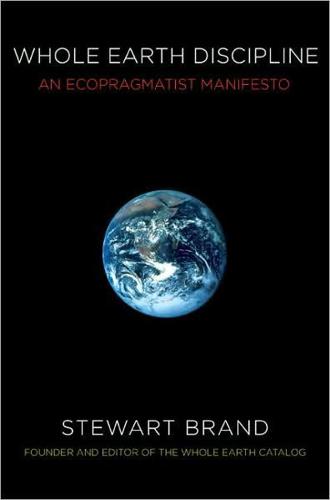
Whole Earth Discipline: An Ecopragmatist Manifesto
by
Stewart Brand
Published 15 Mar 2009
• But I find it more fruitful to think of ecosystem services as infrastructure. A bridge is infrastructure, and so is the river under it. Both support our life, and both require maintenance, which has to be paid for somehow. Radio spectrum is infrastructure, and so is an intact ozone layer. Both support our life, and both require international agreements to avert a “tragedy of the commons.” Between headlong industrial capitalism and a necessarily patient natural capitalism is a pace gap that is hard to bridge. With infrastructure, however, we already think in terms of duration and responsibility, so it’s no stretch to extend that thinking to natural systems. When there are problems with built infrastructure, we’re used to solving them with science, engineering, collaborative public agreements, and financial instruments such as bonds and public-private contracts.

The Next Great Migration: The Beauty and Terror of Life on the Move
by
Sonia Shah
Currie, “The Biology and Behaviour of Drones,” Bee World 68, no. 3 (1987): 129–43, https://doi.org/10.1080/0005772X.1987.11098922; Elizabeth Anne Brown, “How Humans Are Messing Up Bee Sex,” National Geographic, September 11, 2018; Social Contract, “Tribute to Tanton.” Hardin had used a similarly misleading metaphor Garrett Hardin, “Commentary: Living on a Lifeboat,” BioScience 24, no. 10 (1974): 561–68; Constance Holden, “ ‘Tragedy of the Commons’ Author Dies,” Science, September 26, 2003; Ehrlich and Holdren, “Impact of Population Growth.” Tanton prided himself on his emotional detachment Social Contract, “Tribute to Tanton”; Rohe, Mary Lou and John Tanton. He characterized them as separate species Robertson, Malthusian Moment; Normandin and Valles, “How a Network of Conservationists”; Miriam King and Steven Ruggles, “American Immigration, Fertility, and Race Suicide at the Turn of the Century,” Journal of Interdisciplinary History (Winter 1990); Southern Poverty Law Center, “John Tanton,” https://www.splcenter.org/fighting-hate/extremist-files/individual/john-tanton.
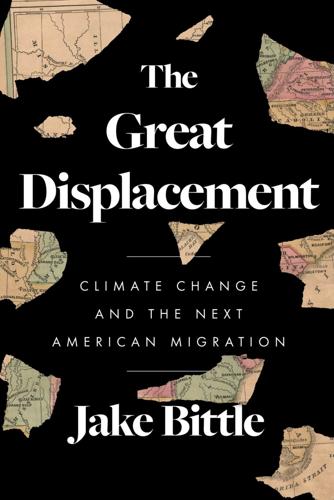
The Great Displacement: Climate Change and the Next American Migration
by
Jake Bittle
Published 21 Feb 2023
“The people who showed up to oppose new projects consisted of environmentalists, angry neighbors, and community organizations that felt their wheels hadn’t been greased enough.” The latter groups tended to vote in local elections, which meant that any city commissioner who wanted to keep her job sided with them. The result was a classic tragedy of the commons: everyone supported new housing in theory, but no one supported it in practice, and indeed every proposed housing development attracted torrents of hatred and criticism from the homeowners who lived in the area. The locals who opposed new housing became known by the pejorative term NIMBYs, which stands for “not in my backyard”—they didn’t care if a developer built an apartment complex in someone else’s neighborhood, but they didn’t want it built in theirs.
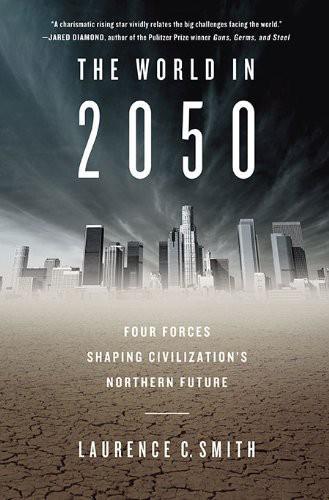
The World in 2050: Four Forces Shaping Civilization's Northern Future
by
Laurence C. Smith
Published 22 Sep 2010
The cornerstone of UNCLOS is the creation of an Exclusive Economic Zone (EEZ) extending from a country’s coastline for 200 nautical miles (about 230 statute miles) outward into the ocean. A country has sole sovereignty over all resources, living and nonliving, within its EEZ. It has the right to make rules and management plans and collect rents for the management and exploitation of these resources. The invention of these zones has greatly reduced “tragedy-of-the-commons” overfishing and other resource pressures and disputes in the world’s coastal oceans. That’s not to say UNCLOS is perfect. Now, disputes break out over island specks because they anchor a claim to a 200 nm radius circle on the surrounding seafloor. Tiny Rockall—literally a barren rock peeking out of the North Atlantic—has been claimed by the United Kingdom, Ireland, Iceland, and Denmark.
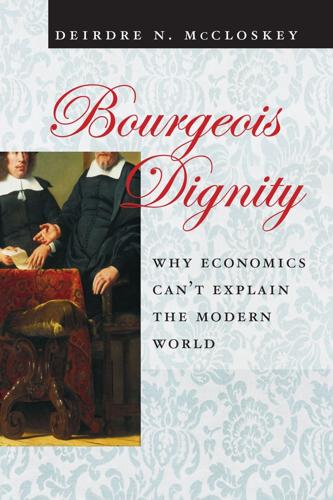
Bourgeois Dignity: Why Economics Can't Explain the Modern World
by
Deirdre N. McCloskey
Published 15 Nov 2011
It is located out in the language games in which people play as much as in their solipsistic “utility functions.”21 When a society or its elite earnestly wants the rules of the game to work, and talks about them a lot, and scolds violators from an early age, the constitutions usually do work—pretty much regardless of imperfections in the written-down rules and incentives, especially if the imperfections fall within the usual range of human folly. The political scientists Elinor and Vincent Ostrom at Indiana University showed repeatedly that a situation that would in Samuelsonian economics always be assumed to be a hopeless case of free riding and the tragedy of the commons, such as the overexploitation of the Los Angeles aquifer, can often be solved by sustained talk among serious-minded, ethically disciplined people.22 It was true as well in medieval English villages, which in 1968 the ecologist Garrett Hardin supposed were instances of the hopeless case. Ethics undergirds water rights, grazing rights, civil and criminal laws, marriages, friendships, children’s games, adults’ games, clubs, traffic, science, business deals, constitutions—a point that political theorists from Machiavelli and Hobbes through James Buchanan and Martha Nussbaum, in their eagerness to devise a theory mainly out of prudence only, have tended to overlook.23 The working of the U.S. constitution, for example, has always rested on such ethical grounding.
…
PhD diss., University of Iowa. Shilts, Wade. 2004. “Accounting, Engineering, or Advertising? Limited Liability, the Company Prospectus, and the Language of Uncertainty in Victorian Britain.” Essays in Economic and Business History 30:47–62. Shilts, Wade. 2007. “Making McCloskey’s Rhetoric Empirical: Company Law and Tragedies of the Commons in Victorian Britain.” In Edward Clift, ed., Transdisciplinary Readings: Essays in Rhetoric and Economics. Lewiston, NY: Mellen Press. Short, Doug. 2012. “Real GDP per Capita: Another Perspective on the Economy.” Advisor Perspectives. http://www.advisorperspectives.com/dshort/updates/Real-GDP-Per-Capita.php.
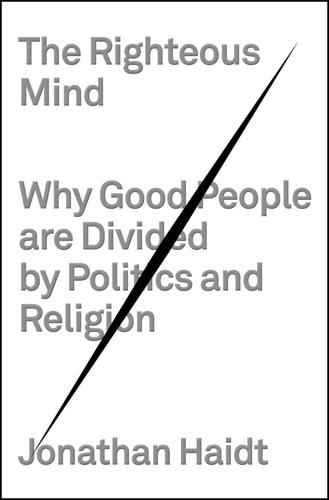
The Righteous Mind: Why Good People Are Divided by Politics and Religion
by
Jonathan Haidt
Published 13 Mar 2012
Hamlin, J. K., K. Wynn, and P. Bloom. 2007. “Social Evaluation by Preverbal Infants.” Nature 450:557–60. Hammerstein, P. 2003. “Why Is Reciprocity So Rare in Social Animals?” In Genetic and Cultural Evolution of Cooperation, ed. P. Hammerstein, 55–82. Cambridge, MA: MIT Press. Hardin, G. 1968. “Tragedy of the Commons.” Science 162:1243–8. Hare, B., V. Wobber, and R. Wrangham. Unpublished. “The Self-Domestication Hypothesis: Bonobo Psychology Evolved Due to Selection Against Male Aggression.” Unpublished ms., Department of Evolutionary Anthropology, Duke University. Hare, R. D. 1993. Without Conscience.
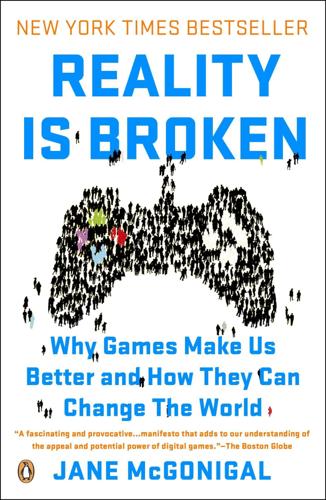
Reality Is Broken: Why Games Make Us Better and How They Can Change the World
by
Jane McGonigal
Published 20 Jan 2011
In the economy of engagement, it is less and less important to compete for attention and more and more important to compete for things like brain cycles and interactive bandwidth. Crowd-dependent projects must figure out how to capture the mental energy and the active effort it takes to make individual contributions to a larger whole. For this reason, the overall crowdsourcing culture likely will not be immune from “the tragedy of the commons”—the crisis that occurs when individuals selfishly exhaust a collective resource. Collaboration projects will have to compete for crowd resources as online communities seek to grab as many mental hours as possible from their members. These gains will likely come at the expense of other projects still striving to secure their own passionate community.
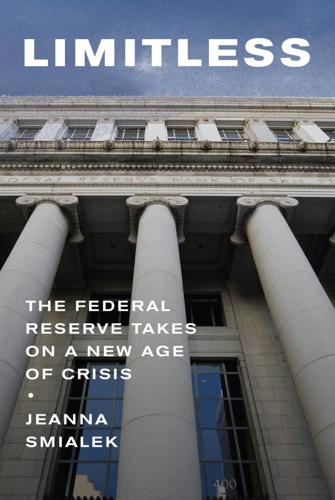
Limitless: The Federal Reserve Takes on a New Age of Crisis
by
Jeanna Smialek
Published 27 Feb 2023
Governor Mark Carney had given a speech that year warning that climate change would eventually beget global financial crises.[2] “The challenges currently posed by climate change pale in significance compared with what might come,” he had remarked, speaking to the insurer Lloyd’s. “So why isn’t more being done to address it?” Carney went on to answer his own question, pointing to what he called “the tragedy of the horizon.” His idea was an extension of the well-known “tragedy of the commons”: the observation that people may fail to make individual changes that would benefit everyone because they can personally gain from using nature’s resources to their full extent. Bob might know that overfishing his local lake will be bad news for his community, but if he’s making a living by frying up fresh-caught bass for tourists, that knowledge may prove insufficient to change his behavior.

A City on Mars: Can We Settle Space, Should We Settle Space, and Have We Really Thought This Through?
by
Kelly Weinersmith
and
Zach Weinersmith
Published 6 Nov 2023
We’ve argued earlier that space will just be another place where humans will be humans, and you may have interpreted that to mean “humans are demonic ogre-creatures and we will inflict our ogreness on space.” But we really do share from time to time. We have commons and they work reasonably well. In our experience, a lot of people think commons don’t work due to an economic concept called “the tragedy of the commons.” The language goes back to Garrett Hardin’s 1968 paper on the economics of commons, but the logic is at least as old as Aristotle, who wrote, “For that which is common to the greatest number has the least care bestowed upon it.” Here’s the idea: suppose a Martian greenhouse has a nice field set aside for food crickets.

Engineering Security
by
Peter Gutmann
When the developers are employees of a company they’ll (usually) do what the boss tells them even if they feel that it’s wrong, but when there’s no single source of control it’s easier to just placate everyone involved by adding more options and thereby avoiding long arguments over design issues. Popups are a user interface instance of the Tragedy of the Commons. If they were less frequent they’d be more effective, but since they’re all over the place anyway there’s nothing to stop my application from popping up a few more than everyone else’s application in order to get the user’s attention. This problem is an inevitable outcome of a security model that security interaction designer Ka-Ping Yee calls “security by admonition” in which the computer (or at least the person who wrote the software for it) can’t tell which situation requires an admonition and which doesn’t, so it has to warn for all of them just in case [155].
…
For example a phisher can ask for the next few TAN values at their phishing site (using “Invalid TAN” as the reason for asking for several successive values) to obtain a series of future TANs [105], although even this trick can be taken a bit too far, as in the case of the phishers who asked for blocks of eight successive TANs and their corresponding sequence numbers at a time [106][107] 131 Although this extreme disparity was pointed out by a German security researcher, the figures he used are from Gartner in the US. While the absolute values given in these sorts of figures is in some doubt (see “A Profitless Endeavor: Phishing as Tragedy of the Commons”, Cormac Herley and Dinei Florencio, Proceedings of the 2008 New Security Paradigms Workshop, September 2008, p.59) the single source should at least provide vaguely consistent relative values. The UK and Germany have roughly identical online user bases, the US has about four times the user base.
…
If the perceived value is low then the effort expended in safeguarding it will also be low, and low-value users aren’t responsible for any losses incurred by high-value users. In addition it would be irrational for low-value users to invest in strong protection measures for data on the off chance that somewhere, some unknown party may have a high-value use for it. The end result is a form of tragedy of the commons in which everyone has an incentive to use the authentication data but no-one has any incentive to protect it [255]. Conversely, anyone who’s concerned about what the authentication mechanism is providing has a strong incentive not to use it, or at least to use it only if they completely control it.
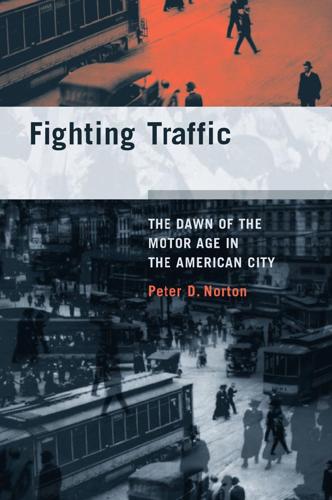
Fighting Traffic: The Dawn of the Motor Age in the American City
by
Peter D. Norton
Published 15 Jan 2008
In urban transportation history, Los Angeles is the least representative city in America. Nevertheless, Bottles uses transportation in Los Angeles to represent urban transportation in America, as his book’s subtitle and the boldly stated conclusions in his epilogue show. 26. The street, in other words, is an instance of a “commons.” See Garrett Hardin, “The Tragedy of the Commons,” Science 162 (Dec. 13, 1968), 1243–1248. In medieval England a commons was a place of exceptional economic laws, unlike those that obtain in private property. Like a commons, roads and streets are a shared good; individual users cannot be charged for each use. This sense of the metaphor is clearer in its original formulation; see William Forster Lloyd, “Two Lectures on the Checks to Population,” in Lectures on Population Value, Poor-Laws and Rent (1837; reprint: Augustus M.
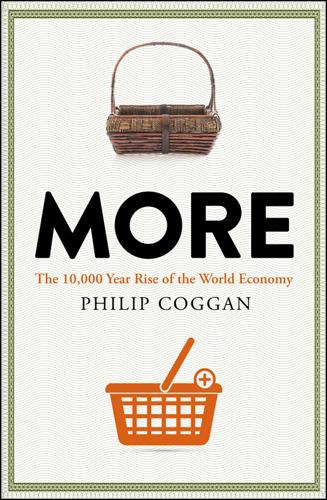
More: The 10,000-Year Rise of the World Economy
by
Philip Coggan
Published 6 Feb 2020
Thailand, Indonesia, Colombia and Venezuela are all deemed to be more clogged up than the US, while Moscow, São Paulo and Bogota are among the ten most congested cities.40 Building more roads might seem to be the answer, but studies show that this simply encourages more traffic; if a city increased its road space by 10% between 1980 and 1990, the amount of traffic rose by the same amount.41 This is an example of the “tragedy of the commons”: in trying to exercise their own freedom, the decisions of individual drivers lead to congestion. Drivers in the world’s big cities lose almost $1,000 a year through being stuck in traffic jams.42 Indeed, our love affair with the car has soured a bit since the 1950s, which many motor enthusiasts regard as a golden age.
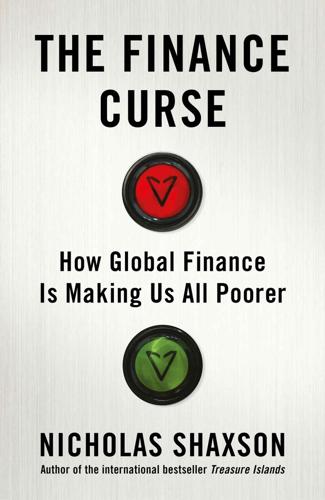
The Finance Curse: How Global Finance Is Making Us All Poorer
by
Nicholas Shaxson
Published 10 Oct 2018
We wouldn’t have a finance curse if we really did live in Adam Smith’s world.’ 6. From Steve Weinberg, Taking on the Trust: how Ida Tarbell brought down John D. Rockefeller and Standard Oil, W.W. Norton & Co., 2008, pp.219–20. Rockefeller defended himself by arguing that he had found a solution to the tragedy of the commons, where too many oilmen were drilling on the same bounteous oilfield, leading to overproduction and mayhem in oil prices. 7. The Hancock episode is from Henry Demarest Lloyd, Wealth Against Commonwealth, Harper, New York, 1899, p.162–3 8. The quote is from Weinberg, Taking on the Trust, p.83.

Amazon Unbound: Jeff Bezos and the Invention of a Global Empire
by
Brad Stone
Published 10 May 2021
They were demanding, among other things, that the company withdraw financial support for climate-denying politicians and break its cloud computing contracts with fossil fuel companies. “I think it’s totally understandable,” said Bezos of the group’s concerns, while noting that he didn’t agree with all of their demands. “We don’t want this to be the tragedy of the commons. We all have to work together on this.” A few months later, in the midst of the Covid-19 pandemic, Amazon would fire two of the group’s organizers. I was in the audience that day as well, and raised my hand to ask Bezos the last question of the morning: Was he confident that humanity could move quickly enough to escape the direst scenarios for a warming planet?
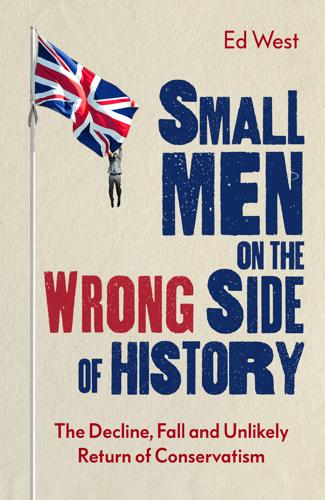
Small Men on the Wrong Side of History: The Decline, Fall and Unlikely Return of Conservatism
by
Ed West
Published 19 Mar 2020
Among the countless examples, one blue-tick journalist and self-described ‘public relations expert’ tweeted that ‘Brexit is dying right before everyone’s eyes. Meanwhile, the gammon-faced white men who wanted it are dying too.’14 Of course, individuals have far more incentive to increase their status within a political tribe than to advance a political tribe’s broader interests, a variation of tragedy of the commons that pushes polarisation, but social media has ramped up the dangers in a way no one knows how to stop. And there is some evidence young white men in America are moving towards the Right, the endless stream of crap opinion pieces in which ‘white men’ is used as a lazy term of abuse presumably having some effect.15 Although millennials are most hostile to Trump and ‘self-identify much less as conservative and much more as liberal than previous generations’,16 one Reuters poll found the Democrats losing some younger voters, their support dropping in just two years from 55 to 46 per cent, that decline being concentrated among white men.17 Another found that among white millennials, Republicans were on level pegging, making up a 14 per cent gap in two years.
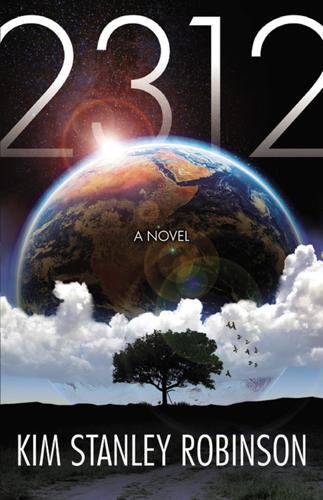
2312
by
Kim Stanley Robinson
Published 22 May 2012
Mars-Earth tension, aggression, and cold war for control of the solar system; Mars isolationism; Venus internal strife; decision in the Jovian moons to terraform their big three; proliferation of the unaffiliated terraria, and the disappearance of many populations behind “event horizons”; influence of qubes; volatile shortages pinching harder, causing hoarding, then tribalism; tragedy of the commons redux; splintering into widespread “self-sufficient” enclave city-states. The term “hyperbalkanization” Shortback considers just an artifact of overheated rhetoric in cultural studies. She has said, however, that a significant prolongation of the Balkanization could perhaps lead to a period worse than the Ritard, or even the Crisis—perhaps a time that could be called the Atomization, or the Dissolution.
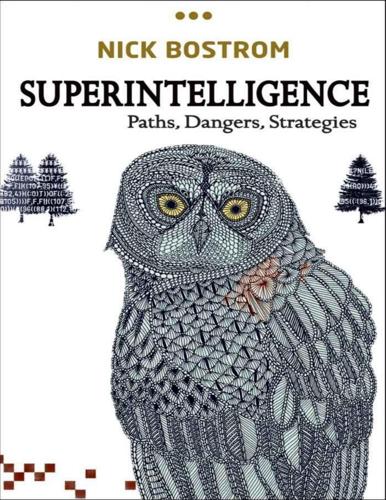
Superintelligence: Paths, Dangers, Strategies
by
Nick Bostrom
Published 3 Jun 2014
Furthermore, at least in scenarios where the superintelligence forms a singleton, many non-accidental anthropogenic existential risks deriving from global coordination problems would be eliminated. These include risks of wars, technology races, undesirable forms of competition and evolution, and tragedies of the commons. Since substantial peril would be associated with human beings developing synthetic biology, molecular nanotechnology, climate engineering, instruments for biomedical enhancement and neuropsychological manipulation, tools for social control that may facilitate totalitarianism or tyranny, and other technologies as-yet unimagined, eliminating these types of risk would be a great boon.
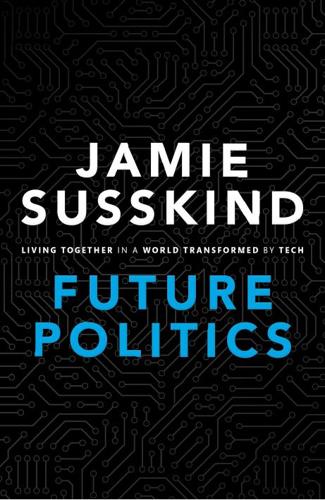
Future Politics: Living Together in a World Transformed by Tech
by
Jamie Susskind
Published 3 Sep 2018
Why write a great textbook, they ask, if everyone will download it for free while you receive nothing? Why dissipate precious capital if there’s no prospect of earning a return? The effect of the internet, they argue, is to destroy the market for goods that are cheap to copy. Propertarians disdain the idea that resources could be left to the commons.With sombre faces they tell of the ‘tragedy of the commons’, when land was held colectively and nobody bothered to put in place the flood protections, drainage systems, or systems of crop rotation needed to preserve its value. Everyone hoped that someone else would do it and no one did.59 The only solution, they say, is for the state to step in with the ‘marketmaking’ device of intellectual property law, i.e. rights excluding others from using the goods unless they pay.60 Intellectual property law encloses information goods into discrete items of property, such that each individual patent- or copyright-owner is incentivized to do the best they can with what they have.

The Climate Book: The Facts and the Solutions
by
Greta Thunberg
Published 14 Feb 2023
Meanwhile, a lack of accountability in multinational waste export systems results in a global flow of post-consumer plastics to countries where regulation and law enforcement are insufficient to prevent mismanaged waste entering the environment. Each country may solve its waste management problems or regulate plastic production independently, but there grows a tragedy of the commons in our oceans and atmosphere that, to be solved, requires urgent intergovernmental coordination. / 2.14 Fresh Water Peter H. Gleick Water connects us to everything on the planet: our food and health, the well-being of the environment around us, the production of goods and services, and our sense of community.
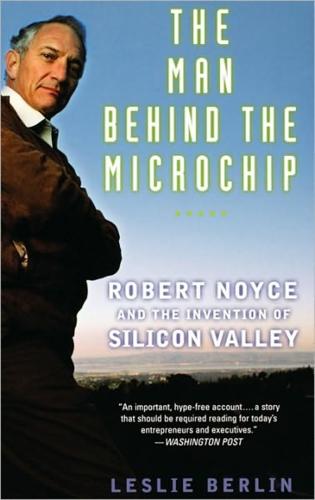
The Man Behind the Microchip: Robert Noyce and the Invention of Silicon Valley
by
Leslie Berlin
Published 9 Jun 2005
Concerns about intellectual property were so great that an early SEMATECH planning meeting had attracted 32 intellectual property lawyers from potential member companies and the Department of Defense. As Noyce put it, rather resignedly, “Everyone comes here to extract something from SEMATECH and nobody comes here to contribute something to SEMATECH.” It was a classic tragedy-of-the-commons situation. If everyone did only what was best for his or her individual company, Noyce explained, “there isn’t going to be anything to extract [from].”40 These troubles kept Noyce from performing the “Mr. Outside” job he had loved at Intel, and instead forced him to play a role similar to the general manager’s function he had grown to detest at Fairchild.
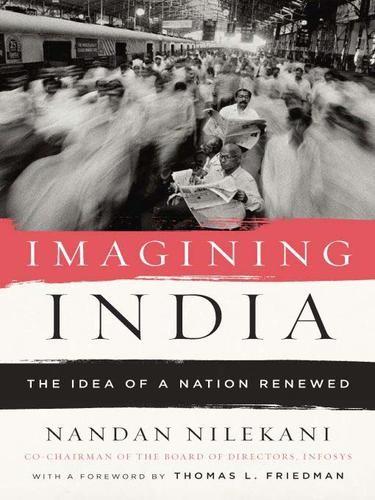
Imagining India
by
Nandan Nilekani
Published 25 Nov 2008
A broader group of Indians—a staggering 84 percent of India’s poor, rural households—also depends on such “common” land resources for firewood, fodder and grazing their animals, and such land contributes 14 to 25 percent of their income. 10 On the flip side, such use has led to the degradation of more than two thirds of common land in India. The rapid loss that has taken place across these resources has been the “tragedy of the commons”—resources that do not clearly belong to any individual or a group are likely to be overexploited, since conserving them is in no individual’s interest. The result is that everyone competes to destroy. As Manoj Dabas, regional director of the Ashoka Trust for Research in Ecology and Environment, tells me, “There is nothing wrong with tribal communities cutting wood from forests and selling it to the market.

The Ministry for the Future: A Novel
by
Kim Stanley Robinson
Published 5 Oct 2020
Getting the central banks to do that would be a stretch, but them doing it would be the strongest version by far. Mary nodded grimly at that. A stretch, she repeated. Persisted with arguments for carbon coin. Noted that some environmental economists now discussing the Chen plan and its ramifications, as an aspect of commons theory and sustainability theory. Having debunked the tragedy of the commons, they now were trying to direct our attention to what they called the tragedy of the time horizon. Meaning we can’t imagine the suffering of the people of the future, so nothing much gets done on their behalf. What we do now creates damage that hits decades later, so we don’t charge ourselves for it, and the standard approach has been that future generations will be richer and stronger than us, and they’ll find solutions to their problems.
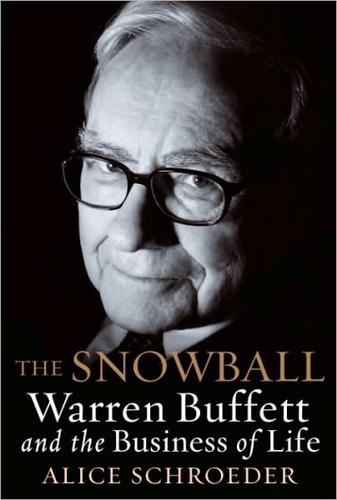
The Snowball: Warren Buffett and the Business of Life
by
Alice Schroeder
Published 1 Sep 2008
Wade.47 Charlie Munger took up this case with a passion; the firm had chosen it out of concern over the way young women were being maimed and killed through illegal abortions. Buffett and Munger sponsored a “church” called the Ecumenical Fellowship, which became part of the country’s abortion underground railroad.48 Buffett had been especially moved by the logic of Garrett Hardin, whose 1968 article “The Tragedy of the Commons” laid out the way that people who have no ownership stake in common goods—the air, the seas—overuse and destroy them.49 While Buffett adopted many principles conceived by Hardin, a leader of the “population control” movement, he rejected solutions favored by Hardin, who espoused authoritarian ideas and took a eugenicist approach.
…
Buffett says he has never seen Munger “so fired up,” the most unconventional thing he has ever seen Munger do. 48. Buffett said Munger tempted him into running a church by offering him the job of sexton, until he found out the job description was not what he thought. “We held mock debates over who got to be the preacher.” 49. Garrett Hardin, “The Tragedy of the Commons,” Science, Vol. 162, No. 3859, December 13, 1968. Hardin’s theory was essentially a restatement of the “prisoner’s dilemma,” which also addresses cooperation and “cheating” as covered in references on that subject. In the 1970s it was assumed that economic progress would accelerate population growth, that population growth would prevent economic growth.
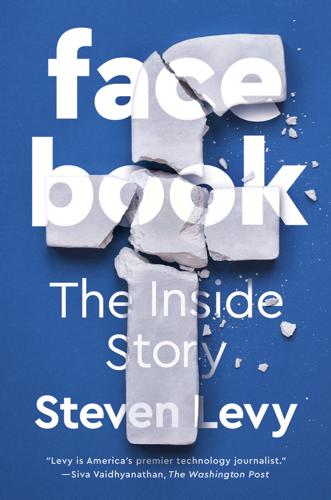
Facebook: The Inside Story
by
Steven Levy
Published 25 Feb 2020
Pincus came in to talk to Zuckerberg, who brought in Sheryl Sandberg, saying that since she had worked for the Treasury Department and understood economics so well, she could clear things up for him. “They had this whole argument—they felt like we’re the biggest user and we were somehow being subsidized where we were using more than our fair share,” says Pincus. “She had this whole explanation that it’s the tragedy of the commons and all.” But Zynga decided not to comply if others didn’t have to. “I said, Fuck that,” recalls Pincus. “When you make it mandatory, I’m in. But until you do, I’m not.” Pincus considered himself a friend to Zuckerberg. He respected Sandberg. But he knew that ultimately it was each side for themselves.

Red Mars
by
Kim Stanley Robinson
Published 23 Oct 1992
As they ate they watched the news from Earth on a bar TV. Really it had gotten to be almost too much to watch. Canada and Norway were joining the plan to enforce population-growth slowdown. No one would say population control, of course, it was a forbidden phrase in politics, but that’s what it was in fact, and it was turning into the tragedy of the commons all over again: if one country ignored the U.N. resolutions, then nearby countries were howling for fear of being overwhelmed. Another monkey fear, but there it was. Meanwhile Australia, New Zealand, Scandinavia, Azania, the United States, Canada, and Switzerland had all proclaimed immigration illegal, while India was growing by 8 percent a year.

Green Mars
by
Kim Stanley Robinson
Published 23 Oct 1993
It was only selfishness taking the long view, acknowledging the real costs of behavior and making sure to pay them in order not to run up any long-term debts. A very sound economic practice, in fact, if properly directed and applied. As he tried to prove by means of the selfish-altruism games they then played, like Prisoner’s Dilemma, or Tragedy of the Commons. The next day they met in the surf camp again, and after a meandering talk on voluntary simplicity, they played a game Fort called Marcus Aurelius. Art enjoyed this game as he did all the others, and he played it well. But each day his lectern notes were getting shorter; for this day they read, in their entirety, Consumption— appetite— artificial needs— real needs— real costs— straw beds!
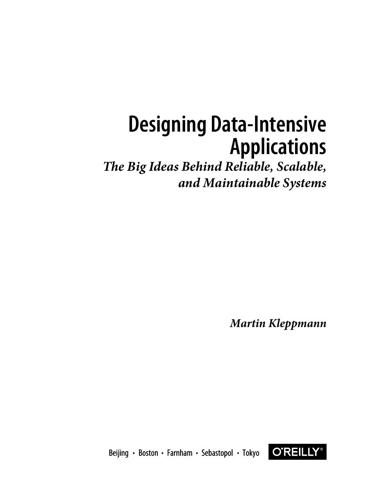
Designing Data-Intensive Applications: The Big Ideas Behind Reliable, Scalable, and Maintainable Systems
by
Martin Kleppmann
Published 17 Apr 2017
We should allow each individual to maintain their privacy—i.e., their control over own data—and not steal that control from them through surveillance. Our individual right to control our data is like the natural environment of a national park: if we don’t explicitly protect and care for it, it will be destroyed. It will be the tragedy of the commons, and we will all be worse off for it. Ubiquitous surveillance is not inevitable —we are still able to stop it. How exactly we might achieve this is an open question. To begin with, we should not retain data forever, but purge it as soon as it is no longer needed [111, 112]. Purging data runs counter to the idea of immutability (see “Limitations of immutability” on page 463), but that issue can be solved.
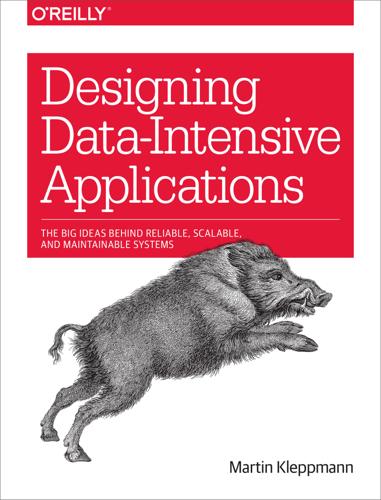
Designing Data-Intensive Applications: The Big Ideas Behind Reliable, Scalable, and Maintainable Systems
by
Martin Kleppmann
Published 16 Mar 2017
We should allow each individual to maintain their privacy—i.e., their control over own data—and not steal that control from them through surveillance. Our individual right to control our data is like the natural environment of a national park: if we don’t explicitly protect and care for it, it will be destroyed. It will be the tragedy of the commons, and we will all be worse off for it. Ubiquitous surveillance is not inevitable—we are still able to stop it. How exactly we might achieve this is an open question. To begin with, we should not retain data forever, but purge it as soon as it is no longer needed [111, 112]. Purging data runs counter to the idea of immutability (see “Limitations of immutability”), but that issue can be solved.

Gnomon
by
Nick Harkaway
Published 18 Oct 2017
Do you know, in fourteen years I have never once had a book stolen? How remarkable, that people will behave so well without being indexed. It’s not scalable, apparently; not realistic in the wider world. Above a certain threshold, it’s no longer a personal trust governed by the rules of friendship, but a tragedy of the commons, and people just steal. That’s always been the problem, I’m told: we need a better sort of human being, not a more just law. We need to change the way people think. Not that I’m against indices, per se. From time to time my library grows when someone brings me a cardboard box from an attic or a cellar, and then I write all the details of each book on a little card and I put them away each in its proper place.

The Golden Passport: Harvard Business School, the Limits of Capitalism, and the Moral Failure of the MBA Elite
by
Duff McDonald
Published 24 Apr 2017
We don’t have an obligation to solve America’s problems. Our only obligation is making the best product possible”5—Nohria deftly avoided a question from Time about whether that executive was right or wrong. “Companies are also becoming aware that if everyone feels the way Apple does, there will be a tragedy of the commons. We do rely on the health of our home markets, and multinational firms can’t turn their back on them.”6 It’s all so theoretical that it’s both harmless and meaningless, all at once. Nohria also decided to wrestle down an issue that has bedeviled the School for almost as long as the teaching of ethics, and that was its treatment of women, both on the faculty and in the student body.
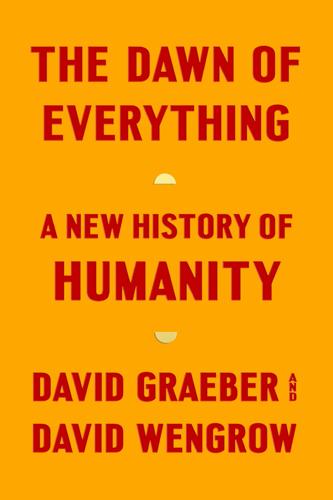
The Dawn of Everything: A New History of Humanity
by
David Graeber
and
David Wengrow
Published 18 Oct 2021
If the situation in just one cradle of early farming was that complicated, then surely it no longer makes sense to ask, ‘what were the social implications of the transition to farming?’ – as if there was necessarily just one transition, and one set of implications. Certainly, it’s wrong to assume that planting seeds or tending sheep means one is necessarily obliged to accept more unequal social arrangements, simply to avert a ‘tragedy of the commons’. There is a paradox here. Most general works on the course of human history do actually assume something like this; but almost nobody, if pressed, would seriously defend such a point because it’s an obvious straw man. Any student of agrarian societies knows that people inclined to expand agriculture sustainably, without privatizing land or surrendering its management to a class of overseers, have always found ways to do so.